








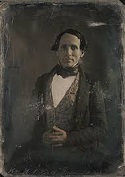















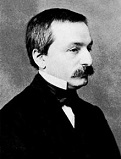



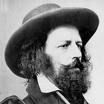




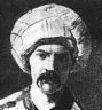









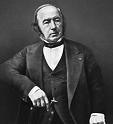






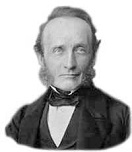
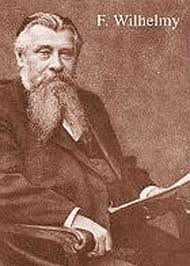



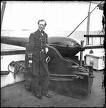






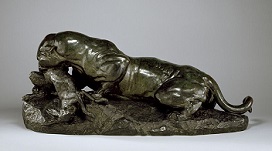
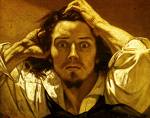
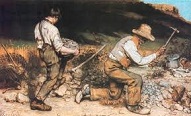



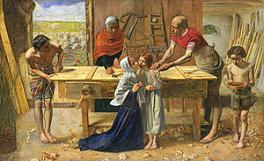

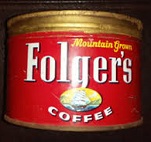
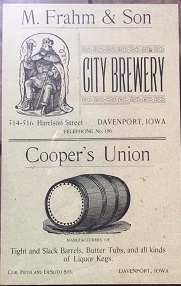
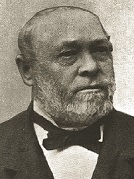
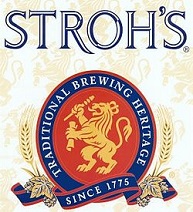
1850 Pop.: China: 430M, Germany: 34M, France: 33M, Spanish-speaking America: 22.5M, Great Britain: 21M, Brazil: 7.2M; the pop. of Washington D.C. is 51,687 incl. 37,941 whites and 13,746 blacks (3,687 free, 10,059 slave). Beginning this year large numbers of Scandinavians and Chinese begin immigrating to the U.S. - incl. Pa Cartwright and Hop Sing? The Seventh (7th) U.S. Census (of 1850) is the first to list persons by name and birthplace; total pop. is 23,191,876 in a land area of 2,940,042 sq. mi. (7.9 per sq. mi.); blacks 3.639M; free blacks 435K; New York City: 515K, incl. 100K of Irish descent, who constitute 43% of the foreign-born pop. of the U.S.; the life expectancy at birth is 38 years; in this half-cent. U.S. pop. triples, while cropland increases from 76M to 319M acres through deforestation; tere are 274,919 people listed with the surname Smith, growing to 2,376,206 in 2000. One U.S. dollar in this year has the same purchasing power as $22.53 in the year 2001. Breweries in U.S.: 431; total cap.: 750K barrels/year. There is a nat. yellow fever epidemic in the U.S. this year. Ty this year there are 6K+ private academies in the U.S. The Little Ice Age (begun 1250), which has kept Europe cold and half-starved suddenly ends in a span of a few years; the Great Glacier Retreat begins (ends ?) - giving Euros a chance to create a peaceful Paradise or a war-torn Hell? The Age of Heroic Medicine (begun 1780) ends, and the Age of Scientific Medicine begins (until ?). The final Congressional settlement of the slavery question, doo-dah doo-dah? On Jan. 29 U.S. Sen. (Whig-Ky.) (1848-52) Henry Clay (1777-1852) presents his Compromise of 1850 to the U.S. Senate in Washington, D.C., giving the three towering intellects of Clay, Calhoun, and Webster their day on the tottering nat. stage before they croak sans solutions; on Mar. 4 ailing U.S. Sen. (D-S.C.) (1845-50) John Caldwell Calhoun (1782-1850) has a speech read for him against the compromise and demanding equality and safety for the South, then dies in Washington, D.C. on Mar. 31; on Mar. 7 U.S. Sen. (Whig-Mass.) (1845-50) Daniel Webster (1782-1852) pushes for Union over slavery concerns and is pro-compromise before leaving office on July 22; newcomer U.S. Sen. (Whig-N.Y.) (1849-61) William Henry Seward Sr. (1801-72) (known for wearing yellow pantaloons and an outsized yellow handkerchief, and pausing theatrically during orations to dip into his snuff box) invokes "a higher law than the Constitution" and is against the compromise, as are U.S. Sen. (D-Miss.) (1847-51, 1857-61) Jefferson Finis Davis (1808-89) and Free Soil (ex-Whig) U.S. Ohio Sen. (1849-55, 1861) Salmon Portland Chase (1808-73), while 5'4" "Little Giant" U.S. Sen. (D-Ill.) (1847-61) Stephen Arnold Douglas (1813-61), chmn. of the Committee on Territories is for it, which carries a lot of weight; on Apr. 18 the matter is referred to a Senate committee of 13, with Clay as chmn.; in Apr. Compromise supporter Sen. (D-Miss.) (1847-52) Henry Stuart Foote (1804-80) draws a pistol on Compromise opponent Sen. (D-Mo.) (1821-51) Thomas Hart "Old Bullion" Benton (1782-1858) after Benton becomes enraged at Foote's verbal attacks and charges him, and is stopped by the other senators before he can fire; debate drags on as Pres. Taylor dies on July 9 in Washington, D.C. of enteritis after less than 500 days in office, and is succeeded by fill-more Millard Fillmore; on Sept. 20 a package of five bills is finally passed, ending a 4-year war over the status of territories acquired during the Mexican-Am. War of 1846-8. the Compromise abolishes the slave trade in Washington, D.C., even though the city adopted the laws of Md., keeping slavery legal, but that doesn't stop free blacks from flocking there, outnumbering slaves by 4-to-1 by 1860. The Euros decide that profit trumps Christ in China? On Feb. 25 emperor (since 1820) Qin Dao Guan (b. 1782) dies, and on Mar. 9 Qin Xian Feng (Qing Hsien-fung) (Chin. "universal prosperity") (1831-61) becomes Qing (Manchu) emperor #7 of China (until Aug. 22, 1861); after bribing a midwife to coverup her lack of virginity, cagey Manchu babe Cixi (Tzi-Hi) (Tsu-Hsi) (1835-1908) enters his harem as a concubine, 5th rank, then gives him some hot hsien-fung, bearing son (future emperor) Tong Zhi (Tung-chih) in 1856, receiving a promotion to 2nd rank in 1858; when the 30-y.-o. old man dies she proves she's done her homework, going on to virtually rule China for half a cent.; meanwhile in Dec. S Chinese peasants demanding land and equality, led by Hong Xiuquan (Xichuan) (Hung Hiu-Tsuen) (Hong Huoxiu) (Renkun) (1814-64), a Hakka Christian who had studied under Southern Baptist missionary Issachar Jacox Roberts (1802-70), and had made many converts, becoming Taiping heavenly king next Jan. 11 (until June 1, 1864), claiming to be the brother of Jesus Christ, and becoming known for keeping a Saturday Sabbath and eschewing tobacco and opium, burning it wherever found, begin the 14-year Taiping (Chin. "great peace") Rebellion (ends Aug. 1864); Hong Xiuquan proclaims himself emperor of the Taiping Heavenly Kingdom, attacks Peking, and takes Nanking (1854) and Shanghai from the Manchus, making thousands of Christian converts, albeit with a fractured trans. of the Bible; too bad that they destroy all idols, incl. statues of Christian saints and the Virgin Mary, pissing-off the Jesuits, who drag in the French to support the Manchus, and make the U.S. and British missionaries (who together had only made 1.5K converts) jealous, causing them to begin spreading disinfo., calling them pagans and accusing them of atrocities; worse of all, the British get mad at loss of opium revenue and send arms to the Manchus, which PM Gladstone later calls a black mark on British history?; the Taiping Heavenly Kingdom in S China grows to 30M people before it is brutally crushed, with 20M killed by the Qing Dynasty under gen. Zuo Zongtang (Tso Tsung-t'ang) (1812-85) (AKA Gen. Tso). On Feb. 28 the U. of Utah (originally the U. of Deseret until 1892) is founded in in Salt Lake City, Utah by the Deseret gen. assembly, becoming Utah's flagship univ. On Mar. 9 the Gorham Judgment of the English privy council orders the Anglican Church to accept eccentric clergyman George Cornelius Gorham (1787-1857), who denies that the sacrament of baptism has the objective effect of baptismal regeneration, but is conditional, dependent upon a later personal adoption of promises made, setting a precedent that a secular court can decide Anglican church doctrine. On Mar. 10 in France elections are held to replace the deputies condemned by Charles Louis Napoleon after walking out on June 13; the left wins back more than two-thirds of the empty seats. Waffle and chicken restaurants right ahead? On Mar. 27 the officially WASP gringo Calif. cities of San Jose (Spanish mission founded Nov. 29, 1777) (modern-day pop. 1M/8.7M) and San Diego (Spanish mission founded July 16, 1769) (modern-day pop. 1.3M/3.3M) are incorporated, followed by Los Angeles (Apr. 4) (Spanish mission founded Sept. 4, 1781) (modern-day pop. 3.8M/18.7M), and San Francisco (Apr. 15) (Spanish mission founded June 29, 1776) (pop. 870K/8.7M). On Apr. 19 Britain and the U.S. sign the Clayton-Bulwer Treaty regulating their relations with regard to Central Am. On Apr. 23 William Wordsworth (b. 1770) dies, and after lobbying for Elizabeth Barrett Browning proves to no avail, Alfred, Lord Tennyson (1809-92) becomes poet laureate of England; earlier in the year he finally marries long-time (since 1836) fiancee Emily Sarah Sellwood (1813-96), and becomes a big celeb and friend of Queen Victoria and Prince Albert, going from being broke and having to drop out of Cambridge in 1830 to rich by 1860 - watch out, I'm dangerous now that I'm selling out? In Apr. the Gettysburg Star and Banner coins the term "pipe down" after the captain of a ship orders his crew to be quiet. On June 3-11 the Nashville Convention in Tenn. is attended by 100+ delegates selected by the legislatures of 9 out of 15 slave states in an effort to establish unity in the face of the debate then going on in Congress; it proposes an extension of the Missouri Compromise line to the Pacific Ocean; when it is ignored, the convention reconvenes in Nov., attended by delegates from only seven states, and rejects the Compromise, asserting the right of secession; meanwhile late in the decade growing tensions cause pro-Southern residents of Calif. to propose splitting Calif. into Northern and Southern sections, but Congress votes it down; meanwhile the 1850 U.S. Fugitive Slave Act increases the resolve of abolitionists with criminal penalties for citizens concealing or rescuing a fugitive, as well as the award of a $10 fee to commissioners for accepting a slave owner's claim to an escaped slave, versus only $5 for rejecting it. On June 25 after a mob in Athens burns down the home of a British citizen, Lord Palmerston gives a big Speech on Affairs in Greece in Parliament, calling for a blockade of Greece by the British fleet; an abortive French mediation causes the Greeks to cave-in to British demands over the Don Pacifico Affair of 1847 - Jews don't get mad they get even? On June 27 ex-cavalry lt. Robert Pate beats Queen Victoria over the head with a cane, bruising it and crushing her bonnet, receiving seven years transportation to Van Dieman's Land (Tasmania); he returns in 1860 married and prosperous after inheriting his father's fortune; no more assassination attemps on Victoria until June 1887. In June the Coup of 1850, directed by Austrian foreign minister Friedrich Ferdinand Graf von Beust overthrows the 1849 Frankfurt constitution, allowing the police to crack down on dissent. On July 2 Russian pressure Prussia signs the Peace of Berlin with Denmark, conceding Schleswig-Holstein. On July 2 former British PM Sir Robert Peel (b. 1788) dies after a fall from a horse, causing the cabinet to be defeated and resign; Lord Stanley, 14th earl of Derby, leader of the protectionist Tories declines to form a new cabinet because his party only numbers one-third of the house; PM John Russell then forms a coalition of Whigs and Peelites, and becomes British PM (until Dec. 1852). On July 9 the Bab (b. 1819) is executed in Tabriz; his remains end up in a shrine on Mount Carmel in Haifa, Israel; his successor is Mirza Husayn-Ali Nuri (Mírzá Husayn- 'Alí Núrí) (1817-92), who flees to Baghdad in June 1851; on Aug. 15, 1852 a group of Bab followers attempts to assassinate the shah, resulting in riots against the Babi community and the imprisonment of many incl. him in Siyah-Chal (Black Pit) Prison in Tehran; after the assassin confesses that he wasn't in collusion with the leaders, and the Russian ambassador intervenes, he is released after 4 mo., and flees to Baghdad with his family on Apr. 8, 1853; on Apr. 21, 1863 he spends 12 days in the Garden of Ridvan near Baghdad, receiving his mission as a Messenger of God under the name Baha'ullah, founding the Baha'i Faith as separate from Babism; on Aug. 12, 1868 he and his family end up in a Turkish penal colony in Akka, Palestine; in 1879 he is allowed to live in the Mansion of Bahji outside Akka; he goes on to churn out tons of writings that reap new recruits; meanwhile French Aryan supremacist historian Count de Gobineau becomes their hero for obtaining the only complete ms. of the early history of the Babi religious movement written by the Bab. A lame mallard fills more useless years until the horrific U.S. Civil War? On July 9 (after 16 mo. in office) U.S. pres. (since 1849) Zachary Taylor (b. 1784) becomes the 2nd "big Whig" to die in office (after W.H. Harrison in 1841), five days after giving a long July 4th speech and eating a bowl of bad cherries infected with Asian cholera (not poisoned by arsenic by his enemies, as long believed?); on July 10 soft-spoken (born in a log cabin in Summerhill, N.Y.) (former cloth worker's apprentice and school teacher) New York atty. (future Know-Nothing) (last Whig pres.) Millard Fillmore (1800-74), AKA "the Accidental President", "the Wool-Carder President", "the American Louis-Philippe" (from his luxurious lifestyle) becomes the lucky number 13th (lame mallard?) U.S. pres. (until Mar. 4, 1853) in the 18th U.S. Pres. Inauguration in the U.S. Capitol in the chamber of the House or Reps. in Washington, D.C., becoming the 2nd unelected U.S. pres. (1st John Tyler) and 2nd U.S. pres. not to have a vice-pres. (1st John Tyler); Fillmore's wife (since 1826) Abigail Powers Fillmore (1798-1853) was his schoolteacher, and proves it by starting a library at the White House. In the summer Pope Pius IX issues a rescript dividing England into dioceses for the govt. of the Roman Catholic Church; British PM John Russell issues a public letter denouncing it as an insult to the queen and an attempt towards a union of the Anglican Church with Rome, and introduces the anti-Catholic Ecclesiastical Titles Bill, which forbids the assumption of titles derived from the U.K. by priests of the Roman Catholic Church. On Sept. 9 "Golden State" California (Calif.) is admitted as the 31st U.S. (free) state (2nd largest in the lower 48) (motto: Gr. "Eureka" = "I've found it", the first state motto not in English or Latin, starting a trend, followed by Minn., Mont., Wash., Alaska); there are now 16 free and 15 slave states, forever ending the old balance. On Sept. 9-20 the Compromise of 1850 passes after being split into five separate bills: 1: admitting (Calif.)) to the Union as a free state; 2: organizing the New Mexico Territory (N.M.) with the slavery issue to be decided by popular sovereignty, and payment of $10M to Texas to satisfy claims to New Mexico; 3: organizing the Territory of Utah ditto; 4: a stiff new fugitive slave act; 5: an act abolishing the slave trade (but not slavery itself) in the District of Columbia; the issue of popular sovereignty is left for future legislative debates, which is what makes the Southerners accept the whole deal; the Mormon Corridor from Utah N through W Wyo. and E Idaho, S to San Bernardino, Calif., W to Mesa, Ariz., and S to the U.S.-Mexico border (area between modern-day Interstate 15 and U.S. Route 89) begins to be settled by Mormons (until 1890). On Sept. 27 U.S. Oregon Donation Land Act (Land Claim Act of 1850) is passed to promote homesteading in Oregon Territory, causing an increase in settlers travelling the Oregon Trail, who are issued 7,437 land patents by the time the law expires in late 1855. On Sept. 28 flogging is abolished as a form of punishment by the U.S. Navy - too many find it enjoyable? In Sept. Chevalier J.G. Hulsemann, Austrian charge (chargé) in Washington, D.C. formally protests U.S. sympathy for the 1849 Hungarian Rev.; U.S. secy. of state Daniel Webster decides to use the occasion to revive U.S. patriotism and divert attention from the Missouri Compromise issue, and on Dec. 21 writes a letter to Hulsemann, bragging how the U.S. will soon exceed the AEIOU (see 1453) Austrian Empire in eminence, and generally to shove it; a few mo. later Lajos (Louis) Kossuth (1802-94), leader of the rev. is enthusiastically received in the U.S. after it is quashed. On Oct. 1 the U. of Sydney in Sydney, Australia is founded by the govt. of New South Wales, becoming Australia's first univ.; on Feb. 27, 1858 it receives a royal charter from Queen Victoria; motto: "Sidere mens eadem mutato" (Though the constellations are changed, the mind remains the same). On Oct. 5 the Italian Mafia murders the Irish chief of police in New Orleans, La., after which an Irish mob breaks into the jail and shoots the Italian suspects. On Oct. 23-24 the first Nat. Women's Rights Convention is held in Worcester, Mass., with 1K+ participants; more conventions are held through 1860 (except 1857). In Oct. after the Erfurt Parliament (Prussian Northern Union) in Prussia enacts a liberal 1850 Prussian Constitution, which establishes a bicameral parliament (until 1918); on Nov. 29 the Agreement (Punctuation) of Olmutz (Olmütz) is signed, causing Prussia to abandon the Erfurt Union and accept the revival of the German Confederation under Austrian leadership. The Anglo-Kaffir War begins (ends 1853). On Nov. 5 the Chilean govt. declares a state of siege in Santiago to ban the new liberal Sociedad de la Igualdad (Equality Society) - all who want equal opportunity, clap your hands? Count Camillo Benso di Cavour (1810-61) becomes minister of marine, commerce, and agriculture in Piedmont, Italy, going on to dominate the cabinet and begin a vast railway expansion program (800 km of track by 1860). Grand Duke (1824-59) Leopold II of Tuscany (1797-1870) enters into a convention to permit Austrian troops to occupy Tuscany so he can begin ruling with an iron hand. An Austro-Hungarian customs union is formed. After Sir Moses Montefiori and George Gawler visit Palestine in 1849 and start planning for Jewish resettlement, Reformist Ottoman sultan (1839-61) Abdulmejid I rejects a Zionist proposal to allow Jewish migration to Palestine from James Finn of the British Society for the Promotion of Jewish Agricultural Labor in the Holy Land - you and what army? The Public Libraries Act is passed in Britain. The Ottoman Commercial Code is passed. German law student (student of Franz Liszt) Hans Guido von Bulow (Bülow) (1830-94) attends the debut of Richard Wagner's "Lohengrin", goes ape and switches to music, getting a conducting job in Zurich on Wagner's recommendation, proving his ability to conduct without a score, but getting fired for being tactless, which only makes him more popular, allowing him to promote the careers of Wagner and Johannes Brahms, tour the U.S., and marry Franz Liszt's daughter Cosima, who leaves Wagner for him. Quebec-born John Harrington Stevens (1820-1900), who rose to col. in the U.S. Army in the Mexican-Am. War becomes the first authorized white resident on the W bank of the Mississippi River (future Minneapolis, Minn.) to provide ferry service from St. Anthony to Ft. Snelling; Ard Godfrey built the first house in St. Anthony in 1848. Alagir on the W bank of the Ardon River in North Ossetia is founded by by Prince Mikhail Semyonovich Vorontsov (1782-1856), viceroy of the Caucasus near an ancient silver/lead mine in the nearby Alagir Gorge. The Duffel (Duffle) Coat of coarse thick woolen material from Duffel, Antwerp, Belgium becomes popular throughout Europe; by 1890 it is used by the British Royal Navy; British field marshal Montgomery wears it in WWII. In this decade the 3rd cent. gambling game of Fan-Tan begins spreading outward from China via Cantonese emigrants to the U.S. incl. New York City and San Francisco; Macau begins setting up fan-tan tables, leading to a gambling industry. In this decade the English word "Gamine" (from the French word gamine, meaning waif or urchin) is coined, growing by the early 20th cent. to mean a boyish, wide-eyed young woman who is also chic, e.g., Mary Pickford, Lillian Gish, Louise Brooks, Paulette Goddard, and Audrey Hepburn. In this decade Mormon settlers begin arriving in Hawaii, trying to buy all the property in Lanai. In this decade Chinese laborers begin migrating to the Malay Peninsula to work in tin mines, with many ending up as coastal pirates. In this decade (1855?) the Third Great Awakening begins in the U.S. (ends 1930), based on the postmillennial belief in the Second Coming of Christ and fueled by the Social Gospel Movement, spawning the Holiness Movement, the Nazarene Movement, Christian Science et al. In this decade aristocratic liberal pro-Western Russian thinker Alexander Herzen (1812-70) pub. articles in Russia from exile in London inculcating Western liberal ideas, incl. the liberation of the serfs, which leads to their emancipation in 1861 - that way it doesn't herzen so bad? The once-a-year Santa Fe Trail for wagon trains is supplanted by a monthly stage. The Cumberland Road (begun 1815) is finally finished, reaching Vandalia, Ill.; in the 20th cent. it becomes part of U.S. Route 40. The city of Kansas City, Mo. at the junction of the Missouri and Kansas Rivers is incorporated (modern pop. 500K/2M). The city of Jernigen (later Orlando) in Fla. is founded by Aaron Jernigan (1813-91), who becomes the first white settler of Orange County, Fla. Ft. Clarke is founded on the Des Moines River 85 mi. NW of Des Moines, Iowa, then renamed Ft. Dodge in 1851 in honor of Iowa Sen. Henry Dodge (1782-1867); it becomes known for gypsum and potter's clay deposits. The Kickapoo tribe moves from Kansas through Texas into Coahuila, Mexico, where it becomes known as the Mexican Kickapoo tribe, known for living in wickiups, going on to become migrant laborers in Tex. - everybody ought to own one? Frederick County, Va.-born mulatto army scout and explorer James Pierson "Jim" Beckwourth (Beckwith) (1798-1867) discovers Beckwourth Pass through the Sierra Nevada mountain range in Calif. 50 mi. N of Lake Tahoe, the lowest pass (5,512 ft.) over the Sierras, and guides the first west-bound wagon trains over it, then gets a group of investors to back him into developing the route, which later becomes the Feather River route of the Western Pacific Railroad, and founds Beckwourth, Calif. (modern-day pop. 36.8K) 15 mi. W of the pass, w here he sets up a trading post, becoming the first stop for emigrants to Calif., once meeting 11-y.-o. Ina Coolbrith (1841-1928), who later (1915) becomes the first poet laureate of Calif.; in 1855 he leaves, travels to San Francisco, becomes famous after a book filled with his tall tales is pub., runs a store in Denver, Colo., marries an Indian named Sue, then returns in 1861. Mormons begin settling the area of Bryce Canyon in SW Utah, which is named after Ebenezer Bryce; it becomes a nat. monument in 1923 and nat. park in 1928. The town of Eagle Pass, Tex. in S Tex. (modern-day pop. 28K/58K) is founded by U.S. Gen. William Leslie Cazneau (1807-76) (known for burying the Alamo heroes) to stop illegal trade with Mexico during the Mexican-Am. War and extend U.S. trade into Mexico, becoming the first U.S. settlement on the Rio Grande River. The cast iron railroad bridge at Newcastle, England, designed by the late George Stephenson (1781-1848) opens. The first SWX Swiss Stock Exchange is founded in Geneva, followed by Basel in 1866, and Zurich in 1873; in 1995 Switzerland implements the first fully automated stock exchange. Mare Island Naval Yard is established in Vallejo, Calif. 23 mi. NE of San Francisco, becoming the principal seat of the U.S. Pacific fleet. The Orthodox Church of Greece is established as an independent body. The state of N.H. defeats a measure to allow Roman Catholics to hold office in the legislature; it takes until 1877. A church council to manage Protestant churches is established in Prussia. Pope Pius IX issues a bull establishing a Roman Catholic hierarchy in England, causing Oxford bishop (since 1844) Samuel Wilberforce to get in hot water since his brother-in-law, the future Cardinal Manning converted to Catholicism. Am. Unitarian minister Theodore Parker (1810-60) coins the phrase "Of all the people, by all the people, for all the people", which is later picked up by Abe Lincoln. Auguste Rodin (b. 1840) flunks out of the Ecole des Beaux-Arts 3x. Ill. Wesleyan U. is founded in Bloomington, Ill.; John Wesley Powell joins the faculty in 1865, taking his students to visit the Rocky Mts. in 1867, becoming a first for Am. higher ed. Sylvester Graham (1794-1851) of Graham cracker fame founds the Am. Vegetarian Society based on a similar org. in Britain. The Bach-Gesellschaft is founded to pub. the complete works of Johann Sebastian Bach in 46 vols. (finished 1900). The Gunnery boarding and day prep school in Washington, Conn. is founded by abolitionist Frederick W. Gunn to teach scholarship, fitness, mutual respect, and integrity. A copra trading depot is established in Tuamotus by Godeffroy and Sohn of Hamburg, followed by one in Samoa in 1857, expanding throughout the South Pacific. Pittsburgh, Penn. black man Martin Robinson Delany (Delaney) (1812-85), whose slave mother in S.C. got him an illegal reading primer and had to flee with him to Penn. is admitted to lily-white Harvard U. as a pre-med student after presenting recommendations from 17 physicians; too bad, the faculty and students had "no objection to the education and elevation of blacks but do decidedly demonstrate against their presence in college with us", and he is expelled within three weeks, making him bitter and causing him to pub. a book in 1852 calling for blacks to exeunt stage left back to Africa. The First Grinnell Expedition is financed by Henry Grinnell to find the lost Franklin Polar Expedition, finding his Beechy Island winter camp before becoming icebound in 1851 and giving up; Elisha Kent Kane is the senior medical officer, who leads the Second Grinnell Expedition in 1853, setting a new record for northward penetration, maps 960 mi. of unexplored coastline N of 82 lat., and discovers the Polar Sea before their brig Advance becomes icebound in 1855 and they give up after losing three crew members. In this decade the Panama Railroad is built, becoming the first coast-to-coast rail line in the Americas, carrying gold-seeking travelers from New York City W across the isthmus on their way to Calif. In this decade Albania begins a Renaissance (Rilindja) and a growth of nationalism; Naum Veqilharxhi (Bredhi) (1797-1854) founds the Albanian Cultural Assoc. which pub. Albanian language works. In this decade the zinfandel grape is brought into Calif. from Vienna, Austria (becoming the most commonly grown kind in Calif. until ?), along with the soybean from Japan and alfalfa seed from Chile. In this decade Cincinnati, Ohio hosts a winemaking industry based on Catawba grapes. bananas (Cavendish, Bluggoe, Pome, Red) are first grown commercially in Hawaii; by modern times 10K wild banana plants live in the Hawaiian Islands. Calif. gold fields produce 77 tons this year. In this decade Chinese workers in the gold mines start the San Francisco Chinese New Year Parade (on the 15th day of the new year, AKA the Lantern Festival) to show Yankees their culture, becoming the biggest outside Asia. In this decade the New York City political machine of Tammany Hall is taken over by Irish immigrants who learned about political action from their hero Daniel O'Connell, causing them to become a well-knit force that creates an anti-Irish and anti-Catholic reaction. In this half cent. the Boxer breed of dog is developed in Germany from the bulldog, terrier, and other breeds for use in dog fighting and bull baiting, which are outlawed by the end of the cent., when the breed is introduced in the U.S. and becomes one of the most popular pet breeds. West Point grad (1840) William Tecumseh Sherman (b. 1820) is promoted to capt., then becomes a partner in a St. Louis banking firm, resigning in 1853 to go full-time. In this decade the ancient city of Ur is unearthed by archeologists, starting with the 2150 B.C.E. Ziggurat of Nana. John Deere is making 4K steel plows a year in his 16th year. By this year over 4K of Cyrus McCormick's 1834 reapers have been sold. Nantucket, Mass.-born carpenter James Athearn Folger Sr. (1835-89) begins roasting coffee beans in Gold Rush San Francisco, founding J.A. Folger & Co. in 1872, which packages the "mountain grown" coffee in red cans; in 1965-86 actress Virginia Christine plays Swedish housewife Mrs. Olson; in 1984 the slogan "The best part of waking up is Folgers in your cup" is introduced - so the label says? Mass.-born astronomer Maria Mitchell (1818-89), discoverer of the Mitchell Comet becomes the first female member of the Am. Academy of Arts and Sciences. Nathaniel Hawthorne finally makes some money with "The Scarlet Letter", and moves to Lennox, Mass. (until 1852), becoming a neighbor of Herman Melville. P.T. Barnum brings "Swedish Nightingale" Jenny Lind (1820-87) to New York City, where her hotel is mobbed by 20K adoring fans - the original American Idol? Am. Quaker activists James and Lucretia Mott stick their necks out and make their home a key stop for the Underground Railroad. In the next five years Ralph Waldo Emerson, Henry David Thoreau, Nathaniel Hawthorne, Herman Melville, and Walt Whitman pub. their best work; "You might search all the rest of American literature without being able to collect a group of books equal to these in imaginative quality" (F.O. Mathiessen). The Neo-Gothic Architectural Style begins in this decade. Mathias Frahm founds the City Brewery in Davenport, Iowa, becoming the first commercial brewery in Iowa; in 1884 it becomes M. Frahm & Son; in 1894 it merges with the Davenport Malting Co. After fleeing the 1849 German Rev., Stroh Brewery Co. (Lion's Head Brewery until 1902) is founded in Detroit, Mich. by Kirn, Germany-born Bernhard Stroh Sr. (1822-82) to produce Bohemian-style pilsner in copper kettles; the logo is the heraldic lion of Kyrburg Castle in Germany; in 1893 Stroh Bohemian Beer wins a blue ribbon at the Columbian Exposition in Chicago, Ill.; in 1908 Bernard's brother Julius Stroh takes over, introducing the European fire-brewing method that uses a direct flame instead of steam to heat the kettles, claiming that "the fire-brewed distilling made the beer lighter"; during the Depression they manufacture Stroh's Ice Cream; in 1960 they begin sponsoring Detroit Tigers radio broadcasts; by 1978 production is up to 6.4M barrels, with distribution to 17 states, after which they acquire F&M Schaefer Brewing Co., increasing capacity to 40M barrels, with distribution in 28 states; in 1982 they sponsor the 1982 World's Fair in Knoxville, Tenn. and acquire the Schlitz Brewing Co., but the debt burden hurts it, and after a failed attempt to sell-out to Coors it sells its ice cream operation to Dean Foods Co. in 1988; in 1995 it acquires Helleman Brewing Co., makers of Colt 45 Malt Liquor; too bad, on Feb. 8, 1999 it sells-out to Pabst Brewing Co. and Miller Brewing Co. Waltham Watch Co., the first successful watch factory in the U.S. is founded in Waltham, Mass. The first brewery in India is founded in Mussoorie, Uttarakhand; by 1894 there are 22 breweries in British India, producing 6.1M gal./year, most going to British troops in India; the largest brewery is in Murree, producing 800K gal./year; breweries pay a tax of 1 cents/gal. Sports: By this year there are 400+ bowling alleys in New York City. In this decade the game of Croquet (Fr. "croquer" = to crack), based on Pall Mall becomes popular in England, peaking in the 1860s, then being superseded in 1875 by lawn tennis, but making a comeback in 1897; a croquet ground is 30-40 yd. long and 20-30 yd. wide and has 6-10 hoops; the U.S. form, called roque is played on a 24 yd. x 12 yd. court with the corners cut off, and has 10 hoops; the game can be played by 2-8 players, and is best with eight. Architecture: In Jan. the Great Exhibition Commission is established, and holds a contest to design an exhibition hall that receives 245 entries; on June 9 Sir Joseph Paxton (1801-65), head gardener for the 6th Duke of Devonshire at Chatsworth House visits the site, then doodles the concept on June 11 onto a sheet of pink blotting paper, which is accepted in July, allowing him to build the £2M 1,851 ft. x 450 ft. x 128 ft. (770K sq. ft.) Crystal Palace in Hyde Park, London for the 1851 Internat. Exhibition before its May 1, 1851 opening; taking advantage of the invention of cast plate glass in 1848, supplied by the Chance Bros. of Smethwick, it contains 92.9K sq. m of glass; the name comes from an article by playwright Douglas Jerrold in Punch mag., referring to a "palace of very crystal"; after the exhibition it is moved to Penge Peak next to Sydenham Hill on Penge Common in South London until it burns down in 1936; the beginning of Victorian architecture, which incorporates cast iron, steel, and you know what in the structures. The Gothic revival St. Patrick's Cathedral in New York City, designed by Bloomingdale, Manhattan, N.Y.-born self-educated architect James Renwick Jr. (1818-95) is begun (finished 1879). The Winter Garden Theatre (originally Tripler's Hall) in New York City at 667 Broadway opens as a venue for Swedish Nightingale Jenny Lind; too bad, when she arrives it isn't finished, causing her to appear at Castle Garden instead; in Dec. 1850 thousands of Freemasons meet there; in Feb. 1842 a memorial service for novelist James Fenimore cooper is held there, presided over by Daniel Webster, with eulogies by Washington Irving and William Cullen Bryant; in 1854 it is rebuilt as the New York Theatre; on May 15, 1855 it is renamed Metropolitan Hall, followed on Dec. 27, 1855 by Laura Keene's Varieties; too bad, the Panic of 1857 causes it to close; in 1859 it is remodeled by Dublin, Ireland-born impresario Dion Boucicault (Dionysius Lardner Boursiquot) (1820-90), who renames it Winter Garden Theatre; on Nov. 25, 1864 Junius Brutus Booth, Junius Brutus Booth Jr., Edwin Booth, and John Wilkes Booth stage a benefit performance of Shakespeare's "Julius Caesar" to raise funds for a statue of Shakespeare in Central Park, after which on Apr. 14 (Good Fri.), 1865 John Wilkes Booth asassinates Lincoln at Ford's Theatre in Washington, D.C. while viewing a performance of "Our American Cousin", crying out the words of Brutus "Sic semper tyrannis". The 12th cent. Sayyed Hashem (Sayed al-Hashim) Mosque, containing the tomb of Hashem Ben Ad Manaf, grandfather of Prophet Muhammad (built by the Mamluks) is renovated by Sultan Abdul Mejid I; Gaza is called Hashem's Gaza after him. Inventions: About this time Swedish inventor (in Russia) Immanuel Nobel (1801-72) (father of Alfred Nobel) invents the Rotary Lathe, making possible the manufacturing of Plywood. In this decade Japanese (Tokyo) chef Hanaya Yohei (1799-1858) invents the modern form of Sushi that uses vinegar and can be prepared quickly for fast finger-food. In this decade Capt. John Adolphus Bernard Dahlgren (1809-70) of the U.S. Navy invents the smooth-bore soda-pop-bottle-shaped Dahlgren Cannon, made of metal which varies in thickness to match the internal pressure differences when fired; it becomes popular with the U.S. military during the U.S. Civil War; an explosion in 1860 causes the U.S. Navy to order the amount of powder used decreased, which the cmdr. of the USS Monitor blames for not destroying the CSS Virginia. Friedrich Gottlob Keller (1816-95) patents a machine for making paper from wood pulp; next year Hugh Burgess of England perfects the use of wood pulp for paper - hemp's days are numbered? Carl Kellner (1826-55) of Germany invents the 3-lens Kellner Eyepiece, the first modern achromatic eyepiece, and founds the Leitz Co., which in 1913 produces Leica brand cameras. British inventor ? Loy invents a pair of skates which attach to the foot via springs, and are graced by swan's neck ornaments. Science: French physiologist Claude Bernard (1813-78) discovers the glycogenic function of the liver; next year he establishes the existence of vasomotor nerves, and formulates the concept of milieu interieur (homeostasis). French physicist Jean Bernard Leon Foucault (1819-68) proves that light travels more slowly in water than in air, and that the speed varies inversely with the index of refraction. German scientist Hermann Ludwig von Helmholtz (1821-94) measures the conduction velocity in a frog nerve as 30 m/sec. German scientist Adolph Wilhelm Hermann Kolbe (1818-84) produces acetic acid using zinc and chloroacetic acid, thus transforming one organic substance into another without needing a living system, driving a final nail into the coffin of vitalism (not that its proponents don't stick with it till their deaths); "How is it that scientific theories change when some scientists, who are allegedly the most logical of men, continue to adhere to their pet beliefs in the face of all evidence?" (Max Planck) After obtaining his degree in 1845 under teachers Ernest Kummer and Peter Gustav Lejeune Dirichlet and quitting to manage a large farm and give his cousin-wife Fanny six children, German mathematician Leopold Kronecker (1823-91) launches his career with a paper solving the quintic equation via group theory, followed in 1853 by a paper extending the work of Evariste Galois, propsing the Kronecker-Weber Theorem sans proof (later given by David Hilbert), conjecturing Kronecker's Jugendtraum, which becomes Hilbert's Twelfth Problem (solved in ?); in 1855 he moves to Berlin 1855 and becomes friends with Karl Weierstrss, going on to introduce the Structure Theorem for Finitely-Generated Abelian Groups, the Theory of Divisors as an alternative to Dedekind's Theory of Ideals (which doesn't catch on), and propose the Kronecker Limit Formula, Kronecker's Congruence, the Kronecker Delta Function along with the Kronecker Cromb and the Kronecker Integral, the Kronecker Symbol (1885) (a generalization of the Jacobi Symbol to all integers), the Kronecker Matrix Product, the Kronecker Method for Factorization of Polynomials (1882), Kronecker Substitution, Kronecker's Theorem (1884) in number theory, Kronecker's Lemma, and Eistenstein-Kronecker Numbers; he also criticizes Gregor Cantor's work on set theory, which causes him to fall out with Weierstrass. English mathematician James Joseph Sylvester (1814-97) coins the term "matrix", followed by "graph", "discriminant", and "totient". English chemist Robert Warington (1807-67) pub. the Aquarium Principle, that plants submerged in a water-filled container will give off enough oxygen to support animal life, after which several aquariums are displayed at the Great London Exhibition of 1851, and in 1853 Philip Henry Gosse (1810-88) creates the first public aquarium at the London Zoo called the Fish House, coining the term "aquarium" and launching a craze. German scientist Ludwig Ferdinand Wilhelmy (1812-65) pioneers the study of chemical kinetics in the inversion of cane sugar, and observes that the rate is proportional to the concentration of undecomposed sugar, while the rate constant is dependent on the concentration of the acid catalyst. Nonfiction: Frederic Bastiat (1801-50), That Which is Seen and That Which is Unseen; introduces the Parable of the Broken Window, proposing the concept of Opportunity Cost, which term is coined in 1914 by Friedrich von Wieser; The Law; condemns statism and "legalized plunder", claiming that a just system of laws protects each person's life, liberty, and property, using force only to defend their rights; "I do not dispute their right to invent social combinations, to advertise them, to advocate them, and to try them upon themselves, at their own expense and risk. But I do dispute their right to impose these plans upon us by law - by force - and to compel us to pay for them with our taxes." Science and the Bible don't mix, or do, depending on your presuppositions? Bruno Bauer (1809-82), A Critique of the Gospels and a History of Their Origin (Kritik der Evangelien und Geschichte ihres Ursprungs); claims to establish the chronological order of the Gospels and their mutual interdependence; pushes the 1838 Marcan Hypothesis of Christian Gottlob Wilke, adding that Ur-Marcus was begun around the time of the Roman-Jewish Wars of 66-70 and finished during the reign of Emperor Hadrian (117-138), and that all the other gospels copy from it, and goes from trying to defend his "pure" gospel from the imperfections of the others to believing that Mark made Jesus up, claiming that the "Messianic Secret" theme gives it away; claims that Christianity is "Stoicism triumphant in Jewish garb". Friedrich Eduard Beneke (1798-1854), Pragmatishche Psychologie (2 vols.). Thomas Carlyle (1795-1881), Latter Day Pamphlets. Pafnuti Lvovich Chebyshev (1821-94), On Primary Numbers. Andrew Jackson Davis (1826-1910), The Philosophy of Special Providences; The Great Harmonia (6 vols.) (1850-61). Charles Dickens (1812-70), A Christmas Tree; calls it a "pretty German toy". Johann Gustav Droysen (1808-84), The Policies of Denmark Toward the Duchies Schleswig-Holstein; influential in Germany and Britain. Ralph Waldo Emerson (1803-82), Representative Men. Henry Richard Vassall Fox, 3rd Baron Holland (1773-1840), Foreign Reminiscences (posth.). Horace Greeley (1811-72), Hints Toward Reforms. Henry William Herbert (1807-58), The Fish and Fishing of the United States; pub. under alias Frank Forester. Soren Kierkegaard (1813-55), Practice in Christianity (Sept. 27); pub. under alias "Anti-Climacus"; how a true Christian must imitate Christ. Gen. Sir William Francis Patrick Napier (1785-1860), History of General Sir Charles Napier's Administration of Scinde, and Campaign in the Cutchee Hills. Arthur Schopenhauer (1788-1860), Parerga und Paralipomena: Short Philosophical Essays (2 vols.); contains the soundbyte that the cold Euro climate is responsible for white peoples' higher intelligence and culture: "The highest civilization and culture, apart from the ancient Hindus and Egyptians, are found exclusively among the white races; and even with many dark peoples, the ruling caste, or race, is fairer in colour than the rest, and has, therefore, evidently immigrated, for example, the Brahmins, the Inca, and the rulers of the South Sea Islands. All this is due to the fact that necessity is the mother of invention, because those tribes that emigrated early to the north, and there gradually became white, had to develop all their intellectual powers, and invent and perfect all the arts in their struggle with need, want, and misery, which, in their many forms, were brought about by the climate. This they had to do in order to make up for the parsimony of nature, and out of it all came their high civilization." Joseph Schwarz, Descriptive Geography and Brief Historical Sketch of Palestine; describes the Yehud Chebr Jews of Arabia, descended from Heber the Kenite, father-in-law of Moses. Bayard Taylor (1825-78), El Dorado; or, Adventures in the Path of Empire; his travels to Calif. and Mexico; becomes a hit, causing him to go on traveling farther and farther. Neofytos Vamvas, The Bible in Modern Greek; first complete trans., even though the Greek Orthodox Church officially prohibits it. Richard Wagner (1813-83), Polemic on Jewish Influence in Music - the first attack on rock and roll? Art: Ivan Aivazovsky (1817-1900), The Tenth Wave. Antoine-Louis Barye (1795-1875), Jaguar Devouring a Hare (bronze sculpture). William-Adolphe Bouguereau (1825-1905), Dante and Virgil in Hell. Pierre Puvis de Chavannes (1824-98), Pieta; his first major work, exhibited at the Paris Salon. Jean-Baptiste-Camille Corot (1796-1875), Une Matinee. Jasper Cropsey, Italian Landscape; Hudson River School. Francisco de Goya (1746-1828), Proverbios (engravings) (posth.). Pietro Gualdi, The Cathedral of Mexico City. Utagawa Kuniyoshi, First Ride on the New Pond (woodblock print). Emanuel Leutze (1816-68), Washington Crossing the Delaware; makes him a star in the U.S.; there's 12 people in the boat; destroyed in 1945 during the bombing of Dresden. John Everett Millais (1829-96), Christ in the House of His Parents; depicts Christ and his parents as a working class family in a carpentry shop, creating a firestorm of controversy after a negative review by Charles Dickens, who accuses him of portraying Mary as an alcoholic who looks "so hideous in her ugliness that... she would stand out from the rest of the company as a Monster, in the vilest cabaret in France, or the lowest gin-shop in England", rocketing the Pre-Raphaelite Brotherhood into notoriety and causing him to move away from the Pre-Raphaelite style by the end of the decade, helped by his 1855 marriage to Euphemia "Effie" "Phemy" Chalmers Gray (1828-97), who left her art critic hubby John Ruskin after he had supported his work in a Victorian love triangle, going on to become one of the wealthiest artists of his day, although his work is panned by critics. Jean-Francois Millet (1814-75), The Sower. Dante Gabriel Rossetti (1828-82), The Annunciation; Pre-Raphaelite sensual and symbolic? Emily Anne Eliza Shirreff and Maria Georgina Grey, Thoughts on Self-Culture Addressed to Women. Music: George Frederick Bristow (1825-98), Rip Van Winkle, Op. 22 (opera) (New York) (Sept. 27). Stephen Foster (1826-64), Camptown Races. Charles Gounod (1818-93), Ave Maria (based on the first Prelude of J.S. Bach); Tobie (oratorio); Gallia (Lamentation). Jacques Fromental Halevy (1799-1862), La Tempesta (opera); based on Shakespeare's "The Tempest"; La Dame de Pique (opera); after Prosper Merimee. Adolf von Menzel (1815-1905), The Round Table at San Souci. Robert Schumann (1810-56), Genoveva (Leipzig). Giuseppe Verdi (1813-1901), Stiffelio (opera) (Nov. 16) (Teatro Grande, Trieste); libretto by Francesco Maria Piave; based on the play "Le Pasteur, ou L'Evangile et le Foyer" by Emile Souvestre and Eugene Bourgeois; starts out as a plot about a Protestant minister forgiving his adulterous wife by quoting the New Testament, but after the censors step in it becomes an English Crusader who has his carpet cleaned? Richard Wagner (1813-83), Lohengrin (opera) (Aug. 28) (Weimar); the son of Parsifal (Percival) arrives in Antwerp in his swan-powered boat to rescue a princess of Brabant, and marries her, but when he is forced to tell her the top secret that he's a knight of the Grail he departs on the same boat (the original it's top secret, I could tell you but then I'd have to kill you?); Wagner misses the debut since he's in exile in Switzerland; contains the music for Here Comes the Bride (Bridal Chorus); makes a fan of young king Ludwig II of Bavaria, who becomes known as Der Marchenkonig (Märchenkönig) (The Fairy-Tale King), who builds a fairy-tale castle called Neuschwanstein (New Swan Stone), and patronizes Wagner, helping him compose, build a theater for, and stage his epic cycle "The Ring of the Nibelung". Plays: Lewis Carroll (1832-98), La Guida da Bragia: A Ballad Opera for the Marionette Theatre. Henrik Ibsen (1828-1906), Cataline (first play) (debut on Dec. 3, 1881); The Burial Mound (The Warrior's Barrow. Otto Ludwig (1813-65), Der Erbforster (The Hereditary Forester). Ivan Turgenev (1818-83), A Month in the Country. Poetry: Elizabeth Barrett Browning (1806-61), Sonnets from the Portuguese; 44 sonnets gushing with love for her hubby (since 1846) Robert Browning (1812-89), who calls her "my little Portuguese"; incl. Sonnet 43: "How do I love thee?/ Let me count the ways." Robert Browning (1812-89), Christmas-Eve and Easter-Day. Theophile Gautier (1811-72), Emaux et Camees (Émaux et Camées) (1850-65); his masterpiece, parting ranks with the Romantics with strong emotions and art for art's sake? John Godfrey Saxe (1816-87), Humorous and Satirical Poems. Alfred, Lord Tennyson (1809-92), Ring Out, Wild Bells; another elegy to Arthur Henry Hallam, about windy Waltham Abbey. William Wordsworth (1770-1850), The Prelude; or, Growth of the Poet's Mind (14 vols.) ; his magnum opus, started in 1798 at age 28, AKA "Poem to Coleridge"; about "the self-sufficing power of Solitude", and his love of Lakeland; original 1805 13-vol. ed. pub. 1926. Novels: Sir Richard Burton (1821-90) (tr.), The Thousand Nights and One Night (Thousand and One Nights) (Arabian Nights); Prince Sharrkan is entertained by Sheherezade for you know how many nights; Prince Houssain and his Magic Carpet. Wilkie Collins (1824-89), Antonina, or the Fall of Rome (first novel). Dinah Craik (1826-87), Olive. Alexandre Dumas fils (1824-95), La Dame aux Camelias (first novel); Tristan le Roux; Henri de Navarre. Gustave Flaubert (1821-80), A Simple Heart (short story). Elizabeth Gaskell (1810-65), The Moorland Cottage. Karl Gutzkow (1811-78), Die Ritter vom Geist; introduces his Simultantechnik. Nathaniel Hawthorne (1804-64), The Scarlet Letter (Mar. 16); his masterpiece, giving him internat. fame; Hester Prynne gets the Letter A for doing Arthur Dinsdale in Puritanland, while her wronged hubby Dr. Roger Chillingworth chills. Charles James Lever (1806-72), Roland Cashel. Herman Melville (1819-91), White Jacket, or The World in a Man-of-War; "There is no part of a frigate where you will see more going and coming of strangers, and overhear more greetings and gossipings of acquaintances, than in the immediate vicinity of the scuttle-butt [water cask], just forward of the main-hatchway, on the gun-deck." Ivan Turgenev (1818-83), The Diary of a Superfluous Man, about a man who has only a few days left to live, becoming the model for Russian lit. char. of the Superfluous man. Susan Bogert Warner (1819-85), The Wide, Wide World; pub. under alias Elizabeth Wetherell; pious tale of orphan Ellen Montgomery; first bestseller in the U.S., and most popular Am. novel after "Uncle Tom's Cabin". Births: Polish tenor Jean de Reszke (Jan Mieczyslaw) (d. 1925) on Jan. 4 in Warsaw. English historian Frederick York Powell (d. 1904) on Jan. 4 in Bloomsbury, London; educated at Rugby School, and Christ Church, Oxford U. German Social Dem. politician Eduard Bernstein (d. 1932) on Jan. 6 in Berlin. Am. architect John Wellborn Root Sr. (d. 1891) on Jan. 10 in Lumpkin, Ga.; partner of Daniel Hudson Burnham (1846-1912); father of John Wellborn Root Jr. (1887-1963). French "Madame Chrysantheme" novelist (gay?) ("Founder of Modern Exotic Fiction") Pierre Loti (Louis Marie-Julien Viaud) (d. 1923) on Jan. 14 in Rochefort, Charente-Maritime; born in a Protestant family; joins the navy and becomes a capt. in 1906; his alias comes from the lotus, which allegedly blushes unseen, referring to his shyness; either that or from roti (a red flower in Tahiti) after he gets a sunburn and mispronounces the r. Russian mathematician Sofia Vasilyevna Kovalevskaya (d. 1891) on Jan. 15. Am. Repub. New York City mayor #92 (1902-03) and Brooklyn mayor #23 (1881-5) (Episcopalian) Seth Low (d. 1916) on Jan. 18 in Brooklyn, N.Y.; educated at Columbia U; pres. #11 of Columbia U. (1890-1901); of old Puritan New England stock descended from Thomas Low of Essex County, Mass.; named after grandfather Seth Low (1783-1853), co-founder of Brooklyn. English "Obiter Dicta" Liberal statesman-writer Augustine Birrell (d. 1933) on Jan. 19 near Liverpool; educated at Trinity Hall, Cambridge U. German Gen. Karl Litzmann (d. 1936) on Jan. 22 in Neuglobsow, Stechlin, Brandenburg. German psychologist (discover of the Learning Curve, Forgetting Curve, and Spacing Effect) Hermann Ebbinghaus (d. 1909) on Jan. 24 in Barmen (near Bonn); father of Julius Ebbinghaus (1885-1981); educated at the U. of Bonn. English "Lady Godiva" Pre-Raphaelite painter-writer John Maler Collier (d. 1934) on Jan. 27; husband (1879-87) of Marian Huxley and (1889-) Ethel Huxley, daughters of Thomas Henry Huxley. Am. labor leader and AFL pres. (1886-1924) (Jewish) Samuel Taylor Barnes Gompers (d. 1924) on Jan. 27 in London; family is from the Netherlands; becomes an apprentice cigar maker in London's East End after only four years of schooling; emigrates to New York City in 1863 - Samuel's chompers? English RMS Titanic captain Edward John Smith (d. 1912) on Jan. 27 in Hanley, Stoke-on-Trent. Am. "At Fault" novelist Kate Chopin (Katherine O'Flaherty) (d. 1904) on Feb. 8 in St. Louis, Mo. English poet-journalist (ed. of "Saturday Review", 1884-94) and fencer Walter Herries Pollock (d. 1926) on Feb. 21 in London; educated at Eton College, and Trinity College, Cambridge U.; brother of Sir Frederick Pollock (1845-1937); father of Guy Cameron Pollock. Swiss hotelier ("King of Hoteliers and Hotelier to Kings") Cesar Ritz (d. 1918) on Feb. 23 in Niederwald; farmer parents. Am. railroad magnate and art collector (Huntington Library founder) Henry Edwards Huntington (d. 1927) on Feb. 27 in Oneonta, N.Y.; nephew of Collis Potter Huntington (1821-1900); husband of Arabella Huntington (1850-1924). Am. writer Laura Elizabeth Howe Richards (d. 1943) on Feb. 27 in Boston, Mass.; daughter of Julia Ward Howe (1819-1910); sister of Maud Howe Elliott (1854-1948). German The Rise of Christianity" liberal Monist Protestant theologian-historian Albert Kalthoff (d. 1906) on Mar. 5 in Barmen. U.S. Rep. (D-Mo.) (1893-5, 1897-1921) and U.S. House Speaker (1911-9) James Beauchamp "Champ" Clark (d. 1921) on Mar. 7 in Lawrenceburg, Ky.; father of Bennett Champ Clark (1890-1954). Czech pres. #1 (1918-35) and realist philosopher-sociologist Tomas (Tomáš) (Thomas) Garrigue Masaryk (d. 1937) on Mar. 7 in Hodonin, Moravia; Slovak father, Moravian mother; husband (1878-) of Charlotte Masaryk (1850-1923); father of Jan Masaryk (1886-1948). German Gen. Josias von Heeringen (d. 1926) on Mar. 9 in Kassel, Hesse. English New Sculpture sculptor Sir William Hamo Thornycroft (d. 1925) on Mar. 9 in London; son of Thomas Thornycroft (1815-85) and Mary Thornycroft (1814-95); brother of John Isaac Thornycroft (1843-1928) and Theresa Thornycroft (mother of Siegfried Sassoon); educated at the Royal Academy of Arts; knighted in 1917. Am. "Looking Backward" Socialist novelist Edward Bellamy (d. 1898) on Mar. 26 in Chicopee Falls, Mass; son of a Baptist minister father and Calvinist father; cousin of Francis Bellamy (1855-1931); great-grandson of Joseph Bellamy (1719-90). Am. Burgess Shale invertebrate paleontologist Charles Doolittle Walcott (d. 1927) on Mar. 31 in New York Mills, N.Y. Am. political economist (founder of the Federal Reserve System) James Laurence Laughlin (d. 1933) on Apr. 2 in Deerfield, Ohio; educated at Harvard U. Am. historian-educator Herbert Baxter Adams (d. 1901) on Apr. 16 in Shutesbury, Mass.; educated at Phillips Exeter College, Amherst College, and the U. of Heidelberg; co-founder (1884) of the Am. Historical Assoc; teacher of Charles McLean Andrews (1863-1943). French celeb model Marie-Hortense Fiquet Cezanne (Cézanne) (d. 1922) on Apr. 22 in Saligney; wife (1886-) of Paul Cezanne (1839-1906). Am. "Youth and Death, "Seated Abraham Lincoln in the Lincoln Memorial" sculptor Daniel Chester French (d. 1931) on Apr. 20 in Exeter, Mass.; neighbor of Ralph Waldo Emerson and Louisa May Alcott, whose sister May talks him into sculpting; educated at MIT. Am. travelogue writer-lecturer John Lawson Stoddard (d. 1931) on Apr. 24 in Brookline, Mass.; descendant of Solomon Stoddard (1643-1729); educated at Williams College, and Yale U.; father of Lothrop Stoddard (1883-1950). German Col. Gen. Hans Hartwig von Beseler (d. 1921) on Apr. 27 in Greifswald, Pomerania. English prince (Freemason) Arthur William Patrick Albert, Duke of Connaught and Strathearn, Earl of Sussex (d. 1942) on May 1 in Buckingham Palace, London; 7th child and 3rd son of Queen Victoria and Prince Albert; gov.-gen. #10 of Canada (1911-16). Am. Wild West gunfighter ("King of the Cowboys") John Peters "Johnny" Ringo (d. 1882) on May 3 in Greensfork, Ind.; cousin of Cole Younger (1844-1916). English inventor Edward Weston (d. 1936) on May 8 in Oswestry (near Wolverhampton), Shropshire; emigrates to the U.S. in 1870; inventor of constantan (60-40 Cu-Ni), manganin (86-12-2 Cu-Mn-Ni), and the cadmium-mercury cell; not to be confused with photographer Edward Weston (1886-1958). Am. statesman-politician-historian and U.S. Sen. (R-Mass.) (1893-1924) Henry Cabot Lodge Sr. (d. 1924) on May 12 in Boston, Mass.; great-great-grandson of George Cabot (1752-1823); father of George Cabot Lodge (1873-1909); grandfather of Henry Cabot Lodge Jr. (1902-85); educated at Harvard U. (first Harvard student to receive a doctorate in history, under teacher Henry Adams, where he becomes a champion of Anglo-Saxon superiority). English physicist (redhead) Oliver Heaviside (d. 1925) on May 18 in Camden Town, London; nephew of Sir Charles Wheatstone (1802-75); inventor of operational calculus; co-discoverer (1902) of the Kennelly-Heaviside layer of the Earth's atmosphere with Arthur Edwin Kennelly (1861-1939); known for being ever-poor, unemployed, and single, and pursuing no univ. degree (while kicking everybody's butt intellectually), painting his fingernails pink, and using granite blocks as furniture. English legal historian and atty. ("Modern Father of English Legal History") Frederic William Maitland (d. 1906) on May 28 in London; educated at Eton College, and Trinity College, Cambridge U. Am. maj. gen.-diplomat Frederick Dent Grant (d. 1912) on May 30 in St. Louis, Mo.; eldest son of pres. Ulysses S. Grant (1822-85) and Julia Grant (1826-1902); father of Ulysses S. Grant III (1881-1968). Am. lawman (Billy the Kid snuffer) Patrick Floyd "Pat" Garrett ("hard/bold spear") (d. 1908) on June 5 in Cussetta, Ala; grows up in Clairborne Parish, La. German physicist-inventor Karl Ferdinand Braun (d. 1918) on June 6 in Fulda, Hesse-Kassel; educated at the U. of Berlin. German zoologist Wilhelm Roux (d. 1924) on June 9 in Jena. Canadian atty.-journalist-hockey player ("the Father of Ice Hockey") James George Aylwin Creighton (d. 1930) on June 12 in Haifax, N.S. Hungarian orientalist and Islamic scholar (Jewish) ("Founder of Modern Islamic Studies in Europe") Ignac (Ignác) (Yitzhaq Yehuda) Goldhizer (d. 1921) on June 22 in Szekesfehervar. British diplomat-statesman field marshal (1909-) (Freemason) (bugger?) Lord Horatio Herbert Kitchener, 1st Earl Kitchener of Khartoum (d. 1916) on June 24 in Ballylongford, County Kerry, Ireland; created baron in 1898, viscount in 1902, and earl in 1914. Irish-Greek writer ("the Raven") Patrick Lafcadio Tessima Charles Hearn (d. 1904) (Koizumi Yakumo) on June 27 in Lefkada, Greece; Irish father, Greek mother; left eye goes blind at age 16 after a schoolyard mishap; emigrates to Cincinnati, Ohio in 1869; on June 14, 1874 marries African-Am. woman Alethea "Mattie" Folley (1854-), pissing-off the locals, causing him to move to New Orleans, La. in 1877, followed by Martinique in 1887, and Japan in 1890. Bulgarian poet Ivan Vazov (d. 1921) on June 27 in Sopot. British "Child's First History of England" writer (suffragist) Louise Hume Creighton (nee von Glehn) (d. 1936) on July 7 in Sydenham; brother of Alfred de Glehn (1848-1936); wife (1872-1901) of Mandell Creighton (1843-1901). Am. nun (St.) Frances Xavier (Maria Francesca) "Mother" Cabrini (d. 1917) on July 15 in Sant'Angelo Lodigiano, Lombardy, Italy; first U.S. citizen canonized; feast day: Dec. 22. Am. tobacco magnate Richard Joshua "R.J." Reynolds (d. 1918) on July 20 in Patrick County, Va.; educated at Emory and Henry Colleghe. French short story writer and novelist Henri Rene Albert Guy de Maupassant (d. 1893) on Aug. 5 in Tourville-sur-Arques; pupil of Gustave Flaubert. French "Our Sixth Sense" physiologist-parapsychologist Charles Robert Richet (d. 1935) on Aug. 25 in Paris; coiner of the term "ectoplasm". Am. "Wynken, Blynken and Nod" journalist-poet ("the Children's Poet") Eugene Field Sr. (d. 1895) on Sept. 2 in St. Louis, Mo.; educated at Williams College. Am. baseball hall-of-fame pitcher and sporting goods manufacturer Albert Goodwill Spalding (d. 1915) on Sept. 2 in Byron, Ill. German Voigt Effect physicist Woldemar Voigt (d. 1919) on Sept. 2 in Leipzig; student of Franz Ernst Neuman; coiner of the term "tensor". German Assyriologist Friedrich Delitzsch (d. 1922) on Sept. 3 in Erlangen. German Bavarian war minister (1912-16) Col. Gen. Paul Otto Felix Freiherr Kress (Kreß) von Kressenstein (d. 1929) on Sept. 13 in Germersheim; father of Franz Otto Freiherr Kress von Kressenstein (1881-1957). Am. newspaper ed. (San Francisco Examiner, New York Morning Journal) Samuel Selwyn Chamberlain (d. 1916) on Sept. 25 in Walworth, N.Y.; educated at NYU. U.S. Rep. (R-Penn.) (1901-3) Henry Burk (d. 1903) on Sept. 26 in Knittlingen, Wurttemberg, Germany; emigrates to the U.S. in 1854; grandfather of Henry Burk Jones (b. 1912-99). French naval minister (1914) Armand (Elzear) Gauthier (Armand Gauthier de l'Aude) (d. 1926) on Sept. 28 in Fitou. French explorer and gov. of Martinique (1908-13) Fernand Fourneau (d. 1914) on Oct. 17 in Saint-Barbant, Haute-Vienne. German Prussian WWI Gen. Alexander Ferdinand Ludolf von Quast (d. 1939) on Oct. 18 in Radensleben, Brandenburg. Am. "Poems of Passion", "The Worlds and I" poet Ella Wheeler Wilcox (d. 1919) on Nov. 5 in Johnstown, Wisc. German peyote pharmacologist Louis Lewin (d. 1929) on Nov. 9 in Tuchel, West Prussia. Scottish "Treasure Island" novelist-poet and travel writer Robert Louis (Balfour) Stevenson (d. 1894) (AKA Velvet) on Nov. 13 in Edinburgh; son of a civil engineer. French automotive engineer-inventor Arthur Constantin Krebs (d. 1935) on Nov. 16 in Vesoul. Czech Social Dem. activist Charlotte Garrigue Masaryk (d. 1923) on Nov. 20 in Brooklyn, N.Y.; wife (1878-) of Tomas Masaryk (1850-1937); French Huguenot descent father, English Mayflower descent mother; mother of Jan Masaryk (1886-1948). German bacteriologist Hans Buchner (d. 1902) on Dec. 16 in Munich; brother of chemist Eduard Buchner (1860-1917). Czech "Sarka", "The Bride of Messina" composer Zdenek Fibich (d. 1900) on Dec. 21 in Seborice (near Caslav). Am. pres. son William Wallace "Willie" Lincoln (d. 1862) on Dec. 21 in Lexington, Ky.; 3rd son of Abraham Lincoln (1809-65) and Mary Todd Lincoln (1818-82). Russian saccharin chemist Constantin Fahlberg (d. 1910) on Dec. 22 in Tambov; co-discoverer with Ira Remsen (1846-1927) of saccharine (1879). U.S. commerce and labor secy. (1906-9) (Jewish) Oscar Solomon Straus (d. 1926) on Dec. 23 in Ottergerg, Germany; educated at Columbia U.; first Jewish member of a U.S. pres. cabinet; brother of Isidor Straus (1845-1912) and Nathan Straus (1848-1931); uncle of Jesse Isidor Straus; grandfather of Roger W. Straus Jr. (1917-2004). English geologist ("Father of Seismology") (inventor of the seismograph) John "Earthquake" Milne (d. 1913) on Dec. 30 in Liverpool. Austrian novelist Baron Arthur Gundaccar von Suttner (d. 1902); husband (1876-) of novelist Bertha von Suttner (1843-1914). Russian gen. Count Fyodor (Feodor) (Fedor) Keller (d. 1904); French-Austrian noble ancestry. Am. Sioux chief Hollow Horn Bear (Matho Hehlogeca) (d. 1913) in Sheridan County, Neb.; son of Chief Iron Shell. Syrian Christian medical writer Shibli Shumayyil (d. 1917); advocates Science as the future which will supplant religion as the foundation of society. Am. art collector (Huntington Library founder) (richest woman in the U.S.) Arabella Duval Yarrington "Belle" Huntington (d. 1924) in Va.; wife (1884-1900) of Collis Potter Huntington (1821-1900) and (1913-24) Henry Edwards Huntington (1850-1927); mother of Archer Milton Huntington (1870-1955). Am. "Pushing to the Front" New Thought writer Orison Swett Marden (d. 1924) in Thornton Gore, N.H. Saudi ruler-imam Abdul-Rahman bin Faisal (d. 1928); father of King Abdul-Aziz (1876-1953). English movie pioneer Frank Motthershaw (d. 1932) in Sheffield, Yorkshire. Deaths: French statesman Francois-Nicolas Mollien (b. 1758) in Apr. Swiss wax museum queen Madame Tussaud (b. 1761) on Apr. 16 in London - next to the planetarium? English clergyman-poet William Lisle Bowles (b. 1762) on Apr. 7. Bohemian composer Adalbert Gyrowetz (b. 1763) on Mar. 19 in Vienna. Uruguayan leader Jose Gervasio Artigas (b. 1764) on Sept. 23 in Paraguay (exile); asks for a horse so he can die gaucho style?; his birthday June 19 becomes an Uruguayan nat. holiday. German sculptor Johann Gottfried Schadow (b. 1764) on Jan. 27 in Berlin. English poet laureate William Wordsworth (b. 1770) on Apr. 23 in Rydal Mount; leaves The Prelude, or, Growth of a Poet's Mind: An Autobiographical Poem, his masterpiece, begun in 1798, which is pub. in July by his widow Mary. Scottish lit. critic and judge Francis Jeffrey, Lord Jeffrey (b. 1773) on Jan. 26. Dutch-born Russian adm. Login Petrovich Geiden (b. 1772) on Oct. 17 (Oct. 5 Old Style) in Tallinn, Estonia. France's last king (1830-48) Louis Philippe (b. 1773). Irish kyanizing process inventor John Howard Kyan (b. 1774). Haitian soldier-statesman Jean-Pierre Boyer (b. 1776) on July 9 in France. USMC hero First Lt. Presley O'Bannon (b. 1776) on Sept. 12 in Henry County, Ky. English novelist-playwright Jane Porter (b. 1776) on May 24 in Bristol. Argentine pres. (1816-19) Juan Martin de Pueyrredon (b. 1776) on Mar. 13 in San Isidro, Buenos Aires. French scientist Joseph Louis Gay-Lussac (b. 1778). South Am. liberator Gen. Jose de San Martin (b. 1778) on Aug. 17 in France. Danish poet Adam Gottlob Oehlenschlager (b. 1779) on Jan. 20. U.S. vice-pres. #9 (1837-41) Richard Mentor Johnson (b. 1780) on Nov. 19 in Frankfort, Ky. Scottish historical painter Sir William Allan (b. 1782). Am. proslavery statesman John Caldwell Calhoun (b. 1782) on Mar. 31. Chinese Qing (Manchu) emperor #6 (1820-50) Qin Dao Guang (b. 1782) on Feb. 25 in Beijing. English electromagnet physicist William Sturgeon (b. 1783) on Dec. 4 in Prestwich, Lancashire. German economist Johann Heinrich von Thunen (b. 1783) on Sept. 22 in Rostock. U.S. pres. #12 (1849-50) "Old Rough and Ready" Zachary Taylor (b. 1784) on July 9 in Washington, D.C. (acute enteritis). English chemist William Prout (b. 1785) on Apr. 9. French-Canadian fur trapper Etienne Provost (b. 1785) on July 3 in St. Louis, Mo. English PM (1834-5, 1841-6) Sir Robert Peel (b. 1788) on July 2 in London; dies from injuries from falling from his horse on Constitution Hill on June 29. U.S. Sen. (DR-Mich.) (1837-41) John Norvell (b. 1789) on Apr. 24 in Detroit, Mich. Polish gen. Jozef Bem (b. 1794) on Dec. 10 in Aleppo, Syria. French writer-dramatist Honore de Balzac (b. 1799) on Aug. 18 in Paris: "Modesty is the conscience of the body"; "Power does not consist in striking with force or with frequency, but in striking true"; "I prefer thought to action, an idea to a transaction, contemplation to activity"; "Equality may be a right, but no power on earth can convert it into fact"; "What is Art, monsieur, but Nature concentrated?" U.S. Dem. gov. of Ill. #8 (1842-6) Thomas Ford (b. 1800) on Nov. 3 in Peoria, Ill. Am. birth control pioneer Charles Knowlton (b. 1800) on Feb. 20. French economist Frederic Bastiat (b. 1801) on Dec. 24 in Rome, Italy (TB). German chemist Germain Henri Hess (b. 1802) on Dec. 13 in St. Petersburg. Hungarian poet Nikolaus Lenau (b. 1802) on Aug. 22 in Oberdobling (near Vienna); dies in an asylum where he was put in Oct. 1844 after running through the streets shouting "Revolt, freedom, help, fire!". Japanese scholar Takano Choei (b. 1804) on Dec. 3; dies resisting arrest. Am. Mormon Church co-founder Oliver Cowdery (b. 1806) on Mar. 3 in Richmond, Mo. Am. feminist writer-journalist Sarah Margaret Fuller (b. 1810) on July 19 off Fire Island, N.Y.; dies with her hubby and infant son in a shipwreck while returning to the U.S. from Rome, where they heroically stayed until the city fell to the French, she directing a hospital and he fighting with the nationalists - for a fuller life become a women's libber? Persian Bahaism founder The Bab (b. 1819) on July 9 in Tabriz (executed) - holy smoke and Christmas tree, didn't live as long as Jesus Christ? Am. pres. Abraham Lincoln's son Eddie Lincoln (b. 1846) on Feb. 1 (TB?).























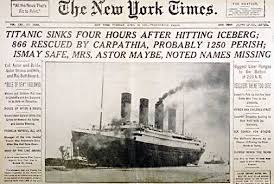


















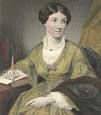

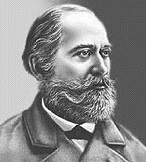


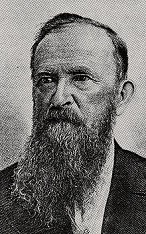
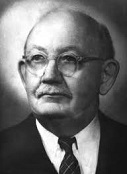

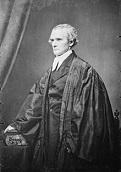
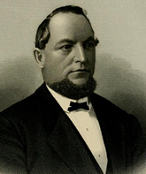

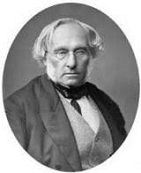



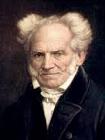

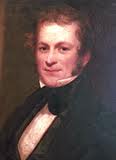
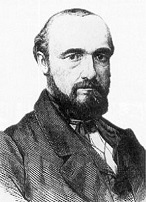
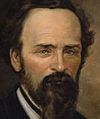






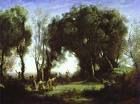

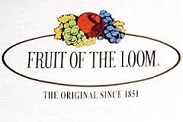

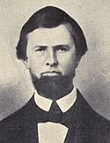
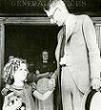


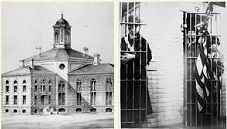
1851 Irish immigration to the U.S. reaches a peak of 221K this year. British pop.: 18M; over 50% are living in urban areas, and 25% live in areas with a pop. greater than 100K; only 15% of the U.S. pop. of 23M is urban. The U.S. influenza epidemic continues. On Jan. 9 Salt Lake City (originally Great Salt Lake City) (modern pop. 180K/560K) is incorporated; a territorial legislature is established on Apr. 5; the pop. of Utah is 11,354 - one Mormon cock to every how many dozen Moron pussies? On Jan. 15 gen. Mariano Arista (1802-55) succeeds Jose Joaquin de Herrera as pres. of Mexico (until 1853). On Jan. 28 Northwestern U. in Evanston (near Chicago), Ill. on the shore of Lake Michigan, founded on May 3, 1850 by nine businessmen led by future Colo. Territory gov. (1862-5) John Evans (1814-97) is chartered by the state of Ill., affiliated with the Methodist Episcopal Church but opening enrollment to all faiths; classes open in 1855; women are admitted in 1869; alumni incl. actors Ann-Margret, Warren Beatty, Stephen Colbert, Zooey Deschanel, Julia Louis-Dreyfus, Marg Helgenberger, Charlton Heston, Jennifer Jones, Cloris Leachman, Shelley Long, Paul Lynde, Meghan Markle, Megan Mulally, Seth Myers, Jerry Orbach, Paula Prentiss, Tony Randall, David Schwimmer, McLean Stevenson, and U.S. Supreme Court justice John Paul Stevens. On Feb. 6 after intense heat and drought in 1850, the Black Thursday Bushfires in Victoria, Australia see the temp in Melbourne peak at 47.2C (117F) at 11:00 a.m., whipping winds up to tornado-like force and starting a fire that burns 5M hectatres and kills 1M sheep, thousands of cattle, and 12 humans; "The temperature became torrid, and on the morning of the 6th of February 1851, the air which blew down from the north resembled the breath of a furnace. A fierce wind arose, gathering strength and velocity from hour to hour, until about noon it blew with the violence of a tornado. By some inexplicable means it wrapped the whole country in a sheet of flame - fierce, awful, and irresistible." (Picturesque Atlas of Austalasia, 1886) On Mar. 5 (early am.) ignoring a June 24, 1850 peace agreement, 400 Sonoran Mexican soldiers led by Col. Jose Maria Carrasco cross into Chihuahua and attack the Chiricahua Apache camp of medicine man Geronimo ("he who yawns") (1829-1909) outside Janos while the men are in town trading, killing 21 Apaches incl. chief Yrigollen, along with Geronimo's wife, children, and mother; chief Mangas Coloradas sends him to Cochise for help, and they declare war on the Mexicans; he goes on to have eight more wives, one after another, while leading a band of 38 men, women, and children against the Mexicans and later the U.S. Army until 1886 - looks like a giant through a dense fog? On Mar. 16 the Spanish govt. signs a Spanish-Vatican Concordat with the Vatican, making the Roman Catholic Church the sole authorized faith, with control of education and censorship - ground control to Major Tom? On Mar. 25 Am. trading post owner James D. Savage discovers the breathtaking Yosemite Valley after Yosemite Indians attack his camp on the Merced River 20 mi. away and he leads a battalion after them. In Mar. Currie, Scotland-born Daniel Dunglas Home (1833-86) (pr. like Hume) begins giving seances in Conn., becoming a celeb with his ability to levitate, speak with dead spirits, and produce rapping and knocking noises, gratefully accepting gifts; too bad, his gifts don't cure his TB, which he dies from. Speaking of the relations between the sexes? In Mar. wealthy married 35-y.-o. mother of four (later seven) (1842-59) Elizabeth Cady Stanton (1815-1902), known as the philosopher of feminism first meets 31-y.-o. self-supporting marriage-hating teacher-activist Susan Brownell Anthony (1820-1906) on a street in Seneca Falls, N.Y., causing the latter to add women's rights to her causes of temperance and abolition. On Apr. 2 Thai king (since 1824) Rama III (b. 1788) dies, and his brother Prince Mongbut becomes Rama IV Mongkut (1804-68) (pr. MON-kuh), Chakri king #4 of Siam based in Bangkok, going on to have 82 children by 39 wives and hire a British governess for his heir apparent Chulalongkorn. On Apr. 6 after freaking at the Gorham Judgment of 1850, Henry Edward Manning (1808-92) (who had once been married to a wife who died of consumption) switches from the Anglican to the Roman Catholic Church, and works his way up to cardinal by 1875. On Apr. 22 Anne Elizabeth "Annie" Darwin (b. 1841), 2nd child and eldest daughter of Charles Darwin and Emma Darwin dies of TB or scarlet fever, freaking Charles out, and turning him decisively to agnosticism (term coined in 1868), splitting ranks with his devout Christian wife for life. On May 1 Queen Victoria inaugurates Prince Albert's Great London Exposition (Great Exhibition of the Works of Industry of All Nations) (Crystal Palace Exhibition) at the Crystal Palace in Hyde Park, London, showing off how Britain is 50 years ahead of the Continent in the Industrial Rev., with pavilions of "new techniques and new industries", introducing Americans and other yokel visitors to bonbons, chocolate creams, and hard candies, among many other modern marvels and wealth of this apotheosis of the British Empire at its height, incl. the mysterious Chinaman, and the Pigtail Organ, which ties the keys to pincers on the tails of swine selected for distinctive pitched squeals; German "cannon king" ironmaker Alfred Krupp (1812-87) exhibits a flawless solid cast steel ingot weighing over two tons, launching his internat. rep. On June 2 the Erie Railroad reaches Dunkirk on Lake Erie, becoming the first railway to make connection with the Great Lakes. On June 2 the Maine Prohibition Law of 1851, sponsored by Quaker Portland mayor (1851) Neal S. Dow (1804-97), "the Napoleon of Temperance", "Father of Prohibition" is signed, becoming a model, causing other states to follow suit, incl. R.I. (1852-62), Vt. (1852-3), Mass. (1852-68), Mich. (1853-75), Conn. (1854) Ohio (1854), N.Y. (1854), Ind. (1855), Penn. (1855), Iowa (1855), N.H. (1855), Del. (1855), Neb. (1855), and Kan. (1880); Maine's law is repealed in 1856. On June 20 the San Jose Mercury News (originally the "San Jose Weekly Visitor" until 1883, then the "San Jose News") is founded in San Jose, Calif.; in 1942 the "Mercury" acquires it, merging in 1983, soon discontinuing its afternoon ed., becoming a key chronicler of the rise of the computer industry in Silicon Valley; in 1952 it is acquired by Ridder, which merges with Knight in 1974 to form Knight-Ridder, which is acquired on Mar. 13, 2006 by the McClatchy Co., which renames it "The Mercury News"; in 2016 the "San Mateo County Times" merges with it. In summer the Runaway Officials of 1851, federal Judge Perry Brocchus, federal Judge Lemuel Brandenbury, and Utah Territorial secy. Broughton Harris arrive in Utah, enjoying festive welcomes but soon coming into conflict with Mormon settlers over polygamy and the admin. of new territorial gov. Brigham Young, and all leaving by the end of Sept., with their posts remaining unfilled for the next two years. In summer new Roman Catholic bishop of N.M. (since July 23) Jean-Baptiste Lamy (1814-88) arrives in Santa Fe, N.M., going on to build it up, establish churches, parishes, and schools, and end the marriage of priests and religious brotherhoods, becoming Santa Fe's first archbishop on Feb. 12, 1875, and later becoming the subject of Willa Cather's 1927 novel "Death Comes for the Archbishop". In July 1 the city of Melbourne (founded Aug. 30, 1835) (modern-day pop. 4.7M) becomes the capital of the new British colony of Victoria in S Australia; meanwhile in Feb. gold is discovered in New South Wales at Bathurst by Edward Hargraves, who had just come from the gold fields of Calif.; on Aug. 21 gold is discovered in Victoria at Golden Point near Ballarat, and in Sept. at Bendigo Creek, sparking a new gold rush that swells Melbourne's pop. by 500K in a decade (3x), the whites systematically pushing the aborigines out of the way onto reserves and missions. On July 4 Congress authorizes a new U.S. flag with 31 stars (design #13) - which now incl. California, the land of fornication, swimming pools, and movie stars? On July 4 Pres. Fillmore leads a ceremony for the laying of the "cornerstone of the new Capitol edifice"; Sen. Daniel Webster gives his last 4th of July oration. On Sept. 14 the town of Seattle, Wash. on Puget Sound at the mouth of the Duwamish River is claimed by a large party of settlers led by Luther Collins; on Nov. 13 another party from Knox County, Ill. via Portland, Ore. led by Salem, Ind.-born Arthur Armstrong Denny (1822-99) claim Alki (Battery) (Roberts) (Me-Kwah-Mooks) Point (West Seattle), moving to the E shore of Elliott Bay at modern-day Pioneer Square and naming their settlement after Duwamish-Suquamish chief Seattle (Sealth) (Si'ahi) (1786-1866). On Sept. 17 the Treaty of Ft. Laramie is signed with the Sioux, Cheyenne, Arapaho, Shoshone, Assiniboine, Mandan, Hidatsa, and Arikara tribes, promising control of the Great Plains to them "as long as the river flows and the eagle flies"; they promise safe passage to whites on the Oregon Trail in return for a $50K annuity for 50 years, with permission for palefaces to build roads and forts to protect them; NE Colo. is given to the Southern Cheyenne and Arapahoe tribes; ratified by the U.S. Senate in 1853 after changing 50 years to 10, which the Crows don't agree too, as if that stops them?; of course, the feds renege on the payments to several of the tribes, but it creates peace long enough to let them build roads and forts, hehe. On Sept. 18 the 1-cent The New York Times (NYT) (originally the New-York Daily Times until Sept. 14, 1857, and the New-York Times until Dec. 1, 1896)) newspaper begins pub., ed. by Henry Jarvis Raymond (1820-69), who goes on to become an Abe Lincoln supporter; on Apr. 21, 1861 it begins pub. a Sun. ed.; "We shall be Conservative, in all cases where we think Conservatism essential to the public good; - and we shall be Radical in everything which may seem to us to require radical treatment and radical reform. We do not believe that everything in Society is either exactly right or exactly wrong; - what is good we desire to preserve and improve; - what is evil, to exterminate, or reform"; in 1896 it is purchased by Jewish publisher Adolph Simon Ochs (1858-1935), who coins the slogan "All the News That's Fit to Print", and passes it to his son Arthur Hays Sulzberger (1891-1968), who passes it to his son Arthur Ochs "Punch" Sulzberger Sr. (1926-2012), who passes it to his son Arthur Ochs Sulzberger Jr. (1951-). On Sept. 22 Harvard-educated Watertown, Mass.-born Benjamin Robbins Curtis (1809-74) becomes the 31st U.S. Supreme Court justice (until Sept. 30, 1857) to replace Levi Woodbury (1845-51), giving the court nine members; he goes on to become one of the two dissenters in the Dred Scott case, and resigns in protest. Adolph Simon Ochs (1858-1935). In Sept. a meeting of 10K Indians representing eight Northern Plains tribes, called by U.S. govt. agent (former mountain man) Thomas "Broken Hand Tom" "White Hair Tom" Fitzpatrick (1799-1854) near Ft. Laramie, Wyo. ends with the govt. offering to pay thousands of dollars in trade goods per year in exchange for safe passage of whites through their territories, tricking them into agreeing into tribal reservations with fixed boundaries that mess up their entire way of life and make them dependent on white handouts; in 1853 a similar treaty is negotiated with the Southern Plains tribes - now we got them where we want them? On Oct. 31 (Oct. 19 Old Style) Peter II (b. 1813) dies, and after a short power struggle his nephew Danilo Petrovic Njegos (backed by the Russian tsar) becomes prince-bishop (knjaz-vladika) Danilo II (1826-60) of Montenegro (until Aug. 13, 1860), going on to separate church and state and drop his title of bishop and be satisfied with being the big knjaz - Jazzy Dan? On Nov. 11 after four other supreme dirs. come and go, Jose Laureano Pineda Ugarte (1802-53) becomes supreme dir. of Nicaragua, and sticks around until Apr. 1853, moving the capital to Managua to end the rivalry between Leon and Granada. On Dec. 2 after Victor Hugo (1802-85), Jules Favre (1809-80) et al. try to organize an armed insurrection against pres. Charles Louis Napoleon, he stages his own coup and overthrows the 2nd French Repub. (founded 1848), seizing dictatorial powers; the incident is used by British PM John Russell to force the resignation of crowd-pleasing but arbitrary foreign secy. (since 1846) Lord Palmerston for supporting the coup, which weakens his cabinet and causes the popularity of Victoria and Albert to tank; Hugo flees to Belgium, then the island of Jersey, then the island of Guernsey in 1855-70, churning out anti-Napoleon verse propaganda and his masterpiece "Les Miserables". On Dec. 24 the Library of Congress in Washington, D.C. burns, destroying 35K vols. On Dec. 29 the first Young Men's Christian Assoc. (YMCA) in the U.S. is organized at the Old South Church in Boston, Mass. by missionary Capt. Thomas Valentine Sullivan (1800-59). In Dec. ex-slave Sojourner Truth (1797-1883) delivers her famous And Ar'n't I a Woman Speech at a women's rights convention in Akron, Ohio. Rama Varma IV dies, and Kerala Varma IV (d. 1853) becomes king of Cochin in SW India (until Feb. 1853). Prince Otto von Bismarck, a member of the Prussian Diet in 1847 and 1849 represents Prussia at the Diet of the Germanic Confederation in Frankfurt-am-Main (until 1858), with the gen. goal of uniting Germany under Prussian leadership with Austria thrust out because of its large non-German pop.; meanwhile the German black-gold-red flag is seen as an insult because black-gold represent the Hapsburg Dynasty, and only red is a "true" German color? Honduras and Guatemala go to war. Spain attacks Sulu (which still runs a large slave market), destroys the capital at Jolo, and forces the sultan to make concessions and acknowledge Spanish suzerainty. The Colorados conclude an alliance with Brazil and the State of Entre Rios, which had revolted against the Argentine Confederation, then defeat Manuel Oribe and the Blancos, bringing Jose Fructuoso Rivera and the Colorados to power in Uruguay, with the Blancos continuing to challenge them for the rest of the cent., but never gaining control for long. A civil war led by liberal mine owner Pedro Felix Vicuna (Félix Vicuña Vicuña) Aguirre (1805-74) erupts in the N mining districts of Chile to protest British control; the conservatives respond by putting ultra-conservative Manuel Montt Torres (1809-80) in power as pres. (until 1861), and he shows his stripes by nullifying a treaty promising amnesty next year. The Danes finally establish control of German-agitated Schleswig. The town of Dutch Flat, Calif. (AKA Dutchman's Flat, Dutch Charlie's Flat, Charley's Flat) in Placer County 30 mi. NE of Auburn is founded by German-born miners Joseph Dornbach and Charles Dornbach S of Green Valley and W of fellow gold mining camps Cold Springs (Gold Run), Calif. and Little York, Nev., going on to become an important stagecoach stop in 1864-6 until the railroad reaches Cisco 20 mi. away, then becoming known for its large Chinatown, which burns down in 1877, after which it becomes known as the Athens of the Foothills, attracting Mark Twain, Bret Harte et al. Ft. Defiance in Navajo country is built, becoming the first U.S. fort in Ariz. The city of Oakland, Calif. on the E side of San Francisco Bay (modern-day pop. 420K) is founded by Galway, N.Y.-born Horace Walpole Carpentier (1824-1918), Edson Adams, and Andrew Moon; it is is incorporated on May 4, 1852, and reincorporated on Mar. 25, 1854, with Carpenter as mayor #1 (until Mar. 8, 1855). Indiana adopts a new Indiana Constitution. The 1851 U.S. Indian Appropriations Act allocates funds to move Indian tribes onto reservations supposedly to protect them from whites; more are passed in 1871, 1885, and 1889. Mt. Pelee on Martinique, West Indies erupts (last 1762, next 1902). The Mass. Supreme Court (chief justice Lemuel Shaw) refuses to release fugitive slave Thomas Sims and justifies the constitutionality of the 1850 Fugitive Slave Act. The old title of Count of Battenberg, which had died out in 1314 is revived; in 1917 they change the name to Mountbatten, which means the same thing. The Eastern Steam Navigation Co. is chartered in Britain to trade with India, Australia, and the Far East. The city of Portland, Ore. (modern pop. 380K/1M) (founded 1845) on the Willamette River is incorporated. The town of Prairie Rapids, Iowa changes its name to Waterloo, Iowa. The first public school opens in Ore. German explorer Heinrich Barth (1821-65) crosses the Sahara Desert twice, becoming the first white Euro to visit Adamawa; in Kukawa he discovers the Arabic Girgam, he royal chronicle of the Kanem-Bornu Empire around Lake Chad (700-1376), listing 69 rulers - hello, I need to talk to the general? Married Scottish Congregationalist missionary explorer David Livingstone (1813-73) begins exploring Africa looking for a route to the interior from the E or W coast while vainly attempting to Christianize the natives, traveling N from Cape Town to the Zambezi (Bantu "mbeze" = fish) River, then W to Loanda on the Atlantic coast, then backtracking to the Zambezi River, attempting to follow it to its mouth in the Indian Ocean. The Prussian govt. bans kindergartens (until 1860); kindergarten messiah Friedrich Froebel moves to Marienthal under the patronage of the duke of Weimar. The Internat. Org. of Good Templars is founded in Utica, N.Y. to promote total abstinence from intoxicating liquors and world peace; it goes on to spread to England and Scandinavia and plays a role in founding the U.S. Prohibition Party in 1869 and the Women's Christian Temperance Union in 1874. The railroad reaches Pittsburgh, Penn., causing its iron and steel industries to mushroom, giving it the names "Smoky City", "Steel City", and "Workshop of the World". The U.S. Mint begins issuing 3-cent silver coins (until 1873) to coincide with its new 3-cent stamps. Alexandre Dumas pere moves to Brussels. Maine-born Bowdoin College grad John Babson Lane Soule (1815-91) coins the saying "Go West, young man!" in an article in the Terre Haute Express; in 1865 Horace Greeley (1811-72) adopts the line in the New-York Tribune, with the soundbyte "Go West, young man, and grow up with the country", and tries in vain to give proper credit to Soule, but later it is doubted that he deserves it. Karl Marx is hired as the London correspondent of Horace Greeley's New York Herald Tribune, going on to whine about his $5 per article salary, after which he quits and goes full-time promoting Communism; a great what-if, if Greeley had paid him more? The city of San Bernardino, Calif. (modern-day pop. 209K/4.2M) (originally the 1810 Spanish settlement of Politana, named for Bernardino of Sienna) is founded by Mormons, who form San Bernardino County in 1853, and incorporate the city in 1857; in 1857 most of the colonists are recalled to Utah by Brigham Young to fight the Utah War; in 1860 William F. Holcomb discovers gold in nearby Holcomb Valley, causing a pop. spurt. Victoria U. of Manchester (originally Owens College) is founded in liberal-minded Manchester, England by texile merchant John Owens (1790-1846). The Landmarkist Movement is founded in the Am. South by James Robinson Graves (1820-93) and Benjamin Marcus "Ben" Bogard (1868-1951), reacting to religious progressivism by claiming that the Baptist movement began in Apostolic times, and has continued in unbroken continuity to the present despite massive persecution by the Roman Catholic Church, Lutherans et al.; too bad, in 1859 the Southern Baptist Convention repudiates it, causing a schism by the Am. Baptist Assoc. (1924), Baptist Missionary Assoc. of Am., and the Interstate and Foreign Landmark Missionary Baptist Assoc.; in 1928 Bogard successfully lobbies for an Ark. state law banning the teaching of Darwin's Theory of Evolution in public schools, which is overturned by the U.S. Supreme Court in 1968; in 1931 Ark.-born Tex. Baptist minister James Milton Carroll (1870-1931) pub. the booklet The Trail of Blood: Following the Christians Down through the Centuries; or, The History of Baptist Churches from the Time of Christ, Their Founder, to the Present Day, a bestseller promoting Landmarkism, which is used to modern times. The Pearl of Great Price (Matthew 13) is pub. by Franklin Dewey Richards (1821-99) of Liverpool, England (one of two men who survived the mob attack in the Carthage, Ill. jail that killed Joseph Smith Jr.), containing "a selection of choice materials touching many significant aspects of the faith and doctrine of The Church of Jesus Christ of Latter-day Saints. These items were produced by Joseph Smith and were published in the Church periodicals of his day"; it incl. Joseph Smith Jr.'s 1842 Articles of Faith, The Book of Moses, incl. Joseph Smith Jr.'s revision of the first six chapters of Genesis, The Book of Abraham, written in 1835 by Joseph Smith Jr. allegedly by translating ancient Egyptian papyri purchased at a traveling mummy exhibition, claiming it was written by Biblical patriarch Abraham; too bad, after most of them are lose in the 1871 Great Chicago Fire, fragments are discovered in 1966 in the Metropolitan Museum of Art and examined by Egyptologists, who find that Smith's translation is bogus. The Burning Waste of Clackmannan, a 30-y.-o. 26-acre fire at the South Sauchie Colliery in England is finally stopped by British inventor Sir Goldsworthy Gurney, who uses a steam jet (which he claims to have invented) to inject 8M cu. ft. of chokedamp (nitrogen and CO2), followed by water three weeks later. The first cheese factory is opened in Rome, N.Y., and it begins to disappear as a cottage industry? Castle & Cook is founded in Hawaii as a gen. store by missionary businessmen Samuel Northrup Castle (1808-94) and Amos Starr Cooke (1810-71), expanding into shipping, railroad and sugar production, and seafood packing; in 1932 it acquires 21% of the Hawaiian Pineapple Co., founded in 1901 by "Pineapple King" James Drummond Dole (1877-1958), cousin of Hawaiian gov. Sanford Ballard Dole (1844-1926), acquiring the rest in the 1960s along with the Standard Fruit Co., renaming it the Dole Food Co. in 1991, becoming the #3 largest producer and importer of bananas in the U.S. The town of Hartshorne, Okla. (pr. like hearts orn) in Pittsburg Count, SE Okla. is founded to work the coal mines, attracting immigrants from the U.K., Italy, and E Europe, ending up with 20% Native Am. pop.; TLW's father left there in the late 1940s for Denver, Colo., soon meeting his mother, and later finding out that the Winslow Swamp of supposedly worthless land had oil on it, and an oil. co. had purchased it for back taxes, making millions, pissing-him off for life and causing him to fight all the way to the Okla. Supreme Court and lose. Cartoons by John Tenniel (1820-1914) begin appearing in Punch. The Golden Hills News, the first Asian-Am. newspaper begins pub. in San Francisco, Calif. Reuter News Agency (Reuters) is founded by German Jew Baron Paul Julius von Reuter (1816-99) (born Israel Beer Josaphat) in Kassel, Germany, who went into the news agency biz in 1849 at Aachen, sending news to Verviers, Belgium, where the French and Belgium telegraph lines end; the service starts by dispatching telegrams by rail and pigeon post to places unreachable by telegraph, then begins employing news-gathering agents throughout Europe, finally going bigtime in 1858 when the London Times signs up, causing Reuter to become a British citizen and receive the title of baron in 1871 from the Duke of Saxe-Coburg-Gotha - the origin of the Jews control the media conspiracy theory? Edwin Booth replaces his daddy Junius Booth at the Nat. Theater. Thomas Ustick Walter (1804-87) is appointed architect of the U.S. Capitol after winning a competition (ends 1865), going on to design the dome and House and Senate wings. The U. of Minn. is established by the Minn. territorial legislature, and opens in 1869. Canada issues its first postage stamp, the Threepenny Beaver, designed by Sir Sandford Fleming - Canadians love their beavers? Waterford, Ireland, producer of crystal since 1783 quits producing it until 1947. The Fruit of the Loom brand clothing co. is founded in Providence, R.I. by textile mill owner Robert Knight (1826-1912), who trademarks the name in 1871; the name is a play on "fruit of the womb" in the Bible (Psalm 127:3); on Apr. 29, 2002 after filing for Chapter 11 bankruptcy in 1999 it is acquired by Berkshire Hathaway Corp. In 1851 the Valentin Blatz Brewing Co. is founded in Milwaukee, Wisc. by Miltenberg, Bavaria-born Valentin Blatz (1826-94), producing the city's first individually bottled beer in 1874 and becoming the city's third largest brewery by the early 1900s; in 1959 it closes, and the assets are acquired by Pabst Brewing Co. Sports: The Knickerbocker Baseball Team defeats Washington at the Red House Grounds in New York City. The first America's Cup yacht race is held on a 60-mi. course around the Isle of Wight, and the U.S. yacht America defeats the English yacht Aurora, winning a cup worth $500 donated by the Royal Yacht Squadron of England, giving the race its name as the U.S. holds onto the cup against all challengers until 1983. Architecture: In this decade new emperor Napoleon III hires city planner Baron Georges-Eugene Haussmann (1809-91) with instructions to make Paris the most beautiful city in Europe, granting large tracts of land near the city center to him and his financial backers, driving the pop. to the edges of the city, incl. Clichy, La Villette, and Montmartre, the last ending up as a popular drinking area since it is outside the city limits and free of Paris taxes, and the local nuns make wine, going on to become the center of the decadent cabaret nightlife; meanwhile Haussmann reshapes Paris into broad Paris Boulevards and builds the 2,155-acre Bois de Boulogne park on the W side of Paris is founded on the site of the Foret de Rouvray in 1852-8, later containing the Auteuil and Longchamps race courses and the Jardin d'Acclimation; by the 21st cent. it is a park of sin for money, straight and gay; the city eventually grows to 4,082 streets. Charles Street (Suffolk County) Jail in Boston, Mass. opens, designed in the form of a cross with four wings holding 220 8'x10' granite cells, going on to house celeb inmates Malcolm X, and Sacco and Vanzetti along with suffragist protesters and German U-boat POWs; it closes in 1990, and is reopened in 2007 as a luxury hotel. English civil engineer Sir William Cubitt (1785-1861) builds King's Cross Railway Station in NC London for the Great Northern Railway; it opens next year, becoming one of England's busiest. After building his first bldg. facades in New York City last May 7, Catskill, N.Y.-born James Bogardus (1800-74) of the U.S. builds the first three cast iron frame bldgs. in Washington, D.C., patenting his invention. Inventions: Am. physician John Gorrie (1802-55) of Apalachicola, Fla. on May 6 patents (U.S. Patent #8080) the first Refrigerator (ice machine) to help his patients fight tropical diseases; the first demonstration is made to ice champagne for a cotton buyer; too bad, the machine is never produced commercially because of opposition by ice merchants, and he dies broke and humiliated; meanwhile in June the Northern Railroad of N.Y. puts its first "icebox on wheels" into service, and the Ogdensburg and Lake Champlain Railroad begins shipping butter to Boston, Mass. in freight cars carrying ice; too bad, they only work in winter, and dressed beef can't be shipped on ice or it will discolor and lose taste. German scientist Hermann Ludwig Ferdinand von Helmholtz (1821-94) invents the Opthalmoscope for examining the retina, leading to the medical specialty of opthalmology. Japanese inventor Tanaka Hisashige (1799-1881) invents the Myriad (10,000-Year) Clock. Elias Howe of the U.S. patents a fastener system for garments - howe does it work? Dutch army surgeon Antonius Mathysen (Mathijsen) (1805-78) invents the Plaster of Paris Cast. H.D. Ruhmkorff (1803-77) of Paris invents the high tension induction coil. Isaac Merritt Singer (1811-75) of Boston, Mass. invents the continuous stitch sewing machine. On May 6 Linus Yale Jr. (1821-68) of Newport, N.Y. patents the Yale Pin-Tumbler Cylinder Lock (#8,071). The telegraph is first used to direct trains. The first double-decker bus is introduced at the Great Exhibition in London; it is horse-drawn; the first one with a motor comes in 1899. Science: English astronomer royal (1835-81) Sir George Biddell Airy (1801-92) establishes the 4th Prime Meridian at Greenwich, which is internationally recognized in 1884. French physicist Jean Bernard Leon Foucault (1819-68) wows the crowds with his 220-ft. (67m) wire pendulum suspended from the dome of the Pantheon in Paris, proving that the Earth really rotates on its axis. English astronomer William Lassell (1799-1880) discovers Uranus' moons Ariel and Umbriel, starting the tradition of naming Solar System moons after Shakespeare's characters, causing Queen Victoria to ask to meet him when she visits Liverpool, after which he builds a 48-in. telescope in Malta to discover glorious new make-benefit moons for the Queen; no astral body is named after Shakespeare himself until ? French mathematician Joseph Liouville (1809-82) proves the existence of transcendental numbers, whose decimal expansions neither terminate nor repeat. German physician Carl August Reinhold Wunderlich (1815-77) sets 98.6F (37C) as the standard for hummans in good health, later reduced to 98.2F (36.8C); in Jan. 7, 2020 Stanford U. scientists Myroslava Protsiv et al. pub a study in eLife, reporting that it should be 87.9F. The Thue-Morse Sequence, consisting of a series of bit strings recursively concatenated with their negations is first described by French mathematician Eugene (Eugène) Prouhet (1817-67). French Egyptologist Francois Auguste Ferdinand Mariette (1821-81) discovers the ruins of the Serapeum of Saqqara in Saqqara, Egypt, incl. the cool sarcophagi of the Apis bull, and breaks into the tomb on Nov. 12, finding lotsa loot; the French govt. later strikes a deal to share his finds 50-50 with the Egyptian govt., allowing him to found the Egyptian Dept. of Antiquities. English botanist Richard Spruce (1817-93) discovers yage (ayahuasca), the hallucinogenic drink used by Amazonian tribes that is prepared from the bark of giant flowering vines (Banisteria caapi). British East India Co. Maj.-gen. ("Father of Assyriology") Sir Henry Creswicke Rawlinson (1810-95) deciphers ancient Akkadian (Mesopotamiam) (Babylonian) inscriptions after realizing that each letter is a vowel-consonant combination. The lukewarm Love Train, or, There are only two kinds of people, those who think that there is a God, and those who believe they are God? Right in your face mask? English physicist William Thomson (1824-1907) (later Lord Kelvin) begins pub. papers on the laws of conservation and dissipation of energy, generalizing Carnot's 1824 paper and formulating the Second Law of Thermodynamics, the idea of degradation of energy and the eventual heat death of the Universe, in which there is a uniform temperature throughout, hence none of its energy can be converted into useful work; "Though the total energy of the Universe is constant, the amount of free energy decreases steadily"; luckily there is still enough free energy left for trillions of years? Nonfiction: Eliza Allen (1851-?), The Female Volunteer; Or, The Life and Wonderful Adventures of Miss Eliza Allen, a Young Lady of Eastport, Maine (autobio.); how she cross-dressed and fought in the Mexican-Am. War. Charles Anthon (1797-1867), A Manual of Roman Antiquities, with Numerous Illustrations. John McLeod Campbell (1800-72), Christ the Bread of Life. Henry Charles Carey (1793-1879), The Harmony of Interests: Agricultural, Manufacturing, and Commercial; promotes Henry Clay's Am. System of protectionism and govt.-backed developmental capitalism over the "British" laissez-faire system; "Two systems are before the world... One looks to pauperism, ignorance, depopulation, and barbarism; the other to increasing wealth, comfort, intelligence, combination of action, and civilization. One looks towards universal war; the other towards universal peace. One is the English system; the other... the American system, for... elevating while equalizing the condition of man throughout the world." Thomas Carlyle (1795-1881), Life of John Sterling [1806-44]; makes this ever-flopping writer a star? Mary Carpenter (1807-77), Reformatory Schools for the Children of the Perishing and Dangerous Classes and for Juvenile Offenders; essay whips up interest, allowing her to set up her own coed reformatory next year in Kingswood, then after some ahem, problems, she segregates the girls in Red Lodge on Park Row. Rev. Henry Theodore Cheever (1814-97), Life in the Sandwich Islands; or, The Heart of the Pacific, As It Was and Is. Auguste Comte (1798-1857), Systeme de Politique Positive (4 vols.) (1851-4). Sir Edward Shepherd Creasy (1812-78), The Fifteen Decisive Battles of the World: From Marathon to Waterloo; shamelessly Eurocentric; mentioned in Gilbert and Sullivan's 1879 opera "The Pirates of Penzance". George William Curtis (1824-92), Notes of a Howadji. John Bovee Dods (1795-1872), The Philosophy of Electrical Psychology in a Course of Twelve Lectures. Vincenzo Gioberti (1801-52), Il Rinnovamento civile d'Italia. Philip Henry Gosse (1810-88), A Naturalist's Sojourn in Jamaica; makes him "the Father of Jamaican Ornithology". Ferdinand Gregorovius (1821-91), History of the Roman Emperor Hadrian and His Times; The Death of Tiberius. Henry William Herbert (1807-58), The Captains of the Old World as Compared with the Great Modern Strategists. Leigh Hunt (1784-1859), Table Talk. John William Kaye (1814-76), History of the War in Afghanistan. Harriet Martineau (1802-76), Letters on the Laws of Man's Nature and Development. Henry Mayhew (1812-87), London Labour and the London Poor (3 vols.); "extra volume" pub. in 1861. Harriet Taylor Mill (1807-58), The Enfranchisement of Women. Lewis Henry Morgan (1818-81), The League of the Ho-de-no-sau-nee or Iroquois; establishes kinship as one of the two central topics of anthropology, and pleases feminists with the expose of the matrilineal family relationships of the Iroquois. Sir Francis Palgrave (1788-1861), The History of Normandy and England (4 vols.) (1851-64). Willard Parker (1800-84), Cystotomy; founds the field of cystotomy (cutting into an inflamed bladder) for the relief of chronic cystitis - from passionate lover to best friend quick? Francis Parkman (1823-93), The Conspiracy of Pontiac and the Indian War After the Conquest of Canada (2 vols.); dedicated to Jared Sparks (1789-1866). Pierre-Joseph Proudhon (1808-65), General Idea of the Revolution in the Nineteenth Century; Confessions of a Revolutionary; "Anarchy is order without power." Philip Schaff (1819-93), History of the Apostolic Church, With a General Introduction to Church History; English trans. pub. in 1853. Sergey Solovyov (1820-79), History of Russia from the Earliest Times (29 vols.) (1851-79); touts Russia as Christianity's outpost in the East, claiming that Russian statehood was a "natural and necessary development" of social-political forces, calling the Time of Troubles and Peter the Great's reforms as temporary diseases of the organism of the Russian state, influencing a whole generation of Russian historians. Herbert Spencer (1820-1903), Social Statics, or The Conditions Essential to Happiness Specified, and the First of Them Developed; founds modern Sociology; "It is clear that man can become adapted to the social state, only by being retained in the social state." Daniel Stern, Histoire de la Revolution de 1848. David Friedrich Strauss (1808-74), Christian Maerklin (Märklin). Leo Tolstoy (1828-1910), A History of Yesterday (autobio.). Art: Jean-Baptiste-Camille Corot (1796-1875), La Danse des Nymphes; Souvenir de Mortefontaine. Henry Gritten (1818-73), Sunset at Gowanus Bay in the Bay New York. Jean Auguste Dominique Ingres (1780-1867), Madame Moitessier. Music: Stephen Foster (1826-64), Old Folks at Home (Swanee River). Charles Gounod (1818-93), Sappho (opera) (Paris) (first opera). Robert Schumann (1810-56), Symphony No. 3 in E-flat major ("Rhenish") (Feb. 6) (Dusseldorf); written last year; celebrates the Rhineland; has five movements not four; incl. 1st Movement; 2nd Movement; 3rd Movement; 4th Movement; 5th Movement. Giuseppe Verdi (1813-1901), Rigoletto (opera) (Mar. 11) (La Fenice, Venice); based on Victor Hugo's "Le Roi s'Amuse" about a hunchbacked court jester and his beautiful 16-y.-o. sweet young thing daughter Gilda, who is seduced and murdered by the mean horny Duke of Mantua after Rigoletto mocks Count Monterone as he is being unjustly executed and receives a curse; incl. La Donna e Mobile (Woman is Fickle); "Woman is flighty,/ Like a feather in the wind/ She changes her voice and her mind./ Always sweet, pretty face,/ In tears or laughter,/ she is always lying"; beginning of a string of masterpieces for lecherous male supremacists? Plays: Dion Boucicault (1820-90), Love in a Maze. Alexandre Dumas fils (1824-95), Diane de Lys. Henrik Ibsen (1828-1906), Norma; or A Politician's Love; parody of Vincenzo Bellini's opera, written in 10 days in May. Eugene Scribe (1791-1861), The Ladies' Battle (Bataille de Dames) (comedy) (Theatre Francais, Paris). Poetry: Almeida Garrett (1799-1854), Romanciero (1851-3); 32 early Portuguese ballads and romances. August Heinrich Hoffmann von Fallersleben (1798-1874), Liebeslieder; Soldatenlieder (1851-2); incl. Das Lied der Deutschen (Deutschlandlied) (The Song of Germany), sung to music written in 1797 by Joseph Haydn for the birthday of Austrian emperor Francis II; becomes the German nat. anthem in 1922; "Deutschland, Deutschland, uber alles, uber alles in der Welt" (Germany, Germany, above everything, above everything in da whole wide world); meant to be a call for a unified free Germany rather than a fractured Germany filled with despots; too bad, next year he loses his job at the U. of Breslau and has to go into hiding until after the revs. of 1848 - you know it, you love it, chances are you sang along with it at some point? Friedrich Hebbel (1813-63), Mutter und Kind; how the parent-child relationship is the basis of happiness. Heinrich Heine (1797-1856), Romanzero. Henry Wadsworth Longfellow (1807-82), The Golden Legend; Lady Irmingard, Walter, Abbot Ernestus, Friar Claus, Prince Henry, Herod, Barbarossa, Elsie, and Lucifer, Charlemagne and the dead Fastrada; 1910 ed. contains illustrations by Sidney Meteyard (1868-1947). Joseph Roumanille (1818-91), Li Sounjarello. John Ruskin (1819-1900), The Stones of Venice (1851-3). Alfred, Lord Tennyson (1809-92), The Eagle; "He watches from his mountain walls,/ And like a thunderbolt he falls." Novels: Jules Amedee Barbey d'Aurevilly (1808-89), Une Vieille Maitresse (A Former Mistress). George Borrow (1803-81), Lavengro, the Scholar, the Gypsy, the Priest; based on his walking tours in England beginning in the late 1820s; Petulengro (Gypsy "the shoesmith") the Gypsy. Charlotte Bronte (1816-55), Shirley. inah Craik (1826-87), The Head of the Family. Annette von Droste-Hulshoff (1797-1848), The Spiritual Year (Das Geistliche Jahr). William Clark Falkner (1825-89), The Siege of Monterey; The Spanish Heroine. Theodor Fontane (1819-98), Gedichte. Nathaniel Hawthorne (1804-64), The House of the Seven Gables (Apr.); Alice Pyncheon's ghost haunts the house and plays the harpsichord, freaking out shop owner Hepzibah Pyncheon, her cousin Phoebe, and her lover Holgrave; "Halfway down a by-street of one of our New England towns stands a rusty wooden house, with seven acutely peaked gables, facing towards various points of the compass, and a huge, clustered chimney in the midst. The street is Pyncheon Street; the house is the old Pyncheon House; and an elm-tree, of wide circumference, rooted before the door, is familiar to every town-born child by the title of the Pyncheon Elm"; the real House of the Seven Gables is on Pyncheon St. in Salem, Mass. (built in 1668), owned by Hawthorne's cousin Susanna Ingersoll and by ancestors of the perps of the 1692 Salem Witch Trials; "The Past lies upon the Present like a giant's dead body." Alphonse de Lamartine (1790-1869), Genevieve, Histoire d'une Servante. Otto Ludwig (1813-65), Die Heiteretei und ihr Widerspiel. Herman Melville (1819-91), Moby-Dick; or, The Whale (Oct. 18) (6,438 sentences); dedicated to "genius" Nathaniel Hawthorne; the greatest Am. novel until ?; "Call me Ishmael" (opening, by narrator Ishmael, a schoolmaster who takes to the sea every time he sours on the world, and who represents the Philosopher to Ahab's Man's Conflicted Identity and the Whale's Implacable Universe); Melville claims not to know it's allegorical until it's pointed out to him?; "I thought I would travel about and see the watery part of the world"; "I spit my last breath at thee, thou damned whale. Thus, I give up the spear" (Capt. Ahab's last words, as he is strangled by a harpoon rope around his neck); "The Pequod Meets the Virgin" (ch. 81); Ch. 83 is about Biblical prophet Jonah; first mate Starbuck; Queequeg from Kokovoko, with the cool tats; Capt. Ahab has a pegleg carved from the jawbone of a sperm whale; the rescue ship is the Rachel; panned by the critics, then banned in Britain for using "unmentionable" words such as "underclothes"; the U.S. ed. is also panned by the critics, and sells only 2K copies its first year, and 3,797 copies in its first 36 years in print; meanwhile Harriet Beecher Stowe's "Uncle Tom's Cabin" cleans up and helps bury him - the novel is really a commentary on the delusion of white supremacy? Jose Marmol, Amalia. Elizabeth Stuart Phelps (1815-52), Sunny Side; bestseller (100K copies). Births: English ethnographer Sir Herbert Hope Risley (d. 1911) on Jan. 4 in Akeley, Buckinghamshire; educated at Winchester College, and New College, Oxford U.; knighted in 1907. Belgian WWI gen. Gerard Mathieu Leman (d. 1920) on Jan. 8 in Liege. Austrian gen. Rudolf Ritter von Brudermann (d. 1941) on Jan. 9. German chemist Rainer Ludwig Claisen (d. 1930) on Jan. 14 in Cologne; educated at the U. of Bonn, and Gottingen U. German astronomer Carl Ernst Albrecht Hartwig (d. 1923) on Jan. 14 in Frankfurt. Am. icthyologist and Stanford U. pres. (1891-1913) David Starr Jordan (d. 1931) on Jan. 19 in Gainesville, N.Y.; educated at Cornell U. Norwegian Nyorsk realist poet-novelist and language reformer Arne Garborg (d. 1924) on Jan. 25 in Time Island; husband of bunad-loving Hulda Garborg (1862-1934). Austrian economist Eugen Bohm-Bawerk (Bohn von Bawerk) (d. 1914) on Feb. 12 in Brunn. German Paasche Index economist Hermann Paasche (d. 1925) on Feb. 24 in Burg bei Magdeburg. Anglo-Am. tea grower, inventor, and "The Lost Continent of Mu" writer James Churchward (d. 1936) on Feb. 27 in Bridestow, Okehampton; brother of Albert Churchward (1852-1925). Greek linguist Alexandros Pallis (d. 1935) on Mar. 15 in Piraeus; father of Marietta Pallis (1882-1963) and Marco Pallis (1895-1989). Scottish archeologist and New Testament scholar Sir William Mitchell Ramsay (d. 1939) on Mar. 15 in Glasgoe; educated at the U. of Aberdeen, St. John's College, Oxford U., and Gottingen U.; knighted in 1906. Am. heavyweight boxing champ (1880-2) Paddy Ryan (d. 1900) on Mar. 15 in Thurles, Tipperary, Ireland. Dutch microbiologist (discoverer of viruses) Martinus Willem Beijerinck (d. 1931) on Mar. 16 in Amsterdam; educated at Leiden U. German Gen. Friedrich von Scholtz (d. 1927) on Mar. 24 in Flensburg. English lit. scholar Andrew Cecil "A.C." Bradley (d. 1935) on Mar. 26 in Clapham, Surrey; brother of Francis Herbert Bradley (1846-1924); educated at Balliol College, Oxford U. French "Symphony on a French Mountain Air" composer Paul Marie Theodore Vincent d'Indy (d. 1931) on Mar. 27 in Paris. Portuguese pres. #3 (1915-17), PM #59 and #97 (1921), and pres. #8 (1925-6) Bernardino Luis Machado Guimaraes (d. 1944) on Mar. 28 in Rio de Janeiro, Brazil; educated at the U. of Coimbra. Am. Theosophical Society leader William Quan Judge (d. 1896) on Apr. 13 in Dublin, Ireland; emigrates to the U.S. in 1864; becomes U.S. citizen in 1872. French WWI gen. Auguste Yvon Edmond Dubail (d. 1934) on Apr. 15 in Belfort. Am. motion picture producer (Jewish) Siegmund Lubin (Lubszynski) (d. 1923) on Apr. 20 in Breslau (Posen?); emigrates to the U.S. in 1876. German liberal Lutheran theologian-historian Carl Gustav Adolf von Harnack (d. 1930) on May 7 in Dorpat (Tartu), Livonia, Estonia (Russia); educated at the Imperial U. of Dorpat, and U. of Leipzig; created von in 1914. Am. Episcopalian minister (pres. of the Moody Bible Inst., 1904-34) James Martin Gray (d. 1935) on May 11 in New York City. Am. inventor (Jewish) Emil Berliner (d. 1929) on May 20 in Hanover, Germany; emigrates to the U.S. in 1870; father of Henry Berliner (1895-1970). French PM (1895-6) ("spiritual father of the United Nations") Leon Victor Auguste Bourgeois (d. 1925) on May 21 in Paris; educated at the Lycee Charlemagne. French Le Chat Noir cabaret founder Louis Rodolphe Salis (d. 1897) on May 29 in Chatellerault, Vienne. German diplomat Wilhelm Eduard Freiherr von Schoen (Schön) (d. 1933) on June 3 in Worms. U.S. Repub. atty. gen. #46 (1906-9) and U.S. navy secy. #37 (1905-6) Charles Joseph Bonaparte (d. 1921) on June 9 in Baltimore, Md.; son of Jerome Napoleon Bonaparte (1805-7) and Susan May Williams (1812-81); grand-nephew of Napoleon I; educated at Harvard U. British bestselling novelist and suffragist Mrs. Mary Augusta Humphry Ward (nee Arnold) (d. 1920) on June 11 in Hobart, Tasmania; daughter of Thomas Arnold II (1823-1900); granddaughter of Thomas Arnold (1795-1842); niece of Matthew Arnold (1822-88); wife (1872-) of Thomas Humphry Ward (1845-1926). British physicist-writer Sir Oliver Joseph Lodge (d. 1940) on June 12 in Penkhull, Staffordshire; educated at Univ. College, London; knighted in 1902; inventor of the vacuum tube coherer; believes in the ether and in psychic phenomena, and tries to reconcile science and religion. Am. journalist-evangelist (prohibitionist) Samuel White "Sam" Small (d. 1931) on July 3 near Knoxville, Tenn.; educated at Emory and Henry College. English archeologist Sir Arthur John Evans (d. 1941) on July 8 in Nash Mills, Hertfordshire; educated at Brasenose College, Oxford U.; student of Edward Augustus Freeman (1823-92); knighted in 1892. Austrian economist Friedrich Freiherr von Wieser (d. 1926) on July 10 in Vienna; coiner of the term "marginal utility" (Grenznutzen). Czech Pick's Disease psychiatrist (Jewish) Arnold Pick (d. 1924) on July 20 in Gross Mesertisch, Austria; grows up in Velke Mezirici. Am. outlaw Samuel "Sam" Bass (d. 1978) on July 21 in Mitchell, Ind. English celeb (Jewish) (richest woman in England) Hannah Primrose (nee Rothschild), Countess of Rosebery (nee de Rothschild) (d. 1890) on July 27; daughter of Baron Mayer de Rotschild; granddaughter of Nathan Mayer Rothschild; wife (1878-) of Archibald Primrose, 5th earl of Rosebery (1847-1929). Am. Goldman Sachs banker (Jewish) Samuel Sachs (d. 1935) on July 28 in Md.; Bavarian Jewish immigrant parents; son-in-law of Marcus Goldman (1821-1904). Armenian leader Boghos Nubar Pasha (d. 1930) on Aug. 2 in Constantinople; son of Nubar Pasha (1825-99). Irish physicist (co-discoverer of the Lortenz-FitzGerald Contraction) George Francis FitzGerald (d. 1901) on Aug. 3 in Dublin; educated at Trinity College, Dublin. Am. Ethical Culture movement founder (Jewish) Felix Adler (d. 1933) on Aug. 13 in Alzey, Germany; son of rabbi Samuel Adler (1809-91); educated at Columbia U., and Heidelberg U. Greek sculptor Yannoulis Chalepas (d. 1938) on Aug. 14 in Pyrgos, Tinos. Am. gun-slinging dentist (Presbyterian)John Henry "Doc" Holliday (d. 1887) on Aug. 14 in Griffin, Ga.; of English and Scottish ancestry; grows up in Valdosta, Ga.; educated at the U. of Penn.; mother Alice and adopted brother Francisco die of TB; uncle of novelist Margaret Mitchell, who models Ashley Wilkes after him. Scottish "The Greatest Thing in the World", "The Ascent of Man" theologian-biologist Henry Drummond (d. 1897) on Aug. 17 in Stirling; educated at the U. of Edinburgh. Am. Hires Root Beer creator (Quaker) Charles Elmer Hires (d. 1937) on Aug. 19 in Philadelphia, Penn. Am. theatrical mgr.-producer (Jewish) Daniel Frohman (d. 1940) on Aug. 22 in Sandusky, Ohio; brother of Gustav Frohman (1854-1930) and Charles Frohman (1856-1915). Austrian mystic (Freemason) Carl Kellner (d. 1905) on Sept. 1; founder of the Ordo Templi Orientis (OTO) (1895); not to be confused with the German optician (1826-55). Am. medical pioneer army surgeon Walter Reed (d. 1902) on Sept. 13 in Belroi, Gloucester County, Va.; educated at the U. of Va. Spanish "Los Pazos de Ulloa" realist novelist (feminist) Emilia Pardo Bazan (Bazán) (d. 1921) on Sept. 16 in La Coruna, Galicia. English Lever Bros. soap manufacturer William Hesketh Lever, 1st Viscount Leverhulme (d. 1925) on Sept. 19 in Bolton, Lancashire; created baron in 1917, and viscount in 1922, the "hulme" part being in honor of his wife Elizabeth Ellen Hulme. English "Saints and Sinners" dramatist Henry Arthur Jones (d. 1929) on Sept. 20 in Granborough, Buckinghamshire; son of a farmer; starts out as a traveling salesman. French marshal (WWI CIC of Allied forces) Ferdinand Foch (d. 1929) on Oct. 2 in Tarbes; educated at St. Etienne Jesuit College - I wonder what his motto is? Am. Biblical scholar (Freemason) George Foot Moore (d. 1931) on Oct. 15 in West Chester, Penn.; educated at Yale U. (Skull & Bones); not to be confused with writer George Moore (1852-1933). U.S. Rep. (D-Ky.) (1885-9) William Preston Taulbee (d. 1890) on Oct. 22 in Morgan County, Ky. Am. Dow Jones & Co. cofounder (1882) Charles Henry Dow (d. 1902) on Nov. 6 in Sterling, Conn. Scottish embryologist Francis "Frank" Maitland Balfour (d. 1882) on Nov. 10 in Edinburgh; brother of Arthur Balfour (1848-1930); educated at Harrow School, and Trinity College, Cambridge U.; not to be confused with Frances Balfour (b. 1858). Am. botanist John Merle Coulter (d. 1928) on Nov. 20 in Ningbo, China; missionary patents; brother of Stanley Coulter (1853-1943); educated at Hanover College, and U. of Ind. Belgian "Patriotism and Endurance" Thomist philosopher Cardinal Desire Felicien Francois Joseph (Désiré-Félicien-François-Joseph) Mercier (d. 1926) on Nov. 21 in Braine-l'Alleud; educated at the U. of Louvain, and U. of Paris. English Vanity Fair portraitist-caricaturist Sir Leslie Matthew Ward (d. 1922) (AKA Spy, Drawl) on Nov. 21; son of Edward Matthew Ward (1816-79); known for following celebs around then painting them from memory. Canadian gov.-gen. (1904-11) Albert Henry George Grey, 4th Earl Grey (d. 1917) on Nov. 28; nephew of the 3rd earl Grey (1802-94); educated at Harrow School, and Trinity College, Cambridge U. Am. librarian (inventor of the Dewey Decimal System) Melvil (Melville Louis Kossuth) Dewey (d. 1931) on Dec. 10 in Adams Center, N.Y.; educated at Amherst College. German chemist (inventor of borosilicate glass) Friedrich Otto Schott (d. 1935) on Dec. 17 in Witten. Swedish economist Johan Gustaf Knut Wicksell (d. 1926) on Dec. 20 in Stockholm. French WWI gen. ("the Fighting Friar") Noel Marie Joseph Edouard, Vicomte de Curieres de Castelnau (Noël Marie Joseph Édouard, Vicomte de Curières de Castelnau) (d. 1944) on Dec. 24 in Saint-Affrique. Am. Coca-Cola Co. founder and mayor #41 of Atlanta, Ga. (1916-19) (Methodist) Asa Griggs Candler (d. 1929) on Dec. 30 in Villa Rica, Carroll County, Ga. British Capt. Frederick Courteney Selous (d. 1917) on Dec. 31 in London; basis of H. Rider Haggard's char. Allan Quatermain. Scottish golfer "Young" Tom Morris (d. 1875) in St. Andrews; son of "Old" Tom Morris (1821-1908). Spanish painter Luis Ricardo Falero (d. 1896) in Granada. Cameroon Duala king (1897-1908) (black) Auguste Manga Ndumbe Bell (d. 1908); son of Ndumbe Lobe Bell (1839-97); father of Rudolf Duala Manga Bell (1873-1914). Italian Socialist leader Andrea Costa (d. 1910) in Imola; starts out an anarchist then turns Socialist after marrying Russian Socialist Anna Kulischov (1857-1925). Am. amateur archeologist and cowboy (black) George McJunkin (d. 1922) (b. 1856?) n Midway, Tex.; born a slave. Irish nationalist leader John Dillon (d. 1927). Am. double acrostic inventor (1934) Elizabeth S. Kingsley (nee Seelman) (d. 1957) in Brooklyn, N.Y.; educated at Wellesley College. Deaths: Am. Rev. hero David Kennison (b. 1736) in Ill.; longest surviving participant in the Boston Tea Party; had his hand shot off at Sackett's Harbor in the War of 1812; later a tree fell on his head and fractured his skull; afterward a cannon shattered both legs and left him with sores which never healed; later a horse kicked him, mutilating his face; finally he got rheumatism, but died a quiet death at 115 - is coffee that good for you? English schoolmaster Thomas Wright Hill (b. 1763) on June 13 in Tottenham. French PM (1832-4, 1839-40, 1840-7) marshal Nicolas Jean de Dieu Soult, duke of Dalmatia (b. 1769) on Nov. 26 in Saint-Amans-Soult. British-born German king of Hanover (1837-51) Ernest Augustus I (b. 1771) on Nov. 18 in Hanover. French diplomat Horace Francois Bastien Sebastiani de La Porta (b. 1771) on July 20 in Olmeta-di-Tuda, Corsica; his funeral is held at Les Invalides and is attended by Pres. Charles Louis Napoleon Bonaparte. French gen. Etienne Maurice Gerard (b. 1773) on Apr. 17. English politician Edward Smith-Stanley, 13th earl of Derby (b. 1775) on June 30. English #1 landscape painter J.M.W. Turner (b. 1775) on Dec. 19 in Cheyne Walk, Chelsea, London; last words: "The Sun is God"; buried next to Sir Joshua Reynolds in St. Paul's Cathedral. Danish scientist Hans Christian Oersted (b. 1777) on Mar. 9 in Copenhagen. English antiquary James Ford (b. 1779) on Jan. 31 in Navestock, Essex; leaves a bequest for a professorship of English history at Oxford U., which become the Ford Lectureship (1896). Am. poinsettia-loving diplomat Joel R. Poinsett (b. 1779). Italian patriot poet Giovanni Berchet (b. 1783). German Draisienne inventor Karl von Drais (b. 1785) on Dec. 10 in Karlsruhe; dies broke after renouncing his title in 1848 and getting his pension confiscated by Prussia for supporting the rev. Am. Jewish writer-activist Mordecai Manuel Noah (b. 1785) on Mar. 22, 1851. French photographer Louis Jacques Daguerre (b. 1787) on July 10; dies as his admirer Mathew Brady sets sail from the U.S. to meet him. Am. deaf education pioneer Rev. Thomas Hopkins Gallaudet (b, 1787) on Sept. 10 in Hartford, Conn. Russian adm. Mikhail Lazarev (b. 1788) on Apr. 11. Thai king (1824-51) Rama III (b. 1788) on Apr. 2. Am. "Last of the Mohicans" novelist James Fenimore Cooper (b. 1789) on Sept. 14 in Cooperstown, N.Y.: "A monarchy is the most expensive of all forms of government." U.S. Supreme Court justice #29 (1845-51) Levi Woodbury (b. 1789) on Sept. 4 in Portsmouth, N.H. Am. Graham cracker man Sylvester Graham (b. 1794) on Sept. 11 in Northampton, Mass. English "Frankenstein" writer Mary Wollstonecraft Shelley (b. 1797) on Feb. 1 in Chester Square, London; buried next to her hubby Percy Bysshe Shelly with a copy of his "Adonais" (1821) - did they try the electric revival method on her? Am. Tex. vice-pres. #3 (1841-4) Edward Burleson (b. 1798) on Dec. 26. Am. natural scientist Samuel George Morton (b. 1799) on May 15 in Philadelphia, Penn.; "We of the South should consider him as our benefactor for aiding most materially in giving to the negro his true position as the inferior race." (Charleston Medical Journal) German hydrotherapy inventor Vincenz Priessnitz (b. 1799) on Nov. 28 - all washed up? German composer Albert Lortzing (b. 1801). German mathematician Carl Jacobi (b. 1804) on Feb. 18. Persian chancellor (1848-51) Amir Kabir (b. 1807) on Jan. 10 in Kashan (assassinated). Montenegran prince-bishop Peter II (b. 1812). German painter F.A. Tischbein (b. 1812). Montenegro ruler (1830-51) Peter II (b. 1813) on Oct. 31 in Cetinje; last of the Vladikas Dynasty.




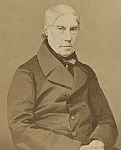


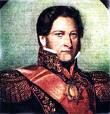


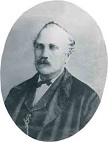

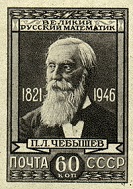
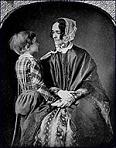



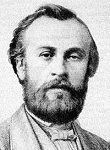
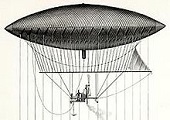









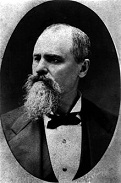


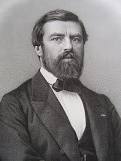

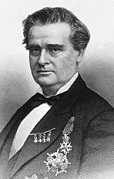








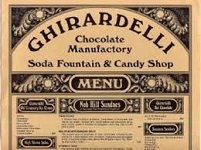
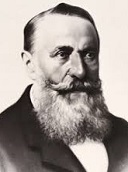
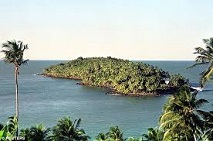
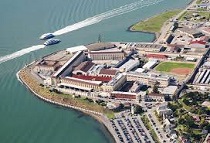
1852 The 3rd Cholera Pandemic of the 19th Cent. begins (ends 1860), causing 1M deaths in Russia, and 10,738 deaths in London in 1853-4. The first major wave of Chinese immigration to the U.S. is a breathtaking 20K. On Jan. 14 the 1852 French Constitution gives pres. Charles Louis Napoleon Bonaparte monarchical powers, and he bans the rival Orleans family from France and calls a plebiscite in support of a revival of the empire; on Jan. 28 the Roman Catholic Second French Empire (ends Sept. 1870) is declared by self-styled emperor Napoleon III (Charles Louis Napoleon Bonaparte) (1808-73) (nephew of Napoleon I), who utters the soundbyte: "L'empire, c'est la paix" (The art of empire is peace). On Jan. 17 the Sand River Convention is signed by Britain, recognizing the independence of the Transvaal (South African) Repub. (Zuid-Afrikaanische Republiek) (ZAR) (until May 31, 1902) under Marthinus Wessel (Wessels) Pretorius (1819-1901), son of Boer leader Andries Pretorius, who becomes pres. #1 (until Sept. 15, 1860); the British recognize the independence of the Transvaal Boers and drop the reward on Andries Pretorius, who makes peace with warring Boer factions, visits Durban to discuss opening trade, then sends a commando force against Bechuanaland king Sechele, which loots the house of missionary David Livingstone at Kolobeng - '52 was a very unboering year? On Feb. 3 an alliance of troops from Brazil and Uruguay, led by gen. Justo Jose de Urquiza y Garcia (1801-70), gov. of Entre Rios defeats the Argentine Confederation led by Gen. Juan Manuel Jose Domingo Ortiz de Rosas (1793-1877) at the Battle of Monte Caseros near Buenos Aires with a 24K-man army (largest in South Am. so far), causing him to flee. On Feb. 21, 1852 British PM (since June 30, 1846) John Russell resigns, and on Feb. 23 Conservative Edward Smith-Stanley, 14th Earl of Derby (1799-1869) becomes British PM (until Dec. 17); on Dec. 19 Peelite George Hamilton-Gordon, 4th Earl of Aberdeen (1784-1860) (AKA Lord Haddo) becomes British PM (until Jan. 30, 1855). On Feb. 26 iron-hulled steam frigate and troop ship HMS Birkhead wrecks near Gansbaii 87. mi. from Cape Town en route to Algoa Bay, losing all but 193 of 643 aboard, becoming the first use of the Birkenhead Drill, "women and children first"; the last use is RMS Titanic in 1912. On Mar. 2 the U.S. Supreme (Taney) Court rules 6-2 in Cooley v. Board of Wardens that a Penn. law requiring all ships entering or leaving Philly to hire a local pilot does not violate the Commerce Clause, with Justice Benjamin R. Curtis writing the soundbyte: "It is the opinion of a majority of the court that the mere grant to Congress of the power to regulate commerce, did not deprive the States of power to regulate pilots, and that although Congress had legislated on this subject, its legislation manifests an intention, with a single exception, not to regulate this subject, but to leave its regulation to the several states." On Mar. 13 Uncle Sam makes his cartoon character debut in the New York Lantern. On Mar. 18 Wells Fargo and Co. is founded in New York City by Henry Wells (1805-78) and William George Fargo (1818-81) to provide express and banking services to Calif.; in 1866 it buys the stagecoach and overland mail business of "Stagecoach King" Benjamin "Ben" Holladay (1819-87), giving it a monopoly; it goes on to become the 5th largest bank in the U.S. and 9th largest in the world by the 21st cent. On Mar. 20 Litchfield, Conn.-born teacher Harriet Elizabeth Beecher Stowe (1811-96) pub. her compelling, tear-jerking, rabble-rousing, widely-translated anti-slavery novel Uncle Tom's Cabin (pub. starting June 5, 1851 in 10 monthly installments in Nat. Era, then as a book on Mar. 20, 1852), selling 300K copies in its first year then going on to become the first million-selling novel, the #1-selling novel in the world in the 19th cent., and #2 after the Bible. On Apr. 9 Brigham Young gives a sermon at the LDS Church spring gen. conference in Salt Lake City, Utah, which begins: "When our father Adam came into the garden of Eden, he came into it with a celestial body, and brought Eve, one of his wives, with him. He helped to make and organize this world. He is MICHAEL, the Archangel, the ANCIENT OF DAYS! about whom holy men have written and spoken—He is our FATHER and our GOD, and the only God with whom WE have to do. Every man upon the earth, professing Christians or non-professing, must hear it, and will know it sooner or later"; he adds: "When the Virgin Mary conceived the child Jesus, the Father had begotten him in his own likeness. He was not begotten by the Holy Ghost. And who is the Father? He is the first of the human family", addind that Adam "was begotten by his Father in heaven" in the same way that Adam begat his own sons and daughters, and that there were "three distinct characters, namely, Eloheim, Yahovah, and Michael", concluding: "Jesus, our elder brother, was begotten in the flesh by the same character that was in the Garden of Eden, and who is our Father in Heaven", finishing with: "I could tell you much more about this; but were I to tell you the whole truth, blasphemy would be nothing to it, in the estimation of the superstitious and overrighteous mankind... Now, let all who may hear these doctrines, pause before they make light of them, or treat them with indifference, for they will prove their salvation or damnation." LSD is taken with a cube of sugar, LDS is taken with a pinch of salt? This is his first public explanation of his Looney Tunes Adam-God Doctrine (Theory), that Adam started out as a mortal man who died, was resurrected, and exalted into a god on another planet, then came as Michael the Archangel to this neck of the Universe to create Earth, bringing one of his many wives named Eve, who messed up by eating the forbidden fruit in the Garden of Eden, making them both mortal again, after which they bred and established the human race, later returning to their heavenly thrones, where Adam became God the Father (Jehovah), later returning to Israel to impregnate Mary and father Jesus; the doctrine is accepted by LDS presidents John Taylor and Wilford Woodruff et al., and is incl. in the LDS Church endowment ceremony, but is rejected by many incl. Orson Pratt, who wins the day, so that in 1976 LDS pres. Spencer W. Kimball announces that the church doesn't support Young's doctrine, because Adam is only the Ancient of Days, Father of Us All, and Michael the Archangel, but not God the Father - sufferin' succotash? On May 3 the Internat. Typographical Union (ITU) is founded in New York City. On May 9 the First Plenary Council of Baltimore, Md. of U.S. Roman Catholics incl. six archbishops and 36 suffragan bishops convenes; more councils in 1866 and 1884. In May the Swiss govt. secularizes education in the canton of Ticino and expels the Roman Catholic monks. On June 1-5 the 1852 Dem. Convention meets in Baltimore, Md., and the leading contenders Mich. Sen. Lewis Cass, former U.S. secy. of state James Buchanan of Penn., and Ill. Sen. Stephen A. Douglas get in a no-win situation; finally, on the 49th ballot, dark horse former N.H. gov. and U.S. sen. Franklin Pierce (a brig. gen. in the Mexican War) wins the nomination for pres., which adopts the slogan "We Polked you in '44, we shall Pierce you in '52"; on June 16 the 1852 Whig Convention meets in Baltimore, Md., snubbing Pres. Fillmore (who retires to practice law) for yet another war hero, Gen. Winfield Scott, on the 53rd ballot; this causes anti-slavery Whigs to desert the party and create the Free-Soil Whig Party, which nominates N.H. Sen. (1847-53, 1855-65) John Parker Hale (1806-73); there are now two N.H. candidates vying for the captain's chair against an old fart? On June 30 the 1852 New Zealand Constitution is given royal assent. In June after opening his first store in Lima Peru in 1847, moving to Calif. during the Gold Rush, and losing his first two stores to fire last year, Italian-born Domenico "Domingo" Ghirardelli (1817-94) founds Ghirardelli Chocolate Co. in San Francisco, Calif. to produce high quality chocolates; in 1963 it is acquired by Golden Grain Macaroni Co., maker of Rice-A-Roni, which in 1966 is acquired by Quaker Oats; in 1998 it is acquired by Lindt and Sprungli of Switzerland; in 1965 Ghirardelli Square is declared a San Francisco landmark. On July 5 escaped slave Frederick Douglass delivers the speech What to a Slave is the 4th of July? to the Ladies' Anti-Slavery Society in Rochester, N.Y., dissing the U.S. for celebrating freedom and independence while enslaving 4M blacks. On Aug. 15 followers of the Bab (who was executed in 1850-2) attempt the assassination of Persian shah Nasser al-Din Shah, causing riots in which several thousand are laughtered, and most of the others to be imprisoned in the Black Pit (Siyah-Chal) Prison in Tehran. On Aug. 28 at a special conference in Salt Lake City, polygamy (plural marriage) is officially proclaimed by the LDS (Mormon) Church, which acknowledges that Joseph Smith Jr. practiced it and issued a written revelation authorizing it; Quorum of Twelve Apostles member Orson Pratt (1811-81) (later last surviving member) publicly proclaims the Mormon practice of plural marriage (polygamy) (polygyny) in a sermon; Brigham Young gives a sermon elaborating on his God-Adam Theory, explaining how when a married Mormon couple become gods and goddesses they start out creating spiritual offspring, then "eat and drink of the fruits of the corporal world, until this grosser matter is diffused sufficiently through their celestal bodies, to enable them according to the established laws to produce mortal tabernacles for their spiritual children", giving birth to mortal children. On Nov. 2 the 1852 U.S. Pres. Election is held; the economy being good, and the Dems. and Whigs agreeing not to make the issue of issues (slavery) the issue, the election turns into a unbeauty contest, and Whig candidate Gen. Winfield Scott, who is old, fat, vain, and foolish-looking loses to more photogenic and Franklin "Handsome Frank" Pierce by 51% of the popular vote (254 electoral votes) to 44% (42 electoral votes); the Free-Soil Whigs get only half the votes that the Free-Soil Party did in 1848; lame duck Pres. Fillmore, having broken with Whig Party leaders Thurlow Weed and William H. Seward by associating himself with the pro-Southern branch of the party, finishes the disintegration of the Whig Party, leaving the Dem. Party virtually unopposed in the U.S.; too bad, on Jan. 16 2 mo. before the inauguration Pierce's 11-y.-o. son Benjamin "Bennie" Pierce (b. 1841) is killed after the family is traveling by train from Andover, Mass. to Concord, N.H. to visit a funeral, and their passenger car breaks loose and rolls down an embankment, throwing the parents into bereavement which turns mother Jane Means Appleton Pierce against her husband's presidency, spending almost two years as a recluse in the upstairs living quarters of the White House writing maudlin letters to her dead son, leaving social duties to Jefferson Davis' wife Varina, and her aunt Abby Kent-Means, making her first official appearance as First Lady on Jan. 1, 1855; the tragedy affects pres.-elect Pierce's ability to govern, causing him to rely on his cabinet; "It should be noted that prior to 1853 [Pierce] had succeeded reasonably well in meeting, at least adequately, the demands made upon him by public life. Had he entered the White House with the confidence which his great victory should have supplied, and been able to live a happy, normal family life, with his nervous system unshaken and, as hitherto, resilient, it may at least be wondered whether he might not have risen to the challenge of the Presidency... Reconsideration of his complex life experience reveals not mere weakness, but a difficult combination of inner conflict, tragedy and national confusion which prevented him from meeting the challenge of his great responsibility." (Roy Franklin Nichols) On Nov. 4 Count Camillo Benso di Cavour becomes PM of Piedmont. On Dec. 8 Ratu Seru Epenisa Cakobau (1815-83) becomes king of Fiji (until 1874). On Dec. 16 the Washington Star (originally the Daily Evening Star) newspaper is founded in New York City by Capt. Joseph Burrows Tate; it ceases pub. on Aug. 7, 1981 after 128 years. On Dec. 30 Cincinnati atty. Rutherford B. Hayes (1822-93) marries Lucy Ware Webb (1831-89) (who later becomes the first First Lady to have a college degree, from Wesleyan Female College in Cincinnati, Ohio); they have 7 sons and 1 daughter. In Dec. the first iron-hull screw-driven Cunard Line ship leaves Liverpool on its maiden voyage across the Atlantic, arriving in New York City in Jan. In Dec. Lord Palmerston causes the defeat of the British cabinet of PM John Russell, using the public's suspicions about the queen and her German hubby Prince Albert; protectionist Lord Stanley forms a new cabinet with himself as PM and Benjamin Disraeli (1804-81) as chancellor of the exchequer; Derby then holds an election to obtain a mandate, but fails to gain a majority, which is a V for the free trade proponents; Gladstone leads a crusade against Disraeli's budget that causes the cabinet to resign before the end of the year, and a new cabinet consisting of Whigs and Peelites is formed, with Peelite Lord Aberdeen as PM (until ?). The Yellow River diverts its course northwards into the Gulf of Chihli (Po Hai), taking over the Ji River and making it disappear. Liberal Jose Trinidad Cabanas (Cabañas) (1805-71) becomes pres. of Honduras (until 1856), getting into a fight with conservative pres. Rafael Carrera of Guatemala, who backs conservative Honduran gen. Juan Lopez in a coup attempt. The Second Anglo-Burmese War begins; British forces annex Pegu. Napoleon III demands the reinstatement of the rights granted by a 1740 treaty with Turkey to Roman Catholic control of the holy places in Jerusalem, which had fallen into Orthodox Catholic hands through the fact that their believers made more pilgrimages each year; the Russian tsar opposes his request; the Turks issue two decrees giving them both what they want, which satisfies neither. After a review by English engineers shows shoddy construction, the Swiss govt. takes control of railway building from the Bund and privatizes the railroads. A law in Paraguay frees children of slaves and curbs the slave trade. A constitutional reform in Spain virtually eliminates the powers of the Cortes. The 1852 Hawaiian Constitution heavily democratizes the structure of the Hawaiian govt., reducing the power of the monarch. Penal settlements are founded in French Guiana around the mouth of the Maroni River and the Iles de Salut, incl. lovely isolated Devil's Island, used to imprison political prisoners incl. Capt. Alfred Dreyfus (closes 1953). The city of Revere, Mass. 5 mi. N of Boston (modern-day pop. 51K) is incorporated from the 1626 settlement of Rumney Marsh, which was annexed on Sept. 25, 1634 to Boston until 1739, when it became part of Chelsea, known as North Chelsea; Pullen Poynt secedes from North Chelsea, becoming the town of Winthrop. Congress establishes land-grand railroads (1850-2), beginning with the Illinois Central Railroad, linking Chicago, Galena, and Cairo, giving it 2.5M acres of land; another grant goes to Miss. and Ala. to create the Mobile and Ohio Railroad; by 1884 land grants reach 155.5M acres (the size of Texas), incl. 17M for the Santa Fe Railroad, 24M for the Central and Southern Pacific Railroad, and 44M for the Northern Pacific Railway; Western states grant an additional 49M acres; railroads racing for the Pacific are granted federal loans of $64.6M, which are repaid with interest by 1899; land-grant railroads are required to transport U.S. troops and property at no cost, which is later increased to 50% of normal commercial rates, then abolished on Oct. 1, 1946; next Oct. 10 the Chicago, Rock Island & Pacific Railroad (Rock Island Line) begins operation (until 1975). The U.S. Agricultural Society is founded. After complaints from the shipping industry, the U.S. Lighthouse Board is established (until 1910) under quasi-military control, replacing the U.S. Treasury's Lighthouse Establishment (founded 1791). The Modoc Indians of NE Calif., known for ambushing Gold Rush wagon trains ambush and kill 65 palefaces passing through Bloody Point, causing the whites to hold a peace parley with them and then murder 41 of them, starting a gen. war (until 1864). A sawmill on the shores of Commencement Bay in Puget Sound between the Olympic Mountains on the W and the Cascade Range on the E is the start of Tacoma, Wash., "forest products capital of America" (modern pop. 200K) (incorporated 1875). The town of Tishomingo, Okla. (originally Good Springs) on the road between Fort Washita and Fort Arbuckle in Okla. Territory (modern-day SC Okla.) (modern-day pop. 3K) is founded, named after a Chickasaw chief who died of smallpox on the Trail of Tears near Little Rock, Ark. after being forcibly removed from their homeland in Tishomingo, Miss., becoming the capital of the Chickasaw Nation in 1856-1907; Tishomingo Cemetery later holds the remains of Okla. govs. William H. Murray and Johnston Murray. A British royal commission is issued to collect and edit an English trans. of the ancient laws of Ireland, which is pub. beginning in 1865. In this decade New York City imports (house) sparrows from Germany as a defense against caterpillars, but they end up becoming a terrific pest - excuse me while I slip into something fabulous? The First Congress of Cooperative Societies meets in London. British surveyor gen. Sir George Everest (1790-1866), head of the Great Trigonometrical Survey of India discovers a mountain in the Himalayas which he names Peak XV, and confirms as the world's tallest; the Tibetans call it Chomolungma ("mother of the world"), and the Nepalese call it Sagarmatha ("goddess of the sky"), but the pesky Euros rename it Mt. Everest in 1865. The Credit Foncier (Landed) de France is established in Paris to lend money on real estate, becoming the principal agricultural credit bank of France, issuing loans to landowners secured by mortages of up to 50% of the value of their property. The New York City fathers begin buying the land for Central Park (ends 1856). Nonsectarian coed Antioch College is founded in Yellow Springs, Ohio, with Franklin, Mass.-born Horace Mann (1796-1859) (father of the Common School Movement) as pres. #1. Laval U. for Roman Catholic men in Quebec, Canada is founded, named after Francois Xavier de Laval-Montmorency (1623-1708), first bishop of Quebec. Mills College (originally the Young Ladies' Seminary) is founded in Benicia, Calif., becoming the first women's college W of the Rocky Mts., moving to Oakland, Calif. in 1871. Tufts U. in Medford/Somerville (near Boston), Mass. is founded by Universalist Charles Tufts (1781-1876) as a non-sectarian univ.; it later becomes home to the Fletcher School of Law and Diplomacy, the oldest grad school of internat. relations in the U.S. The term Jugendweihe (youth consecration) first appears as an alternative to religious consecration for secular freethinker movements in Germany, usually held at age 14 when leaving school. Hungarian violinist Eduard Remenyi (1830-98) tours Germany with German piano virtuoso Johannes Brahms (1833-97) this year and next. Antoinette Brown Blackwell (1825-1921) is ordained as a minister in the Congregationalist church in South Butler, N.Y., becoming the first ordained female mainstream Protestant minister in the U.S. Nathaniel Hawthorne returns to Concord, Mass, writing a bio. of his friend Franklin Pierce, who becomes U.S. pres. in 1853 and rewards him by giving him a job as U.S. consul in Liverpool, England, causing him to stay in England until 1860. Freaked-out since the 1848 fiasco, and totally in denial over new French emperor Napoleon, Socialist novelist George Sand moves to Berry and retreats into escapist idyllic naturalism. The Studebaker Brothers, Clement Studebaker and Henry Studebaker begin making prairie schooners in South Bend, Ind., building three and selling two, then switch to govt. wagons during the U.S. Civil War. Architecture: In July San Quentin State Prison on Point Quentin (named after Coast Miwok warrior Quentin) in Marin County, Calif. on the N side of San Francisco Bay opens, with 700 male inmates housed on death row by Dec. 2015; celeb prisoners incl. Merle Haggard, Charles Manson, actor Danny Trejo, and Sirhan Sirhan; country singer Johnny Cash holds concerts there in 1958 and Feb. 24, 1969. In Aug. the U.S. Congress appropriates $100K for the construction of St. Elizabeths Hospital in Washington, D.C. to care for indigent mentally-ill D.C. residents along for insane patients from the U.S. Army and U.S. Navy; construction begins in 1853, and it opens to patients in Jan. 1855 as the Govt. Hospital for the Insane, which in 1916 becomes St. Elizabeths Hospital (no apostrophe); patients incl. Pres. Jackson would-be assassin Richard Lawrence, Pres. Garfield assassin Charles J. Guiteau, Pres. Reagan would-be assassin John Hinckley Jr, and Ezra Pound. The 700-seat Canterbury Music Hall is founded on the site of a former skittle alley next to the Canterbury Tavern at 143 Westminster Bridge Rd., Lambeth, London by Hackney, London-born impresario Charles Morton (1819-1904), becoming the first purpose-built music hall (term coined by Morton) in Britain, spawning hundreds of imitators and causing Morton to become known as "the Father of the Halls"; it is destroyed by Nazi bombing in 1942. Cantonment (Ft.) Burgwin 10 mi. from Taos, N.M. is founded to protect the Taos Valley from Utes and Jacarilla Apaches, named after Capt. John Henry K. Burgwin (-1847); abandoned in May 1860. The Niagara Falls suspension bridge is completed. A saltwater aquarium is built in London. Isambard Kingdom Brunel (1806-59) and Sir Matthew Digby Wyatt (1820-77) design Paddington Station in London (finished 1854). Mercy Hospital in Chicago, Ill. is founded as the first chartered hospital in Chicago; in 1859 it becomes the first Roman Catholic hospital to affiliate with a medical school, Lind Medical School, and the first to require a graded curriculum. Inventions: On Sept. 24 French engineer Baptiste Jules Henri Jacques Giffard (1825-82) launches the first successful engine-powered man-carrying dirigible; it is 144 ft. long and 39 ft. in diam., is inflated with 88 cu. ft. of coal gas, uses a steam engine and propeller, and flies 20 mi. from Paris to Trappe at up to 6.7 mph, becoming the first passenger-carrying airship. George P. Cammann of New York City invents the binaural stethoscope. Henry Deringer (1786-1868) of Philly begins producing the Philadelphia Deringer pocket pistol (until 1868), usually sold in matched pairs for $15-$25, becoming a favorite with assassins like John Wilkes Booth. David Weston of Hawaii invents a centrifugal method to separate sugar from molasses. Science: German physicist August Beer (1825-63) pub. another version of Lambert's Law (1760), stating that the intensity of light transmitted through a solution at a given wavelength decreases exponentially with the path length and the concentration of the solute, causing it to become known as the Lambert-Beer Law - let's have a beer? Russian mathematician ("Father of Russian Mathematics") Pafnuty Lvovich Chebyshev (1821-94) proves Chebyshev's Theorem, that the (n+1)th prime is less than 2 times the nth prime, leading to the Chevyshev Inequality, which is used to prove the Weak Law of Large Numbers; he goes on to develop Chevyshev polynomials and the Chebyshev bias; his students incl. Dmitry Grave, Alexander Korkin, Alexander Lyapunov, and Andrei Markov, spawning 10.6K by 2015. Leopold Delisle (1826-1920) of France pioneers modern paleography. James Prescott Joule and William Thomson discover the Joule-Thomson Effect, a change in temperature of a non-ideal gas or liquid when forced through a valve (throttle) or porous plug in an adiabatic environment. After experimenting since 1845 with black slave women, Lancaster County, S.C.-born physician-surgeon James Marion Sims (1813-83) announces the first surgical repair of a vesicovaginal fistula, pioneering modern gynecology; too bad, he only uses anesthesia on white women, causing the modern-day PC police to er, denigrate him as a racist. Irish physicist Sir George Gabriel Stokes (1819-1903) describes the phenomenon of fluorescence as exhibited by fluorspar and uranium glass, which converts invisible UV rays into lower frequency visible rays. Bitter yellow-brown Goa (Araroba) (Bahia) powder, obtained from cavities in the trunk of the Brazilian Andira araroba tree in Goa, India is first used in medicine as an irritant. Nonfiction: Charles Anthon (1797-1867), A Manual of Grecian Antiquities, with Numerous Illustrations. Bruno Bauer (1809-82), Critique of the Pauline Epistles - I'm pissed-off at Paul? Elizabeth Blackwell (1821-1910), Lectures on the Laws of Life, with Special Reference to the Physical Education of Girls. Johann Kaspar Bluntschli (1808-81), Allgemeines Staatsrecht. Auguste Comte (1798-1857), Catechisme Positiviste. Sir Edward Shepherd Creasy (1812-78), Historical and Critical Account of the Several Invasions of England. Martin Robinson Delany (1812-85), The Condition, Elevation, Emigration, and Destiny of the Colored People of the U.S., Politically Considered; writes the white racist U.S. off and calls for a return to Africa, leading an exploration party to Liberia in the Niger Delta in May 1859 in an attempt to found a U.S. black colony in Abeokuta, then gets a taste of the real Africa (tribal warfare) and returns ready to give the not-so-bad U.S. another chance? John Bovee Dods (1795-1872), The Philosophy of Electrical Psychology; claims that disease originates in the electrical impulses of the nervous system, and is curable by a change of belief John Bovee Dods (1795-1872), Immortality Triumphant. Kuno Fischer, History of Modern Philosophy (10 vols.) (1852-93). Baron Henry Richard Vassall Fox (1773-1840), Memoirs of the Whig Party; Further Memoirs (posth.). Theophile Gautier (1811-72), Italia; cool travel book. C.F. Gerhardt, New Theory of Organic Compounds. Arthur Gorgei (1818-1916), My Life and Actions in Hungary in 1848-1849 (2 vols.). Nathaniel Hawthorne (1804-64), The Life of Franklin Pierce. Henry William Herbert (1807-58), The Cavaliers of England; The Knights of England, France and Scotland; Complete Manual for Young Sportsmen (pub. under alias Frank Forester). Alexander Herzen (1812-70), Letters from France and Italy. Rudolf Hermann Lotze (1817-81), Medizinische Psychologie oder Physiologie der Seele (Medical Psychology, or Physiology of the Soul); an attempt to straddle the two warring camps of mechanistic and non-secular explanations of psychological phenomena. Karl Marx (1818-83), The Eighteenth Brumaire of Louis Napleon; treats the French Coup of 1851 from the standpoint of his materialist conception of history (that changes in material conditions are the primary driver of the org. of society and the economy), seeking to "demonstrate how the class struggle in France created circumstances and relationships that made it possible for a grotesque mediocrity to play a hero's part"; contains the line: "Men make their own history, but they do not make it as they please; they do not make it under self-selected circumstances, but under circumstances existing already, given and transmitted from the past"; alt. translation: "The people make their own history, but they make it not however they want, not under self-selected circumstances, but out of the actual given and transmitted situation. The traditions of all the dead generations burden, like a mountain, the minds of the living"; contains the line: "Hegel remarks somewhere that all great world-historic facts and personages appear, so to speak, twice. He forgot to add: the first time as tragedy, the second time as farce. Caussidière for Danton, Louis Blanc for Robespierre, the Montagne of 1848 to 1851 for the Montagne of 1793 to 1795, the nephew for the uncle. And the same caricature occurs in the circumstances of the second edition of the Eighteenth Brumaire", which is distilled into the immortal soundbyte: "History repeats itself, first as a tragedy, then as a farce." Charles de Montalembert (1810-70), Catholic Interests in the Nineteenth Century. Susanna Moodie (1803-84), Roughing it in the Bush. Benedict Morel (1809-73), Traite des Maladies Mentales (2 vols.) (1852-3); 2nd ed. 1860; in the 2nd ed. he coins the term "dementia praecox" (demence precoce) for patients suffering from "stupor" (melancholia). John Muir (1810-82), Original Sanskrit Texts on the Origin and History of the People of India, Their Religion and Institutions (1852-70). Laurence Oliphant (1829-88), A Journey to Kathmandu. Leopold von Ranke (1795-1886), History of France (5 vols.) (1852-61). Peter Mark Roget (1779-1869), Roget's Thesaurus of English Words and Phrases; a work in progress since 1805. William Sandys (1794-1874), Christmas-tide, Its History, Festivities and Carols, with Their Music. John Gilmary Shea (1824-92), Discovery and Exploration of the Mississippi Valley with the original narratives of Marquette, Allouez, Membré, Hennepin and Anastase Douay, (first book). Herbert Spencer (1820-1903), The Developmental Hypothesis; first use of the the all-powerful catchword "evolution", coining the winning phrase "survival of the fittest". James Joseph Sylvester (1814-97), Calculus of Forms. Josiah Warren (1799-1874), Equitable Commerce. Music: Adolphe Charles Adam (1803-56), Si j'Etais Roi (If I Were King) (opera); his masterpiece? Stephen Foster (1826-64), Massa's in de Cold, Cold Ground. Jacques Fromental Halevy (1799-1862), Le Juif Errant (Paris Opera) (Apr. 23); based on the novel by Eugene Sue about Wandering Jew Ahasverus in 1190 Amsterdam; his masterpiece. Fredrik Pacius (1809-91), Kung Karls Jakt (The Hunt of King Charles); first Finnish opera; libretto by Zacharias Topelius. Robert Schumann (1810-56), Manfred (Weimar) (music to Byron's "Manfred"). Art: F.M. Bown, Christ Washing Peter's Feet. Anselm Feuerbach (1829-80), Hafiz at the Fountain. William Holman Hunt (1827-1910), The Light of the World. Heinrich Marschner (1795-1861), Austin (last opera). Jean Louis Ernest Meissonier (1815-91), Les Bravi. Adolph von Menzel (1815-1905), Flute Concert in Sanssouci; Frederick the Great gives great flute? John Everett Millais (1829-96), Ophelia. Gustave Moreau (1826-98), Pieta; his first painting. Plays: Dion Boucicault (1820-90), The Vampire (Princess Theatre, London) (June 14); author makes his first stage appearance. Alexandre Dumas fils (1824-95), La Dame aux Camelias (The Lady of the Camelias) (Feb. 2) (Theatre de Vaudeville, Paris); based on his 1848 novel; a big hit, causing Giuseppe Verdi to rush to put it to music as "La Traviata" next year. Octave Feuillet (1821-90), La Crise (comedy); his first success. Theophile Gautier (1811-72), Emaux (Émaux) et Camees. Friedrich Hebbel (1813-63), Agnes Bernauer. Henrik Ibsen (1828-1906), St. John's Eve (Night). Otto Ludwig (1813-65), Die Makkabaer (The Maccabees). Lola Montez (1821-61), Lola Montez in Bavaria; she of course stars in it, and tours the U.S. with it, followed by Australia in 1855-6, then returns to the U.S., marries and divorces several times, and becomes known for charitable activities. Charles Reade (1814-84) and Tom Taylor (1817-80), Masks and Faces (Haymarket Theatre, London) (Nov. 20); big hit, which Reade turns into the novel "Peg Woffington" (1853), about Irish actress Peg Woffington (1714-60). Poetry: Victor Hugo (1802-85), Napoleon le Petit. Charles Marie Leconte de Lisle (1818-94), Poemes Antiques. Joseph Roumanille (1818-91) (ed.), Li Prouvencalo; an anthology of Provencal writers. Novels: Michael Banim (1796-1874), Clough Fionn. Clemens Brentano (1778-1842), Romanzen vom Rosenkranz (posth.). Wilkie Collins (1824-89), Basil: A Story of Modern Life. Dinah Craik (1826-87), Agatha's Husband. Charles Dickens (1812-70), Bleak House (1852-3); the Court of Chancery case of Jarndyce v. Jarndyce; Mr. John Jarndyce of Bleak House and his three wards, incl. the secret illegitimate daughter of Lady Honoria Dedlock, who is blackmailed by her husband Sir Leicester Dedlock's lawyer Josiah Tulkinghorne, leading to both of their deaths; Esther Summerson, Ada Clare, Richard Carstone, Capt. James Hawdon; Mrs. Jellyby, who neglects her family to aid the Borrioboola-Gha on the left bank of the Niger River; the first English novel to feature a detective, Inspector Bucket. Alexandre Dumas pere (1802-70), Olympe de Cleves. Octave Feuillet (1821-90), Bellah; his first hit. Jeremias Gotthelf (1797-1854), Erzahlungen und Bilder aus dem Volksleben der Schweiz (5 vols.) (1852-5). Nathaniel Hawthorne (1804-64), The Snow-Image and Other Twice-Told Tales; The Blithedale Romance; based on his stay at Brook Farm, Mass. Alphonse de Lamartine (1790-1869), Graziella. Charles James Lever (1806-72), Maurice Tiernay. Herman Melville (1819-91), Pierre, or The Ambiguities; his only novel to take place on land in the U.S. Margaret Oliphant (1828-97), Adame Graeme. Theodor Storm (1817-88), Immensee; idyllic tales of N Germany. Harriet Elizabeth Beecher Stowe (1811-96), Uncle Tom's Cabin: Life Among the Lowly (Mar. 20); bestseller of the 19th cent.; first million-selling book since the Bible; illustrated by Mass.-born Hammatt Billings (1818-74); long-suffering Uncle Tom is sold by Ky. farmers Arthur and Emily Shelby downriver to Augustine St. Clare, whose angelic daughter Little Eva St. Clare dies, then he is killed, after which his wife sells Tom to dastardly Yankee Simon Legree in La.; meanwhile desperate Eliza Harris and her child Harry escape the Shelbys and cross the icy Ohio River to freedom, and Topsy the pickaninny is educated by St. Clare's Northern cousin Ophelia; after helping fellow slaves Cassy and Emmeline escape, Uncle Tom is whipped to death for his Christian faith, but they make it to Canada and unite with Cassy's long-lost daughter Eliza and move to safe Liberia; gets the women into the abolition controversy bigtime, although not for awhile (moo?); based on real-life escaped (1830) slave Rev. Josiah Henson (1789-1883) of Dresden, Ont., Canada, who worked on the 3.7K-acre Isaac Riley tobacco plantation in North Bethesda, Md. William Makepeace Thackeray (1811-63), The History of Henry Esmond (3 vols.); one of the top Victorian historical novels; Col. Henry Esmond, raised in a Jacobite family fights for the Old Pretenders, is banished from his home, serves in Marlborough's campaigns in the reign of Queen Anne, and comes to accept the Protestant future of England, marrying his foster father's widow Lady Castlewood and reclaiming his inheritance before moving to Va.; dream babe Beatrix Esmond jilts Henry, flirts with the Old Pretender, and marries her mother's chaplain, who becomes a bishop, then reappears in Thackeray's "The Virginians" (1857) as the old wife of Baron Bernstein; features appearance by Addison and Steele; the backdating of 1850s furniture to Queen Anne's day causes it to be called Queen Anne style; features the big Hamilton-Mohun duel of 1712. Leo Tolstoy (1828-1910), Childhood (first novel) (Nov.); pub. under alias L.N.; autobio. novel about young Nikolenka; makes him a lit. celeb; one of the first expressionistic books in Russian; followed by "Boyhood" (1854), "Youth" (1856); "Will the freshness, lightheartedness, the need for love, and strength of faith which you have in childhood ever return? What better time than when the two best virtues - innocent joy and the boundless desire for love - were the only motives in life?" Ivan Turgenev (1818-83), A Sportsman's Sketches (The Hunting Sketches) (Sketches from a Hunter's Album); his first hit; helps launch Russian realism; too bad, he is put under house arrest, but helps the movement to abolish Russian serfdom. Mark Twain (1835-1910), The Dandy Frightening the Squatter; pub. in The Carpet-Bag; his first pub. story. Susan Bogert Warner (1819-85), Queechy. Births: Am. Southern Baptist leader James Milton Carroll (d. 1931) on Jan. 8 near Monticello, Ark.; grows up in Burleson County, Tex. French WWI CIC (1914-6) Marshal Joseph Jacques Cesaire (Césaire) Joffre (d. 1931) on Jan. 12 in Rivesaltes, Roussillon; educated at the Ecole Polytechnique. French explorer (Freemason) Pietro Paolo Savorgnan di Brazza (Brazzà) (Pierre Paul François Camille Savorgnan de Brazza) (d. 1905) on Jan. 26 in Rome, Italy; becomes French citizen in 1874. Japanese PM #9 (1916-18) Marshal Terauchi Masatake (d. 1919) on Feb. 5 in Choshu (modern-day Yamaguchi Prefecture); his bald head bears a striking resemblance to a Billiken doll? Am. Jehovah's Witnesses founder (Freemason?) Charles Taze Russell (d. 1916) on Feb. 16 in Allegheny, Penn.; Scottish-Irish descent parents; grows up in Philadelphia, Penn. and Pittsburgh, Penn.; husband (1879-1908) of Maria (pr. like Moriah) Frances Ackley (1850-1938). Am. educator-writer-critic James Brander Matthews (d. 1929) on Feb. 21 in New Orleans, La.; educated at Columbia U.; first full-time prof. of dramatic lit. at a U.S. univ. Irish novelist-poet-playwright George Augustus Moore (d. 1933) on Feb. 24 in Moore Hall, County Mayo; educated at Escott; not to be confused with George Foot Moore (1851-1931). Am. physician and breakfast food king (vegetarian) John Harvey Kellogg (d. 1943) on Feb. 26 in Tyron, Mich.; brother of Kelloggg's Co. founder Will Keith Kellogg (1860-1951). French foreign minister Theophile Delcasse (Théophile Delcassé) (d. 1923) on Mar. 1 in Pamiers, Ariege. English banker-philanthropist (Jewish) Sir Ernest Joseph Cassel (d. 1921) on Mar. 3 in Cologne, Prussia; emigrates to Britain in 1869. Russian-French anthropologist Joseph Deniker (d. 1918) on Mar. 6 in Astrakhan, Russia; educated at the U. of St. Petersburg, and the Sorbonne. German pathologist-histologist Richard Altmann (d. 1900) on Mar. 12 in Deutsch Eylau, Prussia; educated at the U. of Giessen. Irish "The Gaol Gate" Irish Lit. Revival playwright Lady Isabella Augusta Persse, Lady Gregory (d. 1932) on Mar. 15 in Roxborough, County Galway; co-founder of the Irish Lit. Theatre, and the Abbey Theatre. Czech violinist Otakar Sevcik (d. 1934) on Mar. 22 in Horazdovice. Am. "The Tachypomp" sci-fi writer ("the first giant of U.S. science fiction") Edward Page Mitchell (d. 1927) on Mar. 24 in Bath, Maine; beats H.G. Wells to several key sci-fi ideas; in 1872 a cinder from a train smokestack wounds his left eye, causing his right eye to undergo sympathetic blindness, which remains after the left eye heals; likes to pub. his sci-fi stories in the New York Sun as factual articles. English archeologist-explorer James Theodore Bent (d. 1897) on Mar. 30 near Leeds, Yorkshire; educated at Repton School, and Wadham College, Oxford U. Am. atty. (co-founder of the Chicago Crime Commission) Frank Joseph Loesch (d. 1944) on Apr. 9 in Buffalo, N.Y.; educated at Northwestern U. German mathematician Carl Louis Ferdinand von Lindemann (d. 1939) on Apr. 12 in Hanover. Am. five-and-dime king (Methodist) Frank Winfield "F.W." Woolworth (d. 1919) on Apr. 13 in Rodman, N.Y.; brother of Charles Sumner Woolworth (1856-1947); grandfather of Barbara Hutton (1912-79). Am. Berlitz Language Schools founder (Jewish) Maximilian (Maximilien) Delphinus Berlitz (David Berlitzheimer) (d. 1921) on Apr. 14 in Muhringen (near Wurttemberg), Germany; emigrates to the U.S. in 1872; grandfather of Charles Berlitz (1914-2003). French physician-pathologist Edouard (Édouard) Brissaud (d. 1909) on Apr. 15 in Besancon. Am. wood engraver Walter Sylvanus Timothy Cole (d. 1931) on Apr. 16 in London, England; emigrates to the U.S. in 1857. Am. baseball hall-of-fame player-mgr. (1B) (Chicago White Stockings) Adrian Constantine "Cap" Anson (d. 1922) on Apr. 17 in Marshalltown, Iowa. English painter Sir George Clausen (d. 1944) on Apr. 18 in London; of Danish descent; knighted in 1927. Am. poet ("Dean of American Poetry") Charles Edward Anson "Edwin" Markham (d. 1940) on Apr. 23 in Oregon City, Ore. Am. frontierswoman Calamity Jane (Martha Jane Cannary-Burke) (d. 1903) on May 1 in Princeton, Mo.; moves to Virginia City, Mont. at age 12 - and becomes a ho at 13? Spanish histologist-neuroscientist ("Father of Modern Neuroscience") Santiago Ramon y Cajal (d. 1934) on May 1 in Petilla, Aragon; educated at the U. of Saragossa. English "Alice in Wonderland" Alice Pleasance Liddell (d. 1934) (rhymes with fiddle) on May 4 in Westminster, London; daughter of Henry George Liddell (1811-98); wife (1880-) of Reginald Hargreaves. Italian cardinal (1907-) and canonist Pietro Gasparri (d. 1934) on May 5 in Capovallazza di Ussita, Macerata. U.S. Repub. vice-pres. #26 (1905-9) Charles Warren Fairbanks (d. 1918) on May 11 near Unionville Center, Ohio; born in a log cabin; educated at Ohio Wesleyan U.; starts out as a railroad lawyer in Ind. Am. Dem. politician-jurist Alton Brooks Parker (d. 1926) on May 14 in Cortland, N.Y.; educated at Albany Law School. French Gen. Jean-Francois Andre (André) Sordet (d. 1923) on May 17 in Saint-Germain-du-Plain, Saone-et-Loire. German organic chemist Friedrich Oskar Giesel (d. 1927) on May 20 in Winzig. Austrian gen. Moritz Freiherr von Auffenberg, Graf von Komarow (Moritz Ritter von Auffenberg) (d. 1928) on May 22 in Opava, Silesia. Am. carousel and roller coaster designer Charles I.D. Looff (d. 1918) on May 24 in Bramstedt, Schleswig Holstein, Denmark; emigrates to the U.S. in 1870. Argentine explorer Francisco Pascasio "Perito" Moreno (d. 1919) on May 31 in Buenos Aires. German bacteriologist (Petri Dish inventor) Julius Richad Petri (d. 1921) on May 31 in Bremen. British diplomat Col. Sir Claude Maxwell MacDonald (d. 1915) on June 12 in Morar, Gwalior, India; educated at Uppingham School, and Sandhurst. Austrian Social Dem. leader (Jewish) Victor Adler (d. 1918) on June 24 in Prague; educated at the U. of Vienna. Spanish "Sagrada Familia" gaudy Modernist Art Nouveau architect Antoni Placid Guillem Gaudi (Gaudí) i Cornet (d. 1926) on June 25 in Reus (Riudoms?), S Catalonia. German archeologist Georg Loeschcke (d. 1915) on June 28 in Penig, Saxony. Am. historian John Bach McMaster (d. 1932) on June 29 in Brooklyn, N.Y.; educated at CCNY. Am. historian Ernest (Earnest) Young (d. 1888) on June 30 in Boston, Mass.; educated at Boston Latin School, and Harvard U. Argentine pres. (1916-22, 1928-30) ("The Mole") Juan Hipolito del Sagrado Corazon de Jesus Irigoyen (Yrigoyen) Alem (d. 1933) on July 12 in Buenos Aires. Australian chemist Henry George Smith (d. 1924) on July 26 in Littlebourne, Kent, England. Am. banker-philanthropist George Foster Peabody (d. 1938) on July 27 in Columbus, Ga.; not to be confused with George Peabody (1795-1869). Am. landscape painter Benjamin Foster (d. 1926) on July 31 in North Anson, Mass.; pupil of Abbott Thayer, Luc Olivier Merson, and Aime Morot; known for his mist effects. French WWI Gen. Charles Lanrezac (d. 1925) on July 31 inPointe-a-Pitre, Guadeloupe; in command of the extreme left of the French line (Fifth Army) at the start of WWI, on the right of the British Expeditionary Force. Australian gov.-gen. #2 (1903-4) Hallam Tennyson, 2nd Baron Tennyson (d. 1928) on Aug. 11 in Chapel House, Twickenham, Surrey, England; eldest son of Alfred, Lord Tennyson (1809-92) and Emily Sarah Tennyson (1813-96); educated at Marlborough College, and Trinity College, Cambridge U. Am. Knights of Columbus founder (Roman Catholic) Father Michael Joseph McGivney (d. 1890) on Aug. 12 in Waterbury, Conn.; Irish immigrant parents. Dutch physical chemist Jacobus Henricus van't Hoff (d. 1911) on Aug. 30 in Rotterdam; educated at the U. of Leiden, and U. of Utrecht. French novelist-poet-critic Paul Charles Joseph Bourget (d. 1935) on Sept. 2 in Amiens; becomes big man at the College de Sainte-Barbe in Paris before launching his lit. career in 1874. English Poynting Vector physicist John Henry Poynting (d. 1914) on Sept. 9 in Monton (near Manchester), Lancashire ; educated at Owens College (U. of Manchester), and Cambridge U.; teacher of Alfred James Lotka (1880-1949); coiner of the term "greenhouse effect". British Liberal PM (1908-16) Herbert Henry Asquith, 1st Earl of Oxford and Asquith (d. 1928) on Sept. 12 in Morley, West Yorkshire; educated at Balliol College, Oxford U.; father of Violet Bonham Carter (1887-1969); created earl of Oxford and Asquith in 1925; nicknamed Squiffy for his affinity for becoming inebriated in the eight subsidized pubs of Parliament, esp. Strangers' Bar (with a majestic view of the Thames). English comedian Arthur Roberts (d. 1933) on Sept. 21 in Kentish Town, London; coiner of the word "spoof". Am. surgeon William Stewart Halsted (d. 1922) on Sept. 23 in New York City; educated at Yale U., and Columbia U. German "Philosophy of As If" philosopher Hans Vaihinger (d. 1933) on Sept. 25 in Nehren (near Tubingen), Wurrtemberg. British field marshal (1st CIC of the BEF) John Denton Pinkstone French, 1st Earl of Ypres (d. 1925) on Sept. 28 in Ripple, Kent. Am. Texas Ranger Capt. William Jesse "Bill" McDonald (d. 1918) on Sept. 18 near Meridian, Kemper County, Miss.; grows up near Henderson, E Tex. French chemist Ferdinand Frederick Henri Moissan (d. 1907) on Sept. 28 in Paris. Irish composer-conductor Sir Charles Villiers Stanford (d. 1924) on Sept. 30 in Dublin; educated at Queen's College and Trinity College, Cambridge U.; knighted in 1902. Irish nationalist leader, journalist, and MP (1883-1918) William O'Brien (d. 1928) on Oct. 2 in Mallow, North Cork. Scottish chemist Sir William Ramsay (d. 1916) on Oct. 2 in Glasgow; educated at the U. of Glasgow, and U. of Tubingen; nephew of Sir Andrew Ramsay (1814-91); knighted in 1902; known for isolating new elemental gases from the atmosphere. German Fischer Projection organic chemist Hermann Emil Louis Fischer (d. 1919) on Oct. 9 in Euskirchen, Cologne; father of organic chemist Hans Fischer (1881-1945); educated at the U. of Bonn, and U. of Strasbourg. Russian painter Klavdy Vasiliyevich Lebedev (d. 1916) on Oct. 16 (Oct. 28 Old Style). French Impressionist painter-caricaturist Jean-Louis Forain (d. 1931) on Oct. 23 in Reims; grows up in Paris; husband (1891-) of Jeanne Bosc (1865-1954); pupil of Jean-Leon Gerome. Am. "Pembroke" novelist-writer Mary Eleanor Wilkins Freeman (d. 1930) on Oct. 31 in Randolph, Mass.; educated at Mount Holyoke College. Japanese emperor #122 (1867-1912) Meiji (Mutsuhito) the Great (d. 1912) (AKA Prince Sachi) on Nov. 3; son of Komei (1831-67) and Nakayama Yoshiko (1834-1907); born 8 mo. before the arrival of U.S. Commodore Matthew Perry and his Black Ships. Am. "Joyful, Joyful We Adore Thee" clergyman writer Henry van Dyke (d. 1933) on Nov. 10 in Germantown, Penn.; educated at Princeton U. Austrian WWI field marshal Count Franz Xaver Joseph Conrad von Hoetzendorf (Hötzendorf) (d. 1925) on Nov. 11 in Penzing, Vienna; created count in 1918. Egyptian khedive (1879-92) Sir Mohamed Tewfik (Tewfiq) (Taufik) (Tawfiq) (Arab. "ability to succeed") Pasha (d. 1892) on Nov. 15; son of Isma'il Pasha (1830-95). French diplomat-politician Paul-Henri-Benjamin Baluet d'Estournelles, Baron de Constant de Rebecque (Rébecque) (d. 1924) on Nov. 22 in La Fleche. English Homeric scholar-banker Walter Leaf (d. 1927)on Nov. 26 in Norwood, London; educated at Harrow School, and Trinity College, Cambridge U. German Gen. Felix Graf von Bothmer (d. 1937) on Dec. 10 in Munich. French "Rolla"painter Henri Gervex (d. 1929) on Dec. 10 in Paris. Am. Socialist labor leader Daniel De Leon (d. 1914) on Dec. 14 in Curacao, Dutch West Indies; emigrates to the U.S. in 1874; co-founder of the IWW (1905) and the WIIU (1908); founder of Marxism-Deleonism. French physicist (discoverer of radioactivity) Henri Antoine Becquerel (d. 1908) on Dec. 15 in Paris; son of physicist Alexandre Edmond Becquerel (1820-91); grandson of physicist Antoine Cesar Becquerel (1788-1878). Polish-Am. physicist (Jewish) Albert Abraham Michelson (d. 1931) on Dec. 19 in Strzelno, Prussia; son of a merchant; emigrates to the U.S. in 1855; grows up in mining towns in Calif. and Nevada; educated at the U.S. Naval Academy; collaborator of Edward Morley (1838-1923). Croatian aviation pioneer (Jewish) David Schwarz (d. 1897) on Dec. 20 in Zalaegerszeg, Hungary. Am. Wild Bill Hicock murderer John "Crooked/Broken Nose Jack" "Buffalo Curly" McCall (d. 1877) (b. 1853?) in Jefferson County, Ky. Syrian scholar Tahir ibn Salih ibn Ahmad Al-Jazairi (Arab. "the Algerian") (d. 1920) in Damascus. Am. archeologist and Episcopal clergyman Rev. John Punnett Peters (d. 1921); educated at Hopkins School, Yale U., the U. of Berlin, and U. of Leipzig; father of John Punnett Peters (1887-1955). Am. Ralstonism founder (white supremacist) (vegetarian) Albert Webster Edgerly (d. 1926) (AKA Edmund Shaftesbury) in Mass.; educated at Boston U. Am. painter Albert Jaspar Operti (d. 1927) in Italy; specializes in scenes of the Arctic after accompanying Robert Peary to Greenland in 1896. British rabbi-scholar-philanthropist (Jewish) Sir Hermann Gollancz (d. 1930) in Bremen, Germany; brother of Sir Israel Gollancz (1864-1930); first British rabbi to be knighted (1923). Am. watchmaker Joseph Bulova (d. 1935) in Bohemia. Deaths: Finnish chemist Johan Gadolin (b. 1760) on Aug. 15. French writer Xavier de Maistre (b. 1763) on June 12 in St. Petersburg, Russia. French publisher Henri Didot (b. 1765). French Roman Catholic Potowatomi missionary Rose Philippine Duchesne (b. 1769) on Nov. 18 in St. Charles, Mo. English been-everywhere-done-everything Duke of Wellington (b. 1769) on Sept. 14 in Walmer, Kent; writes a Letter Repudiating Freemason Connections late in life. Am. New York Bible Society founder David Low Dodge (b. 1774) on Apr. 23 in New York City. French marshal Auguste Marmont (b. 1774) on Mar. 22 in Venice. English-born U.S. First Lady (1825-9) Louisa Catherine Adams (b. 1775) on May 15 in Washington, D.C.; wife of J.Q. Adams. English bridge designer Capt. Samuel Brown (b. 1776) on Mar. 13 in London. British royal mistress Mary Anne Clarke (b. 1776) on June 21 in Boulogne-sur-Mer, France. Russian adm.-explorer Fabian Gottlieb von Bellinghausen (b. 1778) on Jan. 25 (Jan. 13 Old Style) in Kronstadt. Prussian patriotic gymnastics teacher Friedrich Ludwig Jahn (b. 1778) on Oct. 15. Am. Martha Washington's granddaughter Nelly Custis (b. 1779) on July 15 in Clarke County, Va. Irish lyric poet Thomas Moore (b. 1779) on Feb. 25. German kindergarten man Friedrich Froebel (b. 1782) in Marienthal; after his death his school is moved back to Keilhau. U.S. Supreme Court justice #26 (1838-52) John McKinley (b. 1780) on July 19 in Louisville, Ky. Russian gen. Pyotr Kotlyarevsky (b. 1782) on Nov. 2. Am. statesman Daniel Webster (b. 1782) on Oct. 24 in Marshfield, Mass.; last words: "I still live": "There is always room at the top" (referring to the legal profession); "Whatever makes men good Christians, makes them good citizens"; "The Bible is a book of faith, and a book of doctrine, and a book of morals, and a book of religion, of special revelation from God." U.S. First Lady (1849-5) Margaret Taylor (b. 1788) on Aug. 14; wife of Zachary Taylor. English paleontologist Gideon Algernon Mantell (b. 1790) on Nov. 10 in London; spends the last 10 years in pain from a carriage accident in 1841, causing him to OD on opium. French sculptor James Pradier (b. 1790) on June 4 in Bougival. Slovak scholar-poet Jan Kollar (b. 1793) on Jan. 24 in Vienna. English poet John Hamilton Reynolds (b. 1794) on Nov. 15 in Newport, Isle of Wight. English economist William Forster Lloyd (b. 1795) on June 2. Scottish-born Am. women's activist Fanny Wright (b. 1795) on Dec. 13 in Cincinnati, Ohio. English-born Am. actor (father of John Wilkes Booth) Junius Brutus Booth (b. 1796) on Nov. 30 on the Mississippi River; dies on a steamboat en route from New Orleans to Cincinnati from drinking bad river water. French sculptor Etienne-Jules Ramey (b. 1796) on Oct. 29 in Paris. Czech poet Frantisek Ladislav Celakovsky (b. 1799) on Aug. 5 in Prague. English inventor Walter Hancock (b. 1799) on May 14. Austrian statesman Felix, prince of Schwarzenberg (b. 1800) on Apr. 5 in Vienna: "They do not want to hear about the grace of God? They will hear the grace of the cannon." French philologist Eugene Burnouf (b. 1801) on May 28. English writer Sara Coleridge (b. 1802) on May 3 in London. Am. sculptor Horatio Greenough (b. 1805) on Dec. 18 in Somerville, Mass. Am. explorer-diplomat John Lloyd Stephens (b. 1805) on Oct. 13 in New York City (cirrhosis). Russian "Dead Souls" novelist-dramatist Nikolai Gogol (b. 1809). English architect-archeologist Augustus Welby Pugin (b. 1812) on Sept. 14 in Ramsgate. Finnish philologist Matthias Alexander Castren (b. 1813) on May 7. English computer programmer #1 Ada Lovelace (b. 1815) on Nov. 27 in Marylebone, London (uterine cancer). Romanian-Wallachian rev. leader Nicolae Balcescu (b. 1819) on Nov. 29 in Palermo, Two Sicilies. German mathematician Ferdinand Eisenstein (b. 1823) on Oct. 11.






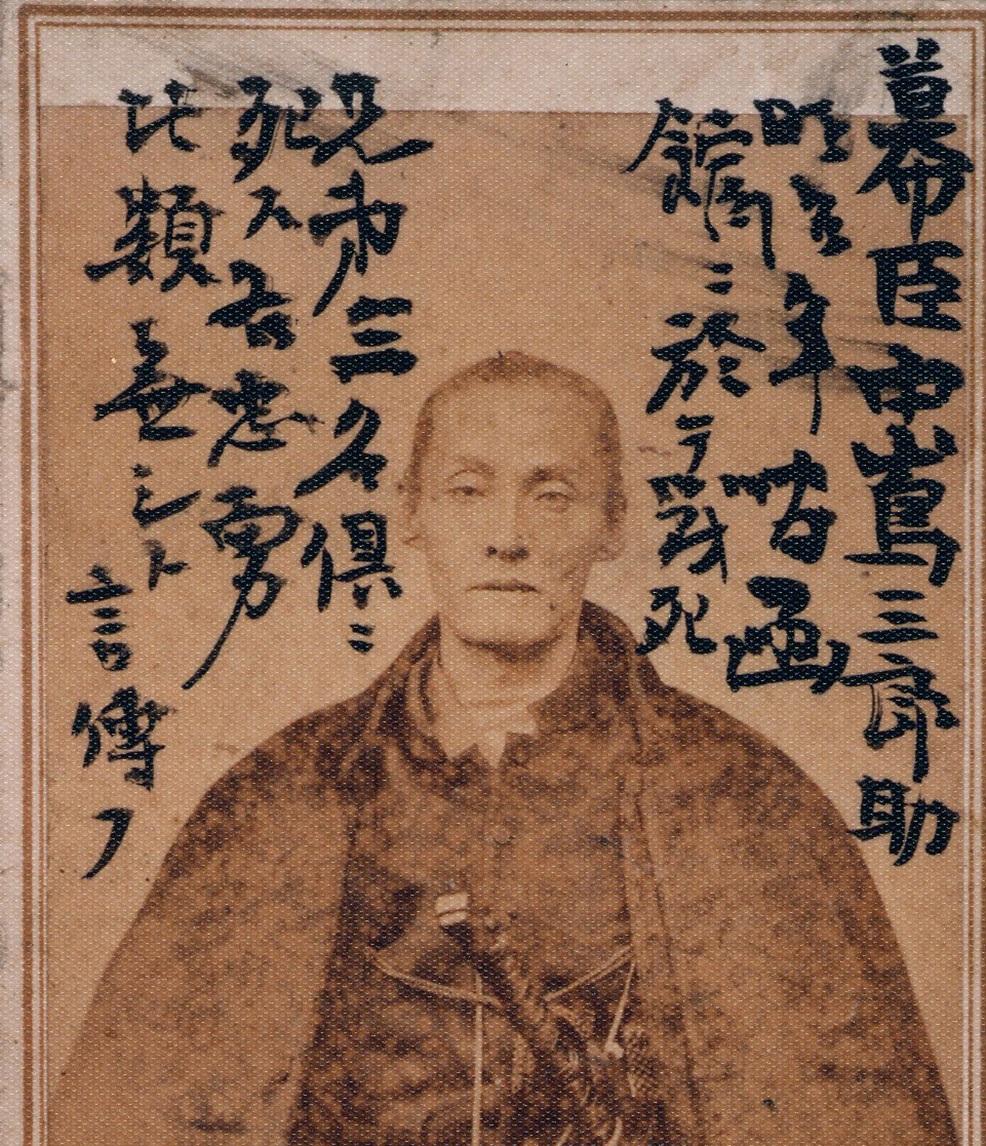
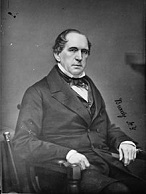


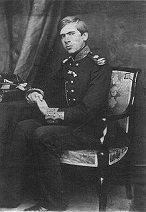

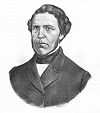









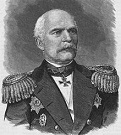

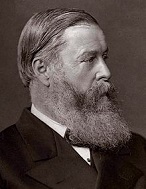
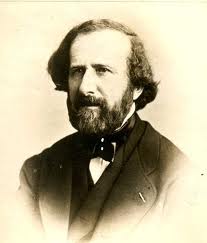













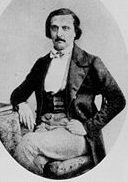
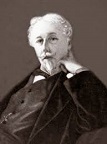




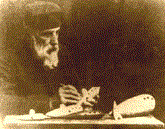

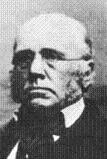

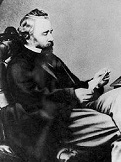
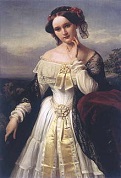
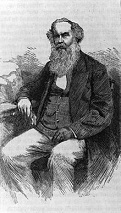

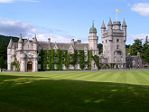




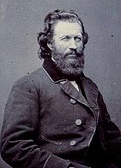
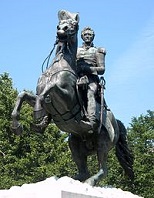

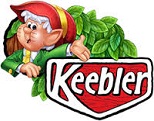
1853 This is the peak year of the Calif. Gold Rush. On Jan. 6 a conservative revolt in Mexico ousts pres. (since 1853) Mariano Arista, who flees to exile in Portugal; supreme court pres. Juan Bautista Ceballos (1811-59) becomes provisional pres., and asks for and receives special powers denied to Arista, then shuts down the congress on Jan. 19 and calls for a constitutional convention, but they fight back, and the Mexico City garrison removes Ceballos and on Feb. 8 installs Gen. Manuel Maria Lombardini (1802-53), hero of the 1847 Battle of La Angostura, while Ceballos returns to the supreme court; on Apr. 20 Santa Anna returns from exile in Jamaica and resumes the presidency, making him the cmdr. of the Mexico City garrison, and he dies happy on Dec. 2. Who ya gonna talk about next? Got any slutty friends? On Jan. 30 emperor (since Dec. 2) Napoleon III marries Granada, Spain-born Eugenie (Eugénie) de Montijo (1826-1920). A dark horse pierces through to the canon, er, Buchanan, who sees the first shots of the U.S. Civil War fired? On Mar. 4 (Fri.) 49-y.-o. Hillsborough, N.H.-born U.S.-Mexico War brig. gen., atty., former U.S. Rep. and U.S. Sen., and "dark horse" candidate (Doughface Dem.) (Bowdoin grad.) (good orator) (handsomest pres.?) (heavy drinker) Franklin Pierce (1804-69), AKA "Handsome Frank", "the Fainting General" (from a Mexican War incident where an artillery blast blew his saddle horn into his stomach), "Young Hickory of the Granite Hills" (the Andy Jackson of N.H.) becomes the 14th U.S. pres. (until Mar. 4, 1857) in the 19th U.S. Pres. Inauguration in the East Portico of the U.S. Capitol in Washington, D.C. (youngest pres. so far) (first pres. to memorize his inaugural address, not to kiss the Bible, and to affirm rather than swear); last of four Whig presidents since 1841, and the first of two Doughface presidents (along with Buchanan); William Rufus de Vane (DeVane) King (1786-1853) becomes the unlucky 13th U.S. vice-pres., but dies on Apr. 18 before he can preside over the U.S. Senate after becoming the first vice-pres. to be sworn in (on Mar. 24) while in a foreign country (Cuba) while trying to recover from TB; First Lady is Jane Means Appleton Pierce (1806-63), who suffers from illness and depression, with all their children dying young and their youngest son killed in a train wreck shortly before the inauguration; Pierce goes for the Young America Movement, which seeks to expand the U.S. W and S with slavery intact, resulting in Bleeding Kansas, and making the Civil War a done deal?; on Mar. 7 he appoints former secy. of war (1845-9) William Learned Marcy (1786-1857) as U.S. secy. of state #21 (until Mar. 6, 1857), after which on June 1 he sends a learned circular to U.S. diplomats, recommending that they always do official biz dressed as ordinary U.S. citizens; British-born Jewish atty. Judah Philip Benjamin (1811-84), who married into a prominent New Orleans Creole family in 1833 and became a sugar plantation and slave owner in Belle Chasse, La., and became the first Jew to be nominated for the U.S. Supreme Court by outgoing pres. Fillmore this year (nominated again next year by Pierce), but declined, instead becomes a Whig U.S. Sen. from La. (until Feb. 4, 1861) (first Portuguese Jew), going on to challenge Jefferson Davis to a duel then make up and become friends, and get off an immortal soundbyte to Benjamin Wade of Ohio (who accused him of being an "Israelite in Egyptian clothing"): "It is true that I am a Jew, and when my ancestors were receiving their Ten Commandments from the immediate Deity, amidst the thundering and lightnings of Mt. Sinai, the ancestors of my opponent were herding swine in the forests of Great Britain." In Feb. Kerala Varma IV dies in Benares, and his younger brother Ravi Varma IV (-1864) becomes king of Cochin in SW India (until Feb. 1864). On Apr. 1 British-backed conservative Fruto Chamorro Perez (1804-55) assumes power in Nicaragua, becoming El Supremo (supreme dictator), transferring the capital to Granada, then calls a new constituent assembly next Jan. in the absence of the opposition Liberals, which proclaims a new consitution and names him pres. #1 of Nicaragua (until 1855); meanwhile the pissed-off Liberals plan a civil war. On Apr. 1 Cincinnati, Ohio becomes the first U.S. city to pay its firefighters a regular salary. On Apr. 2 the New York Central Railroad, run by former Albany, N.Y. Dem. mayor (1834-7) Erastus Corning Sr. (1794-1872), founder of the Rensselaer Iron Works (which installed the first Bessemer converter in the U.S.), is founded via a merger of nine railroads operating between Albany, N.Y. and Buffalo, N.Y., expanding to New York City, Boston, Mass., Chicago, Ill., and Cleveland, Ohio. On Apr. 11 after three nominations by pres. Millard Fillmore are shot down by Congress, and Franklin Pierce takes office, a group of U.S. Supreme Court justices make a new move and suggest a nominee who will pacify the increasingly jumpy South, and Ga.-born Ala. atty. John Archibald Campbell (1811-89) is appointed as U.S. Supreme Court justice #32 (until Apr. 30, 1861) to replace John McKinley (1838-52), keeping the court at nine members. On Apr. 16 the first passenger train journey in India sees 400 people pulled by 14 carriages and three steam locomotives travel from Bombay to Thane. On May 6 a New Haven Railroad train runs through an open drawbridge and plunges into the Norwalk River in Norwalk, Conn., killing 46, becoming the first major drawbridge accident. On May 31 the Second Grinnell Expedition sails from New York City to look for the lost expedition of Sir John Franklin, led by senior medical officer Elisha Kent Kane (1820-57), wintering in Rensselaer Bay and charting the coasts of Smith Sound and the Kane Basis before discovering the ice-free Kennedy Channel in Cape Constitution. In June 3K Tex. Longhorns being herded through W Mo. are blocked by farmers because they carry the tick that causes Texas fever, which the longhorns are immune to, after which by 1855 farmers in W and C Mo. form vigilance committees to block or kill any Tex. Longhorns entering their counties, and in Dec. 1855 the Mo. legislature bans diseased cattle from the state, followed in 1859 by Kan., which doesn't stop them since they never get the disease. On July 7 the Walker War begins after Mormon settler James Walker Ivie of Springville, Utah Valley, Utah kills Timpanogo warrior Shower-O-Cats, relative of chief Walkara (Walker) (Wakhara) ("Hawk") (Colorow) (1808-55), causing the Indians to retaliate by killing Alexander Keele on July 18 in Payson, Utah and launching a war, which after more deaths on both sides (a total of 12 whites and a small number of Indians) ends next May with a treaty between Walkara and Brigham Young in Levan (near Nephi), Utah; too bad, some Indians don't accept it, leading to the Ute Black Hawk War of 1865-72. After 220 years Japanese trade isolation ends at the end of an American gun, launching Yankee gunboat diplomacy? On July 8 after the Perry Expedition left Hampton Roads, Va. on Nov. 24 and visited the Ryukyu Islands on May 17-26 to force them to accept a coaling station, then disobeying an order to go to Nagasaki instead, Commodore Matthew Calbraith Perry (1794-1858) (brother of Oliver Hazard Perry) appears at Uraga at the entrance to Yedo (Edo) (Tokyo) Bay in his black-hulled paddle-wheeled flagship USS Mississippi (AKA the Black Ship) along with with the sail warships USS Susquehanna and USS Plymouth bearing a letter from U.S. Pres. Fillmore written by U.S. secy. of state #19 (since July 23, 1850) Daniel Webster (b. 1782) (who died on Oct. 24) to "the Japanese Emperor" requesting protection for shipwrecked U.S. sailors (heretofore routinely executed), the right to provision U.S. ships, and trading privileges at Japanese ports, firing blank shots at Uraga from his 73 cannons to intimidate them, later claiming it to be a celebration of U.S. Independence Day (July 4); Uraga samurai vice-gov. Nakajima Saburosuke (a shipbuilding engineer, who boldly examines the ship's cannons et al.) meets with Perry's aide-de-camp Lt. John Contee aboard the USS Susquehanna to arrange the formal delivery, becoming the first Japanese emissary to be received on a U.S. ship; too bad, Shogun Tokugawa Ieyoshi is ill, leaving decisions to his underlings, who decide that accepting a letter from a white devil Yankee doesn't constitute a violation of Japanese sovereignty, asking Perry to move his fleet slightly to the SW to the beach at Kurihama (modern-day Yokosuka), where he lands on July 14, coming ashore with 250 sailors and U.S. Marines in 15 boats accompanied by a 13-gun salute from USS Susquehanna then presenting Pres. Fillmore's letter to hatamoto Toda "Izu-no-kami" Ujiyosi and Ido "Iwami-no-kami" Hiromichi while the Marines present arms and their band plays "Hail Columbia"; on July 17 after doing a Peter Minuit and gifting them with a cache of obsolete small arms, Perry's ships retire to the Chinese coast to give them time to consider it - try to catch me riding dirty? On July 14 New York City opens the Great Exhibition of Art and Industry (World's Fair) in its own Crystal Palace in Bryant Park, where Vt.-born civil (bed factory) engineer Elisha Graves Otis (1811-61) demonstrates his automatic safety device for stopping an elevator after its supporting cables snap, setting up a manufacturing plant in Yonkers, N.Y. (until 1983); too bad, the fair is a financial failure and loses $300K. On Aug. 12 the #2-we-try-harder Russian frigate Pallada (Pallas), commanded by adm. Yevfimy Vasilyevich Putyatin (1803-83) arrives in Nagasaki, wowing the Japanese with his steam engine, and helping them manufacture their own by the end of the year, led by mechanical genius Tanaka Hisashige (1799-1881), son of a tortoise-shell craftsman (the Thomas Edison of Japan?) - jokes about Japanese copying of other cultures here? On Sept. 11 the First Internat. Statistical Congress is held in Brussels. On Sept. 29 the emigrant vessel Annie Jane sinks off the coast of Scotland, killing 348. In Oct. after Russian Tsar Nicholas I leaves all fear of the revs. of 1848 behind and resumes the "game of Great Powers" of the pre-1789 era, demanding a protectorate over the members of the Greek Orthodox Church in the Ottoman Empire, threatening their sovereignty and causing them to refuse, and the tsar, calling the Sultan the "sick man of Europe" occupies the Danubian principalities of Moldavia and Wallachia, Britain, France, Austria, and Prussia attempt to bring Russia and Turkey to terms, but fail to get Turkey to agree, after which the Turks order Russia to evacuate the occupied provinces, and when they refuse, declare war on Russia on Oct. 16, starting the Crimean War (Tenth Russo-Turkish War) (ends Mar. 30, 1856) over the domination of SE Europe, in which Protestant England, Roman Catholic France and Sardinia, and Muslim Ottoman Turkey end up taking on Orthodox Catholic Russia and kicking its samovar-sipping butt, despite the need for Christian nations to stick together against the Muslims, with history-versed future Cardinal John Henry Newman (1801-90)saying that it besmirches British integrity to prop up the Ottomans (what did he know, he bolted the Anglican Church for the Roman Catholic Church?); on Nov. 30 the Russians massacre the Turkish fleet at the naval Battle of Sinope, causing public opinion in England to go wild for war against "despot Russia"; French troops from Marseille land in Istanbul to fight the Crimean War and end up causing a cholera epidemic; the war becomes known for "confusion of purpose" and "notoriously incompetent international butchery"; after it becomes too cold to shave, British solders are given permission to wear beards, and when they return to Britain the ladies love them, starting a fad that spreads to the U.S., causing U.S. Civil War gens. to sport them; British soldiers are required to wear mustaches after they find out that Indian Army soldiers won't respect them without facial hair. On Nov. 15 queen (since May 26, 1834) Maria II da Gloria (b. 1819) dies, and her eldest son Pedro (Peter) V de Alcantara (the Hopeful) (1837-61) becomes king of Portugal (until Nov. 11, 1861), going on to modernize Portugal incl. the govt. and infrastructure, building roads, railways, and telegraphs, and improving public health; too bad, after stopping the cholera outbreak of 1853-6, he and his brothers Joao and Fernando die of cholera in 1861, and he dies childless, leaving the brother to the remaining brother Luis I. On Dec. 30 to make a southern transcontinental railroad route possible through its new coast-to-coast English-speaking whites-only homeland, the U.S. buys 30M acres (29,670 sq. mi.) in New Mexico (S of the Gila River) and S Ariz. from Mexico for $10M via the Gadsden Purchase, negotiated by U.S. minister to Mexico (1853-4) James Gadsden (1788-1858) (grandson of U.S. founding father Christopher Gadsden, aide-de-camp to Gen. Andy Jackson in 1818, and pres. of the Louisville, Cincinnati and Charleston Railroad, AKA the South Carolina Railroad in 1842) (ratified Apr. 29, 1854), becoming the last addition to the U.S. lower 48 states; the U.S. now has to absorb 100K Mexican citizens via annexation, who are routinely discriminated against, creating a permanent underclass; by 1890 75K more arrive, mainly to do low-paid manual labor. On Dec. 31 Russian tsar (since 1824) Nicholas I grants to Eastern Siberia gov. (since 1847) Nikolai Nikolayevich Muravyov (Muravyov-Amursky) (1809-81) the right to negotiate with the Chinese about extending the Russian border to the Amur River (prohibited since the 1689 Treaty of Nerchinsk), along with troops and settlers, and next year he sends a 77-barge fleet led by the steamship Argun to sail to the Amur's estuary, led by explorer (later adm.) Gennady Ivanovich Nevelskoy (1813-76) (known for the soundbyte "Where the Russian flag is hoisted it should never be lowered"), who goes on to prove that Sakhalin is an island. Gen. Santa Anna seizes the Mexican nat. govt., and imprisons Oaxaca gov. (1847-52) (a pure Indian) Benito Pablo Juarez (1806-72), who escapes to New Orleans (until 1855). The Argentine Confederation, consisting of all states except Buenos Aires proclaims a new 1853 Argentine Constitution, based on the U.S. Constitution, with Justo Jose Urquiza as pres. Oldenburg and Hanover join the Zollverein (customs union). The Second Anglo-Burmese War ends after Lower Burma is conquered by the British, who make it a province of British India, and Burmese king Pagan (Bagan) Min is overthrown by his half-brother Mindon Min (Maung Lwin) (1808-78) (a Buddhist monk), who becomes the next-to-last king of Burma (until Oct. 1, 1878), going on to lead a liberalization and modernization program while trying to keep Britain from shaving the rest of his country away. Shogun (since 1837) Tokugawa Ieyoshi (b. ?) dies, and Tokugawa Iyesada (Iesada) (-1858) becomes shogun #13 of Japan (until 1858). The Anglo-Kaffir War (begun 1850) ends. Britain annexes the Mahratta state of Nagpur in C India. Pres. Pierce appoints Jefferson Davis as U.S. secy of war (until 1857). Tenn.-born Am. adventurer (filibuster) (former atty., physician and journalist) William Walker (1824-60) decides to become the next Daniel Boone and Davy Crockett, and, armed with the Manifest Destiny White-is-Right argument begins organizing a mercenary army to take over territories S of the U.S., starting with Baja Calif., which he proclaims as an independent repub., then the adjoining state of Sonora, proclaiming the Repub. of Sonora, with himself as pres.; too bad, the Mexicans drive him out by next year, and he is captured by U.S. forces and tried for violating neutrality laws, only to have a sympathetic jury let the handsome stud off. John Young Mason (1799-1859) of Va. (former atty. gen. under Tyler in 1845-6 and secy. of the navy under Polk in 1846-9) becomes U.S. minister to France (until 1859) - you can pull a duck's neck all you want but you won't end up with a swan? Future U.S. pres. Andrew Johnson becomes gov. of Tenn. (until 1857). The Yontoket (Yontocket) (Burnt Ranch) Massacre in Yontocket, NW Calif. sees whites from Crescent City, Calif. attack Tolowa Indians during a prayer ceremony, killing 450+. The Yellow River in China diverts its course into the Gulf of Chihli (Po Hai). Rail connection is established between New York City and Chicago. The English Duchess of Sutherland calls on U.S. women to support the gradual abolition of slavery, causing former U.S. First Lady Julia Gardiner Tyler to pub. a reply in the Southern Literary Messenger, telling her not to interfere in internal U.S. affairs. Ind. lawyer Benjamin Harrison, grandson of Pres. W.H. Harrison marries Caroline Lavinia Scott (1832-92); they have 1 son and 1 daughter. The British finally achieve a permanent maritime truce in the Pirate Coast of the Arabian Peninsula (modern-day United Arab Emirates), renaming it the Trucial Coast, with disputes among sheikhs referred to the British for settlement. After undergoing circmcision and dressing up as a Pashtun, multilingual English explorer Sir Richard Francis Burton (1821-90) becomes the first non-Muslim since 1503 to visit Mecca and Medina in disguise and live to talk about it - I bring you sweet things from my candy jar? Nopalera, Calif. (Sp. "prickly pear cactus"), the site of modern-day Hollywood, Calif. consists of a lone adobe hut. Capt. W.E. Kingman rediscovers Kingman Reef 1K mi. S of Hawaii (first discovered on June 14, 1798 by U.S. Capt. Edmund Fanning); in 1860 the U.S. Guano Co. claims it under the name Danger Reef. A strip of land on the W side of the entrance to the Bay of Jade on the North Sea 40 mi. NW of Bremen is bought from Oldenburg by Prussia, and in 1856 the seaport of Wilhelmshaven is built, becoming an important German naval base. Kit Carson becomes a U.S. Indian agent in Taos, N.M. (until 1861). The U.S. Army establishes Ft. Yuma in Calif. on the W bank of the Colorado River near the mouth of the Gila River to defend the new town of Yuma, N.M. near the Mexican border. The city of Uvalde, Tex. (originally Encina) is founded at the S limit of the Texas Hill Country in N South Tex., becoming known as the home of U.S. vice-pres. John Nance "Cactus Jack" Garner, singer Dale Evans, and actor Matthew McConaughey. Its 20-year charter up once again for renewal by Parliament, the British East India Co. (founded 1600) has its appointments changed to a basis of competitive civil service rather than patronage, and its charter is made terminable at the will of Parliament. 7.2K sq. mi. New Caledonia (capital Noumea) W of Australia is annexed by France, supported by French Roman Catholic missionaries who had been there since 1843; from 1864-97 over 30K convicts are transported there; meanwhile Van Diemen's Land changes its name to Tasmania and stops accepting convict transports (mainly from Ireland). Olympia becomes the capital of Washington Territory, with Isaac Ingalls Stevens (1818-62) as gov. #1. A militia of Mormons arrests Jim Bridger for selling alcohol and firearms to Native Ams., but he escapes and flees east, after which the Mormons establish their own Fort Supply in 1855, and take over Ft. Bridger in Wyo. (founded 1842) after claiming to have purchased it for $8K in gold coins, which Bridger denies, to which the Mormons respond that H.F. Morrell signed his name with his power of atty. The first railroad through the Alps opens from Vienna to Trieste. 825K-acre King Ranch in the Wild Horse Desert in S Tex. between Corpus Christi and Brownsville near Kingsville is founded by New York City-born Irish-descent riverboat captain Richard King (1825-85), becoming the largest ranch in Tex.; it incl. four divs., the Santa Gertrudis (originator of the Santa Gertrudis breed, the first new U.S. breed), Laureles, Encino, and Norias; in 1961 it is designated a nat. historic landmark. English psychiatrist Sir John Charles Bucknill (1817-97) founds the Journal for Mental Science (originally Asylum Journal until 1858), which in 1963 changes its name to Journal of Mental Science. The Mount Vernon Ladies' Assoc., the oldest historic preservation sociey in the U.S. is founded. Robert Schumann pub. an article in the mag. Neue Bahnen proclaiming his find of German composer-pianist Johannes Brahms (1833-97), whom he predicts will become the next great composer in the line running from J.S. Bach through Beethoven - which would make the Three B's of Classical Music? Irish-born actor-dramatist Dion Boucicault moves to the U.S. for the next seven years (until 1860), becoming a big hit. English poet Arthur Hugh Clough (1819-61) (rhymes with tough) visits Ralph Waldo Emerson in Cambridge, Mass.; next year he obtains a position as examiner in the Education Office in London (until 1860). Vaccination against smallpox becomes compulsory in Britain. The British Parliament removes the excise tax on soap, boosting the business of Hudson's Soap maker Robert Spear Hudson (1812-84) et al., so that in the next 20 years the use of soap in Britain doubles - thank goodness, it's such a small island, now you may peel? Queen Victoria uses chloroform during the birth of her 7th child, making it okay for everybody else - despite God saying that women must bear their children in pain (Gen. 3:16)? India builds a telegraph system. West Point grad. Ambrose Burnside (b. 1824) resigns his commission and becomes a munitions manufacturer in Bristol, R.I., inventing a breech-loading rifle in 1856 - when did he begin wearing the bushy sideburns? The U. of Melbourne in Australia is founded on Jan. 22 by Australian Liberal statesman Hugh Culling Eardley Childers (1827-96), with the Victoria Gold Rush providing the funding; in 1881 it admits women. Washington U. in St. Louis (WUSTL) (WashU) in St. Louis, Mo., named after U.S. pres. #1 (1789-97) George Washington is founded on Feb. 22 by Unitarian minister William Greenleaf Eliot (1811-87) (grandfather of T.S. Eliot) and dry goods owner Wayman Crow (1808-85) as a seminary, growing to 7K undergraduate and 7K postgrad students by modern times. Richard Wagner completes the text of his "Der Ring des Nibelungen" tetralogy (music in 1847); too bad, after falling for bitchin' young poet Mathilde Wesendonck (nee Agnes Mathilde Luckemeyer) (1828-1902), he drops work on his "Der Ring des Nibelungen" for 12 years, and begins working on "Tristan und Isolde", causing his 1st wife (since 1836) Minna Planer to leave him. German family mag. Die Gartenlaube (The Arbor) begins pub. in Leipzig. Carl (Karl) Bechstein (1826-1900) founds a piano factory in Berlin aimed at virtuosos (virtuosi?) like Franz Liszt and Hans von Bulow, the latter giving a public performance on a Bechstein grand piano in Berlin, Liszt's "Piano sonata in B minor", after which Bechsteins become one of the top three along with Steinway & Sons and Bluthner; in 1885 Queen Victoria buys several for Buckingham Palace, Windsor Castle, and other royal residences; by 1900 100K have been produced. Gevalia Co. is founded by Victor Theodore Engwall in Gavle (Gävle), Sweden, becoming the largest coffee roastery in Scandinavia, with a royal warrant of appointment from the king of Sweden, going on to offer mail order delivery service to North Am. in 1983, growing to 40 different coffee and tea blends by Feb. 2007; in 2015 tea sales are discontinued; in 1971 it is sold to General Foods, which is acquired by Kraft Foods Group. French luggage manufacturing co. Goyard is founded on Rue Saint-Honore in Paris by Francois Goyard (1828-90). Keebler Co. in Philadelphia, Penn. is founded by German immigrant Godfrey Keebler to manufacture cookies and crackers, going on to market Cheeze-It, Chips Deluxe, Club Crackers, E.L. Fudge Cookies, Town House Crackers, Sandie's Shortbread, Wheatables et al.; in 1935 it becomes the first commercial co. to bake Girl Scout Cookies; in 1968 an ad campaign is launched by Leo Burnett featuring the animated Keebler Elves, led by J.J., later Ernest J. "Ernie" Keebler. in 1974 it is acquired by United Biscuits, and in Mar. 2001 by Kellogg Co. Architecture: A.C. Albert begins rebuilding Balmoral (Gael. "majestic dwelling") Castle in Aberdeenshire, Scotland, Queen Elizabeth I's old summer home (finished 1855), which Queen Victoria purchased last year for 30K guineas after its owner choked to death on a fishbone, and Prince Albert wants rebuilt in Scottish baronial style. The Mormons begin work on the multi-towered Mormon Temple in Salt Lake City, Utah (dedicated Feb. 14), hauling huge blocks of granite 20 mi.; it is not completed for 40 years. Salts (Salt's) Mill textile mill is built in Bradford, West Yorkshire, England by Sir Titus Salt, 1st Baronet (1803-76), along with the village of Saltaire for workers, becoming the largest industrial bldg. on Earth; it closes in 1986. Inventions: Condensed (evaporated) milk is invented by Norwich, N.Y.-born Gail Borden Jr. (1801-74) of New York City, and patented on Aug. 19, 1856, marketed under the name Eagle Brand; he goes on to open plants in Conn. and Ill., and sell large quantities to the U.S. military in the U.S. Civil War. Conn.-born Samuel Colt (1814-62) of the U.S. revolutionizes small arms manufacture. The sweet-potato-shaped ceramic Ocarina (It. "little goose") globular flute is introduced into Europe as a classical instrument rather than a toy by brickmaker Giuseppe Donati (1836-1925) of Budrio, Italy, then spread by wandering musicians - the steer's horn filled with beer is so big, there's only room for a pocket noisemaker? Austrian physicist Julius Wilhelm Gintl (1804-83) invents the duplex telegraph, allowing 2-way communication along a single line. German immigrant Heinrich Engelhard Steinweg (1797-1871) creates the Steinway Piano in Manhattan, N.Y. with his three sons; they set up a 2nd factory in Hamburg, Germany in 1880. Sir George Cayley (1773-1857) builds a triplane glider that carries his coachman 900 ft. across Brompton Dale in N England before crashing, becoming the first recorded flight by an adult in an aircraft. Potato Chips are invented at Moon Lake Lodge in Saratoga Springs, N.Y. by Am. Indian chef George Crum to please a finicky guest, after which he begins offering Saratoga Chips on the menu; it takes until the 1920s for the mechanical potato peeler to make them a mass-marketed item. Science: French physicist Armand Hippolyte Louis Fizeau (1819-96) first describes the use of the capacitor (condenser) to increase the efficiency of an induction coil. French chemist Charles Frederic (Frédéric) Gerhardt (1816-56) discovers Acetylsalicylic Acid, the active ingredient in willow bark, but sets it aside as impractical after his formulation proves unstable; in 1878 Felix Hoffman rediscovers it. Scottish engineer William John Macquorn Rankine (1820-72) coins the term "potential energy" - beam me up? English physician John Snow (1813-58) administers chloroform to Queen Victoria during the birth of her son Leopold, and again in 1857 during the birth of her last child Beatrice, causing the public to accept obstetric anesthesia; next year he studies the 1854 Broad Street Cholera Outbreak in Soho, London, and discovers that it's spread not by "bad air" (miasmas) but by contaminated water from a street pump, causing improved sanitation facilities to be constructed. Alexander Wood (1817-84) of Edinburgh, Scotland and Charles Gabriel Pravaz (1791-1853) of France independently develop hypodermic syringes; too bad, they mistakenly believe that morphine that bypasses the stomach isn't addictive, spreading addiction. The Polar Vortex is first described, an upper-level low-pressure area over each pole up to 1K km in diam., rotating eastward via the Coriolis effect, extending from the middle-upper troposphere into the stratosphere, below which lies a large mass of cold dense Arctic air; in 1952 sudden stratospheric warming of up to 50C (120F) in a few days caused by disturbances in the Polar jet stream is first observed via radiosondes at 20km+ alt. The redwood Wellingtonia gigantea, the largest tree on Earth is discovered in Calif. Nonfiction: Charles Anthon (1797-1867), A Manual of Greek Literature from the Earliest Authentic Periods to the Close of the Byzantine Era. David Brown (1786-1875), The Planter, or Thirteen Years in the South by a Northern Man. Mary Carpenter (1807-77), Juvenile Delinquents, Their Condition and Treatment. Rev. Henry Theodore Cheever (1814-97), The Whale and His Captors; or, The Whaleman's Adventures in the Southern Ocean. Victor Cousin (1792-1867), Etudes sur les Femmes et la Societe du XVIIe Siecle. George William Curtis (1824-92), The Potiphar Papers (Dec.); social satire; "If gilt were only gold, or sugar-candy common sense, what a fine thing our society would be!" Walter Cooper Dendy (1794-1871), Psyche: A Discourse on the Birth and Pilgrimage of Thought; coins the term "psychotherapy" (psychotherapeia); "It is clear, therefore, that thought acts on organism, like a poison or a fate." Charles Gerhardt (1819-56), Traite de Chimi Organizue (4 vols.) (1853-6); his magnum opus. Edwin Lawrence Godkin (1831-1902), The History of Hungary and the Magyars. Count Joseph Arthur de Gobineau (1816-82), An Essay on the Inequality of the Human Races (Essai sur l'inégalité des races humaines) (1853-5); French historian explains how the Aryan Master Race (his, of course) created all culture, and how miscegenation (racemixing) ruined India, Egypt, Persia, Spain, and even has crept into France, Germany, Austria, Switzerland, everywhere, becoming the seminal doctrine of 19th cent. scientific racism, making a monkey, er, disciple of Richard Wagner - let's face it, Lexington Steele is unstoppable? Charles Goodyear (1800-60), Gum-Elastica (autobio.); tries to justify his claim of priority for the patent on vulcanization of rubber. Henry William Herbert (1807-58), The Chevaliers of France from the Crusaders to the Marechals of Louis XIV; The Puritans of New England. Johann Jakob Herzog (1805-82), Encyclopedia of Protestant Theology (Realencyklopädie für Protestantische Theologie und Kirche) (22 vols.) (1853-68); rev. ed. 1877, 1896-1909. Alexander Hislop (1807-65), The Two Babylons, Or The Papal Worship Proved to Be the Worship of Nimrod and His Wife (Edinburgh); Scottish Free Church minister rocks the house with his apparently well-documented thesis that Roman Catholicism is based on Babylonian Paganism ultimately tracing back to the worship of Nimrod, that the Roman Catholic Church is the Whore of Babylon in the Bible Book of Revelation 17:5, and "the Pope himself is truly and properly the lineal representative of Belshazzar"; the Christogram IHS = Isis, Horus, Seth?; becomes a hit with Protestants, who want to discard the pagan baggage, and with New Agers, who want to discard the Christianity and embrace the pagan baggage; too bad, the scholarship is full of holes, although the thesis as a whole seems on the right track? John William Kaye (1814-76), The Administration of the East India Company: A History of Indian Progress. Karl Knies (1821-98), Political Economy from the Standpoint of the Historical Method; disses the classical school of Adam Smith and David Ricardo for its blind belief in the basic goodness to society of the pursuit of individual self-interest, with the soundbyte: "In the public interest, so to speak, in its weakness, and dangerous in its strength"; he goes on to school John Bates Clark, the teacher of Frank Knight, who influences Paul Samuelson. John Frederick Denison Maurice (1805-72), Theological Essays; gets him removed as prof. of divinity at King's College, London, but he founds the Christian Socialist movement in England, and in 1866 becomes prof. of moral philosophy at Cambridge U. and lives happily ever after - call me deep and blue? Jose Antonio Navarro (-1871), Historical Notes (Apuntes Historicas); leading figure in Texan independence. Solomon Northup (1808-63), Twelve Years a Slave: Narrative of Solomon Northup, citizen of New-York, kidnapped in Washington city in 1841, and rescued in 1853, from a cotton plantation near the Red River in Louisiana; ed. Dave Wilson; filmed in 2013. Laurence Oliphant (1829-88), The Russian Shores of the Black Sea. Theodore Parker (1810-60), Of Justice and the Conscience; "I do not pretend to understand the moral universe; the arc is a long one, my eye reaches but little ways; I cannot calculate the curve and complete the figure by the experience of sight; I can divine it by conscience. And from what I see I am sure it bends towards justice"; later picked up by Martin Luther King Jr. Ludwig von Rochau (1810-73), Grundsätze der Realpolitik angewendet auf die staatlichen Zustände Deutschlands (Principles of Realpolitik applied to the national state of affairs of German); introduces the term Realpolitik for pragmatism in politics, even if basic ideological, ethical, ormoral principles have to be junked; "The study of the forces that shape, maintain and alter the state is the basis of all political insight and leads to the understanding that the law of power governs the world of states just as the law of gravity governs the physical world. The older political science was fully aware of this truth but drew a wrong and detrimental conclusion—the right of the more powerful. The modern era has corrected this unethical fallacy, but while breaking with the alleged right of the more powerful one, the modern era was too much inclined to overlook the real might of the more powerful and the inevitability of its political influence." Lucy Mack Smith (1775-1856), Biographical Sketches of Joseph Smith, the Prophet, and His Progenitors for Many Generations (History of Joseph Smith by His Mother); after dictating her recollections to Nauvoo schoolteacher Martha Jane Coray in 1844-5, Mormon apostle Orson Pratt gets it pub. in Liverpool, England, pissing-off Brigham Young, who calls it a "tissue of lies" and claims that before it can be pub. the "sketches" should be "carefully corrected", ordering church members to destroy their copies, after which the LDS Church pub. them in 1901-2 under the dir. of Lucy's grandson Joseph Fielding Smith; it was all about his feud with Mormon apostle William B. Smith? Hippolyte Taine (1828-93), Essai sur les Fables de La Fontaine. George Darling Watt (1812-81) (ed.), Journal of Discourses (26 vols.) (1854-66) (England); contains 1,438 sermons by 55 church leaders incl. Young, George Q. Cannon, Heber C. Kimball, Orson Pratt, and John Taylor. Art: Rosa Bonheur (1822-99), The Horse Fair (1853-5) - if only people could be as white or black as those horses? Sir Oswald Walters Brierly (1817-94), HMS Rattlesnake. Clark Mills (1810-83), Equestrian Statue of Andrew Jackson; commissioned in May 1847; first equestrian statue made in the U.S.; Jackson's horse Duke is modeled by Mills' horse Olympus, who he trained to post on its haunches; cast from captured British cannon, and unveiled in Lafayette Square in Washington, D.C. on Jan. 8 (Sat.) at the 38th anniv. of the 1815 Battle of New Orleans, attended by 20K, with U.S. Sen. Stephen A. Douglas as the keynote speaker; the base bears the inscription "Our federal union/ It must be preserved"; he places clones in New Orleans, La., Jacksonville, Fla., and Nashville, Tenn. Gustave Moreau (1826-98), A Scene from the Song of Songs; The Death of Darius; Athenians with the Minotaur; Putting Off His Sandals Within Sight of the Promised Land. Music: Stephen Foster (1826-64), Old Dog Tray; My Old Kentucky Home (Poor Uncle Tom, Good Night!); becomes the state song of Ky. on Mar. 19, 1928. Jacques Fromental Halevy (1799-1862), Le Nabab (opera). John Mason Neale (1818-66), Good King Wenceslas; carol based on a Swedish tune dating back to 1582; composed for Boxing Day (Dec. 26). Giuseppe Verdi (1813-1901), Il Trovatore (The Troubadour) (Jan. 19) (Teatro Apollo, Rome); based on the 1836 play "El Trovador" by Antonio Garcia Gutierrez; Gypsy Azucena's son Manrico is the troubadour, who is in love with Leonora, who is desired by Conte di Luna; so easy to produce, "All you need is the four best singers in the world" (Enrico Caruso); La Traviata (The Fallen Woman) (Mar. 6) (La Fenice, Venice); original title "Violetta"; libretto by Francesco Maria Piave; based on the 1848 novel "La Dame aux Camelis" by Alexandre Dumas fils; courtesan (high class ho) Violetta Valery (based on Marguerite Gautier), her maid Annina, and servant Giuseppe, Giorgio Germont and his son Alfredo, who falls in love with Violetta, who ends up dying in his arms. Henryk Wieniawski (1835-80), Polonaise No. 1 in D major, Op. 4, Piano Concerto No. 1 in F sharp minor, Op. 14; ups the required skill level for violinists. Plays: Alexandre Dumas fils (1824-95), Diane de Lys. Octave Feuillet (1821-90), Le Pour et Le Contre. Gustav Freytag (1816-95), Die Journalisten (comedy); big hit in Germany. Alphonse de Lamartine (1790-1869), Les Visions. Joseph Roumanille (1818-91), La Part dou Bon Dieu. Novels: Matthew Arnold (1822-88), The Scholar-Gypsy. Charlotte Bronte (1816-55), Villette. Dinah Craik (1826-87), Avillion and Other Tales. Martin Robinson Delany (1812-85), Blake; or The Huts of America; first novel by an African-Am. pub. in the U.S.; a response to "Uncle Tom's Cabin" showing slaves as active not passive, and advocating black separatism; changes "No more hard work for poor old Ned/ He's gone whar de good darkeys go" in Stephen Foster's "Old Uncle Ned" to "Old master's gone to the slaveholders' rest/ He's gone where they all ought to go". Fyodor Dostoevsky (1821-81), The Little Hero; written in priz. Elizabeth Gaskell (1810-65), Ruth (3 vols.); young orphan girl becomes a fallen woman. Cranford; articles pub. in Charles Dickens' Household Words in 1851-3 about elegant English ladies in Knutsford, Cheshire. Nathaniel Hawthorne (1804-64), Tanglewood Tales. Charles Kingsley (1819-75), Hypatia: Or, New Foes with an Old Face; the pagan brain babe who was murdered by a mob of monks in 415 C.E., only this time she converts to Christianity right before being murdered, gag? Herman Melville (1819-91), Bartleby, the Scrivener: A Story of Wall Street (short story); pub. anon. in the Nov. and Dec. issues of Putnam's Mag.; a clerk refuses to work but they let him keep his job until a new proprietor sticks him in priz and he goes on a hunger strike. Luise Muhlbach (1814-73), Friedrich der Grosse und sein Hof. Charles Reade (1814-84), Peg Woffington; based on his 1852 play "Masks and Faces"; Christie Johnstone. Fritz Reuter (1810-74), Lauschen un Riemels (debut). George Sand (1804-76), Les Maitres Sonneurs. Robert Smith Surtees (1803-64), Mr. Sponge's Sporting Tour. William Makepeace Thackeray (1811-63), The Newcomes (1853-5); coins the word "capitalism"; "The wicked are wicked, no doubt, and they go astray and they fall, and they come by their deserts; but who can tell the mischief which the very virtuous do?" Births: Italian mathematician (tensor calculus inventor) Gregorio Ricci-Curbastro (d. 1925) on Jan. 12 in Lugio di Romagna; teacher of Tullio Levi-Civita (1873-1941). Am. poet-diplomat Robert Underwood Johnson (d. 1937) on Jan. 12 in Washington, D.C. English Gilbert & Sullivan singer-actor Rutland Barrington (George Rutland Fleet) (d. 1922) on Jan. 15 in Penge. French rubber tire magnate Andre Jules Michelin (d. 1931) on Jan. 16 in Paris; brother of Edouard Michelin (1859-1940). English "Hamlet" stage actor Sir Johnston Forbes-Robertson (d. 1937) on Jan. 16 in London; son of John Forbes-Robertson; knighted in 1913. British Gallipoli Campaign Gen. Sir Ian Standish Monteith Hamilton (d. 1947) on Jan. 16 in Corfu; speaks English, German, French, and Hindi; left leg shorter than right from falling off a horse; left hand disabled at the 1881 Battle of Majuba. German Ganser Syndrome psychiatrist Sigbert Josef Maria Ganser (d. 1931) on Jan. 24 in Rhaunen; educated at the U. of Munich. Cuban rev. patriot-poet-essayist (nat. hero of Cuba) ("apostle of Cuban independence") Jose Julian Marti Perez (José Julián Martí Pérez) (d. 1895) on Jan. 28 in Havana. Russian "The Crisis of Western Philosophy", "Critique of Abstract Principles" philosopher Vladimir Sergeyevich Solovyov (d. 1900) on Jan. 28 in Moscow; son of Sergey Solovyov (1820-79)); brother of Vsevolod Solovyov (1849-1903); educated at the U. of Moscow; friend of Fyodor Dostoyevsky, who uses him as a model for Aloysha and Ivan in "The Brothers Karamazov". Japanese bacteriologist-physician Kitasato Shibasaburo (d. 1931) on Jan. 29 in Okuni, Higo. Am. smokless gunpowder inventor-chemist Hudson Maxim (d. 1927) on Feb. 3 in Orneville, Maine; brother of Sir Hiram Stevens Maxim (1840-1916); uncle of Hiram Percy Maxim (1869-1936). Scottish Cape Colony PM #10 (1904-8) Sir Leander Starr "Doctor Jim" "Lanner" Jameson (d. 1917) on Feb. 9 in Edinburgh. English Elephant Man physician (founder of Red Cross Society) Sir Frederick Treves, 1st Baronet (d. 1923) on Feb. 15 in Dorchester. Czech poet Jaroslav Vrchlicky (Emil Frida) (d. 1912) on Feb. 17 in Louny. Am. Man o'War thoroughbred owner August Belmont Jr. (d. 1924) on Feb. 18 in New York City; son of August Belmont Sr. (1813-90); husband (1910-) of Eleanor Robson Belmont (1879-1979); owner of the only purposely built private railway car, the "Mineola". Czech novelist Josef Holecek (d. 1929) on Feb. 27 in Stozice (near Vodnany). Am. "Harper's Monthly" painter-illustrator and children's writer Howard Pyle (d. 1911) on Mar. 5 in Wilmington, Del.; teacher of Maxfield Parrish. Swiss painter Ferdinand Hodler (d. 1918) on Mar. 14 in Berne. Persian Qajar shah #5 (1896-1907) Mozaffar al-Din Shah Qajar (d. 1907) on Mar. 25; son of Nasser el-Din Shah (1831-96); spends from 1861-96 in Azerbaijan pleasuring himself. Dutch "Starry Night" 1-eared painter Vincent Willem van Gogh (d. 1890) on Mar. 30 in Groot-Zundert, Brabant; son of a Dutch Protestant pastor; born with both ears intact; brother of Theo van Gogh (1857-91); shares his birthday with Francisco Goya (1746-1828); starts painting at age 30; the last 29 mo. of his life are a big old pigskin party? Am. pres. son Thomas "Tad" Lincoln (d. 1871) on Apr. 4 in Springfield, Ill.; 4th and youngest son of Abraham Lincoln (1809-65) and Mary Todd Lincoln (1818-82); nicknamed by his daddy for being "as wriggly as a tadpole" as a baby. English prince (hemophiliac) Leopold, Duke of Albany (d. 1884) on Apr. 7 in Buckingham Palace, London; youngest son of Queen Victoria and Prince Albert; delivered while Dr. John Snow uses newfangled choroform on his mommy, making it legit in Britain. Irish "A Gaiety Girl", "The Geisha", "Floradora" theater critic-librettist (Jewish) Owen Hall (James "Jimmy" Davis) (d. 1907) ("owing all") on Apr. 10 in Dublin; educated at Univ. College, London; brother of Julia Frankau (1859-1916); aunt of Gilbert Frankau (1884-1952) and Ronald Frankau (1894-1951). Am. anthropologist-geologist-inventor William John McGee (d. 1912) on Apr. 17 in Farley, Iowa; self-educated. French criminologist Alphonse Bertillon (d. 1914) on Apr. 23 in Paris; son of Louis Adolphe Bertillon (1812-83); brother of Jacques Bertillon (1851-1922); creator of the Bertillon System for identifying people, which eventually incl. fingerprints. Am. "Old South" novelist and U.S. ambassador to Italy (1913-9) Thomas Nelson Page (d. 1922) on Apr. 23 in Oakland Plantation, Hanover County, Va. Am. Panama Canal chief engineer John Frank Stevens (d. 1943) on Apr. 25 near West Gardiner, Maine. French cyclist (inventor of the derailleur) ("Father of French Bicycle Touring") Paul de Vivie (d. 1930) (AKA Velocio) on Apr. 29 in Pernes-les-Fontaines. French journalist Pierre Giffard (d. 1922) on May 1 in Fontaine-le-dun, Seine-Maritime. Am. "The Story of a Country Town" novelist-ed. Edgar Watson Howe (d. 1937) on May 3 Am. atty.-politician Philander Chase Knox (d. 1921) on May 6 in Brownsville, Penn. English novelist Hall Caine (d. 1931) on May 14. Am. outlaw John Wesley Hardin (d. 1895) on May 26 in Bonham, Tex. Swedish "Brit and I" realist painter Carl Larsson (d. 1919) on May 28 in Stockholm. English pioneer egyptologist ("Father of Egyptian Archaeology") Sir William Matthew Flinders Petrie (d. 1942) on June 3 in Charlton, London; knighted in 1923; first to carefully dig archeological sites inch by inch rather than shovel them, and to date layers based on pottery findings - blue ribbon for coolest name? German Marie-Strumpell Disease neurologist Ernst Adolf Gustav Gottfried von Strumpell (Strümpell) (d. 1925) on June 29 in Neu-Autz Estate, Courland (Latvia); son of Ludwig Strumpell (1812-99); educated at the U. of Leipzig. German serial murderer Elisabeth Wiese (d. 1905) on July 1 in Bilshausen, Lower Saxony. French "Sappho" academic painter Charles Auguste Mengin (d. 1933) on July 5 in Paris. British adventurer, statesman, exploiter (diamond magnate) and (to whites only) philanthropist Cecil John Rhodes (d. 1902) on July 5 in Bishop's Stortford, Hertfordshire; educated at Oriel College, Oxford U. Dutch Lorentz Transformations physicist Hendrik Antoon Lorentz (d. 1928) on July 18 in Arnhem; educated at the U. of Leiden. Am. temperance leader (lesbian) Anna Adams Gordon (d. 1931) on July 21 in Boston, Mass.; educated at Mount Holyoke College; companion of Frances Willard (1839-98). Am. "Sherlock Holmes", "The Admirable Crichton" actor-playwright William Hooker Gillette (d. 1937) on July 24 in Hartford, Conn.; educated at Yale U., and Harvard U. Am. playwright-producer-dir. (Jewish) ("the Bishop of Broadway") David Belasco (d. 1931) on July 25 in San Francisco, Calif.; his parents (the Velascos) are of Portuguese Sephardic Jewish origin; runs away from home to join the theater; Father McGuire becomes his mentor, causing him to wear a clerical collar and black clothes in tribute; originates the casting couch and gives Mary Pickford her name; has a large library just for show, spawning the line "This fella's a regular Belasco" in F. Scott Fitzgerald's "The Great Gatsby" (ch. 2). Am. Impressionist painter John Henry Twachtman (d. 1902) on Aug. 4 in Cincinnati, Ohio; pupil of Frank Duveneck and Ludwig Lofftz; known for his white-gray-blue winter scenes. French auto racer Emile (Émile) Louis Mayade (d. 1898) on Aug. 21 in Clermont-Ferrand. British pharmaceutical manufacturer (Adventist) (Freemason) Sir Henry Solomon Wellcome (d. 1936) on Aug. 21 in Almond, Wisc.; becomes British citizen in 1910; knighted in 1932. German physical chemist Wilhelm Ostwald (d. 1932) on Sept. 2 in Riga, Latvia; educated at the U. of Tarty. French Marie-Strumpell Disease neurologist Pierre Marie (d. 1940) on Sept. 9 in Paris. Thai Chakri king #5 (1868-1910) Rama V Chulalongkorn (the Great Beloved) (d. 1910) on Sept. 20 in Bangkok; son of Rama IV and Queen Debsirinda; taught Western culture by "Anna and the King of Siam" Anna Leonowens (1831-1915). Dutch physicist Heike Kamerlingh Onnes (d. 1926) on Sept. 21 in Groningen; educated at the U. of Groningen. German physiological chemist (genetics pioneer) Ludwig Karl Martin Leonhard Albrecht Kossel (d. 1927) on Sept. 16 in Rostock; educated at the U. of Strasbourg. English "Jersey Lily" actress Lily (Lillie) Langtry (Emily Charlotte le Breton) (d. 1929) on Oct. 13 in Jersey, Channel Islands; marries Irish landowner Edward Langtry (-1897) in 1874, and Sir Hugo Berald de Bathe in 1899; lover of Edward VII. Am. "The Surf" painter Soren Emil Carlsen (d. 1932) on Oct. 19 in Copenhagen, Denmark. English psychiatrist (biochemistry pioneer) Sir Frederick Walker Mott (d. 1926) on Oct. 23 in Brighton, Sussex. German ambassador to Russia (1907-14) Count Jacob Ludwig Friedrich Wilhelm Joachim Graf von Pourtales (Pourtalès) (d. 1928) on Oct. 24 in Oberhofen, Switzerland. Scottish New Hegelian philosopher David George Ritchie (d. 1903) on Jedburgh on Oct. 26; educated at Edinburgh U., and Balliol College, Oxford U.; friend of Thomas Carlyle and Jane Carlyle. Czech physician Anna Bayerova (d. 1924) on Nov. 4. Am. Shell Oil founder (Jewish) Marcus Samuel, 1st Viscount Bearsted (d. 1927) on Nov. 5 in London; created bron in 1921 and viscount in 1925. Am. Beaux-Arts architect Stanford White (d. 1906) on Nov. 9 in New York City; son of Richard Grant White (1822-85). Am. Shakespearean actor John Drew Jr. (d. 1927) on Nov. 13 in Philadelphia, Penn.; eldest son of John Drew (1827-62) and Louisa Lane Drew (1820-97); brother of Georgiana Drew (1856-93) and Sidney Drew (1863-1919). Am. "The Power-Book Library" New Thought writer Frank Channing Haddock (d. 1915) on Nov. 17 in Watertown, N.Y. French statesman-historian Albert Auguste Gabriel Hanotaux (d. 1944) on Nov. 19 in Beaurevoir, Aisne. Austrian Gen. (gov. of Bosnia-Herzegovina in 1911-14) Oskar Potiorek (d. 1933) on Nov. 20 in Bad Bleiberg, Carinthia. Egyptian sultan (1914-7) Hussein (Husayn) Kamel (Kamil) (Kemal) (d. 1917) on Nov. 21 in Cairo; son of Ismail Pasha. Am. mathematician (non-Euclidean geometry) and educator George Bruce Halsted (d. 1922) on Nov. 25 in Newark, N.J.; educated at Princeton U. German historian (of medicine) Karl Sudhoff (d. 1938) Nov. 26 in Frankfurt am Main. Am. lawman Bartholomew William Barclay "Bat" Masterson (d. 1921) on Nov. 27 in Henryville, Quebec, Canada; of Irish descent; great-grandfather of Robert Ballard (1942-). German diplomat Count Paul Wolff Metternich zur Gracht (d. 1934) on Dec. 5. French physician-bacteriologist (discoverer of the pneumonic microbe) Pierre Paul Emile Roux (d. 1933) on Dec. 17 in Confolens (Charente); collaborator of Louis Pasteur (1822-95). English actor-mgr. (not Jewish) (founder of the Royal Academy of Dramatic Art) Sir Herbert Beerbohm Tree (Herbert Draper Beerbohm) (d. 1917) on Dec. 17 in Kensington, London; Lithuanian immigrant father; brother of Julius Beerbohm (1854-1906) and Constance Beerbohm (1811-92); half-brother of Max Beerbohm (1872-1956); grandfather of Oliver Reed (1938-99); great-great-grandfather of Georgina Moffat (1989-); knighted in 1909. French realist painter Georges Laugee (d. 1928) on Dec. 19 in Montivilliers. U.S. Supreme Court Justice #60 (1906-10), U.S. atty. gen. (1904-6), U.S. navy secy. (1902-4), and U.S. Rep. (R-Mass.) (1895-1902) William Henry Moody (d. 1917) on Dec. 23 in Newbury, Mass.; educated at Phillips Academy, and Harvard U.; classmate of Theodore Roosevelt. French "La Basoche" composer Andre (André) Charles Prosper Messager (d. 1929) on Dec. 30 in Montlucon; student of Camille Saint-Saens and Gabriel Faure. U.S. Army Chief of Staff (1917) Tasker Howard Bliss (d. 1930) on Dec. 31 in Lewisburg, Penn. Am. dentist Willoughby Dayton Miller (d. 1907). Russian spy Pyotr Ivanovich Rachkovsky (d. 1910) in Dubasari, Kherson. Am. historian Reuben Gold Thwaites (d. 1913) in Dorchester, Mass.; grows up in Wisc. German Maj. Gen. Richard Karl von Tessmar (d. 1928). French novelist Rene Bazin (d. 1932) in Angers. Danish Gram's Method physician Hans C.J. Gram (d. 1938). German surgeon (pioneer in arthroplasty) Themistocles Gluck (Glück) (d. 1942) in Iasi, Moldova (modern-day Romania); educated at the U. of Leipzig, and U. of Berlin. Deaths: French publisher Pierre Didot (b. 1761). French Empire Style architect Pierre Fontaine (b. 1762) on Oct. 10 in Paris. Am. Dem.-Repub. politician Mahlon Dickerson (b. 1770) on Oct. 5 in Succasunna, N.J. British Fleet Adm. Sir George Cockburn, 10th baronet (b. 1772) on Aug. 19 in Leamington Spa, Warwickshire. German Romantic poet Ludwig Tieck (b. 1773) on Apr. 28 in Berlin. German geologist Ludwich von Buch (b. 1774) on Mar. 4. German philologist G.F. Grotefend (b. 1775) on Dec. 15 in Hanover. U.S. Sen. (D-Miss.) (1830-5) George Poindexter (b. 1779) on Sept. 5 in Jackson, Miss. Mexican pres. Anastasio Bustamante (b. 1780) on Feb. 6 in San Miguel de Allende, Guanajuato. British gen. Sir Charles James Napier (b. 1782) on Aug. 29 in Oaklands (near Portsmouth): "The best way to quiet a country is a good thrashing, followed by a great kindness afterwards - even the wildest chaps are thus tamed"; "The human mind is never better disposed to gratitude and attachment than when softened by fear"; "So perverse is mankind that every nationality prefers to be misgoverned by its own people than to be well ruled by another"; "You say that it is your custom to burn widows. Vey well, we also have a custom - when men burn a woman alive, we tie a rope around their necks and we hang them. Build your funeral pyre; beside it my carpenters will build a gallows. You may follow your custom, and then we will follow ours." German grand duke Karl Friedrich of Saxe-Weimar-Eisenbach (b. 1783) on July 8 in Schloss-Belvedere, Weimar. French physicist-politician Francois Arago (b. 1786) on Oct. 2 in Paris (Bright's Disease). Austrian gen. Julius Jacob von Haynau (b. 1786) on Mar. 14 in Vienna. U.S. vice-pres. #13 William R. King (b. 1786); his term isn't due to expire until Mar. 3, 1857. Am. politician-atty. Barnard E. Bee Sr. (b. 1787) in Pendleton, S.C.; namesake of Bee County, Tex. and Beeville, Tex. Am. gen. Bennet C. Riley (b. 1787) on June 6 in Black Rock (near Buffalo), N.Y. English Big Ben watchmaker Edward John Dent (b. 1790) on Mar. 8 in London. Irish Graves' Disease physician Robert James Graves (b. 1796) on Mar. 20 in Dublin (liver disease): "He Fed Fevers" (self-epitaph). U.S. First Lady (1850-3) Abigail Fillmore (b. 1798) on Mar. 30 in Washington, D.C.; dies at the Willard Hotel of pneumonia contracted during the outdoor inauguration ceremonies of Pres. Franklin Pierce; on Feb. 10, 1858 Millard Fillmore marries his 2nd wife, wealthy N.Y. widow Mrs. Caroline Carmichael McIntosh (1813-81), who makes him sign a pre-nuptial agreement. South African Boer leader Andries Pretorius (b. 1798) on July 23 in Magaliesberg. English Bradshaw's Guide cartographer George Bradshaw (b. 1800) on Sept. 6 in Oslo, Norway (cholera). Austrian "Doppler Effect" physicist Christian Doppler (b. 1803) on Mar. 17 in Venice, Italy. Portuguese queen (1826-53) Maria II da Gloria (b. 1819) on Nov. 15 in Lisbon. Am. dancer Master Juba (b. 1825). English 7'6" giant Arthur Caley (b. 1829) in Paris; dies of sumptuous living.
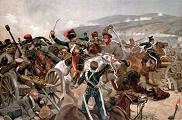










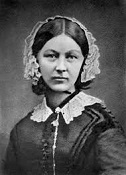
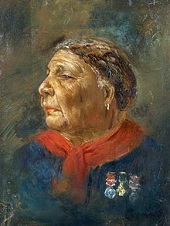
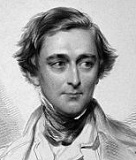










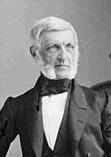


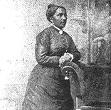

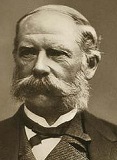

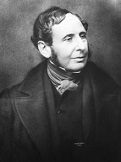













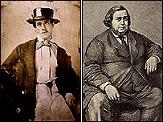

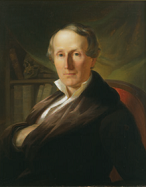
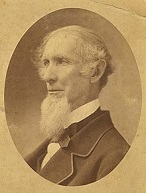
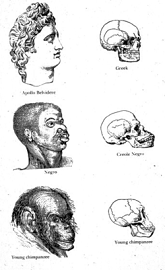



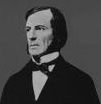
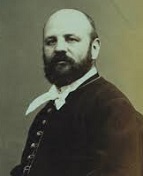
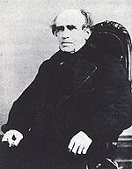
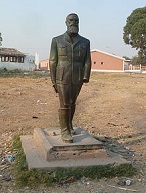
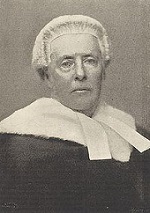

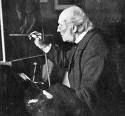




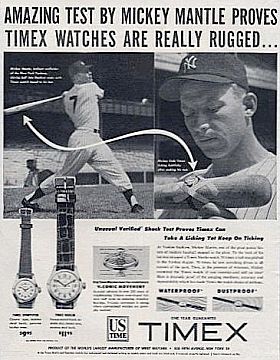
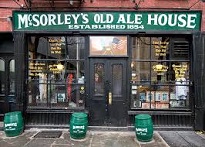
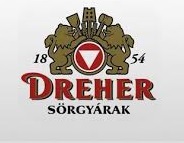
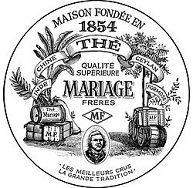
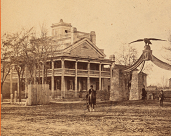
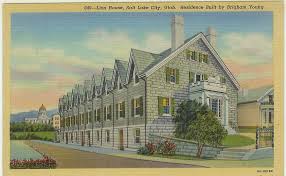
1854 221K+ German immigrants arrive in the U.S. in this peak immigration year. A cholera epidemic in Chicago, Ill. kills 5% of the pop., causing the city to decide to build a sanitation system, requiring the low-lying areas of the city to be raised up to 14 ft. out of the mud to work, which takes two decades and requires many houses to be relocated. On Feb. 23 the Convention of Bloemfontein (Orange River) is signed, and the British leave the territory N of the Orange River, recognizing the independence of the Boers between the Orange and Vaal Rivers, resulting in the formation of the Boer Repub. of the Orange Free State; too bad, it does not set the boundaries of the Basotho kingdom. In Feb. Commodore Matthew C. Perry returns to Japan with seven menacing "black ships", making his 2nd landing in Japan on Mar. 8, and on Mar. 31 near Yokohama he forces the Tokugawa shogunate to sign the Treaty (Convention) of Kanagawa, acceding to U.S. demands, and opening two ports for trade; he brings back the Japanese word "taikun" (great prince), which becomes the English word tycoon; his Western aggression leads to the birth of Japanese nationalism? On Mar. 1 the Plan de Ayutla, devised by Col. Florencio Villarreal and supported by Benito Juarez, Juan Alvarez, and Iganacio Comonfort removes dictator Antonio Lopez de Santa Anna and convenes a constituent assembly in order to draft a Mexican federal constitution. On Mar. 16 the U.S. govt. signs a Treaty with the Omaha; Omaha, Neb. (modern-day pop. 466K/975K) becomes the capital of Nebraska Territory (Neb.) (until 1867), and is incorporated in 1857, while the village of Lancaster is incorporated in 1856, going on to beat Omaha out as capital of the state in 1867. On Mar. 16 a Marble Block from the Temple of Concord in Rome donated by Pope Pius IX for the Washington Monument in Washington, D.C. is stolen by anti-Catholic thieves, probably Know-Nothings, who probably threw it into the Potomac River. On Mar. 20 in reaction to the Kansas-Nebraska Act, the anti-slavery Republican Party is founded in Ripon, Wisc. by Francis Preston Blair Sr. (1791-1876), George Sewall Boutwell (1818-1905), Asahel Nichols Cole (1821-89), George William Curtis (1824-92), Henry Brewster Stanton (1805-87) (husband of Elizabeth Cady Stanton) et al. in protest to fight against the expansion of slavery in the new territories of the West, becoming free-soil and anti-slavery but not abolitionist, and incorporating what's left of the anti-slavery members of the defunct Whig Party; on July 6 it holds its first official meeting in Jackson, Mich. In Mar. Britain joins with France against Russia to prevent it from gaining control of Turkey and the Holy Land, and declare war on Russia on Mar. 28, starting the "incredibly popular" (Queen Victoria) Crimean War (begun Oct. 16, 1853?) (ends Mar. 30, 1856), with Ben. Fitzroy James Henry Somerset, 1st Baron Raglan (1788-1855) appointed as British CIC; Turkey agrees to Austrian occupation of its Danubian principalities until the end of the war; Victoria and Albert, who again opposed the Liberals and fought to prevent the war, only to see their popularity bottom-out, and Albert get accused of being a Russian agent (and/or that they both had been imprisoned) now wake up, flip-flop, and enthusiastically support the massacre of their own people, er, the incredibly popular war, restoring their popularity. On Apr. 3 the San Francisco (Old) U.S. Mint AKA the Granite Lady in San Francisco, Calif. opens; in 1874 it moves to accommodate gold miners; after it survives the 1906 San Francisco Earthquake it is closed in 1937; meanwhile it makes 246 dime-size $2.50 Quarter Eagles from Gold Rush ore; by 2005 only 12 are known to exist, and one brings $253K in a Beverly Hills, Calif. auction. On Apr. 15 (5 p.m.) the packet ship Powhatan, carrying 311 German immigrants sinks off the coast of Atlantic City, N.J. in a storm, killing all aboard, causing a lighthouse to be built later in the year; on July 5 the Camden-Atlantic City Railroad begins operating, making Atlantic City into a tourist haven. In Apr. Sir Roger Charles Tichborne (b. 1829) is lost at sea after quitting the 6th Dragoon Guards of Dublin because of his weird French accent and attempting to sail back to England; too bad, his mommy won't accept his death, and ends up talking Arthur Orton (1834-98), a butcher from Wagga Wagga, Australia into claiming to be him, and he arrives in London on Christmas Day, 1866; too bad, she dies in Mar. 1868, and the real heirs close in and take him to court, and he ends up being convicted of perjury on Feb. 28, 1874 and sentenced to 14 years hard labor; after being released in 1884, he continues his claims until his death, and even gets conspiracy theories involving Jesuits spread around; his large girth causes the term "tich" to be coined, meaning a small person? On May 30 after a push by Northern Dem. Senators Stephen Douglas of Ill. and Lewis Cass of Mich. to help the North catch up with Pres. Pierce's deal for a southern-route transcontinental railroad, the Missouri Compromise of 1820 is repealed, and the U.S. Kansas-Nebraska Act is passed, creating the territories of Kansas and Nebraska, while permitting a local option on slavery (popular sovereignty) (Tex. Sen. Sam Houston votes against it); both slave owners and free soilers rush in, riots ensue, and the War for Bleeding Kansas begins, trashing the existing political party system, destroying the Whigs and dividing the Dems; the city of Lawrence, Kan. (modern-day pop. 95K) is founded in NW Kan. between the Kansas and Wakarusa Rivers near Hogback Ridge on the Oregon Trail, becoming a hotbed of anti-slavery sentiment, going on to be the site of the Wakarusa War (1855), the Sack of Lawrence (1856), and the Lawrence Massacre (1863); after the U.S. Civil War ends, it becomes home to the U. of Kan. in 1866, and Haskell Indian Nations U. in 1884. In May opposition Liberals based in Leon, Nicaragua begin a civil war against pres. Fruto Chamorro Perez, and gain support from El Salvador and Honduras, then siege Granada unsuccessfully. On June 1 Mariage Freres (Frères) (Mariage Brothers) gourmet tea co. is founded in Paris, France by brothers Henri Mariage and Edouard Mariage to satisfy the new demand for everything English incl. tea; in 1860 they introduce Chocolat des Mandarins, a tea-chocolate blend, going on to becoming the oldest tea co. in France. In June Charlotte Bronte marries her father's curate Arthur Bell Nicholls after he held up the marriage for a year, causing the latter to resign; the marriage lasts less than a year before her death next Mar. 31. Look at him, do you need a rhyme? The bachelor premieres on Egypt TV Friday at 9? On July 13 Egyptian pasha (viceroy of Egypt) Abbas I Said (b. 1813) is murdered by his slaves, and his European-educated son Mohammad (Mohammed) Sa'id Pasha (1822-63) succeeds him as wali of Egypt and Sudan (until Jan. 17, 1863), curbing the influence of sheikhs, establishing the Bank of Egypt, opening Egypt's first std. gauge railway, wearing European dress and attempting rapid modernization of Egypt, becoming the Suez Canal pasha. On July 16 (Sun.) while trying to go to church, 24-y.-o. African-Am. schoolteacher Elizabeth Jennings Graham (1830-1901) is thrown off a bus in Manhattan, N.Y. because of her color, causing her to fight back and sue, winning $225 damages; after another black named Peter Porter is barred from a rail car and sues, they win the right to ride on an equal basis. The original Sgt. Schulz on Hogan's Heroes? In July delegates from 13 U.S. states form the Know-Nothing Party, whose members pledge never to vote for any foreign-born (esp. Irish) or Roman Catholic (esp. Irish) candidate, and when asked about it to say "I know nothing"; in Nov. they sweep the Mass. legislature, winning all but two seats in the lower house; in the fall they elect 40+ congressmen, and almost control New England; too bad that the Irish keep a-comin', and by 1860 1.5M enter the U.S., drowning them out. On Aug. 24-26 the Nat. Emigration Convention of Colored People is held in Cleveland, Ohio, attended by black physician Martin Robinson Delany (1812-85), who pub. the manifesto "Political Destiny of the Colored Race on the American Continent"; the convention passes a resolution that "as men and equals, we demand every political right, privilege and institution to which the whites are eligible in the United States, and we will either attain to these, or accept nothing", becoming the start of U.S. black nationalism. The coats will be available after what coat campaign? In early Sept. after the Turks have already driven the Russians from the occupied provinces, 20K British troops under Lord Raglan and 30K French troops under marshal Armand Jacques Leroy de Saint-Arnaud (1798-1854) land unopposed on the Crimean coast N of the fortified port of Sebastopol (Sevastopol), the main Russian naval base on the peninsula, with a plan to carry the war into Russian territory; too bad, the French stall in attacking the fort long enough to give the Russians time to rush in reinforcements; on Sept. 20 Anglo-French forces led by field marshal Sir Colin Campbell, 1st Baron Clyde (1792-1863) and Gen. Pierre Francois Joseph Bosquet (1810-61) win the Battle of the Alma River near Sebastopol against Russian forces under prince Alexander Sergeyevich Menshikov (1787-1869), becoming the first big battle of the war. In Sept. the 3,692m Wetterhorn (Hasle Jungfrau) in the Swiss Alps is allegedly first climbed by English judge Sir Alfred Wills (1828-1912), who pub. "Wanderings Among the High Alps" in 1856, making mountaineering fashionable in Britain and launching the Golden Age of Alpinism (ends 1865); too bad, it was first summitted by Hans Juan and Melchior Bannholzier on Aug. 31, 1844; Wills goes on to preside over the 1895 Oscar Wilde indecency trial. On Oct. 4 successful ($5K a year) 6'4" atty. Abraham Lincoln speaks against 5'4" "Little Giant" Stephen Douglas in Springfield, Ill., and again on Oct. 16 at Peoria, Ill., opposing popular sovereignty when it comes to slavery, because "all this, to my judgment, furnishes no more excuse for permitting slavery to go into our own free territory, than it would for reviving the African slave trade by law". The Sevastopol Sketches, Defence of Sevastopol, Charge of the Light Brigade, Thin Red Line classic siege of the 19th cent.? On Oct. 17 after the Allies (French, British, Ottoman) land 50K men at Eupatoria on Sept. 14, the Siege of Sebastopol (Sevastopol), home of the Russian tsar's Black Fleet begins (ends Sept. 9, 1855), with the Allied strength under French Gen. Francois Canrobert, French Gen. Aimable Pelissier, Britsh Gen. Lord Raglan, British Gen. Lord Lyons, British Gen. Sir James Simpson, British Gen. Sir William Codrington, Ottoman Gen. Omar Pasha, and Ottoman Gen. Iskender Pasha starting at 67K, growing to 175K by next July (75K French, 35K Bitish, 60K Ottoman, 15K Piedmontese), increased in Aug. by 22K Ottomans, 9K Germans, 3K Swiss, 1.5K Polish, and 2K Italians, and the Russian garrison under Gen. Vladimir Kornilov, Gen. Pavel Nakhimov, and Gen. Eduard Totleben starting at 36.6K, reaching 43K plus a 42K-man army in the Crimea by next May, along with 8,886 naval gunners; the French have a 30K-man reserve army in Constantinople, and the British a 15K-man reserve army in Malta. The White Is Ostensibly Right Manifesto ends up being stopped by fear of another U.S. slave state? On Oct. 18 at the request of secy. of state William Learned Marcy, the U.S. ministers to Great Britain (James Buchanan), France (John Young Mason), and Spain (Pierre Soule) (Pierre Soulé) draft the Ostend Manifesto at Ostend, Belgium, calling for the U.S. to buy Cuba from Spain, and, if Spain refuses to sell, "then, by every law, human and divine, we shall be justified in wresting it from Spain"; after an outcry by anti-slavery forces, Marcy repudiates the doctrine, causing Soule (who had originally begun negotiations with Spain to purchase it without authorization, causing the Ostend Conference to be ordered) to resign. Who didn't call off the Charge of the Light Brigade? On Oct. 25 (Wed.) the Battle of Balaklava (Balaclava) Harbor is a D for Russia (a push?) and a claim to fame for the Scots Guards, led by Sir Colin Campbell (1792-1863), who earn the nickname "the Thin Red Line" from Rudyard Kipling's "thin red line of 'eroes"; British troops wear knitted balaclava headgear to keep warm, later used for ski masks; too bad, on Oct. 25 the stiff-upper-lip nutso Charge of the Light Brigade (the Six Hundred) during the Battle of Balaklava sees 107 of 674 British cavalrymen dressed up all cool, commanded by James Thomas Brudenell, 7th Earl of Cardigan (1797-1868) (11th Hussars) (known for his cool Cardigan sweaters) mowed down in an attack on the wrong valley, which is flanked by Russian artillery, in a mini-rehearsal of Gallipoli in WWI?; his boss field marshal George Charles Bingham, 3rd Earl of Lucan (1800-88) gets the blame, then at his court-martial blames his boss Lord Raglan; "Half a league, half a league,/ Half a league onward,/ All in the valley of death/ Rode the six hundred" (Alfred, Lord Tennyson). In Oct. the French unsuccessfully attack Gordon's Hill (Fort Mamelon), losing 600 casualties, after which the Russians build the Kamschatka Redoubt on the summit as part of their double and triple lines of defensive works around Sevastopol, which is taken next June by the French and British, with 380 British and 1000 French casualties. In Oct. Suquamish Indian Chief Seattle (1786-1866) in Washington State allegedly gives a great speech lamenting the takeover of his land by the palefaces, starting with: "How can you buy or sell the sky, the warmth of the land?"; too bad, it's fiction, first pub. in 1887 by Dr. Henry A. Smith of Ohio. On Nov. 5 the Battle of Inkerman (3rd major engagement of the war) starts out with a Russian attack in early morning fog, and ends as a V for the allies, where again Pierre Bosquet's troops are largely responsible. On Dec. 25 the Fort Pueblo Masacre sees a hunting party of 50 pissed-off Muache Ute warriors led by Chief Tierra Blanca who were given woolen coats infected with smallpox in Oct. fed Taos Lightning by a white trader in Pueblo, Colo., causing them to go on the warpath and wipe out the settlement, killing 15 mainly native Mexican settlers except two Mexican women, two infants, and a mute man named Romaldo, who tells the story with sign language, after which the fort is abandoned, and acting N.M. Gov. William S. Messervy calls for genocide of the entire Jicarilla tribe, with the soundbyte: "The best interest of this territory and the highest dictates of humanity demanded their extinction"; in 1857 new gringos from St. Louis rebuild it and call it Fountain, from the mineral springs at Manitou Spring NW of Colo. Springs; it is incorporated in 1870, gets the railroad in 1872, and in 1881 becomes a steel town with its own blast furnace. On Dec. 31 Philly-born Tammany Hall Dem. Fernando Wood (1812-81) is elected mayor #73 of New York City (until Dec. 31, 1858), fighting to control the corrupt New York Muncipal Police (founded 1845). In Dec. English ship Ben Nevis arrives in Galveston, Tex. with 500 Wendish-speaking Slavic Wends from Lusatia, Germany. In Dec. the Russian winter in the Crimea witnesses an eerie presage of WWI trench warfare, incl. the unpreparedness of the British army, which suffers from starvation, exposure, and disease in slimy rat-infested pits when the road to Balaklava becomes impassable; since the Times has the world's first war correspondent, William Howard Russell (1821-1907), on the spot, the harrowing pictures outrage public opinion; one good thing, in the war the British learn about papirosi (cigarettes) from the Turks, and get a new habit for peacetime use?; another good thing, on Oct. 21 able white head nurse Florence Nightingale (1820-1910) and her staff of 38 female volunteer nurses plus 15 Roman Catholic nuns are sent to the Crimean War by her Conservative statesman friend (secy. of war) Sidney Herbert, 1st Baron Herbert of Lea (1810-61) to do her thing, arriving in Nov. at Selimiye Barracks in Scutari (modern-day Uskudar, Istanbul), the mistreatment of POWs boosting her (and all female nurses') career as she introduces hygienic standards into military hospitals, writing a plea pub. in the Times asking for a prefabricated hospital design, resulting in Renkioi Hospital, which reduces the death rate 90%, gaining her the nickname "the Lady with the Lamp"; next Nov. 29 the Nightingale Fund is established for nurse training schools, for which she writes the textbook Notes on Nursing: What It Is and What It Is Not (1859), containing the soundbyte: "Every day sanitary knowledge, or the knowledge of nursing, or in other words, of how to put the constitution in such a state as that it will have no disease, or that it can recover from disease, takes a higher place. It is recognised as the knowledge which every one ought to have – distinct from medical knowledge, which only a profession can have" (later adopted by fine brothels?); meanwhile Jamaican-born mixed-race nurse Mary Jane Seacole (nee Grant) (1805-81) sets up the British Hotel behind the lines, using her knowledge of herbal medicine and hygiene to treat wounded soldiers, making her extremely popular among them; on June 20, 2016 a statue in her honor is erected at St. Thomas' Hospital in London, calling her a "pioneer nurse", pissing-off Nightingale supporters. On Dec. 8 the Veil of St. Veronica (kept in Rome since about 700) is publicly exhibited in St. Peter's, Rome; Milan and other cities dispute the right to possess the relic. On Dec. 15 after proclaiming his kingdom neutral in the Crimean War on May 16, and negotiating an annexation treaty with U.S. secy. of state William L. Marcy in Aug. (which is never signed), king (since June 6, 1825) Kamehameha III (b. 1825) dies, and next Jan. 11 his Calvinist-educated nephew and adopted son (grandson of Kamehameha I) Alexander 'Iolani (Hawaiian "hawk of heaven") Liholiho becomes king #4 Kamehameha IV (1834-63) of Hawaii (until Nov. 30, 1863), going on to fight against increasing Yankee control and seek deals with British and other Euro govts. in vain. On Dec. 21 an emergency railroad building crew led by Sir Samuel Morton Peto (1809-89) and his rival Brassey leaves Liverpool for Balaklava. In Dec. Russian novelist Leo Tolstoy commands an artillery unit at Sevastopol. Guatemalan army chief and dictator Rafael Carrera finally legitimizes himself and becomes pres., cheered on by the aristocracy and the Church. Cornelius Vanderbilt's Nicaragua proclaims itself a repub. Greek king Otto I approves French-British occupation of the Piraeus (pr. pie-REE-us) (the seaport of Athens) (modern Greek name Peiraievs, pr. PEE-re-efs) on the Saronic Gulf to prevent a Greco-Russian alliance during the Crimean War, pissing-off the Greek people. In Boston, Mass. fugitive slave Arthur Burns (1834-62) is arrested, causing a protest meeting in Faneuil Hall led by Theodore Parker and Wendell Phillips, followed by an attempt to storm the courthouse and rescue him, causing a riot in which a deputy is killed; the courts go on and give Burns back to his white cracker, but he is sold to another white massah who frees him, and he attends Oberlin College and becomes a Baptist minister in St. Catherine's in Ontario, Canada. In Milwaukee, Wisc. abolitionist editor Sherman M. Booth rouses a mob to rescue a fugitive slave, which gets him arrested and convicted in federal court of violating the Fugitive Slave Act; the Wisc. state supreme court orders him freed on the ground that the act is unconstitutional; the case goes to the U.S. Supreme Court. After a hungry Sioux slaughters a stray sick cow for food, and the owner demands $25 for it, receiving an offer of only $10, white racist Ft. Laramie, Wyo. Lt. John L. Grattan goes after the cow thief with 30 men, firing without warning on the Sioux camp and killing a chief, causing the Indians to get pissed-off and massacre him and all but one of his men; thus begin the 30-year U.S.-Indian Wars? The Self-Acting Mule Rev. begins in Spain, started by a gen. strike of textile workers over the introduction of the self-acting mule (spinning machine) and the loss of wheat supplies from Russia caused by the Crimean War, which causes a famine in Galicia; the govt. in Madrid is overthrown by Irish-born Gen. Leopoldo O'Donnell, 1st Conde of Lucena (1809-67); on July 14 after Isabella II threatens to abdicate, Gen. Baldomero Epartero resigns in favor of Gen. Leopoldo O'Donnell, who becomes Spanish PM #44, forming the Union Liberal Party which combines Carlist, moderate, and progressive factions, going on to promote laissez-faire policies and confiscate Church land, reestablishing the 1845 constitution; too bad, a reaction begins, and on Oct. 12 O'Donnell is dismissed, followed by two years of violence. The Elgin-Marcy Reciprocity Treaty on Canadian trade is signed by Britain and the U.S. The Juvenile Offenders Act in Britain is passed. The Northcote-Trevelyan Report leads to the formation of the British Civil Service Commission. The Ottoman govt. signs its first foreign loan agreement, beginning a permanent debt slavement to Euro (mainly French) banks until the fall of the empire in 1914. Rwanda (Ruanda) is first visited by European explorers, who are impressed by the tallness of the Watusi - somebody needs to invent basket what? Portuguese explorer Antonio Francisco Ferreira da Silva Porto (1817-90) crosses South Africa from W to E, becoming the only white explorer in Portuguese West Africa. The town of Santa Claus, Ind. (modern-day pop. 2.4K) is founded after the name Santa Fe (pr. "fee") is refused by the U.S. Post Office, going on to become the only post office on Earth with the name Santa Claus, causing it to receive thousands of letters from children each year addressed to Santa Claus, and a special group of volunteers called Santa's Elves to send replies starting in 1914. Pope (since 1846) Pius IX (1792-1878) declares the Immaculate Conception of the Blessed Virgin Mary to be an article of faith (dogma) - like a dog's ma? After 38 French merchant ships and one warship during a violent storm in the Crimean War, the Met (Meteorological) Office is founded in England as a nat. storm warming service under English meteorologist Capt. (later vice-adm.) Robert FitzRoy (1805-65) (captain of HMS Beagle during Charles Darwin's voyage in 1831-6), who coins the term "forecast" in 1859 after a big storm on Oct. 25-26, 1859 in the Irish Sea that sinks 133 ships, badly damages 90, and kills 800 incl. the steam clipper Royal Charter off the NE coast of Anglesey, Wales. 61-y.-o. Sam Houston has his sins washed away by the Baptist church in Little Rocky Creek in Tex. U.S. secy. of war Jefferson Davis tells sculptor Thomas Crawford not to put the Phrygian cap on statues he's preparing for the U.S. Capitol, because "American liberty is original and not the liberty of a freed slave" - famous last words? Irish-born British naval officer Sir Robert John Le Mesurier McClure (1807-73) becomes the first to transit the very iffy Northwest Passage, After getting turned on by Alexander von Humboldt's "Cosmos" (1845), the Schlagintweit brothers of Munich, Germany incl. Hermann Schlagintweit (Hermann Rudolph Alfred von Schlagintweit-Sakünlünski) (1826-82), Adolf von Schlagintweit (1829-57), Eduard Schlagintweit (1831-66), Robert Schlagintweit (1833-85), and Emil Schlagintweit (1835-1904) begin exploring C Asia to study the Earth's magnetic field, traveling through the Deccan, Himalayas, Karakoram Mts., Kunlun Mts., and returning to Nepal in 1857, going on to pub. "Results of a Scientific Mission to India and High Asia" (4 vols.) (1860-66); Hermann recives the title Sakunlunski for crossing the Kunlun Mts.; Emil later sells 102 Tibet ms. and block books collected by his brothers to the Bodleian Library of Oxford U., which are used by Madame Helena Blavatsky. Topeka, Kan. on the Kansas River 55 mi. W of Kansas City at the site of a ferry founded in the 1840s by three half-Kansas Indian sisters married to the French-Canadian Pappan Brothers is founded by anti-slavery colonists incl. mayor #1 Col. Cyrus Kurtz Holliday (1826-1900) (who in 1859 founds the Atchison, Topeka and Santa Fe Railroad), becoming prominent in the political conflict before the U.S. Civil War. After Sgt. Charles Floyd dies there on Aug. 20, 1804, becoming the only death during the 2.5-year Lewis and Clark Expedition, the city of Sioux City, Iowa on the navigational head of the Missouri River in NW Iowa (modern-day pop. 82K) is founded as a stop on the Great Plains for Mormons headed to Salt Lake City and prospectors heading to Wyo.; during Prohibition it becomes known as "Little Chicago" for its speakeasies. The Turin-Genoa Railroad opens. A Jewish seminary is founded in Breslau. St. Stanislaus College in Bay Saint Louis, Miss. is founded by the Brothers of the Sacred Heart; the school mascot is Rock-A-Chaw. Austrian Emperor Francis Joseph I marries Princess Elizabeth of Bavaria. After warnings from his commanding officer about his drinking habits, Ulysses Grant resigns from the U.S. army, and for the next six years holds a variety of jobs in the Midwest, all a failure. Composer Robert Schumann attempts suicide, then is confined in a mental institution at his own request for two years before croaking in 1856 in middle age. The Felibrige (Félibrige), a society devoted to a Provencal lit. renaissance is founded on May 21 by seven poets, incl. Joseph Roumanille (1818-91), Frederic Mistral (1830-1914), and Theodore Aubanel (1829-86). The Evelina de Rothschild School for Girls is founded in Jerusalem; in 1900 Annie Landau (1873-1945) becomes headmistress, pub. an article in the Jewish Chronicle of Oct. 30, 1903 that gives Jerusalem's pop. as 40K Jews, 14K Muslims, and 6K Christians. The trading center of Brownsville is founded in Nebraska on the Missouri River, becoming a depot connecting steamboats with freight wagons headed W to Denver and Santa Fe. The first bitumenous road is laid in Paris. The Christiana-Eidsvoll Railway in Norway is completed, followed in 1856 by the Orebro-Nora Railway in Sweden. Univ. College Dublin (UCD) (originally the Catholic U. of Ireland) in Dublin, Ireland is founded on May 18, with Anglican-to-Roman Catholic convert John Henry Newman (1801-90) as rector #1 (until 1860); it is reformed in 1880, and chartered in 1908. The Working Men's College is founded in London by Christian Socialism founder John Frederick Denison Maurice (1805-72). Hamline U. is founded in St. Paul, Minn., named after United Methodist bishop Leonidas Lent Hamline, becoming the oldest higher learning inst. in Minn. Lincoln U. in Chester County, Penn. is founded, becoming the first higher ed. institution for youth of African descent, graduating leaders for the new nation of Liberia, then going on to graduate Thurgood Marshall, Langston Hughes, Roscoe Lee Browne, Nnamdi Azikiwe, Kwame Nkrumah, and Melvin B. Tolson.; called Ashmun Inst. until 1866. The secret Knights of the Golden Circle is organized in the Am. South to keep the nigger down, er, preserve and extend the sacred institution of black slavery by setting up a separate confederation of slave states, going on to spread to Northern and border states (ends 1864). The Society of Accountants is founded in Edinburgh, Scotland, becoming the first assoc. of prof. accountants, followed by Glasgow (1855), Aberdeen (1867) and London (1880); meanwhile the profession lags in Europe and the U.S. The New York Academy of Music is founded in New York City. McSorley's Bar in New York City at 15 E. 7th St. is founded, becoming the #1 drinking establishment in the city, later attracting famous customers incl. Abraham Lincoln, Theodore Roosevelt, Boss Tweed, and Woody Guthrie, and described by poet e.e. cummings as "snug and evil", serving "the ale which never lets you grow old"; a pair of Houdini's handcuffs hang from the bar rail, along with wishbones hung above the bar by Doughboys going off to WWI who promised to remove them when they returned; after years of the motto "Good Ale, Raw Onions and No Ladies", women's libbers force it to admit women in 1970. The 72-ft.-dia. Great Laxey Wheel, designed by Robert Casement is erected to pump 250 gpm of water for the Great Laxey Mine in the Isle of Man; at the S end of the wheelhouse is a 6-ft.-dia. iron casting of the Three Legs of Man (triskelion), first used in charter seals in 1246. Sculptor Benjamin Waterhouse Hawkins designs full-size restorations of the dinosaurs for installation on the grounds of Sydenham Park outside London, where the Crystal Palace had been rebuilt following the Great Exhibition of 1851. Dreher Brewery is founded in Kobanya, Budapest, Hungary, producing brands incl Arany Aszok and Dreher Bak; in 1993 it joins the South African Breweries (SAB), which in May 2002 merges with the Miller Brewing Co. to create SABMiller. Irish immigrant John McSorley (-1910) arrives in New York City, founding McSorley's Old Ale House (originally the Old House at Home) near Cooper Square, which becomes the oldest continuously-operating Irish pub in New York City in modern times, selling Irish Red Ale, Irish Black Lager et al., with the motto: "Good Ale, Raw Onions and No Ladies" until the govt. forces them to admit women on Aug. 10, 1970; celeb visitors incl. Abraham Lincoln, Ulysses S. Grant, Teddy Roosevelt, Peter Cooper, Boss Tweed, Woody Guthrie, and Hunter S. Thompson; "The alie which never lets you grow old" (e.e. cummings); memorabilia on the walls incl. a pair of Harry Houdini's handcuffs. The Waterbury Clock Co. is founded in Waterbury, Conn. by brass manufacturer Benedict & Burnham Co. to manufacture low-priced brass clocks, becoming #1 in the Naugatuck Valley and helping turn it into "the Switzerland of America"; in 1878 the new Waterbury Watch Co. introduces the Long Wind pocket watch, made of 58 punched sheet brass parts; in 1887 they introduce the Jumbo pocket watch, named after P.T. Barnum's elephant, partnering with salesman Robert H. Ingersoll in 1892 and selling millions; in 1896 they introduce the $1 Ingersoll Yankee pocket watch, becoming known as "the watch that made the dollar famous"; in 1922 the Waterbury Clock Co. buys Robert H. Ingersoll & Bros. for $1.5M, then sells it to its London-based board of dirs. in 1930; in 1930 Waterbury Clock Co. begins producing Walt Disney Mickey Mouse watches and clocks under the Ingersoll name, and introduces them to the public at the 1933 Chicago World's Fair, becoming their first $1M-selling line; in 1942 they move to Middlebury, Conn. and begin producing precision timers for the U.S. military; in 1950 after changing their name to United States Time Corp. and making use of WWII-developed Armalloy to replace expensive jewels, they introduce the Timex brand with newsman John Cameron Swayze as spokesperson, with the motto "Timex - Takes a licking and keeps on ticking", becoming the best-selling wristwatch in the U.S. by 1962 (one out of three); in 1950 they become the exclusive manufacturer of Polaroid cameras (until 1975); on July 1, 1969 the co. is renamed Timex Corp.; too bad, digital watches steal their market, causing them to try selling home computers incl. the Timex Sinclair 1000, ZX81, and ZX Spectrum, which they abandon in 1984; in 1986 they introduce the Ironman Triathlon watch, which becomes #1 again in the U.S.; in 1992 they introduce the Indiglo night light, which is used by an officer worker after the Oct. 26, 1993 World Trade Center Bombing to guide fellow employees down 40 flights of dark stairs, causing a sales boom; in 1991 they acquire Callanen Internat., maker of Guess brand watches; in 1993 they produce the Disney Classics Collection; in 1994 they acquire Nautica Watchews, introducing the Timex Data Link, which uses Micosoft software; in 1997 they introduce the Timex Expedition for outdoor sports; in 1998 they and Motorola introce Beepwear with an integrated pager; in 2000 they acquire French fashion watch co. Opex, followed in 2002 by Marc Ecko; in 2005 they acquire Swiss luxury watchmaker Vertime SA, maker of the Versace and Versus brands; in 2006 they introduce the TX brand, and acquire the ultra-luxury Swiss brand Vincent Berard. Sports: On Aug. 3 Yale and Harvard engage in a crew race, becoming the first Am. intercollegiate sporting event; they go on to hold the first intercollegiate contests in ice hockey, soccer, and basketball. Trotter horse Flora Temple (1845-77) breaks the 2:20 mile. Architecture: The first Holy Cathouse in the Am. West? Am. "Mormon Moses" (pres. #2 since Dec. 27, 1847) Brigham Young builds the Beehive House (begun 1852) on South Temple St. 1 block E of the LDS Temple as the executive mansion for the Territory of Utah; in 1856 he builds the long motel-like Lion House at 63 E South Temple in Salt Lake City to house his family of 27 wives and 57 children, with each wife given her own apartment with parlor, bedroom, and locked front door; Young later dies there (he's got the master key and the family jewels?); in 1859 Eagle Gate Monument is built next to Beehive House. Napoleon III's wife Empress Eugenie builds a palace on the beach in Biarritz in SW France, making it popular with Euro royalty. The Sacramento Valley Railroad in Calif. is designed by Bridgeport, Conn.-born chief engineer Theodore Dehone Judah (1826-63), becoming the first railroad built W of the Mississippi River, with construction beginning on Feb. 1855, completed in 1877; Judah goes on to promote the idea of a transcontinental railroad through the Sierra Nevada Mts., becoming known as "Crazy Judah", going on to become chief engineer of the Central Pacific Railroad (CPRR), which builds the section of the First Transcontinental Railroad 690 mi. E from Sacramento, Calif. to Promontory Summit, Utah. The Upper Ganges Canal is built by the British to service the Haridwar Dam, greatly decreasing the flow of the Ganges River, leading to its decline as an inland waterway. Inventions: On Nov. 27 Andre-Adolphe-Eugene Disderi (André-Adolphe-Eugène Disdéri) (1819-89) of Paris, France patents Carte-de-Visite Photography, which produces a thin paper photograph mounted on a thicker visiting card-sized (6cm x 9cm) paper card, which doesn't sell until Disderi pub. photos of Emperor Napoleon II in 1859, making it into an overnight success, leading to a worldwide boom in portrait studios known as Cardomania; too bad, he fails to patent it, and after getting wealthy dies broke in an asylum. Scottish engineer John Elder (1824-69) invents the compound steam engine with two cylinders, which uses one-third less coal; in July the SS Brandon, the first ship with the new engine sails. Spanish singing teacher Manuel Patricio Rodriguez Garcia II (1805-1906) invents the Laryngoscope. German watchmaker Heinrich Goebel invents the first electric light bulb. The first street-poster pillars are erected in Berlin by Ernst Litfass. U.S. Navy doctor Edward Robinson Squibb (1819-1900) invents a method for safely distilling ether for use as an anesthetic, and refuses to patent it; in 1858 he founds E.R. Squibb & Sons to manufacture ether, chloroform, and other pharmaceuticals. Science: English astronomer royal Sir George Bidddell Airy (1801-92) establishes the specific density of the Earth as 6.566 after placing a pendulum at the bottom of Harton Pit near Brooke, er, South Shields; the true value is 5.515. French chemist Pierre Eugene Marcellin Berthelot (1827-1907) pub. a doctoral dissertation establishing the structure of fats and glycerin, methods of synthesis, and the nature of polyhydric alcohols. English mathematician George Boole (1815-64) of Queen's College in Cork, Ireland founds Boolean Algebra. On Sept. 1 Scottish-born Am. astronomer James Ferguson (1797-1867) discovers 31 Euphrosyne, 12th largest and 5th most massive asteroid in the asteroid belt, named after Greek goddess Euphrosyne (Euthymia) (one of the Three Graces or Charites), becoming the first asteroid discovered from North Am. Tetraethyl lead is discovered by German chemist ?. Nonfiction: Edmond About (1828-85), La Grece Contemporaine; his archeological studies in Athens. Louisa May Alcott (1832-88), Hospital Sketches; letters written to her family while serving as a U.S. Civil War nurse. George Bancroft (1800-91), History of the United States of America, from the Discovery of the American Continent (8 vols.) (1854-78); makes him "the Father of American History". Phineas Taylor Barnum (1910-91), The Life of P.T. Barnum, Written by Himself (autobio.); "much puffed in advance - nurtured in bumbeg" (New York Times). Thomas Hart Benton (1782-1858), A Thirty Years' View, or a History of the Working of the American Government from 1820 to 1850 (2 vols.) (1854-6). George Boole (1815-64), An Investigation of the Laws of Thought, on Which Are Founded the Mathematical Theories of Logic and Probabilities; founds Boolean Algebra. John Elliott Cairnes (1823-75), An Examination into the Principles of Currency. Sir Edward Shepherd Creasy (1812-78), History of the Ottoman Turks, from the Beginning of Their Empire to the Present Time; based on Joseph von Hammer's "History of the Ottoman Empire" (1827-35). Charles Dickens (1812-70), A Child's History of England. John Bovee Dods (1795-1872), Spirit Manifestations Examined and Explained: Judge Edmonds Refuted; or, An Exposition of the Involuntary Powers and Instincts of the Human Mind. Christian Ehrenberg (1795-1876), Microgeology. George Fitzhugh (1806-81), Sociology for the South, or The Failure of a Free Society; advocates slavery as the alternative to capitalism - if he were talking about robots he'd be a prophet? Theodor Fontane (1819-98), Ein Sommer in London. Charles W. Frothingham, The Convent's Doom: A Tale of Charlestown in 1834 (The Haunted Convent); bestselling Am. anti-Roman Catholic polemic. Theophile Gautier (1811-72), Histoire du Romantisme; Constantinople; cool travel book. Edmond de Goncourt (1822-96) and Jules de Goncourt (1830-70), Histoire de la Societe Francaise Pendant la Revolution. Philip Henry Gosse (1810-88), The Aquarium: An Unveiling of the Wonders of the Deep Sea; launches a Victorian craze for household aquariums. Hermann Heinrich Gossen (1810-58), Entwickelung der Gesetze des Menschlichen Verkehrs, und der Daraus Fließenden Regeln für Menschliches Handeln (The Development of the Laws of Human Intercourse and the Consequent Rules of Human Action); proposes Gossen's Laws, incl. Gossen's First Law, that marginal utilities are diminishing across the ranges relevant to decision making, Gossen's Second Law, that in equilibrium an agent will allocate expenditures so that the marginal cost of acquisition (ratio of marginal utility to price) is equal across all goods and services, and Gossen's Third Law, that scarcity is a requirement for economic value; first statement of the principles of marginal utility; too bad, the German Historical School gives it an icy reception, and it has little impact until Carl Menger of Austria restates it in 1871. Ferdinand Gregorovius (1821-91), Corsica; History of the City of Rome in the Middle Ages (8 vols.); trans. to English in 1894; becomes std. work. Jakob Grimm (1785-1863) and Wilhelm Grimm (1786-1859), Dictionary of the German Language, Vol. 1. Heinrich Heine (1797-1856), Vermischte Schriften (3 vols.). George William Frederick Howard (1802-64), Diary in Turkish and Greek Waters. John William Kaye (1814-76), The Life and Correspondence of Charles, Lord Metcalfe; The Life and Correspondence of Henry St. George Tucker. Gottfried Keller (1819-90), Der Grune (Grüne) Heinrich (Green Henry) (4 vols.) (1854-55); autobio. Bildungsroman novel about his career as a painter; his masterpiece?; one of the top two German novels of the cent. along with Adalbert Stifter's "Der Nachsommer", according to Friedrich Nietzsche. William Martin Leake (1777-1860), Numismata Hellenica. Frederick Denise Maurice (1805-72), The Doctrine of Sacrifice. John Mitchel (1815-75), Jail Journal: Five Years in British Prisons (Jan.). Theodor Mommsen (1817-1903), History of Rome (3 vols.) (1853-6); covers the Roman Repub. thru Julius Caesar (-100 to -44); an instant hit, making him the #2 man on ancient Roman history after Edward Gibbon. Josiah Clark Nott (1804-73), George Robbins Giddon (1809-57) et al., Types of Mankind; a monumental work praising and supporting Samuel George Morton's work, adding the kink that negroes are not necessarily inferior to whites, just inferior at what whites do best, while superior at what they do best, with the soundbyte: "The negro achieves his greatest perfection, physical and moral, and also greatest longevity, in a state of slavery"; Giddons also claims that the Hebrew word "Adam" means "ruddy faced", which only applies to Caucasians. Georg Friedrich Bernhard Riemann (1826-66), On the Hypotheses Forming the Foundation of Geometry (Gottingen); founds Riemann Geometry. John Gilmary Shea (1824-92), History of the Catholic Missions among the Indian Tribes of the United States, 1529-1854. William Smith (1813-93) (ed.), Dictionary of Greek and Roman Geography (2 vols.). Alexis Soyer (1810-58), A Shilling Cookery for the People. Bayard Taylor (1825-78), A Journey to Central Africa; or, Life and Landscapes from Egypt to the Negro Kingdoms of the White Nile; The Lands of the Saracen; or, Pictures of Palestine, Asia Minor, Sicily and Spain. Henry David Thoreau (1817-62), Walden; or, Life in the Woods (Aug. 9); coins the word "loneliness"; "I am no more lonely than the loon in the pond that laughs so"; "I went to the woods because I wished to live deliberately, to front only the essential facts of life, and see if I could not learn what it had to teach, and not, when I came to die, discover that I had not lived... I wanted to live deep and suck out all the marrow of life, to live so sturdily and Spartan-like"; makes four more trips in later years to see the ocean - as a hermit, or did he entertain? Leo Tolstoy (1828-1910), Boyhood (autobio.). Eugene Emmanuel Viollet-le-Duc (1814-79), Dictionanaire Raisonne de l'Architecture Francais (1854-68). Richard Whately, Apophthegms. Music: Hector Berlioz (1803-69), The Infant Christ, Opt. 25 (L'enfance du Christ) (Christmas oratorio) (Salle Herz, Paris) (Dec. 10); based on the Holy Family's flight into Egypt (Matt. 2:13). Johannes Brahms (1833-97), Concerto No. 1 for Piano and Orchestra. Stephen Foster (1826-64), Jeanie with the Light Brown Hair. Charles Gounod (1818-93), La Nonne Sanglante (opera). Franz Liszt (1811-86), Les Preludes (symphonic poem). Art: Gustave Courbet (1819-77), Bonjour, Monsieur Courbet; The Artist's Studio (1854-5). William Powell Frith (1819-1909), Life at the Seaside: Ramsgate Sands; big hit, puts him in biz painting crowd scenes. William Overend Geller, Franklin at the Court of France. Jean Auguste Dominique Ingres (1780-1867), Joan of Arc at the Coronation of Charles VII in Reims Cathedral; Princess de Broglie (Joséphine Eléonore Marie Pauline de Galard de Brassacede Béarn); his last commissioned portrait of a female? Alphonse de Lamartine (1790-1869), Histoire de la Turquie. Emanuel Leutze (1816-68), Washington Rallying the Troops at Monmouth. Jean Louis Ernest Meissonier (1815-91), Au Cabaret, un Reitre et Sloughy, la Levrier du Painte. Jean-Francois Millet (1814-75), The Reaper. Moritz von Schwind (1804-71), Cinderella (aquarelle cycle). Ferdinand Waldmuller (1793-1865), Vienna Woods Landscape. Plays: Emile Augier (1820-89) and Jules Sandeau (1811-83), Le Gendre de M. Poirier. Henrik Ibsen (1828-1906), Lady Inger of Oestraat (Østråt). Poetry: Jules Amedee Barbey d'Aurevilly (1808-89), Poussières. James Thomas Fields (1817-81), Poems. Almeida Garrett (1799-1854), Folhas Cahidas; his masterpiece? Heinrich Heine (1797-1856), Neueste Gedichte. Victor Hugo (1802-85), Les Chatiments. Leigh Hunt (1784-1859), The Religion of the Heart. Charles Marie Leconte de Lisle, Poemes et Poesies. Coventry Patmore (1823-96), The Betrothed; The Espousals; his wife, symbol of the Victorian feminine ideal. Josef Victor von Scheffel (1826-86), Der Trompeter von Sackingen (verse romance). Alfred, Lord Tennyson (1809-92), The Charge of the Light Brigade (Dec. 9); pub. in The Examiner; about the Oct. 25, 1854 Battle of Balaclava during the Crimean War; "Half a league, half a league,/ Half a league onward,/ All in the valley of Death/ Rode the six hundred./ Forward the Light Brigade!"/ 'Charge for the guns!' he said:/ Into the valley of Death/ Rode the six hundred... Was there a man dismay'd?; Not tho' the soldier knew/ Someone had blunder'd:/ Theirs was not to make reply, Theirs was not to reason why,/ Theirs but to do and die: Into the valley of Death/ Rode the six hundred." - excuse me? Novels: Louisa May Alcott (1832-88), Flower Fables. Wilkie Collins (1824-89), Hide and Seek - double entendre theatre? Charles Dickens (1812-70), Hard Times; industrialist Thomas Gradgrind, who is only interested in Facts, and whose inadequacies result in the failure of his two children. Alexandre Dumas fils (1824-95), La Dame aux Perles. Alexandre Dumas pere (1802-70), Les Mohicans de Paris. Elizabeth Gaskell (1810-65), North and South - prepare yourself for battle? F.D. Guerazzi, Beatrice Cenci. Nathaniel Hawthorne (1804-64), Mosses from the Old Manse (short stories); written at the 1770 Old Manse, Ralph Waldo Emerson's place, located next to the North Bridge over Concord River in Concord, Mass. Maurus Jokai (1825-1904), A Magyar Nabob. Charles Kingsley (1819-75), Westward Ho!: Or, The Voyages and Adventure of Sir Amyas Leigh, Knight; unruly child Amyas Leigh of Bideford Quay in North Devon follows Sir Francis Drake to sea and falls for beautiful Rose Salterne, who is kidnapped by a Spaniard and burned alive; the town of you know what near Bideford, Devon is later named after it, becoming the only English town with an exclamation point in its name; "And clapping both hands to the back of his neck, the schoolmaster began dancing frantically about, while his boys broke out tittering, "Oh! the ochidore.'" Mary Russell Mitford (1787-1855), Atherton. Gerad de Nerval, Les Filles du Feu. Margaret Oliphant (1828-97), Magdalen Hepburn. Benjamin Penhallow Shillaber (1814-90), Life and Sayings of Mrs. Partington. Harriet Beecher Stowe (1811-96), The Minister's Wooing; Am. Rev. War abolitionist minister Rev. Samuel Hopkins (1721-1803). William Makepeace Thackeray (1811-63), The Rose and the Ring. Leo Tolstoy (1828-1910), Boyhood. Charlotte Mary Yonge (1823-1901), The Heir of Redclyffe; her first hit; Heartsease. Births: Scottish "Golden Bough" social anthropologist Sir James George Frazer (d. 1941) on Jan. 1 in Glasgow; educated at the U. of Glasgow, and Trinity College, Cambridge U.; knighted in 1914. Am. Beaux-Arts sculptor Louis Saint-Gaudens (St. Gaudens) (d. 1913) on Jan. 1 in New York City; French immigrant father, Irish immigrant mother; brother of Augustus Saint-Gaudens (1848-1907); husband of Annetta Johnson (1869-1943); father of Paul Saint-Gaudens. English super sleuth Sherlock Holmes (d. 1957) on Jan. 6 (Fri.); according to William S. Baring-Gould. English celeb Jennie Jerome Spencer-Churchill, Lady Randolph Churchill (d. 1921) on Jan. 9 in Cobbe Hill, Brooklyn, N.Y.; wife (1874-1900) of Lord Randolph Churchill (1849-95), 2nd son of John Winston Spencer Churchill, 7th duke of Marlborough (1822-83); mother of Sir Winston Churchill (1874-1965) and John Churchill (1880-1947); wife of (1874-1895) Lord Randolph Churchill (1849-95), (1900-14) George Cornwallis-West (1874-1951), and (1918-) Montague Phippen Porch (1877-1964). U.S. Sen. (D-N.C.) (1901-31) (white supremacist) Furnifold McLendel Simmons (d. 1940) on Jan. 20 in Pollocksville, N.C. Am. Grant's Tomb architect John Hemenway Duncan (d. 1929) on Jan. 21. Italian medium Eusapia Palladino (d. 1918) on Jan. 21 in Minervino Murge, Bari Province. Russian neurpsychiatrist Sergei Sergeievich Korsakoff (d. 1900) on Jan. 22 in Gus-Khrustalny; educated at the U. of Moscow. Am. gunfighter and Long Branch Saloon owner Luke L. Short (d. 1893) on Jan. 22 in Polk County, Ark.; grows up in Montague County, Tex. German Neo-Kantian philosopher Paul Gerhrd Natorp (d. 1924) on Jan. 24 in Dusseldorf; teacher of Hans-Georg Gadamer, Ernst Cassirer and Boris Pasternak. Dutch physician and suffragist leader Aletta Henriette Jacobs (d. 1929) on Feb. 9 in Sappemeer. Bulgarian PM #9 (1887-94) ("the Bulgarian Bismarck") Stefan Nikolov Stambulov (d. 1895) on Feb. 13 in Tirnovo. Am. "My Life and Loves" writer-editor Frank Harris (d. 1931) on Feb. 14 in Galway, Ireland; emigrates to the U.S. at age 15. English Theosophical Society leader (co-founder of the Liberal Catholic Church) Charles Webster Leadbeater (d. 1934) on Feb. 16 in Stockport, Cheshire; becomes an Anglican priest in 1879. Am. music critic Philip Hale (d. 1934) on Mar. 5 in Norwich, Vt.; educated at Yale U. Russian gen. Nikolai Vladimirovich Ruzsky (d. 1918) on Mar. 6. German biochemist Paul Ehrlich (d. 1915) on Mar. 14 in Strzelin, Poland. U.S. Dem. vice-pres. #28 (1913-21) and Ind. gov. #27 (1909-13) Thomas Riley Marshall (d. 1925) on Mar. 14 in North Manchester, Ind.; educated at Wabash College. German diphtheria physician-bacteriologist (founder of serum therapy) Emil Adolf von Behring (d. 1917) on Mar. 15 in Hansdorf, Prussia; educated at the U. of Berlin; developer of tetanus and diphtheria antitoxins. French Gen. Joseph Anthelme Fournier (d. 1928) on Mar. 15 in Peyrieu. Am. "Oh How Lovely Was the Morning" hymnodist (Mormon) George Manwaring (d. 1889) on Mar. 19 in Cheshire, England; emigrates to the U.S. in 1871. British statesman Alfred Milner, 1st Viscount Milner (d. 1925) on Mar. 23 in Giessen, Hesse-Dramstadt, Germany; educated at King's College and Balliol College, Oxford U.; friend of Arnold Toynbee. Austrian gen. (last CIC in WWI) Hermann Freiherr Koevess von Koevesshaza (Kövess von Kövessháza) (d. 1924) on Mar. 30 in Temesvar. Am. artist (black) Bill Traylor (d. 1949) on Apr. 1 in Ala.; born a slave, he learns to draw in 1939 and creates 1.8K drawings even though he is illiterate. Am. Progressive economist (white supremacist) ("Father of Land Economics") Richard Theodore Ely (d. 1943) on Apr. 13 in Ripley, N.Y.; educated at Columbia U., U. of Heidelberg, and Hobart College. Am. Socialist politician "General" Jacob Sechler Coxey Sr. (d. 1951) on Apr. 16 in Selinsgrove, Penn.; father of Legal Tender Coxey. Am. anarchist writer Benjamin Ricketson Tucker (d. 1939) on Apr. 17. Belgian atty. and peace activist (Freemason) Henri La Fontaine (d. 1943) on Apr. 22 in Brussels. French mathematician-philosopher (founder of Topology and Chaos Theory) Jules Henri Poincare (d. 1912) on Apr. 29 in Nancy; cousin of Raymond Poincare (1860-1934). British adm. Louis Alexander Mountbatten, 1st Marquess of Milford Haven (d. 1921) (AKA Prince Louis Alexander of Battenberg) on May 24 in Graz, Austria; brother of Prince Alexander of Bulgaria (1857-93); father of Louis Mountbatten (1900-79) and Queen Louise of Sweden (1889-1965); grandfather of Prince Philip, duke of Edinburgh (1921-). Austrian Gen. ("Master of Skirmish Warfare") Karl Freiherr von Pflanzer-Baltin (d. 1925) on ? in Funfkirchen (Pecs). Am. geologist George Perkins Merrill (d. 1929) on May 31 in Auburn, Mane; educated at the U. of Maine, and Johns Hopkins U. French dramatist Francois de Curel, Vicomte de Curel (d. 1928) on June 10 in Metz. U.S. inventor (rangefinder, aerial torpedo bombing, etc.) rear adm. Bradley Allen Fiske (d. 1942) on June 13 in Lyons, N.Y. Anglo-Irish compound steam turbine inventor Sir Charles Algernon Parsons (d. 1931) on June 13 in London; son of William Parsons, 3rd earl of Rosse (1800-67); educated at Trinity College, Dublin, and St. John's College, Cambridge U.; knighted in 1911. Am. newspaper publisher (UPI founder) Edward Wyllis Scripps (d. 1926) on June 18 in Rushville, Ill.; brother of James Edmund Scripps (1854-1926). Finnish Mellin Transfomer mathematician Robert Hjalmar Mellin (d. 1933) on June 19 in Liminka; educated at the U. of Helsinki, and U. of Berlin; student of Karl Weierstrass. Canadian Conservative PM #8 (1911-20) Sir Robert Laird Borden (d. 1937) on June 26 in Grand Pre, Novia Scotia. Am. "Roosevelt Cyclopedia" historian ("The Grand Old Man of American History" - Samuel Eliot Morison) Albert Bushnell Hart (d. 1943) on July 1 in Clarkesville (Clark), Penn.; educated at Harvard U.; teacher of W.E.B. Du Bois (1868-1963); friend of Theodore Roosevelt (1858-1919). Czech "Cunning Little Vixen" composer Leos Janacek (Janácek) (d. 1928) on July 3 in Hukvaldy, Moravia. Am. fundamentalist Bible evangelist Amzi Clarence "A.C." Dixon (d. 1925) on July 6 near Shelby, N.C.; educated at Wake Forest College. Indian Muslim Socialist independence leader Maulana Barkatullah (Abdul Hafiz Barakatullah) (d. 1927) on July 7 in Madhya Pradesh. Russian rev. scientist Nikolai Alexandrovich Morozov (d. 1946) on July 7 in Borok, Yaroslavl. Am. Eastman Kodak photography pioneer (inventor of roll film) George Eastman (d. 1932) on July 12 in Waterville, N.Y. German (Prussian) Adm. Ludwig von Schroeder (Schröder) (d. 1933) on July 17 in Hintzenkamp bei Eggesin. Am. political reformer Tom Loftin Johnson (d. 1911) on July 18 in Georgetown, Ky.; mayor of Cleveland, Ohio from 1899-1909; advocates municipal ownership of public utilities. English Socialist journalist-philosopher (atheist) Ernest Belfort Bax (d. 1926) on July 23 in Leamington, Warwickshire. Spanish Liberal PM (1910-12) Jose Canalejas y Mendez (d. 1912) on July 31 in Ferrol; educated at the U. of Madrid. Am. "The White Sister" novelist Francis Marion Crawford (d. 1909) on Aug. 2 in in Bagni di Lucca, Italy; son of Thomas Crawford and Louisa Cutler Ward, nephew of Julia Ward Howe; educated at Cambridge U., Heidelberg U., and U. of Rome. English sculptor Sir Alfred Gilbert (d. 1934) on Aug. 12 in London; student of Sir Joseph Boehm (1834-90); knighted in 1932. Argentine paleontologist Florentino Ameghino (d. 1911) on Sept. 18 in Lujan; Italian immigrant parents; brother of Carlos Ciriaco Ameghino (1865-1936). Am. Unity Church co-founder Charles Sherlock Fillmore (d. 1948) on Aug. 22 in St. Cloud, Minn.; husband (1881-31) of Myrtle Page Fillmore (1845-1931). Serbian prince (1868-82) and king (1882-9) Milan I/IV Obrenovic (Obrenovich) (d. 1901) on Aug. 22 in Marasesti, Wallachia; father of Alexander I (1876-1903). German pianist-composer (Jewish) Moritz (Maurice) Moszkowski (d. 1925) on Aug. 23 in Breslau (Wroclaw); of Polish descent; student of Theodor Kullak; teacher of Frank Damrosch and Jozef Hofmann. German "Hansel and Gretel" composer Engelbert Humperdinck (d. 1921) on Sept. 1 in Sieburg - blue ribbon award for coolest name? French smokeless gunpowder inventor (1886) Paul Marie Eugene Vieille (d. 1934) on Sept. 2. French historian Charles Seignobos (d. 1942) on Sept. 10 in Lamastre. Am. Chicago City Hall architect (skyscraper pioneer) William Holabird (d. 1923) on Sept. 11 in Amenia, N.Y. Am. automobile manufacturer David Dunbar Buick (d. 1929) on Sept. 17 in Arbroath, Angus, Scotland; emigrates to Detroit, Mich at age 2. Am. celeb Sara Ann Delano Roosevelt (d. 1941) on Sept. 21 in Newburgh, N.Y.; daughter of Warren Delano Roosevelt and Catherine Robbins Lyman; wife of James Roosevelt Sr. (1828-1900); mother of U.S. pres. Franklin D. Roosevelt (1882-1945). Swiss physicist-chemist Charles Soret (d. 1904) on Sept. 23 in Geneva; son of Jacques-Louis Soret (1827-90); educated at the U. of Geneva. Austrian foreign minister (1906-12) Count Alois Lexa von Aehrenthal (d. 1912) on Sept. 27 in Gross-skal, Bohemia (Hruba Skala, Czech.). Am. millionaire miner James Joseph "J.J." Brown (d. 1922) on Sept. 27 in Waymart, Penn.; Irish Roman Catholic immigrant father; husband (1886-) of Molly Brown (1867-1932). Scottish biologist-sociologist and civic planner Sir Patrick Geddes (d. 1932) on Oct. 2 in Ballater, Aberdeenshire; knighted in 1932. Am. Panama Canal surgeon ("Conqueror of the Mosquito") William Crawford Gorgas (d. 1920) on Oct. 3 in Toulminville (near Mobile), Ala. Am. celeb Elizabeth Bonduel (Nellis?) McCourt "Baby Doe" Tabor (d. 1935) on Oct. 4 in Oshkosh, Wisc.; wife (1883-) of Horace Tabor (1830-99). South African Boer politician-gen. Christiaan Rudolf De Wet (d. 1922) on Oct. 7 in Smithfield. Am. Repub. politician-diplomat (Ohio gov. from 1904-6) (U.S. ambassador to France from 1912-14, 1921-9) Myron Timothy Herrick (d. 1929) on Oct. 9 in Huntington, Ohio; educated at Oberlin College, and Ohio Wesleyan U. Czech. Marxist theoretician (successor to Engels?) ("the Pope of Marxism") Karl Johann Kautsky (d. 1938) on Oct. 16 in Prague. Irish "Lady Windermere's Fan", "The Picture of Dorian Gray" playwright-poet-novelist (gay) ("the Great Aesthete") Oscar Fingal O'Flahertie Wills Wilde (d. 1900) on Oct. 16 in Dublin; claims to be born in 1856. French "Illuminations" Symbolist decadent poet ("an infant Shakespeare" - Victor Hugo) Jean Nicolas Arthur Rimbaud (d. 1891) on Oct. 20 in Charleville, Ardennes; becomes famous at age 15 then gives up before reaching 21 to become a libertine, soldier, and merchant; lover of Paul Verlaine (1844-96). Am. "Carry Me Back to Old Virginny" composer (black) James Alan "Jimmy" Bland (d. 1911) on Oct. 22 in Flushing, N.Y.; educated at Howard U. Am. breakfast cereal king Charles William "C.W." Post (d. 1914) on Oct. 26 in Springfield, Ill.; father of Marjorie Merriweather Post (1887-1973); educated at the U. of Ill. Am. "samurai chemist" Jokichi Takamine (d. 1922) on Nov. 3 in Takaoka, Toyama, Japan; educated at Tokyo Imperial U., U. of Glasgow, and Anderson College; emigrates to the U.S. in 1894. French chemist Paul Sabatier (d. 1941) on Nov. 5 in Carcassonne; educated at the U. of Paris. Am. "Semper Fidelis" composer ("March King") and U.S. Marine Band leader (Freemason) John Philip Sousa (d. 1932) on Nov. 6 in Washington, D.C.; 3rd of 10 children of U.S. Marine Band member Joao Antonio de Susa (1824-92). Am. writer Maud Howe Elliott (d. 1948) on Nov. 9 in Boston, Mass.; daughter of Julia Ward Howe (1819-1910); sister of Laura Elizabeth Howe Richards (1850-1943). English "Some Principles of Maritime Strategy" naval historian Sir Julian Stafford Corbett (d. 1922) on Nov. 12 in Lambeth; educated at Trinity College, Cambridge U.; knighted in 1917; student of John Knox Laughton (1830-1915); friend of Adm. Jacky Fisher. French French Morocco resident-gen. #1 (1912-25) (gay) Marshal ("the Maker of Morocco") ("the French Empire-Builder") Louis Hubert Gonzalve Lyautey (d. 1934) on Nov. 17 in Nancy; educated at Saint-Cyr Military Academy. Italian pope (1914-22) Benedict XV (Giacomo Paolo Giovanni Battista della Chiesa) (d. 1922) on Nov. 21 in Pegli (near Genoa); appointed archbishop of Bologna in 1907, and cardinal on May 25, 1914 three mo. before his election as pope. French anthropologist ("Father of Anthroposociology") Count Georges Vacher de Lapouge (d. 1936) on Dec. 12 in Neuville-de-Poitou, Vienna; educated at the U. of Poitiers. English archeologist-orientalist Stanley Lane-Poole (d. 1931) on Dec. 18 in London; nephew of Edward William Lane (1801-76). Am. Vicks VapoRub pharmacist Lunsford Richardson (d. 1919) on Dec. 29 near Selma, N.C.; educated at Davison College. Am. "Deadwood Dick" dime novelist Edward Lytton Wheeler (d. 1885) (b. 1855?) in Avoca, N.Y. English Rover safety bike inventor John Kemp Starley (d. 1901) in Walthamstow, Essex; nephew of James Starley (1830-81). German death merchant (munitions maker) (gay) Friedrich Alfred Krupp (d. 1902); son of Alfred Krupp (1812-87). Am. physician James Carroll (d. 1907) in Woolwich, England. Am. artist John Frederick Peto (d. 1907) in Philadelphia, Penn. French lexicographer Claude Auge (Augé) (d. 1924) in L'Isle-Jourdain (Gers); father of Paul Auge (1881-1951). Am. poet Edith M. Thomas (d. 1925). Russian jurist-historian Sir Paul (Pavel Gavrilovich) Vinogradoff (d. 1925) on Nov. 18 (Nov. 30 Old Style) in Kostroma. British diplomat Sir George William Buchanan (d. 1924) in Copenhagen, Denmark; son of diplomat Sir Andrew Buchanan (1807-82). Am. Libbey Glass Co. founder Edward Drummond Libbey (d. 1925) in Chelsea, Mass.; educated at Boston. U. Green "My Journey" Demotikist philologist Jean Psichari (d. 1929) in Ukraine. Am. theatrical mgr. (Jewish) Gustav Frohman (d. 1930); brother of Daniel Frohman (1851-1940) and Charles Frohman (1856-1915). Scottish Sanskrit scholar Arthur Anthony MacDonnell, 7th Lord of Lochgarry (d. 1930) in India; educated at Gottingen U., Leipzig U., and Corpus Christi College, Oxford U. Arabian sharif-emir of Mecca (1908-17) (Sunni Muslim) (Hashemite) Hussein (Husayn) bin Ali (d. 1931) in Istanbul. Czech novelist Ignat Herrmann (d. 1935). Czech "The Conscience of the Ages" realist poet Josef Svatopluk Machar (d. 1942). Irish "The Heavenly Twins" New Woman feminist novelist Madame Sarah Grand (Frances Elizabeth Bellenden Clarke) (McFall) (d. 1943) in Donaghadee, County Down. Deaths: Irish-born Am. Disciples of Christ founder Thomas Campbell (b. 1763) on Jan. 4 in Bethany, W. Va. Am. pork packer Samuel "Uncle Sam" Wilson (b. 1766) on July 31 in Troy, N.Y. Swiss jurist Karl Ludwig von Haller (b. 1768) on May 20 in Solothurn. Scottish-born Am. furniture designer Duncan Phyfe (b. 1768) on Aug. 16 in New York City. German-Polish composer Joseph Elsner (b. 1769) on Apr. 18 in Elsnerow (near Warsaw); Chopin's first teacher. French PM #6 (1821-8) Jean-Baptiste de Villele (b. 1773) on Mar. 13 in Toulouse. German philosopher Friedrich von Schelling (b. 1775) on Aug. 20 in Bad Ragaz, Switzeland. French-born Caribbean pirate Jean Lafitte (b. 1776) (d. 1823?). Scottish novelist Susan Edmounstone Ferrier (b. 1782) on Nov. 5 in Edinburgh: "There are plenty of fools in the world, but if they had not been sent for some wise purpose, they wouldn't have been here; and since they are here they have as good a right to have elbow-room in the world as the wisest." French writer Abbe H.F.R. (Felicite) de Lamennais (b. 1782). Am. Detroit, Mich. mayor #1 John W. Williams (b. 1782) on Oct. 20 in Detroit, Mich. British army col. Michael Childers (b. 1784) on Jan. 9 in Sand Hutton, North Yorkshire. Uruguayan gen. Jose Fructuoso Rivera (b. 1784) on Jan. 13 in Melo. British writer John Wilson (b. 1785) on Apr. 3 in Edinburgh. Am. politician-atty. John Davis (b. 1787) on Apr. 19 in Worcester, Mass. German mathematician Georg Simon Ohm (b. 1789) on July 6. German writer Johann Peter Eckermann (b. 1792) on Dec. 3. Mexican pres. #14 (1844-5, 1848-51) Gen. Jose Joaquin de Herrera (b. 1792) on Feb. 10 in Tacubaya. German painter Karl Begas (b. 1794). Swiss novelist Jeremias Gotthelf (b. 1797) on Oct. 22 in Lutzelfluh, Bern. French marshal Jacques Leroy de Saint-Armand (b. 1798) on Sept. 29 in the Black Sea; dies aboard ship. German philosopher Friedrich Eduard Beneke (b. 1798). French economist Jerome Adolphe Blanqui (b. 1798) on Jan. 28 in Paris. English artist-explorer Frederick Catherwood (b. 1799) on Sept. 27; dies aboard steamship Arctic en route from Liverpool to New York after it collides with French steamer Vesta. Portuguese Romantic poet Almeida Garrett (b. 1799) on Dec. 9 in Lisbon. Irish-born Am. mountain man Thomas Fitzpatrick (b. 1799). German Graves' Disease physician Karl Adolph von Basedow (b. 1799) on Apr. 11. German industrialist August Borsig (b. 1804). Am. Mormon leader Willard Richards (b. 1804) on Mar. 11 in Salt Lake City, Utah. Am. politician Thomas Wilson Dorr (b. 1805) on Dec. 27. Dutch historical novelist Jan Frederick Oltmans (b. 1806) on Jan. 29. Hawaiian king #3 (1825-54) Kamehameha III (b. 1813) on Dec. 15 in Hoihoike'ea, Honolulu. English celeb Sir Roger Charles Tichborne (b. 1829) in Apr; lost at sea en route from Rio de Janeiro to England.








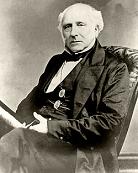


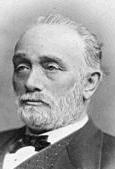







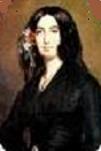

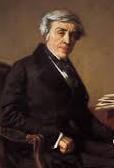












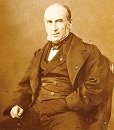
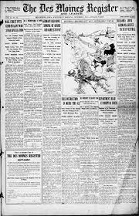
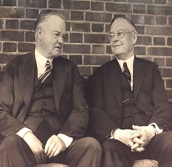

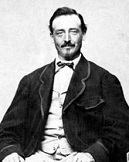
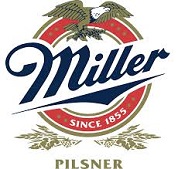





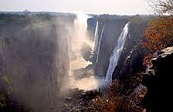
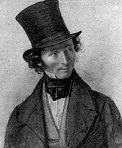
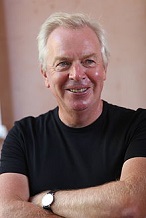
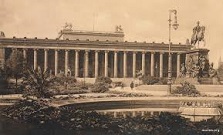

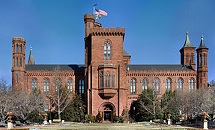
1855 The 1855 U.S. Yellow Fever Epidemic begins after a steamship from the West Indies docks at Norfolk, Va. and mosquitoes in its cisterns begin to spread the disease; the city quickly empties, and a third of the remaining pop. dies. Castle Garden (AKA Castle Clinton or Ft. Clinton) in Battery Park on the S tip of Manhattan in New York City opens as the first U.S. immigration station, processing 8M immigrants by the time it closes in 1890. On Jan. 30 despite the queen's opposition, the suffering of the British soldiers in the Russian winter causes the fall of British PM (since Dec. 19, 1852) George Hamilton-Gordon, 4th Earl of Aberdeen and his cabinet, and on Feb. 6 Henry John Temple, 3rd Viscount Palmerston (1784-1865) (AKA Lord Palmerston), who got Britain into the Crimean War and now rides the wave becomes PM at the head of an all-Whig cabinet (until Feb. 19, 1858); too bad, he vacillates between Whig and Tory sentiments, making party loyalties ever-shaky? In Jan. Egypt abolishes the Muslim jizya (poll tax) on non-Muslims, and begins promulgating a new penal code. On Feb. 7 the Treaty of Shimoda, negotiated by Russian adm. Yevfimy Putyatin and Toshiakira Kawaji (1801-68) of Japan begins their official commercial relationship. On Feb. 12 Mich. State U. (originally the Agricultural College of the State of Mich. until 1861, then State Agricultural College until 1909, then Mich. Agricultural College until 1925, then Mich. State College of Agriculture and Applied Science until 1955, then Mich. State U. of Agriculture and Applied Science until 1964) is founded in East Lansing, Mich., opening for classes on May 13, 1857 with five faculty and 63 students, becoming the first U.S. land grant univ. under the 1862 U.S. Morrill Act, and one of the first to teach scientific agriculture; in 1870 it goes coed; in 1899 it admits its first black student, William O. Thompson, followed in 1903 by the first female black student, Myrtle Craig; sports teams are called the Spartans. On Feb. 15 four of the seven Cunard steamships are sent by the British govt. to aid in the blockade of Sebastopol. On Feb. 17 tsar (since Dec. 1, 1825) Nicholas I (b. 1796) receives news of the Russian D at the Battle of Evpatoria (Yevpatoria) in the Crimea, and poisons himself, dying in the Winter Palace in St. Petersburg (of pneumonia?) on Mar. 2 (Feb. 18 Old Style), and his eldest son Alexander II (1818-81) succeeds him as Russian Romanov tsar #16 (until Mar. 13, 1881), continuing Russia's war policy and liberating the serfs in 1861, gaining the name Alexander the Liberator; on Mar. 15 a peace conference in Vienna fails. On Feb. 22 Penn. State U. (originally Farmers' H.S. of Penn. until 1862, then Agricultural College of Penn., and Penn. State College in 1874-1953) is founded in State College, Penn. by the Mass. legislature; the football team is called the Nittany ("single mountain") Lions. On Mar. 3 the Government Hospital for the Insane (later St. Elizabeths Hospital) is established in Washington, D.C. by the U.S. Dept. of the Interior. On Mar. 3 after a newspaper article by Gen. Edward Fitzgerald "Ned" Beale (1822-93), who got the idea while exploring Death Valley with Kit Carson, causing U.S. war secy. Jefferson Davis to send a ship under Capt. David Dixon Porter to Tunis to purchase a herd, the U.S. Congress founds the U.S. Camel Corps, which next summer ships some camels to Camp Verde, Tex. On Mar. 12 Nicaraguan pres. (since 1854) Fruto Chamorro Perez (b. 1804), having stopped the Liberal revolt dies of dysentery, then in June a small mercenary army led by (guess who?) William Walker, hired by the Liberals to overthrow Vanderbilt's conservative govt. invades Nicaragua, captures Granada, and declares Walker pres. next year. On Mar. 30 Britain and Afghanistan join against Persia in the Treaty of Peshawar, confirming British annexation of Peshwar and the Punjab, and causing Dost Mohammed to renounce expansion into British India. In spring Lecompton, Kan. (founded 1854) (original name Bald Eagle) on the S bank of the Kansas River becomes capitol of the Kansas Territory, coming under control of pro-slavery settlers. On Apr. 21 the first railroad train crosses the Mississippi River on the Rock Island to Davenport Line. In Apr. 29 mi. of track are laid from Balaklava to Sevastopol, allowing the British and French armies to be resupplied, and the hardy British railroad builders become the real heroes of the Crimean War?; an electric telegraph is built between Balaklava and London. On May 15-Nov. 15 the first Exposition Universelle (World's Fair) is held in Paris, organized by Pierre Guillaume Frederic le Play (1806-82), and attracting 5M visitors, incl. Queen Victoria; it creates the 1855 Bordeaux Wine Official Classification, assigning the classification of premier cru (first growth) to Chateau Latour, Chateau Lafite Rothschild, Chateau Margaux, and Chateau Haut-Brion, all located in Medoc except Haut-Brion, which is in Graves; the Manny Reaper beats the McCormick Reaper, causing Cyrus McCormick to sue for patent infringement, hiring atty. Reverdy Johnson, while John H. Manny hires George Harding, Edwin M. Stanton, and young Abraham Lincoln, who ends up being told to sit in the audience because he looks like a "long-armed baboon" and dirty clothes, humiliating him, but forcing him to become a better lawyer?; Manny wins. On June 2 the Portland Rum (Maine Law) Riot results after Quaker mayor Neal S. Dow breaks his own law by authorizing a shipment of alcohol, claiming medical use, causing the Irish pop. of the town to go nonlinear (since the 1851 prohibition law was obviously aimed at them all along?), and surround the bldg. where the spirits are stored, causing Dow to call out the militia, which fires into the crowd, killing one and wounding seven; Dow is later prosecuted for violating his own law, but acquitted, but his political career is kaput, and the Maine prohibition law is repealed in 1856. On June 14 Mormon missionaries arrive at the site of Las Vegas Springs in modern-day Las Vegas, Nevada ("the meadows") (modern-day pop. 2.2M/650K), and select the site of Old Mormon Fort, which protects the midpoint of the Mormon trail from Salt Lake City to Los Angeles from Indian attacks; it is abandoned in 1857. On June 18 the Battle of Sebastopol is a D for the British and French against the Russians, after which British gen. Lord Raglan dies on June 28 of dysentery. In the summer there is a heat wave in London that causes a cholera outbreak and raises such a stink that Parliament orders 80 mi. of sewers built, finally turning it into a modern city; the next hottest heat wave is in 2003. On Aug. 25 the Kan. Territorial Legislature creates the huge Arapahoe County covering the W part of Kan. Territory, named after the Arapaho Nation (until Jan. 29, 1861). On Sept. 8 the Battle of Malakov (Malakoff) Hill (Mound) (Barrow) is a V for the French under Gen. MacMahon; meanwhile the Battle of the Great Redan is a D for the British, but the Siege of Sebastopol (begun Oct. 17, 1854) is won by the Allies on Sept. 9, with a total of 102K Russian casualties vs. 10,240 French KIA, 20K dead of wounds, and 50K dead of disease, 2,050 Piedmontese killed, and 2,755 British KIA, 2,019 dead of wounds, and 16,323 dead of disease (total of 128,387 Allied deaths); French Gen. Pierre Francois Joseph Bosquet (1810-61) is severely wounded during the assault on Malakov, causing him to retire from the military, and next year he is appointed to the Senate and is made a marshal of France. On Sept. 18 after it goes looking for the 1845 Sir John Franklin Expedition in the Arctic in 1850 and ends up abandoned, the HMS Resolute is found by Am. whaler George Henry in an ice flow off Cape Walsingham in Baffin Island, and returned to Britain, after which Queen Victoria visits it and orders three desks to be made from some of its timbers; the Resolute Desk is presented by Queen Victoria in 1880 to U.S. Pres. Rutherford B. Hayes, who puts it in the White House, after which it is moved into the Oval Office in 1961 by First Lady Jackie Kennedy, then moved to the Smithsonian Inst. after JFK's 1963 assassination, and returned by Pres. Jimmy Carter; the Grinnell (Queen Victoria) Desk ends up in the New Bedford Whaling Museum in Mass.; the Queen Victoria Desk II ends up in the Royal Naval Museum in Portsmouth, England. In Sept. renewed British and French assaults, assisted by Italian troops cause the Russians to abandon Sebastopol after a 11-mo. siege. On Oct. 6 the Battle of Masaguara in Honduras sees Guatemalan-backed gen. Jose Lopez defeat the army of Honduran pres. Jose Trinidad Cabanas, who flees to El Salvador, causing vice-pres. Jose Santiago Bueso to become pres. on Oct. 18-Nov. 8, followed by Francisco de Aguilar (until Feb. 17, 1856). In Oct. Chinese pirates near Kulau attack British and U.S. boats, making big headlines in the U.S. Peru abolishes slavery, leaving the "peculiar institution" only in the U.S., Brazil, Cuba, Puerto Rico, Dutch Guiana, and the Dutch West Indies. Commodore Perry returns to the U.S., and New York City merchant and former board of ed. pres. (1846-7) Townsend Harris (1804-78) is appointed the first U.S. consul-gen. to Japan. In Nov. David Livingstone becomes the first European to see the exciting Victoria Falls ("Mossioatunya" = "smoke that thunders") on the Zambezi River; he then travels to the mouth of the Zambezi River, then NE to Quelimane on the coast next year, becoming the first European to cross Africa, and finally sails for England - to get the Victorians excited? On Nov. 21 the Wakarusa War in Kansas Territory (ends Dec.) begins when pro-slavery settler Franklin N. Coleman kills free-stater settler Charles Dow, causing a 1.5K-man army from Mo. under Douglas County, Kan. sheriff Samuel J. Jones to break into the U.S. arsenal in Liberty, Mo. then siege Lawrence, Kan., which is defended by free-state settlers under John Brown and James Lane, until a peace treaty is signed before an attack can be made; Topeka mayor Cyrus K. Holliday is given the honorary title of col. for leading a regiment of free-staters, after which Topeka is named the new state capital after statehood in 1861; the only person KIA is free-stater Thomas Barber, who becomes the subject of a poem by John Greenleaf Whittier titled Burial of Barber; "That the State whose walls we lay,/ In our blood and tears, to-day,/ Shall be free from bonds of shame,/ And our goodly land untrod/ By the feet of Slavery, shod/ With cursing as with flame!" On Dec. 11 after Benito Juarez returns from exile in New Orleans and joins him in a revolt against Santa Anna, Ignacio Gregorio Comonfort de los Rios (1812-63) becomes pres. #25 of Mexico (until Dec. 17, 1857), and Juarez becomes minister of justice, instituting reforms while drafting a new constitution. After a group of U.S. Army engineers destroy property in SW Fla. on a surveying expedition (accidentally on purpose?), Seminole Chief Billy Bowlegs begins the Third Seminole War (ends 1858), evading the palefaces and engaging in guerrilla warfare. The Yakima (Yakama) War begins in the NW U.S. (ends 1858). Ramon Castilla is reelected pres. of Peru (until 1862). The Blancos and Colorados go at it again in sheep-raising Uruguay. Abraham Lincoln is an unsuccessful candidate for senator from Ill. London alderman (since 1847) Sir David Salomons, 1st Baronet (1797-1873), first Jewish sheriff of the city of London becomes the first Jewish lord mayor of London, England, later the first Jewish magistrate. Penn.-Ohio surveyer, tanner, and sheep-raiser John Brown (1800-59) moves from North Elba, N.Y. to Kansas, and soon becomes a leading figure in the violent conflict between free-state and pro-slavery settlers in Bleeding Kansas. The term "fiasco" (from Fr. "fiare fiasco" = turn out a failure, which derives from It. "far fiasco" = make a bottle) is coined for failed theatrical performances; by 1862 it is used for non-theatrical disasters also. P.T. Barnum, known for the saying "there's a sucker born every minute" proves himself a you know what by losing $500K in the Jerome Clock Co. Swindle, causing him to file for bankruptcy and contemplate suicide. French-born Am. anthropologist Paul Belloni Du Chaillu (1835-1903) begins an expedition to C Africa sponsored by the Philly Academy of Natural Sciences, returning in 1859 with unknown birds and animals, incl. the first gorillas seen in the U.S. The Warmspring combo Shahaptian tribe is combined with the Wasco tribe on the 1M sq. mi. Warm Springs Reservation in NC Ore.; the 271 sq. mi. Umatilla Reservation in NE Ore. combines the Umatilla, Cayuse, and Wallawalla Shahaptian tribes. The port city of Hoboken, N.J. ("place of the tobacco pipe") (modern-day pop. 50K) across the Hudson River from New York City is incorporated on Mar. 28. The city of Bytown in Canada is renamed Ottawa, while Toronto becomes the capital of Canada again (until 1858). The city of Managua on Lake Managua is founded as the capital of Nicaragua to end a feud (modern-day pop. 1.4M/1M). The city of Minneapolis, Minn. (modern-day pop. 3.6M/382K) on the W bank of the Mississipi River opposite St. Anthony Falls near Ft. Snelling (built 1819) is founded by Scandinavian immigrants from land stolen, er, purchased from 21 Dakota Sioux, incl. Taoyateduta (Little Crow) (1810-63); it is incorporated in 1867 as rail service begins with Chicago. The city of Pretoria in Transvaal (later Gauteng), South Africa (modern-day pop. 740K/2.9M)), named after recently-deceased Boer Great Trek leader Andries Wilhelmus Jacobus Pretorius (1798-1853) is founded by his son Marthinus Wessel (Wessels) Pretorius (1819-1901); in 1860 it becomes the capital of Transvaal; in 2005 it is renamed Tshwane over the objections of whites. The city of Battle Ground, Wash. near Ft. Vancouver (modern-day pop. 17K) is founded near where escaped Klickitat chief Umtuch (Umtux) is accidentally killed while being apprehended by post cmdr. capt. William Strong, who lets his tribe bury them before voluntarily returning without a battle, pissing-off the local settlers, who call him a whimp and award him a petticoat; it is incorporated on June 18, 1951. Mich. and Penn. establish land-grant agricultural and mechanical colleges, which later become Michigan State U. in East Lansing, Mich., home of the Spartans, and Penn. State U. in University Park, Penn., home of the Nittany ("single mountain") Lions; on Aug. 29, 1896 the town of State College, Penn. (modern-day pop. 42K) is incorporated. Bates College in Lewiston, Maine is founded on Mar. 16 by abolitionists. Butler U. in Indianapolis, Ind. is founded by abolitionist Christian (Disciples of Christ) atty. Ovid Butler (1801-81); in 1924 the dept. of religion splits off. Edinburgh U. creates a professorship of technology - safe for Scotty? The Swiss Federal Inst. of Technology (ETH Zurich) in Zurich, Switzerland opens, doing a balancing act with the different languages and religions to advance industry. The Des Moines Register (originally the "Iowa Citizen") begins pub., becoming the "Iowa State Register" in 1860; in 1902 it merges with the Des Moines Leader, becoming the Des Moines Register and Leader; in 1903 it is purchased by Des Moines banker and Repub. politician Gardner Cowles Sr. (1861-1946), who renames it "The Des Moines Register" in 1915 after acquiring the evening Des Moines Tribune in 1908, which he merges with the Des Moines News in 1924 and Des Moines Capital in 1927, ceasing pub. on Sept. 25, 1982; in 1943 the Register becomes the first newspaper to sponsor a statewide opinion poll, the Iowa Poll; on Aug. 26, 1973 it sponsors the first non-competitive Register's Annual Great Bicycle Ride Across Iowa (RAGBRAI), becoming the largest bike touring event on Earth. Richard Wagner conducts a series of orchestral concerts in London. British historian Philip Henry Stanhope, 5th Earl Stanhope (1805-75) founds the Stanhope Essay Prize at Balliol College, Oxford U. Frank Leslie's Illustrated Newspaper, founded by English-born Frank Leslie (1821-80), chief engraver for P.T. Barnum begins pub. (until 1922), using wood block engravings to create the prototype of photojournalism, later capturing the key events of the U.S. Civil War. German-born optician John Jacob Bausch (1830-1926) of Rochester, N.Y. and German-born salesman friend Henry Lomb (1828-1908) found Bausch & Lomb, and get lucky when Bausch finds a piece of Vulcanite rubber on a New York City street and figures out how to make eyeglass frames from it, beating gold and horn pricewise, going on to build the first spectacle-making machine in the U.S. in 1860. The London Daily Telegraph begins pub., reaching a circ. of 240K by 1877, becoming the world's highest-circulation newspaper. Christopher Henry Miller and Augustus Elmer found Elmer Chocolate Co. in New Orleans, La., going on to produce Heavenly Hash Eggs (1923) and Gold Brick Eggs (1936). Miller Brewing Co. is founded in the Miller Valley in Milwaukee, Wisc. by Riedlingen, Germany-born Frederick Edward John Miller (1824-88) from the purchase of the Plank Road Brewery; in 1903 it introduces highly-carbonated Miller High Life, sold in small champagne bottles, with the ad slogan "The Champagne of Beers", and a Girl in the Moon logo that is alleged based on Miller's granddaughter; in 1966 it is acquired by W.R. Grace and Co., which in 1969 is acquired by Philip Morris fo $130M; in 2002 Miller is acquired by South African Breweries (SAB) for $5.6B; in 2007 SABMiller and Molson Coors combine to form MillerCoors. Architecture: On Mar. 18 the Niagara Falls Suspension Bridge (begun 1848) opens, becoming the world's first working railway suspension bridge, connecting Niagara Falls, Ont., Canada with Niagara Falls, N.Y.; the Maid of the Mist tour boat starting and ending on the U.S. side (founded 1846) starts near the Rainbow Bridge, sails past American Falls and Bridal Veil Falls and into Horseshoe (Canadian) Falls; in 1897 it is replaced by the Whirlpool Rapids Bridge. On July 5 the Theatre des Bouffes Parisiens at 4 Rue Monsigny in Paris opens with the musical operetta "Les Deux Aveugles" by German-born Jewish former cellist Jacques Offenbach (1819-80), moving on Dec. 29, 1856 to the location of the Theatre Conte, with Offenbach coining the term "opera bouffe" to describe his works, which are full of comedy, parody, satire and farce. The Royal Victoria Dock on the Thames River is completed. A statue of St. Francis is put on the Charles Bridge in Prague. The Bavarian Nat. Museum in Berlin is founded by Maximilian II. The New Museum (Neues Museum) in Berlin, Prussia (begun 1843) is finished, designed by Friedrich August Stueler (Stüler) (1800-65), located N of the Old Museum (Altes Museum) on Museum Island, going on to house an Egyptian collection; too bad, it is bombed-out during WWII, and doesn't reopen until Oct. 2009 after being overseen by English architect Sir David Alan Chipperfield (1953-). The Romanesque Gothic Revival red sandstone Smithsonian Inst. Bldg. (AKA the Castle) in Washington, D.C. (begun in 1847) is completed, designed by Bloomingdale, Manhattan, N.Y.-born James Renwick Jr. (1818-95). Inventions: George Audemars receives the first patent for an artificial silk derived from mulberry bark. Anders Larsen Bakke (1815-99) of Vale, Norway (50 mi. S of Oslo) begins producing Jarlsberg Cheese, a copy of the classic Swiss Emmentaler with a slightly sweet flavor, making it better for snacking. Sir Sir Henry Bessemer (1813-98) of England patents the Bessemer Process for mass production of steel by blasting air through molten pig iron in a large Bessemer container to burn away carbon and other impurities, causing English steel production to zoom, and bringing him total royalties of over £1M, plus all the perks, incl. a knighthood; he even begins manufacturing steel strings for pianos. German chemist Robert Wilhelm Eberhard Bunsen (1811-99) invents the gas Bunsen Burner, and magnanimously refuses to file a patent application; actually technician Peter Desaga invents it but he takes the credit? Spirit genocide, or This is how a heart breaks? English-born Dr. Isaiah Deck of New York City proposes using recycled Egyptian mummies for newspaper; in 1860 Augustus Stanwood of Gardiner, Maine uses them to manufacture heavy brown wrapping paper for meat; they are also used to fuel railroad engines - Denial is a river in Egypt? German physicist Johann Heinrich Wilhelm Geissler (1814-79) invents the sealed glass Geissler Tube, which emits a bluish glow when excited by an induction coil, becoming the ancestor of the fluorescent lamp. British-born Ky. music prof. David Edward Hughes (1831-1900) invents the printing telegraph, which is adopted by Western Union and becomes an internat. standard. Franz Koller (Köller) of Austria patents tungsten steel. R.S. Lawrence of Vt. invents the turret lathe. Johan Edvard Lundstrom of Sweden invents the safety match. Lewis Miller (1829-99) patents the first Combine, which he calls the Buckeye Mower and Reaper, putting the the blade in front of the horses and incl. a mechanical arm to lift bound sheaves into a wagon. Science: Pure cystalline Cocaine is extracted from perishable cocoa beans by German chemist Friedrich Gaedcke (1828-90); he calls it erythroxyline. Nonfiction: Alexander Bain (1818-1903), Senses and Intellects; founds modern psychology. John Bartlett (1820-1905), Bartlett's Familiar Quotations; to show "the obligations our language owes to various authors for numerous phrases and familiar quotations which have become 'household words'"; based mainly on the King James Bible and the works of Shakespeare, which came out within a decade or so of each other. Ioan Bratianu (1822-91), Memoir sur l'Empire d'Autriche dans la Question d'Orient Ludwig Buchner (1824-99), Kraft und Stoff: Empirisch-naturphilosophische Studien (Force and Matter: Empiricophilosophical Studies); his magnum opus; attempts to prove the indestructibility of matter and the finality of physical force; too bad, its extreme materialism pisses-off critics so much that he has to resign from his position at the U. of Tubingen, becoming a physician and founding the German Freethinkers League in Frankfurt in 1881. Jacob Burckhardt (1818-97), Cicerone; art history. Sir Richard Francis Burton (1821-90), A Pilgrimage to Mecca. Auguste Comte (1798-1857), Appel aux Conservateurs; La Synthese Subjective d'Auguste Comte. Sir Edward Shepherd Creasy (1812-78), The Rise and Progress of the English Constitution (17th ed. 1886), Charles Henry Davis (1807-77), American Ephemeris and Nautical Almanac; issued by the U.S. Naval Observatory. Frederick Douglass (1818-95), My Bondage, My Freedom. Johann Gustav Droysen (1808-84), History of Prussian Policy (1855-86). Auguste Gratry, Connaissance de Dieu. Achille Guillard, Elements de Statistique Humaine ou Demographie Comparee; coins the term "demography", the science concerned with the social well-being of the people - people reduced to statistics then to theories? William Joseph Hardee (1815-73), Rifle and Light Infantry Tactics; becomes required reading for Union and Confed. officers. Hinton Rowan Helper (1829-1909), The Land of Gold; a Southern slaveholder moves to Calif. and finds life in a free state to be superior. Jakob Henle (1809-85), Handbook of Systematic Human Anatomy (1855-73); becomes std. reference, first describing the Loop of Henle in the kidney and other choice features. Arsene Houssaye (1815-96), Histoire du Quarante et Unieme Fauteuil de l'Academie Francaise. Leigh Hunt (1784-1859), The Old Court Suburb (2 vols.); sketch of Kensington, London. Benjamin Jowett (1817-93), Epistles of St. Paul; arouses controversy with its liberal interpretations. Edouard Rene Lefevre de Laboulaye (1811-83), Political History of the United States (3 vols.) (1855-66). Eliphas Levi (1810-75), Dogma de la Haute Magie; (Dogma of Transcendental Magic); followed next year by Ritual de la Haute Magie; combined ed. pub. in 1896; expounds a magic system using Tarot cards that becomes popular with the Hermetic Order of the Golden Dawn and Aleister Crowley; contains a famous drawing of Baphomet, with naked human breasts; Arthur Edward Waite of England pub. an English trans. in 1910 titled Transcendental Magic: Its Doctrine and Ritual; "Behind the veil of all the hieratic and mystical allegories of ancient doctrines, behind the darkness and strange ordeals of all initiations, under the seal of all sacred writings, in the ruins of Nineveh or Thebes, on the crumbling stones of old temples and on the blackened visage of the Assyrian or Egyptian sphinx, in the monstrous or marvelous paintings which interpret to the faithful of India the inspired pages of the Vedas, in the cryptic emblems of our old books on alchemy, in the ceremonies practised at reception by all secret societies, there are found indications of a doctrine which is everywhere the same and everywhere carefully concealed." (intro. to 2nd ed.) Matthew Fontaine Maury (1806-73), The Physical Geography of the Sea; first textbook of modern oceanography, causing him to become known as "the Father of Modern Oceanography and Naval Meteorology", "Pathfinder of the Seas", and "Scientist of the Seas". Jules Michelet (1798-1874), Histoire de France (History of France) (19 vols.); his magnum opus; covers from the birth of France to the French Rev., giving the first vivid account of the Middle Ages, applying liberal principles, concentrating on ordinary people instead of leaders and institutions; coins the term "Renaissance" (rebirth) to represent a drastic break with the Middle Ages, which he disses as a fossilized culture, trying to explain how it was overcome; promotes the "la longue duree" view of French history later adopted by the Annales School; breaks history down into three themes: Maleficent (Dry, Empty, Turgid, Indeterminate), Beneficent, and Paired (Grace and Justice, Union and Unity); the two chapters on Joan of Arc are printed separately, becoming known as the French nat. Bible, with him becoming known as the French nat. historian. Charles Henry Miller (1842-1922), The Philosophy of Art in America; pub. under pen name Carl De Muldor. Henry Milman, History of Latin Christianity. Benjamin Peirce (1809-80), Physical and Celestial Mathematics. Pierre Guillaume Frederic le Play (1806-82), Les Ouvriers Europeens; 36 monograms based on his observations of 300 influential royal families during his travels in 1829; his exhaustive observations spawn the method of case study, esp. when scientists try to work out his bugs. William Hickling Prescott (1796-1859), The History of the Reign of Philip the Second, King of Spain (4 vols.) (1855-8) (unfinished). George Sand (1804-76), The Story of My Life (1854-5) (autobio.). Herbert Spencer (1820-1903), Principles of Psychology. David Friedrich Strauss (1808-74), Nikodemus Frischlin. Bayard Taylor (1825-78), A Visit to India, China and Japan in the Year 1853. Leo Tolstoy (1828-1910), Sevastopol Sketches (1855-6); Sept. 1854-Sept. 1855. Music: Hector Berlioz (1803-69), Te Deum (Paris) (composed 1849). Stephen Foster (1826-64), Come Where My Love Lies Dreaming. Charles Gounod (1818-93), Le Medecin Malgre Lui (opera); his first success. Jacques Fromental Halevy (1799-1862), Jaguarita l'Indienne (opera); L'Inconsolable (opera). Jacques Offenbach (1819-80), Les Deux Aveugles (The Two Blind Men) (operetta) (July 5) (Theatre des Bouffes-Parisiens, Paris); Ba-Ta-Clan (operetta). George Petrie (1790-1866) (ed.), The Ancient Music of Ireland; incl. The Londonderry Air; original title "Farewell to Cuchulain". Joseph Medlicott Scriven (1819-86), What a Friend We Have in Jesus (original title "Pray Without Ceasing") (pub. in 1870); composed comfort his ailing mother; set to music in 1868 Charles Crozat Coverse (1832-1918). Giuseppe Verdi (1813-1901), Les Vepres (Vêpres) Siciliennes (The Sicilian Vespers) (opera) (June 13) (Paris Opera); based on the 1282 Sicilian Vespers; French libretto by Charles Duveyrier and Eugene Scribe. Art: Gustave Courbet (1819-77), Pavillon du Realisme (Réalisme) (Paris World Fair). Thomas Couture (1815-79), Day Dreams. Charles-Francois Daubigny (1817-78), The Lock at Optevos. Jean-Leon Gerome (1824-1904), The Age of Augustus and the Birth of Christ. George Inness (1825-94), The Lackawanna Valley. Jean-Louis Ernest Meissonier (1815-91), The Gamblers; The Quarrel (La Rixe) (presented by Napoleon III to the British court). Plays: George Henry Boker (1823-90), Francesca da Rimini. Alexandre Dumas fils (1824-95), Le Demi-Monde. Poetry: Thomas Bailey Aldrich (1836-1907), The Bells (debut). Robert Browning (1812-89), Men and women; sells poorly although it is later lauded by critics; incl. Love Among the Ruins. Leigh Hunt (1784-1859), Stories in Verse. Adolf Kussmaul (1822-1902) and Ludwig Eichrodt (1827-92), Biedermeier Poems; by fictitious author Gottlieb Biedermeier, satirizing German bourgeois tastes. Henry Wadsworth Longfellow (1807-82), The Song of Hiawatha (of the Chippewas) (Nov. 10); bestseller (50K copies); set at the Pictured Rocks on the S shore of Lake Superior; Hiawatha and his lover Minnehaha; Hiawatha's mother Wenonah and grandmother Nokomis; "the Priest of Prayer, the Pale-face" AKA the "Black-Robe chief" converts him to Christianity; "By the shores of Gitche Gumee,/ By the shining Big-Sea-Water,/ Stood the wigwam of Nokomis,/ Daughter of the moon, Nokomis.../ There the wrinkled old Nokomis/ Nursed the little Hiawatha." George Meredith (1828-1909), The Shaving of Shagpat. Alfred, Lord Tennyson (1809-92), Maud: A Monodrama; a man gets even with a squire who ruined his family, killed his brother in a duel, and fled the country by seducing his daughter; "Come into the garden, Maud,/ For the black bat, Night, has flown". Walt Whitman (1819-92), Leaves of Grass; 12 poems, growing to 32 in the 2nd. 1856 ed. and almost 400 in the 6th and final 1892 ed.; "grass" is slang for works of minor value, and "leaves" is slang for the pages they're printed on; self-pub. after struggling for years of rejection by commercial publishers; he began to get discouraged until he received a note from Ralph Waldo Emerson reading: "Dear sir, I am not blind to the worth of the wonderful gift of Leaves of Grass. I find it the most extraordinary piece of wit and wisdom that America has yet contributed. I greet you at the beginning of a great career"; Emerson suggests that he omit some overtly sexual passages, but he declines; "I was simmering, simmering, simmering; Emerson brought me to a boil"; incl. Song of Myself ("The Modern Man I sing"; "For every atom belonging to me as good belongs to you") ("I am large, I contain multitudes"), O Captain! My Captain! (about his hero Abraham Lincoln) ("Now, voyager, sail thou forth to seek and find"), Out of the Cradle Endlessly Rocking, Passage to India, Children of Adam, Calamus, When Lilacs Last in the Dooryard Bloom'd. Novels: Edmond About (1828-85), Tolla Feraldi(2 vols.) (first novel); first appeared in "Revue des Deux Mondes"; Les Mariages de Paris (short stories); first pub. in the "Moniteur"; gets his lit. career off to a fast start. Jules Amedee Barbey d'Aurevilly (1808-89), The Bewitched (L'Ensorcelée); a royalist rising among the Norman peasants against the French First Repub. Charles Dickens (1812-70), Little Dorritt (1855-7) (900 pages); his most popular novel; 1820s seamstress Little Amy Dorritt (based on his ex-girlfriend Maria Beadnell) helps her dad escape Marshalsea Prison in Southwark, London after 20 years (where Dickens' dad was sent in 1824 for a debt of 40 pounds and 10 shillings) after getting her friend Arthur Clemain to settle the debt for 20 pounds; "It is gone now, and the world is none the worse without it"; Barnacle Junior of the Circumlocution Office ("Upon my soul, you mustn't come into the place saying you want to know, you know"). Gustav Freytag (1816-95), Soll und Haben. Margaret Oliphant (1828-97), Lilliesleaf. Charles Godfrey Leland (1824-1903), Meister Karl's Sketch-book. Otto Ludwig (1813-65), Between Earth and Sky (Zwischen Himmel und Erde); his masterpiece? Herman Melville (1819-91), The Paradise of Bachelors and the Tartarus of Maids; Israel Potter: His Fifty Years of Exile. Anthony Trollope (1815-82), The Warden; first in the "Chronicles of Barsetshire" (6 vols.) (1855-67). Ivan Turgenev (1818-83), Rudin; another superfluous man. Births: Am. safety razor king (Utopian Socialist) King Camp Gillette (d. 1932) on Jan. 5 in Fond du Lac, Wisc. English cricketer Lyndhurst Winslow (d. 1915) on Jan. 10 in Leamington, Warwickshire; father of Charles Lyndhurst Winslow (1888-1963). French actor ("the Handsomest Man in Europe") ("Diplomat Apollo") Jacques Damala (Aristides Damalas) (d. 1889) on Jan. 15 in Piraeus, Greece; born to a wealthy aristocratic family; husband (1882-9) of Sarah Bernhardt (1844-1923). French Romantic "Poeme de l'Amour et de la Mer" composer Ernest Chausson (d. 1899) on Jan. 20 in Paris. Am. firearms designer (Mormon) John Moses Browning (d. 1926) on Jan. 23 (Jan. 21?) in Ogden, Utah; his first of 128 gun patents is granted on Oct. 7, 1879. German gonorrhea physician-bacteriologist (Jewish) Albert Ludwig Sigesmund Neisser (d. 1916) on Jan. 22 in Schweidnitz (Swidnica). English Ley Lines archeologist Alfred Watkins (d. 1935) on Jan. 27 in Hereford. Am. inventor (Burroughs Corp. founder) William Seward Burroughs Sr. (d. 1898) on Jan. 28 in Rochester, N.Y.; grandfather of William S. Burroughs (1914-97); great-grandfather of William S. Burroughs Jr. (1947-81). Am. Carnegie Hall architect William Burnet Tutill (d. 1929) on Feb. 11 in Hoboken, N.J.; educated at CCNY. Am. actor (Jewish) Jacob (Yankev) Pavlovitch Adler (d. 1926) on Feb. 12 in Odessa, Ukraine; emigrates to the U.S. in 1889. Portuguese PM #48 (1906-08) Joao Franco Ferreira Pinto Castelo-Branco (d. 1929) on Feb. 14 in Alcaide, Fundao. Am. Hawaiian rev. leader ("the Iron Duke of Hawaii") Robert William Kalanihiapo Wilcox (d. 1903) on Feb. 15 in Maui, Hawaii; Am. father, Hawaiian mother; educated at the Royal Military Academy of Turin. German gen. Otto Liman von Sanders (d. 1929) on Feb. 17 in Stolp, Pomerania, Prussia. French writer-diplomat (French ambassador to the U.S. in WWI) Jean Adrien Antoine Jules Jusserand (d. 1932) on Feb. 18 in Lyon; educated at the U. of Lyon. Am. Sanskrit philologist Maurice Bloomfield (d. 1928) on Feb. 23 in Bielitz, Austrian Silesia; emigrates to the U.S. in 1867; educated at Yale U., and Johns Hopkins U. Am. Martian canals astronomer Percival Lawrence Lowell (d. 1916)) on Mar. 13 in Boston, Mass.; brother of poet Amy Lowell (1874-1925) and educator Abbott Lowell (1856-1943); educated at Harvard U. - that's pretty low of the parents to inflict them with the names Percy, Amy, and Abbott? Belgian ambassador-historian Baron Napoleon-Eugene Beyens (d. 1934) on Mar. 24 in Paris. Am. financier-philanthropist, U.S. treasury secy. #49 (1921-32), and ambassador Andrew William Mellon (d. 1937) on Mar. 24 in Pittsburgh, Penn.; Scots-Irish immigrant parents; founder of Donora, Penn., the Mellon Nat. Bank, and the Nat. Gallery of Art. South African "The Story of an African Farm" pacifist novelist Olive Emilie Albertina Schreiner (d. 1920) on Mar. 24 in Basutoland, Eastern Cape; daughter of a Lutheran clergyman. Am. painter William Gilbert Gaul (d. 1919) on Mar. 31 in Jersey City, N.J. Am. mining engineer-diplomat John Hays Hammond Sr. (d. 1936) on Mar. 31 in San Francisco, Calif; educated at Yale U., and the Royal School of Mines in Freiburg; father of John Hays Hammond Jr. (1888-1965). Am. writer (feminist) (Roman Catholic) ("Our dean of essayists" = Edward Wagenknecht) Agnes Repplier (d. 1950) on Apr. 1 in Philadelphia, Penn. Am. Imperial historian Herbert Levi Osgood (d. 1918) on Apr. 9 in Canton, Maine; educated at Amherst College, and Columbia U. German cultural critic and writer Ernst von Wolzogen (d. 1934) on Apr. 23. Irish "Molly Bawn" Romantic novelist Margaret Wolfe Hungerford (nee Hamilton) (d. 1897) on Apr. 27 in County Cork. English Victorian New Age novelist Marie Corelli (Mary Mackay) (d. 1924) on May 1 in London; illegitimate daughter of Charles Mackay (1814-89) and his servant Elizabeth Mills. Austalian microbiologist Sir David Bruce (d. 1931) on May 2 in Melbourne. Am. poet-critic George Edward Woodberry (d. 1930) on May 12 in Beverly, Mass.; educated at Harvard U. Canadian businessman-diplomat (founder of Salada Tea Co.) and Canadian high commissioner to the U.K. (1922-30) Peter Charles Larkin (d. 1930) on May 14 in Montreal, Quebec. Am. "Pledge of Allegiance" Christian Socialist author (Freemason) Francis Julius Bellamy (d. 1931) on May 18 in Chicopee Falls, Mass.; cousin of Edward Bellamy (1850-98); great-grandson of Joseph Bellamy (1719-90). Belgian Symbolist poet-playwright Emile (Émile) Adolphe Gustave Verhaeren (d. 1916) on May 21 in Sint-Amands; educated at the U. of Leuven. English dramatist Sir Arthur Wing Pinero (d. 1934) on May 24 in London; becomes an actor from age 19-26, then switches to dramatist; knighted in 1909. Australian bushranger Edward "Ned" Kelly (d. 1880) on June 3 in Victoria; Irish convict father. U.S. Sen. (R-Wisc.) (1905-25) (Progressive Party leader) Robert Marion "Fighting Bob" La Follette Sr. (d. 1925) on June 14 in Primrose, Wisc.; father of Robert M. Follette Jr. (1895-1953). Am. gambling house owner Richard Albert Canfield (d. 1914) on June 28 in New Bedford, Mass.; namesake of Canfield Solitaire. Am. journalist (Dow Jones & Co. owner, 1903-28) Clarence W. Barron (d. 1928) on July 2 in Boston, Mass. German novelist-playwright Ludwig Ganghofer (d. 1920) on July 7 in Kaufbeuren. German "Gemeinschaft und Gesellschaft" sociologist Ferdinand Tonnies (Tönnies) (d. 1936) on July ? near Oldensworth (Eiderstedt, North Frisia). Am. economist Fred Manville Taylor (d. 1932) on July 11 in Northville, Mich.; educated at the U. of Mich. Swiss chocolatier Rodolphe (Rudolf) Lindt (d. 1909) on July 16 in Berne. Serbian Gen. Zivojin Misic (d. 1921) on July 19 in Struganik. Canadian prospector (founder of Dawson City) Joseph Francis "Joe" Ladue (d. 1901) on July 28 in Schuyler Falls, N.Y. Am. sculptor-illustrator-historian James Edward Kelly (d. 1933) on July 30 in New York City; known for his U.S. Civil War illustrations, and the Mounmouth, N.J. Battle Monument (1884), which features Thomas Alva Edison, since he was the only clean-shaven model available. Am. violinist-conductor Emil Mollenhauer (d. 1927) on Aug. 4 in New York City. Am. journalist-publisher-diplomat Walter Hines Page (d. 1918) on Aug. 15 in Cary, N.C.; partner of Frank Nelson Doubleday (1862-1934). Am. scholar-educator Barrett Wendell (d. 1921) on Aug. 23 in Boston, Mass.; educated at Harvard U. French "Monsier de Phocas" writer (gay) Jean Lorrain (Paul Duval) (d. 1906) on Aug. 29 in Fecamp. German adm. Hugo von Pohl (d. 1916) on Aug. 25 in Breslau. Am. Seattle Post Intelligencer publisher (1886-93) Leigh S.J. Hunt (d. 1933) on Aug. ? in Columbia City, Ind.; educated at Middlebury College; pres. #3 of Iowa State U. (1885-6). English film pioneer (inventor of cinematography?) William Friese-Greene (William Edward Green) (d. 1921) on Sept. 7 in Bristol; grandfather of Richard Greene (1918-85). English "The Foundations of the Nineteenth Century" Aryanism philosopher Houston Stewart Chamberlain (d. 1927) on Sept. 9 in Southsea; becomes a German citizen in 1916; son-in-law of Richard Wagner (1813-83). Am. oil explorer (discoverer of Spindletop) Anthony Francis Lucas (Antun Lucic) (d. 1921) on Sept. 9 in Split, Austria-Hungary (modern-day Croatia); educated at the Polytechnical Inst. of Graz; emigrates to the U.S. in 1879; becomes U.S. citizen on May 9, 1885. Am. civil engineer William Mulholland (d. 1935) on Sept. 11 in Belfast, Ireland; emigrates to the U.S. in 1874. Scottish "My heart is a lonely hunter" poet-writer William Sharp (d. 1905) (AKA Fiona MacLeod) on Sept. 12 in Paisley; educated at the U. of Glasgow. Dutch novelist-painter Jacobus van Looy (d. 1930) on Sept. 13 in Haarlem. Japanese statesman-diplomat Marquess Komura Jutaro (d. 1911) on Sept. 16 in Nichinan, Myazaki; educated at Harvard U.; created count in 1907 and marquess in 1911. Am. Morton Salt Co. founder Joy Morton (d. 1934) on Sept. 27 in Nebraska City, Neb.; son of Julius Sterling Morton (1832-1902). English historian-biographer Thomas Frederick Tout (d. 1929) on Sept. 28 in London; educated at Balliol College, Oxford U. English theater mgr.-producer (Roman Cathollc) George Joseph Edwardes (d. 1915) on Oct. 8 in Great Grimsby, Lincolnshire; Roman Catholic Irish immigrant parents; educated at the Royal Military Academy; collaborator of James T. Tanner (1858-1915). Am. "The Anatomy of Negation" writer Edgar Evertson Saltus (d. 1921) on Oct. 8 in New York City. Hungarian conductor Arthur Nikisch (d. 1922) on Oct. 12 in Lebeny Szentmiklos; Hungarian father, Moravian mother. Am. statesman-atty. and U.S. Repub. vice-pres. #27 (1909-12) James Schoolcraft Sherman (d. 1912) on Oct. 24 in Utica, N.Y.; educated at Hamilton College. Russian botanist Ivan V. Mitshurin (d. 1935) on Oct. 28; develops new fruit varieties. French meteorologist Leon Teisserenc de Bort (d. 1913) on Nov. 5 in Paris. Am. pacifist Socialist leader Eugene Victor Debs (d. 1926) on Nov. 5 in Terre Haute, Ind.; French immigrant parents; starts out as a locomotive boilerman. French meteorologist Leon (Léon) Philippe Teisserenc de Bort (d. 1913) on Nov. 5 in Paris. Am. Hall Effect physicist Edwin Herbert Hall (d. 1938) on Nov. 7 in Gorham, Maine; educated at Bowdoin College, and Johns Hopkins U. Greek PM #28 (1926-8) and pres. #2 (1929-35) Alexandros (Alexander) Zaimis (d. 1936) on Nov. 9 in Athens; educated at the U. of Athens, and U. of Heidelberg. French automobile manufacturer Pierre Alexandre Darracq (d. 1931) on Nov. 10 in Bordeaux; Basque parents. Italian PM #17 (1905) Tommaso Tittoni (d. 1931) on Nov. 16 in Rome. English London Times drama critic Arthur Bingham "A.B." Walkley (d. 1926) on Dec. 17 in Bedminster, Bristol; educated at Balliol and Corpus Christi Colleges, Oxford U. Uruguayan "Hymn to the Tree", "The Patriot Legend", "Tabare" poet Juan Zorrilla de San Martin (d. 1931) on Dec. 28 in Montevideo; grandfather of China Zorrilla (1922-). Am. bacteriologist William Thomas Sedgwick (d. 1921) on Dec. 29 in West Cartford, Conn.; educated at Yale U., and Johns Hopkins U. English artist Stanley Berkeley (d. 1909). English journalist (ed. #1 of "The Strand Mag.", 1891-1930) Herbert Greenhough Smith (d. 1935) in Stroud; educated at St. John's College, Cambridge U.; helps launch the career of Arthur Conan Doyle. English "The Development of the European Nations", "The Life of Napoleon I" historian John Holland Rose (d. 1942) in Bedford; educated at Owen's College, and Christ's College, Cambridge U. Am. Quaker Oats Co. founder Henry Parsons Crowell (d. 1944). Deaths: French painter Jean-Baptiste Isabey (b. 1767) on Apr. 18. German #1 mathematician Johann Carl Friedrich Gauss (b. 1777) on Feb. 23 in Gottingen. English Portland Cement inventor Joseph Aspdin (b. 1778) on Mar. 20 in Wakefield. French chemist Henri Braconnot (b. 1780) on Jan. 15 in Nancy. German mathematician August Leopold Crelle (b. 1780) on Oct. 6 in Berlin. Am. architect Robert Mills (b. 1781). French PM (1836-9, 1848) Louis-Mathieu Mole (b. 1781) on Nov. 23 in Seine-et-Oise (Val-d'Oise). English Kaspar Hauser case aristocrat Philip Henry Stanhope, 4th earl Stanhope (b. 1781) on Mar. 2. French vivisecting physiologist Francois Magendie (b. 1783) on Oct. 7. Am. warden Elam Lynds (b. 1784) in New York City. French sculptor Francois Rude (b. 1784) on Nov. 3 Russian statesman-writer S.S. Uvarov (b. 1786); namesake of emerald-green garnet uvarovite. English writer Mary Russell Mitford (b. 1787) on Jan. 10. Spanish pretender Don Carlos Isidro de Borbon (b. 1788) on Mar. 10 in Trieste, Italy. British Crimean War CIC Baron Raglan (b. 1788) on June 28 in Sebastopol (dysentery). Am. politician-jurist John Canfield Spencer (b. 1788) on May 18 in Albany, N.Y. English Arctic explorer rear adm. Sir William Edward Parry (b. 1790) on July 9. Am. politician-statesman Abbott Lawrence (b. 1792) on Aug. 18. Scottish writer William Hamilton Maxwell (b. 1792) on Dec. 29 in Musselburgh (near Edinburgh). Spanish pianist-composer Pedro Albeniz (b. 1795) on Apr. 12 in Madrid. Welsh poet Jeuan Glan Geirionydd (b. 1795). British Chartist leader Feargus O'Connor (b. 1796) on Aug. 30 in Notting Hill Gate, London. Russian tsar (1825-55) Nicholas I (b. 1796) on Mar. 2 (Feb. 18 Old Style) in the Winter Palace, St. Petersburg (pneumonia) (suicide?). German novelist Karl Spindler (b. 1796) on July 12 in Bad Freiersbach. Polish poet Adam Mickiewicz (b. 1798) on Nov. 26 in Constantinople (cholera); dies while organizing the Hussars of Israel, consisting of Russian and Palestinian Jews to fight in the Crimean War for Poland against Russia. Hungarian poet Mihaly Vorosmarty (b. 1800) on Nov. 19 in Pest; dies while translating Shakespeare into Hungarian; his funeral on Nov. 21 becomes a day of nat. mourning. Mexican pres-gen. Mariano Arista (b. 1802) on Aug. 7 in Lisbon, Portugal (in exile). Am. refrigerator inventor John Gorrie (b. 1802) on June 29 in Apalachicola, Fla.; dies broke. French mathematician Jacques Sturm (b. 1803) on Dec. 15. Danish innerly-suffering philosopher Soren Kierkegaard (b. 1813) on Nov. 11 in Copenhagen; collapses while trying to churn out chap. 10 of "The Moment", an attack on the Danish state church, then dies after spending 1 mo. in a hospital, refusing to receive communion; he is buried in Assistens Kirkegard in Copenhagen, causing his nephew Henrik Lund to disrupt the funeral to protest that he doesn't belong to the church anymore, drawing a fine; leaves 7K+ pages of journals, which take until 1938 to come out in an English trans.: "Truth is not introduced into the individual from without, but was within him all the time"; "What the age needs is not a genius - it has had geniuses enough - but a martyr, who in order to teach men to obey would himself be obedient unto death." English novelist Charlotte Bronte (b. 1816) on Mar. 31; the eldest of the three Bronte sisters wuthers last: "Better to be without logic than without feeling." German optician Carl Kellner (b. 1826) on May 13.
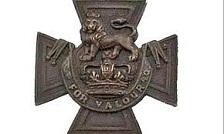









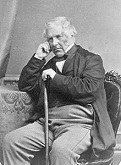


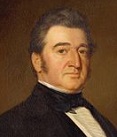
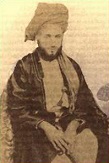










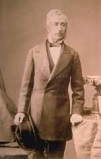









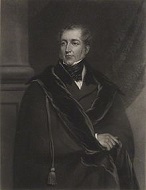












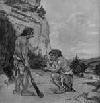
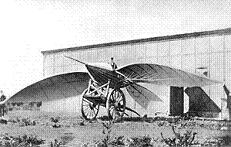
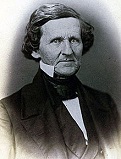
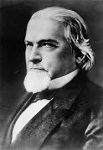
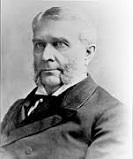
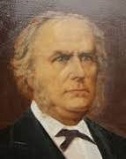
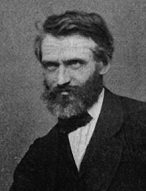
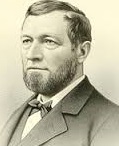
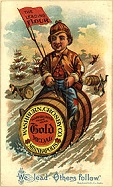
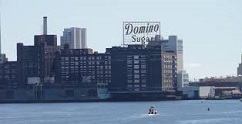
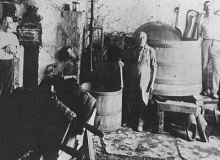
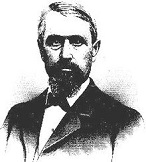
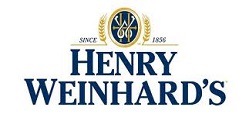
1856 Britain's self-importance as seat of white world supremacy presided over by a sexless white-on-white (wearing black to set off her whiteness) female George Washington finds its holy idol? On Jan. 29 Queen Victoria institutes the Victoria Cross, the highest British military decoration, given for deeds of exceptional valor in defending the British Empire from its enemies in action; the medals are in the form of a Maltese cross, with the royal crown in the center surmounted by a lion, with the words "For Valour" on a scroll below; the first ones are made out of captured gun metal from the Crimean War, later of bronze; holders of the cross get an annuity of £10, which can be increased to £50; prior to WWI the ribbon is red for the army and blue for the navy, then red for both branches. On Feb. 1 Auburn U. in Auburn, Ala. is founded as the East Ala. Male College, becoming the first Ala. public land grant univ. in 1872, going coed in 1892. On Feb. 17 Jose Santos Guardiola (1816-62) of Salvador invades Honduras with support from Guatemala and takes power as pres. and leader of the Conservative Party (until Jan. 11, 1862), then turns around and begins acting like a liberal, restoring civil liberties while cultivating good relations with the British. On Feb. 18 Ottoman Sultan Abdul Mejid I issues the Imperial Rescript, containing the germs of individual liberty and constitutional govt. in a Muslim nation; too bad in Feb. the Hamayouni (Hamayoni) Decree requires express permission from the sultan for Christians to construct a new church or even repair one; it is not repealed until ? - no way? On Feb. 28 Charles John Canning, 1st Earl Canning (1812-62) becomes gov.-gen. #21 of India (until Mar. 21, 1862), facing the 1857 Indian Rebellion, his leniency earning him the nickname "Clemency". On Mar. 24 the Treaty of Thapahali between Nepal and Tibet restores Taglakhar, Chewur Gumba, Kerong, Jhunga, Kuti and Dkhaling to Nepal, and withdraws Nepalese troops from the Tibetan side of the Bhairab Langur Mt. range, establishing a stable border. Yet another Treaty of Paris (last 1815)? On Mar. 30 the Treaty (Peace) of Paris ends the Crimean War (begun Oct. 1853) at the instigation of the French, despite the British public's desire to continue; Turkey and Russia mutually restore the war conquests; the independence of Turkey is guaranteed; Turkey guarantees protection of its Christian subjects; the Black Sea is neutralized (closed to warships and coastal fortifications); navigation of the Danube River is placed under control of an internat. commission; Moldavia, Wallachia, and Serbia are given internal autonomy under Turkish suzerainty; S Bessarabia is restored to Moldavia; Turin envoy Count Camillo Benso di Cavour pleads the cause of Italian unity, souring the good relations that had existed between Napoleon III and the pope; says one French diplomat, "There is nothing to show which is the conqueror and which the conquered"; one good thing, Russia, which loses its dominance in SE Europe, along with 600K lives, finally wakes up and decides to modernize, incl. freeing the serfs. If you can't fix it you gotta stand it? On Apr. 10 the 16-ton Big Ben Bell is cast at Warner's of Cripplegate on Stockton-on-Tees, and unofficially (not really, he's just tall?) named after Benjamin Hall, 1st Baron Llanover (1802-67), dir. of public works in 1836 (or heavyweight boxer Benjamin Caunt?); it is first mounted in New Palace Yard, then cracks, causing it to be recast at the Whitechapel Bell Foundry, coming in at 13.5 tons; Edmund Beckett Denison, 1st Baron Grimthorpe (1816-1905) designs the clock mechanism with a new double 3-legged gravity escapement, which is built by London-born watchmaker Edward John Dent (1790-1853), who died in 1853 before he could complete the project, which is finished by his adopted son Frederick Rippon Dent in 1854. On Apr. 16 the Paris Declaration Respecting Maritime Law abolishes nation-sponsored privateers, establishing maritime law among the major powers of Europe incl. the criteria for a legal blockade, becoming the first multilateral attempt to codify in peacetime rules which are applicable in the event of war; the signatories are bound only when at war with each other, leaving them free to use privateers when at war with other states; 55 nations ratify it incl. the U.K., France, U.S., Austria, Prussia, Russia, Sardinia, and the Ottoman Empire. On May 7 Isle of Wight-born Henry Sewell (1807-79) becomes PM #1 of New Zealand (unbil May 20. If only they had limited the fighting to this? On May 19-20 Dem. Mass. Sen. Charles Sumner (1811-74) delivers a fervent abolitionist speech in the Senate titled The Crime Against Kansas, railing against the Kansas-Nebraska Act and its authors, Sen. Stephen A. Douglas of Ill., and Dem. S.C. Sen. Andrew Pickens Butler (1796-1857), comparing Butler to Don Quixote and his mistress slavery to ugly Dulcinea, and getting personal (something about expectoration while speaking); on May 22 Dem. S.C. Rep. Preston Smith "Bully" Brooks (1819-57) (Butler's nephew) assaults Sumner in the Senate chamber with a light gutta-percha walking stick, beating him unconscious and permanently enfeebling him; Brooks gains fame throughout the South for his macho deed, and even though he resigns he is promptly reelected to the House, but dies next Jan. 27; Sumner is unable to resume his Senate seat for three years. On May 24-25 (night) after Lawrence, Kan. is sacked by pro-slavery forces, John Brown and his abolitionist free-staters (who are also pissed-off at the caning of Charles Sumner by Preston Brooks) kill five Kansas slavers in the Massacre of Pottawatomie Creek in Franklin County, Bleeding Kan. On May 29 the Ill. Repub. Party meets in Bloomington, Ill. (incorporated 1850), 58 mi. NE of Springfield, Ill. (in the corn belt on the edge of the coal fields), and Abraham Lincoln joins, delivers his famous Speech Against Slavery, gets over 100 votes for the vice-pres. nomination, and gives 50 speeches for the Fremont ticket. On June 2-5 the 1856 Dem. Nat. Convention in Cincinnati, Ohio (first nat. party nominating convention held outside the original 13 states) passes over bleeding boobs Pierce and Douglas for U.S. minister to Great Britain (Polk's secy. of state), angel-hair-eyes-skin bachelor James Buchanan of Penn., who has the angelic virtue of having been abroad when the Kan.-Neb. Act was passed, and therefore never "uttered a word which would pain the most sensitive Southern heart" (no wife to open her mouth and get him in trouble either?); Handsome Frank Pierce becomes the first sitting pres. to be passed over for renomination; the Dem. platform is in favor of the Kan.-Neb. Act as well as popular sovereignty; the Know-Nothing Party, which hopes to divert attention from the slavery issue by inciting xenophobia, changes its name to the Am. Party, then its Northern members split and join the Repubs., leaving the Southern rump to nominate former lame mallard U.S. pres. Millard Fillmore, who emerges from retirement determined to unite North and South without a pot to piss in? On June 17 the 1856 Repub. Nat. Convention in Philadelphia, Penn., presided over by Henry Smith Lane (1811-81) of Ind. (who becomes a celeb for his oratory, and later helps get Abraham Lincoln nominated in 1860) nominates popular young explorer John Charles Fremont (1813-90), "the Pathfinder" for pres., whose wife Jessie Benton Fremont (1824-1902), daughter of Manifest Destiny proponent Sen. Thomas Hart Benton gets actively involved, making it the first major political campaign in which women have an active role; their campaign slogan is "Free Soil, Free Speech, Free Men, Fremont", and campaign posts feature Col. Fremont Planting the American Standard on the Rocky Mountains, showing an eerie preview of the WWII Iwo Jima flag-raising, but with him holding the pole alone with one hand while waving his hat with the other, while a bearded white guy and bearded Mexican in a wide-brimmed hat stand behind him and wave and cheer, and an Am. eagle hovers. On July 2 The Honolulu Advertiser (originally "The Pacific Commercial Advertiser") is founded in Honolulu, Hawaii by Henry M. Whitney as a weekly newspaper, becoming the largest daily newspaper in Hawaii; it ceases pub. on June 6, 2010, merging with the "Honolulu Star-Bulletin" to become the Honolulu Star-Advertiser, reaching a modern-day circ. of 209K daily and 164K Sun. On July 27 two Northern Penn trains collide head-on in Camp Hill near Ft. Washington, Penn., killing 50-60, most of them children on the way to a Sunday school picnic. On July 30 the U.S. adopts the motto "In God We Trust"; it first appears on U.S. coins in 1864 - tell that to Sunday school picnic kids? On Aug. 18 the U.S. Guano Islands Act is passed, allowing U.S. citizens to take possession on behalf of the U.S. govt. of any unoccupied "island, rock or key" containing a guano deposit, allowing adventurers to act like pirates; islands claimed by the U.S. incl. Baker Island and Howland Island halfway between Hawaii and Australia, Jarvis (Bunker) Island halfway between Hawaii and the Cook Islands, Johnston Atoll 860 mi. SW of the Big Island of Hawaii, Kingman Reef halfway between Hawaii and Am. Samoa, Midway Atoll halfway between North Am. and Asia, Navassa Island in Haiti, Bajo Nevo Bank and Serranilla Bank in Colombia, and Swains Island in Am. Samoa; it is not repealed until ? On Sept. 1 Seton Hall College in Madison, N.J. is founded by Roman Catholic bishop of Newark, N.J. and archbishop #8 of Baltimore, Md. (1872-7) James Roosevelt Bayley (1814-77), named after his aunt Mother (St.) Elizabeth Ann Seton, the first Am.-born Roman Catholic saint; sports teams are called the Pirates. On Sept. 2-3 the Neuchatel Revolt (Crisis) in Switzerland begins (ends 1857) after republicans in Neuchatel (a repub. since 1848) in S Germany repudiate Prussian suzerainty and federate with Switzerland, pissing-off the king of Prussia, who threatens war until the French and British intervene and pressure him into giving up. On Oct. 8 the Arrow (Second Anglo-Chinese) (Second Opium) War begins (ends Oct. 24, 1860) after Chinese authorities in Canton board the ship Arrow (flying the British flag) and arrest some Chinese members of the crew, but not its British capt. (the Chinese owner of the ship lives in Hong Kong, so he has the right to fly the Union Jack); when the sailors are later returned but no apology is made, the British rep. in Canton summons warships to attack and occupy Canton, which escalates into a gen. demand to better observe the Treaty of 1842 by giving the English free entrance to certain Chinese ports; U.S. Navy Capt. Andrew Hull Foote (1806-63) is sent to Canton to establish fortified shore posts to protect U.S. residents, and then storms and destroys some Chinese forts firing on them, becoming a minor hero. On Oct. 19 Sultan Sa'id ibn Sultan (b. 1791) dies after making Zanzibar the main power in E Africa and commercial capital of the W Indian Ocean, and after a catfight ended by British diplomacy, his 6th son Majid ibn Said (1834-70) becomes sultan #1 of Zanzibar and its E African coast possessions (until Oct. 7, 1870), while 3rd son Thuwayni (Thuwaini) ibn Said (1821-66) becomes sultan of Muscat and Oman (until Feb. 11, 1866). On Nov. 1 Iran sieges the independent Afghan-allied city of Herat (formerly part of Persia), causing the British (who control Afghanistan) to declare war, beginning the Anglo-Persian War (ends Apr. 4, 1857). On Nov. 4 after the heated U.S. pres. campaign sees the Repubs. campaigning against the "Slave Power", causing some Southern states to go nonlinear over the "Black Republican" disunionists, promising secession if Fremont is elected (they'll get their chance again in 1860), the 1856 U.S. Pres. Election is won by James Buchanan with 45% of the popular vote (174 electoral votes) (every Southern state except Md., plus Penn., N.J., Ind., Ill., Calif.), vs. Fremont's 30% and 114 electoral votes (all of them in the North, where he sweeps the northernmost states); Fillmore carries only Md., with 8 electoral votes, and retires from politics for a 2nd time, continuing to press for some kind of non-bloody nat. compromise all the way through the Civil War while refusing to support Pres. Lincoln, finally finding his level as pres. of the Buffalo Historical Society. William Walker betrays his liberal backers, legalizes slavery, and asks the U.S. about joining the Union as a slave state; the U.S. sends a legation which recognizes him as pres. of Nicaragua; meanwhile Cornelius Vanderbilt forms a coalition with conservatives in the region and the British to kick this cowboy's butt. Inhumane treatment of 15K+ political prisoners by the forces of Ferdinand II cause Britain and France to withdraw their envoys from the Kingdom of the Two Sicilies. British gov.-gen. of India Lord Dalhousie gobbles up the state of Oudh (in N India between Delhi and Bengal) which, although faithfully fulfilling its treaty obligations since 1765, he considers ill-governed. Austrian Emperor Francis Joseph visits Lombardy and Venice, and appoints his brother Archduke Maximilian as gov. of the provinces. Austria grants amnesty to the Hungarian rebels of 1848-9. After seeing the Boer exodus caused by annexing Natal to Cape Colony in 1843, Britain establishes Natal in S Africa as a separate crown colony. Britain grants self-govt. to Tasmania, which enacts secret ballots - in the beginning I found you interesting? The French-Spanish frontier is defined. Australia becomes the first country to vote by secret ballot. The U.S. Passport Act of 1856 gives authority to the U.S. secy. of state to grant and issue passports, prohibiting anybody else, and restricting them to U.S. citizens, setting a $1 fee. The Repub.-controlled N.Y. State Legislature in Albany goes after Dem. New York City mayor Fernando Wood, shortening his term of office from two years to one, and creating the Metropolitan Police Force, headed by Frederick Augustus Takmadge (1792-1869) (until 1862) to replace Wood's corrupt Municipal Police; when Wood refuses to disband it, the N.Y. Supreme Court rules next May to back the legislature, but the Municipal Police under supt. George Washington Matsell (1811-77) along with 15 captains and 800 patrolmen back Wood, causing a showdown. Russian super-slow novelist Ivan Goncharov (1812-91) serves as secy. to the head of a Russian govt. commercial mission to Japan while working on one novel that takes 10 years and another that takes 20. Antonio Melchiorre Fiiatkowski (1778-1861) becomes archbishop of Warsaw (until 1861). The quickie marriages in Gretna Green, Scotland (begun 1753) end after a statute is passed requiring at least 21 days of Scottish residency - whadarya doing, making a pond for my fish? This year Australian gold mines produce a total of 95 tons. The city of Lincoln, Neb. in SE Neb. (modern-day pop. 258K/348K) is founded as the village of Lancaster on wild salt marshes; in 1867 it becomes the capital of Neb. under the name Lincoln. English explorer ? Gregory crosses Australia from E to W. Jim Bridger discovers 7.5K-ft.-alt. Bridger's Pass through the Rocky Mts. in S Wyo., which becomes part of the Overland Route and is later is used by the Pony Express. Overpop. forces removal of nearly 200 "Mutiny on the Bounty" Pitcairn Islanders to Norfolk Island, but about 40 soon return. The 40-tunnel Black Forest Railroad from Offenburg to Singen in Germany opens. German immigrant and Friedrich Froebel disciple Margarethe Meyer Schurz (1833-76) (Mrs. Carl Schurz) establishes the first kindergarten in the U.S. in Watertown, Wisc. The city of Dallas, Tex. (founded 1841) is incorporated; meanwhile former U.S. vice-pres. George M. Dallas becomes U.S. minister to England (until 1861). Scottish businessman Sir William Mackinnon, 1st Baronet (1823-93) founds the Calcutta and Burma Steam Navigation Co., which becomes the British India Steam Navigation Co., expanding its trade throughout the Indian Ocean incl. Burma, the Persian Gulf, and E Africa. The king of Naples bans skinny pants, er, photography, believing it to be associated with the evil eye - he meant hairy palm? Wilberforce U. in Wilberforce, Ohio is founded by the African Methodist Episcopal Church (AME), becoming the first college owned and operated by African-Ams.; alumni incl. Leontyne Price and Ossian Sweet. The Canadian Museum of Civilization in Montreal is founded by the Geological Survey of Canada, moving to Ottawa in 1881 and becoming Canada's most popular museum. The U.S. Mint begins issuing small copper-nickel "white" Flying Eagle Cents (until 1858); only 1K pieces are issued this year, followed by 17.5M in 1857 and 24.5M in 1858. The New York Tribune becomes the first daily newspaper to have a book review column. St. John's Abbey in Collegeville, Minn. is founded, becoming the world's largest Benedictine monastery, later founding a univ. The Dubbel (Double) style of strong brown ale is first brewed in the Trappist Abbey of Westmalle, France; in 1956 they coin the term "Tripel" for strong ale. English zoologist Sir Richard Owen (1804-92) becomes suptd. of the Nat. History Dept. of the British Museum, where he develops into a paleontologist. The Five (Mighty Handful), a group of Russian composers with the goal of creating a distinctively Russian music is formed in St. Petersburg (until 1870), led by Mily Alexeyevich Balakirev (1837-1910), along with Cesar Antonovich Cui (1835-1918), Modest Petrovich Mussorgsky (1839-81), Nikolai Andreyevich Rimsky-Korsakov (1844-1908), and Alexander Porfiryevich Borodin (1833-87); Russian music critic Vladimir Vasilievich Stasov (1824-1906) serves as their mentor, making sure that all their creations sound really, really Russian. The Domino Sugar Refinery in Williamsburg, Brooklyn, N.Y. is built; by 1870 it is refining 50%+ of the sugar in the U.S.; a new complex is built in 1882, becoming the largest sugar refinery on Earth. After observing Turks smoking as British paymaster to the Turkish forces in the Crimean War, Scottish Crimean War veteran (paymaster to the Turkish forces) Robert Peacock Gloag opens the first cigarette factory in England at Deptford Lane in Walworth, producing the Sweet Threes brand (yellow tissue paper), becoming the first branded cigarettes, making cigarette smoking popular in England. Am. humorist Benjamin Penhallow "Ben" Shillaber (1814-90) joins the staff of the Saturday Evening Gazette (until 1866). The Washburn-Crosby Co. is founded on the W side of Saint Anthony Falls on the Mississippi River outside Minneapolis, Minn. by U.S. Rep. (D-Ill.) (1843-9, 1957-9) Robert Smith (1802-67), who sells it to Cadwallader Colden Washburn (1818-82), who runs the co. with his brother William Drew Washburn (1831-1912); in 1872 St. Anthony and Minneapolis join; in 1877 they partner with John Crosby (1829-88), and in 1878 a flour dust explosion demolishes the plant, causing a new one with the first-ever automatic steel rollers to be built, the improved flour winning gold, silver, and bronze medals at the 1880 Millers' Internat. Exhibition in Cincinnati, Ohio, causing them to launch the Gold Medal flour brand, and Minneapolis to be called "the Flour Milling Capital of the World"; in 1928 it merges with 26 other mills to create General Mills. The first creamery producing large quantities of butter opens in Orange County, N.Y. German-born cooper William Menger (-1871) and German-born brewmaster Charles Dengen (-1912) found Menger (Western) Brewing Co. in San Antonio, Tex., producing lager beer from water from the Alamo Madre Ditch; it success spawns the building of the limestone Menger Hotel in 1859. Wurttemberg, Germany-born Henry Weinhard (1830-1904) acquires City Brewery in Portland, Ore. (founded in 1852 by Henry Saxer) to found Henry Weinhard's Brewery, producing Henry Weinhard's Private Reserve, reaching 100K barrels/year by 1890; in ? after surviving Prohibition it merges with Portland Brewing Co., owned by Arnold Blitz, producing Blitz-Weinhard brand; in 1979 it is acquired by the Pabst Brewing Co., followed in 1996 by Stroh Brewing Co., and in 1999 by Miller Brewing Co., which closes the Portland brewery and moves operations to the Olympia Brewery in Tumwater, Wash., which closes in 2003. The Winchester Co. plant in New Haven, Conn. begins producing firearms (closes 2006). Sports: On Oct. 19 the James Kelly vs. Jack Smith Fight in Melbourne, Australia is the longest bare-knuckle boxing match in history (until ?), 186 rounds lasting 6 hours and 15 min. The first Australian interstate cricket match sees Victoria defeat (?) New South Wales. Architecture: Saimaa Canal in Finland is built, connecting the Gulf of Finland with Lake Saimaa. After winning a competition in Apr. 1854 and beating out 70+ others, Heinrich von Ferstel (1828-83) begins building the neo-Gothic Votivkirche in Vienna (finished 1879). The Nat. Portrait Gallery in London opens, proposed and organized by Philip Henry Stanhope, 5th Earl Stanhope (1805-75), causing a sculpted bust of him to be placed over the entrance, flanked by fellow historians and supporters Thomas Carlyle and Lord Macaulay. Inventions: After sailing around the world observing albatrosses, discovering the principle of aerodynamic lift, Concarneau, Brittany, France-born Jean Marie Le Bris (1817-72) ftests his glider L'Albatros Artificiel (Artificial Albatross) on the beach in Sainte-Anne-la-Palud (Plonevez-Porzay, Finistere) after it is towed on a cart by a horse, rising to 100m over 200m, becoming the first recorded working heavier-than-air flying machine; in 1868 after receiving financial support from the French Navy he tests his Albatross II, which becomes the first flying machine to be photographed. British inventor Sir Goldsworthy Gurney (1793-1875) patents the Gurney Stove, which uses external ribs to increase the surface area for heat transfer. Scottish-born James Harrison (1816-93) of Australia patents a vapor-compression refrigeration system that uses ether, and installs his first ice machine in a brewery; in 1859 French inventor Ferdinand Philippe Edouard Carre (Carré) (1824-1900) patents a modification to Harrison's design that uses ammonia instead of ether; in 1868 the Siebe Brothers of Lambeth, England install a Perkins machine in Truman's Brewery in London, and the same year Am. engineer Francis V. DeCoppet installs one in the New Orleans, La. brewery of George Mertz, finding that the Perkins design doesn't work well with ammonia, causing him to design his own, which he installs in 1869, receiving U.S. patent #148,675 on Mar. 17, 1874. Parkesine (celluloid), the first manmade plastic is invented by English chemist Alexander Parkes (1813-90). 18-y.-o. English chemist William Henry Perkin (1838-1907) (later sir), a student of August Wilhelm von Hofmann discovers Mauveine, the first synthetic aniline (coal tar) dye while trying to produce quinine in Mar., and files for a patent in Aug., with its cool purple color causing a commercial bonanza, as from ancient times royal Tyrian purple could only be made from mollusc mucous, making him rich and gaining him a knighthood; after Euro countries go into the dye biz, many startling new low-priced colors follow, but unfortunately few are stable and don't fade like his. German-born British inventor Sir Charles William Siemens (1823-83) and French engineer Pierre Emile Martin (1824-1915) invent the Regenerative Furnace to make ductile steel for high pressure boiler plating. Jean Naigeon of Dijon, France substitutes verjuice (sour juice from unripe grapes) as the souring agent for mustard in place for vinegar, creating Dijon mustard. Science: On Aug. 23, 1856 after attending the 1848 Seneca Falls Convention and signing the Declaration of Feelings, Goshen, Conn.born Eunice Newton Foote (1819-88) of Seneca Falls, N.Y. speaks at the Eighth Annual Meeting of the Am. Assoc. for the Advancement of Science, and delivers her paper Circumstances affecting the Heat of the Sun's Rays, describing her experiments that proved that cylinders filled with CO2 and exposed to the Sun's rays heated more than others filled with air, with the soundbyte: "The receiver containing the gas became itself much heated - very sensibly more so than the other - and on being removed, it was many times as long in cooling. An atmosphere of that gas would give to our earth a high temperature; and if as some suppose, at one period of its history the air had mixed with a larger proportion than at present, an increased temperature from its own action as well as from increased weight must have necessarily resulted. On comparing the sun's heat in different gases, I found it to be in hydrogen gas, 104F; in common air, 106F; in oxygen gas, 108F; and in carbonic acid gas, 125F"; too bad, as a woman her scientific contribution to the discovery of the Greenhouse Gas Effect was ignored so that men could later take credit? The mentally-challenged Neanderthals are discovered in Feldhofer Cave in the Neander Valley between Dusseldorf and Wuppertal in Germany, why did it have to be Germany in Aug.? - white supremacists now have the problem that if they call somebody a Neanderthal they're implicating the modern German white race as stupider than all other modern races? The Battery Tide Gage in New York City begins keeping records of sea level rise, showing 2.84 +/- 0.09 mm/year through 2014. French chemist Pierre Berthelot (1827-1907) synthesizes methane, becoming the first hydrocarbon prepared in the lab from its basic elements. Am. scientist Eunice Foote first pub. the Greenhouse Effect. French scientist Louis Pasteur (1822-95) discovers that fermentation is caused by microorganisms, and tries to help the French industry figure out how to stop wine from turning sour (finished 1860); next year he proposes the Germ Theory of Disease, claiming that anthrax is caused by a bacillus; in 1861 he pub. Memoire sur les Corpuscles Organises qui Existent dans l'Atmosphere, discrediting spontaneous generation and promoting the Germ Theory of Disease, making him the world's most famous scientist. British astronomer Norman Robert Pogson (1829-91) proposes a quantitative scale of stellar magnitudes based on a 100:1 ratio of incoming light energy for every five magnitudes, meaning that each increment of magnitude corresponds to an energy decrease of the fifth root of 100 (2.512); Alpha Centauri comes in at +0.1, Sirius at -1.5, the Moon at -12.5, and the Sun at -26.5; the naked eye can see down to +6. German botanist Nathanael Pringsheim (1823-94) observes sperms entering algae ova - get a life? A British commission finds that typhoid is shit, er, waterborne. The Dental Amalgam Controversy in the U.S. causes the Am. Dental Assoc. to split off from the Am. Society of Dental Surgeons (founded in 1840), with Chapin Aaron Harris (1806-60) as pres. #1 (until 1857). Nonfiction: Charles Anthon (1797-1867), A Copious and Critical English-Latin Lexicon, Founded on the German-Latin Dictionary of Dr. Charles Ernest Georges (de; it) by Joseph Esmond Riddle and Thomas Kerchever Arnold. T.D. Bonner, The Life and Adventures of James P. Beckwourth, Mountaineer, Scout, and Pioneer, and Chief of the Crow Nation of Indians; written by a San Francisco newspaper man who is Beckwourth's drinking buddy, and is so deep with exaggerations that knee-deep boots are required? Karel Havlicek Borovsky (1821-56), Pictures from Russia; his romantic democratic Pan-Slavic beliefs are shattered by reality? John McLeod Campbell, The Nature of the Atonement. Evariste Cinqpere (Evariste Bernardin de Saint-Pere), Essai sur les Marionites et les Drouses du Mont Liban en Grande Syrie, avec Apercus Historiques et Chronologiques. George William Curtis, Prue and I. James Dwight Dana (1813-95), Science and the Bible (1856-7). Urbain Dubois (1818-1901), La Cuisine classique, études pratiques, raisonnées et démonstratives de l'école française appliquée au service à la Russe (2 vols.); first in a series of classic French cookbooks. Eugene Fromentin (1820-76), Un Ete dans le Sahara. James Anthony Froude (1818-94), History of England from the Fall of Wolsey to the Death of Elizabeth (12 vols.) (1856-70) (rev. ed. 1893), rehabilitates Henry VIII; treats history as a drama, sans scientific or other theories, except when he touts the Protestant Reformation as "the root and source of the expansive force which has spread the Anglo-Saxon race throughout the globe", making him a controversial star. Theodor Goldstucker, Sanskrit Dictionary. Horace Greeley (1811-72), A History of the Struggle for Slavery Extension or Restriction. Ferdinand Gregorovius (1821-91), Wanderjahre in Italien (1856-77); his walks through Italy. M. Guizot, History of Richard Cromwell and the Restoration of Charles II (2 vols). Herman von Helmholtz (1821-94), Manual of Physiological Optics (1856-66); definitive study of the physiology and physics of vision, based on the work of Thomas Young. Pierre Larousse (1817-75), Dictionnaire de la Langue Francaise. Rudolf Hermann Lotze (1817-81), Mikrokosmus (3 vols.) (1856-64); his magnum opus; natural laws of inanimate objects apply to human minds and bodies but have the function of enabling us to aim for the values set by the deity, thus making room for aesthetics? John Lothrop Motley (1814-77), The Rise of the Dutch Republic. John Henry Newman (1801-90), The Idea of a University; "Inquiry is pushed forward... by collisions of mind with mind and knowledge with knowledge." Pastor William Ramsey, Spiritualism, a Satanic Delusion, and a Sign of the Times; “One of the most striking proofs of the personal existence of Satan, which our times afford us, is found in the fact, that he has so influenced the minds of multitudes in reference to his existence and doings, as to make them believe that he does not exist; and that the hosts of Demons or Evil Spirits, over whom Satan presides as Prince, are only the phantacies of the brain, some halucination of mind. Could we have a stronger proof of the existence of a mind so mighty as to produce such results?” William Andrew Smith (1802-70), Lectures on the Philosophy and Practice of Slavery as Exhibited in the Institution of Domestic Slavery in the United States. Hippolyte Taine (1828-93), Les Philosophes Classiques du XIXe Siecle en France. Alexis de Tocqueville (1805-59), L'Ancien Regime et la Revolution (The Old Regime and the Revolution); analyzes the French Rev. and concludes that the French tried to dissociate themselves from the past but ended up reverting to a strong central govt. Music: Adolphe Charles Adam (1803-56), Le Corsaire (ballet) (last work). Daniel Auber (1782-1871), Manon Lescaut (opera) (Opera Comique, Paris). Alexander Dargomyzhski (1813-69), Russalka (The Mermaid) (opera) (St. Petersburg); based on a poem by Pushkin. Jacques Fromental Halevy (1799-1862), Valentine d'Aubigny (opera). Aime Maillart, Les Dragons de Villars (opera) (Paris). Heinrich Marschner (1795-1861), Der Goldschmied von Ulm. Jacques Offenbach (1819-80), La Bonne d'Enfant (The Nanny) (operetta) (Oct. 14) (Theatre des Bouffes Parisiens, Paris); libretto by Eugene Bercioux. Richard Wagner (1813-83), The Valkyries; Act III contains The Ride of the Valykires - those last seven yellow cellos really get me? Art: Jean Auguste Dominique Ingres (1780-1867), The Source. Plays: Alexandre Dumas pere (1802-70), L'Orestie. Henrik Ibsen (1828-1906), The Feast at Solhaug (Jan. 2) (Det Norske Theater, Bergen); his first hit; Olaf Liljekrans. Heinrich Laube (1806-84), Graf Essex (tragedy). Poetry: George Henry Boker (1823-90), Plays and Poems (2 vols.) Elizabeth Barrett Browning (1806-61), Aurora Leigh (blank verse novel); Aurora tells about abused self-taught Marian Erle. Victor Hugo (1802-85), Les Contemplations (6 vols.); contains poems written in 1830-1855, experimenting with autobio. in verse; dedicated to his daughter Leopoldine (1824-43), who drowned in the Seine River. Henrik Ibsen (1828-1906), The Vikings at Helgeland. Comte P.A.M. de Villiers de L'Isle Adam (1838-89), Premieres Poesies (1856-8) (debut). Novels: Edmond About (1828-85), Le Roi des Montagnes. Jose de Alencar (1829-77), Diario de Rio de Janeiro. Wilkie Collins (1824-89), The Dead Secret. Carlo Collodi (1826-90), In Vapore. Dinah Craik (1826-87), John Halifax, Gentleman; based on Cheltenham wine merchant John Dobell. Karl Gutzkow (1811-78), Der Zauberer von Rom. Wilhelm Haring (1797-1871), Dorothe. Gottfried Keller (1819-90), Die Leute von Seldwyla (short stories); Swiss provincial life; incl. Die Drei Gerechten Kammacher, Romeo und Julia auf dem Dorfe; 2nd series pub. in 1874. Charles Kingsley (1819-75), The Heroes; children's book. Herman Melville (1819-91), Benito Cereno; dark story about Amasa Delano, who wanders lost through a shadow world of his own racial prejudices; I and My Chimney; The Piazza Tales (short stories); incl. Bartleby the Scrivener. George Meredith (1828-1909), Farina. Eduard Morike (1804-75), Mozart auf der Reise nach Prag. Francis Parkman (1823-93), Vassall Morton. Charles Reade (1814-84), It Is Never Too Late to Mend; expose of prison discipline in England and Australia. Josef Victor von Scheffel (1826-86), Ekkehard; hit historical romance about 10th cent. Swabian tutor Ekkehard (-990). Harriet Beecher Stowe (1811-96), Dred, A Tale of the Great Dismal Swamp (2 vols.). Susan Bogert Warner (1819-85), The Hills of the Shatemuc. Charlotte Mary Yonge (1823-1901), The Daisy Chain. Births: Norwegian "Rustle of Spring" composer Christian August Sinding (d. 1941) on Jan. 1 in Kongsberg; brother of Otto Ludvig Sinding (1842-1909) and Stephan Sinding (1846-1922). English "Punch" writer Rudolph Chambers "R.C." Lehmann (d. 1929) on Jan. 3 in Ecclesall (near Sheffield); father of John Frederick Lehmann (1907-87), Rosamond Lehmann (1901-90), and Beatrix Lehmann (1903-79). Am. Dem. Ky. gov. (1900) ("Boss Bill") ("William the Conqueror") William (Wilhelm) Justus Goebel (d. 1900) on Jan. 4 in Carbondale, Penn.; German immigrant parents; first U.S. state gov. to be assassinated in office. Am. "The Weavers", "A Siesta" painter-portraitist (bi?) John Singer Sargent (d. 1925) on Jan. 12 in Florence, Italy. Am. physician (black) Daniel Hale Williams (d. 1931) on Jan. 18 in Hollidaysburg, Penn; educated at Northwestern U. Am. painter (not gay) Walter Gay (d. 1937) on Jan. 22 in Hingham, Mass.; pupil of Leon Bonnat; #1-selling foreign painter in Paris. Am. Congregational minister Reuben Archer "R.A." Torrey (d. 19218) on Jan. 28 in Hoboken, N.J.; educated at Yale U. German Gen. Hermann von Francois (d. 1933) on Jan. 31 in Luxembourg. Japanese PM #19 (1918-21) (first commoner) (Roman Catholic) Takashi "David" Hara (d. 1921) on Feb. 9 in Morioka. Dutch architect Hendrik Petrus Berlage (d. 1934) on Feb. 12 in Amsterdam. German psychiatrist ("Founder of Modern Psychiatry and Psychopharmacology") Emil Kraepelin (d. 1926) on Feb. 15; educated at the U. of Leipzig; believes mental disorders to be caused by biological disorders, as opposed to Sigmund Freud (1856-1939), who blames them on psychological factors. Am. color photography inventor Frederick Eugene Ives (d. 1937) on Feb. 17 in Litchfield, Conn. Germain chemist (novocaine inventor) Alfred Einhorn (d. 1917) on Feb. 27 in Hamburg. Am. inventor (asst. to Thomas Edison) (carborundum inventor) Edward Goodrich Acheson (d. 1931) on Mar. 9 in Washington, Penn. French De Dion-Bouton automobile manufacturer Marquis Jules Felix Philippe Albert de Dion de Wandonne (d. 1946) on Mar. 9 in Carquefou, Loire-Atlantique; partner of Georges Bouton (1847-1938). French Prince Imperial Napoleon IV Eugene (d. 1879) on Mar. 16; only child of Napoleon III and Eugenie de Montijo; last hope of the Bonapartes in France. Russian Symbolist painter #1 Mikhail Aleksandrovich Vrubel (d. 1910) on Mar. 17 (Mar. 5 Old Style) in Omsk, Siberia. Russian diplomat Alexander Petrovich Izvolsky (Iswolsky) (d. 1919) on Mar. 18 (Mar. 6 Old Style) in Moscow. Am. industrial efficiency pioneer (Quaker) ("Father of Scientific Management") Frederick Winslow Taylor (d. 1915) on Mar. 20 in Philadelphia, Penn.; maternal descendant of Plymouth gov. Edward Winslow (1595-1655); educated at Harvard U., and Stevens Inst. of Tech.; wins the first doubles tournament in the 1881 U.S. Nat. Tennis Championships. Am. educator (Tuskegee Inst. founder) (black) (Freemason) Booker Taliaferro (pr. like Toliver) Washington (d. 1915) on Apr. 5 in a 1-room log cabin in Hale's Ford on Burroughs Plantation in Hardy, Franklin County, Va., owned by James and Elizabeth Burroughs, who live with their 10 children in a 5-room log cabin; "I was born a slave on a plantation in Franklin County, Va... in a typical log cabin, about 14 by 16 feet square... I cannot remember having slept on a bed until after our family was declared free by the Emancipation Proclamation" (Up From Slavery 1901); at age 9 moves to Malden W. Va. and works with his stepfather in the salt mines; at age 17 attends Hampton, Va. Normal School, where the entrance exam is to sweep the floor correctly. French Gen. Maurice Paul Emmanuel Sarrail (d. 1929) on Apr. 6 in Carcassonne; rises to high command for his Socialist views? Somali Islamist religious fanatic ("the Mad Mullah") Mohammad bin Abdullah Hassan (d. 1920) on Apr. 7 in Buuhoodle. English Christian-turned-Muslim Abdullah (William Henry) Quilliam (d. 1932) on Apr. 10 in Liverpool. English-mountaineer-art critic and Unionist Mp (1918-31) William Martin Conway, 1st Baron Conway of Allington (d. 1937) on Apr. 12 in Rochester, Kent; educated at Repton School, and Trinity College, Cambridge U.; created baron in 1931. Greek "Le Pelerin Passione" poet (in French) Jean Moreas (Moréas) (Ioannes A. Papadiamantopoulos) (d. 1910) on Apr. 15 in Athens. Am. Dem. Tex. gov. #24 (1907-11) Thomas Mitchell Campbell (d. 1923) on Apr. 22 in Rusk, Tex. French traitor marshal, PM #119 (1940) and pres. (1940-44) Henri-Philippe Benoni Omer Joseph Petain (Pétain) (d. 1951) on Apr. 24 in Cauchy-a-la-Tour, Pas-de-Calais. Am. atty.-diplomat (Jewish) Henry Morgenthau Sr. (d. 1946) on Apr. 26 in Mannheim, Germany; emigrates to the U.S. at age 9; educated at CCNY, and Columbia U.; father of Henry Morgenthau Jr. (1891-1967). Am. "Wizard of Oz" illustrator William Wallace Denslow (d. 1915) on May 5 in Philadelphia, Penn.; collaborator of L. Frank Baum (1856-1919); known for his seahorse signature. Austrian physician-neurologist (founder of psychoanalysis) (Jewish) (atheist) Sigmund Freud (Sigismund Schlomo Freud) (d. 1939) on May 6 [Taurus] in Freiberg, Moravia (Czech Repub.); educated at the U. of Vienna; husband of Martha Bernays (1861-1951); father of Anna Freud (1895-1982); known for smoking cigars and using cocaine. Am. polar explorer rear adm. Robert Edwin Peary Sr. (d. 1920) on May 6 in Cresson, Penn.; educated at Bowdoin College; first white to reach the North Pole (1909)?; wife Josephine accompanies him on many Arctic expeditions, and gives birth to their first child during one - should be Robber Penguin Eyre? Italian novelist-journalist (founder of "Il Giorno") Matilde Serao (d. 1927) on Mar. 7 in Patras, Greece; Italian father, Greek mother. Am. "Wizard of Oz" novelist Lyman Frank Baum (d. 1919) on May 15 in Chittenango, N.Y.; suffragist Matilda Gage becomes his mother-in-law; uses the alias Laura Bancroft; collaborator of William Wallace Denslow (1856-1915). Swiss mountaineer Matthias Zurbriggen (d. 1917) in Saas-Fee. French Gen. Louis Felix Marie Francois Franchet d'Esperey (Louis Félix Marie François Franchet d'Espèrey) (d. 1942) on May 25 in Mostaganem, Algeria. French stage actress Gabrielle Rejane (Réjane) (Gabrelle-Charlotte Reju) (d. 1920) on June 5 in Paris; known for her vivacity and animated expression. Am. Pianola inventor Edwin Votey (d. 1931) on June 8 in Ovid, N.Y.; of Huguenot descent. Russian mathematician (atheist) Andrei (Andrey) Andreyevich Markov (Markoff) (d. 1922) on June 14 in Ryazan; brother of Vladimir Markov (1871-97); father of Andrei Markov (1903-79); educated at Petersburg U.; student of Pafnuty Chebyshev. Am. historian Edward Perkins Channing (d. 1931) on June 15 in Dorchester, Mass.; 5th child of William Ellery Channing (1818-1901) and Ellen Kilshaw Fuller (1820-56), sister of Margaret Fuller (1810-50); raised by his grandfather Walter Channing, dean of Harvard Medical School; educated at Harvard U; husband (1886-) of Alice Thatcher, sister-in-law of Thomas Wentworth Higginson (1823-1911). English "His Master's Voice" painter Francis James Barraud (d. 1924) on June 16 in Liverpool. Am. writer-publisher Elbert Green Hubbard (d. 1915) on June 19 in Bloomington, Ill; bastard son of servant Mary Keir. English "Allan Quatermain" novelist Sir Henry Rider (H. Rider) Haggard (d. 1925) on June 22 in Bradenham, Norfolk. Sierra Leonean physician (Creole) John Farrell Easmon (d. 1900) on June 30 in Freetown; educated at Univ. College London, Royal College of Physicians of Ireland, and U. Libre de Bruxelles. German (Prussian) cavalry gen. Johannes Georg von der Marwitz (d. 1929) on July 7 in Stolp, Pomerania. Am. industrialist-philanthropist (Jewish) Daniel Guggenheim (d. 1930) on July 9 in Philadelphia, Penn.; son of Meyer Guggenheim (1828-1905). Am.-Serbian physicist-engineer ("the Genius Who Lit the World") Nikola Tesla (d. 1943) on July 9/10 (midnight) in Smiljan (Lika-Senj), Croatia; becomes U.S. citizen in 1891. Am. comic stage actress Georgiana "Georgie" Emma Drew Barrymore (d. 1893) on July 11 in Philadelphia, Penn.; wife (1876-93) of actor Maurice Barrymore (1849-1905); mother of Lionel Barrymore (1878-1954), Ethel Barrymore (1879-1959), and John Barrymore (1882-1942). Italian Egyptologist Ernesto Schiaparelli (d. 1928) in Biella. Am. theatrical mgr.-producer (Jewish) Charles Frohman (d. 1915) on July 15 in Sandusky, Ohio; brother of Daniel Frohman (1851-1940) and Gustave Frohman (1854-1930). Am. "When Knighthood Was in Flower" novelist-lawyer Charles Major (d. 1913) on July 25 in Indianapolis, Ind.; educated at the U. of Mich. Irish "Man and Superman", "Saint Joan" writer-dramatist (redhead) (Socialist) (vegetarian) (anti-vivisectionist) George Bernard Shaw (d. 1950) on July 26 [Leo] in Dublin; AKA Corno di Basetto when doing lit. criticism; becomes a dual citizen of the Irish Free State in 1934; moves to London in 1873; most important British dramatist since Shakespeare, causing the word "Shavian" to be coined; first person to be awarded a Nobel Prize (1925) and an Academy Award (1938); "God help us if he should ever eat a beefsteak." (Mrs. Patrick Campbell) Am. Jell-O magnate Orator Francis Woodward (d. 1906) on July 26 in Bergen, N.Y. Scottish Liberal-Labour statesman-philosopher (Roman Catholic) Richard Burdon Sanderson Haldane, 1st Viscount Haldane of Cloan (d. 1928) on July 30 in Edinburgh; brother of Elizabeth Haldane (1862-1937); uncle of English biologist J.B.S. Haldane (1892-1964); educated at Gottingen U., and the U. of Edinburgh; created viscount in 1911; "God help us if he should ever eat a beefsteak" (Mrs. Patrick Campbell). Australian PM #2 (1903-4, 1909-10) Alfred Deakin (d. 1919) on Aug. 3 in Fitzroy, Melbourne; only son of English immigrants. English Daylight Savings Time inventor William Willett (d. 1915) on Aug. 10 in Farnham, Surrey; great-great-grandfather of Chris Martin (1977-). Spanish PM (1913-15, 1917, 1920-1) Eduardo Dato e Iradier (d. 1921) on Aug. 12 in A Coruna. British Socialist Labour Party leader (1906-8) and MP (1892-5, 1900-15) James Keir Hardie (d. 1915) on Aug. 15 in Newhouse (near Motherwell), North Lanarkshire, Scotland. Russian microbiologist Sergei Nikolaievich Winogradsky (d. 1953) on Sept. 1 in Kiev. Am. populist agrarian politician Thomas Edward "Tom" Watson (d. 1922) on Sept. 5 in Thomson, Ga.; educated at Mercer U. Scottish critic-playwright William Archer (d. 1924) on Sept. 23 in Perth; educated at the U. of Edinburgh; known for translating Ibsen's plays to English. French archeologist-politician (Jewish) Joseph Reinach (d. 1921) on Sept. 30 in Paris; brother of Salomon Reinach (1858-1932) and Theodore Reinach (1860-1928); brother-in-law of Baron de Reinach. Am. historian Jonah LeRoy "Doane" Robinson (d. 1946) on Oct. 19 in Sparta, Wisc. British RMS Lusitania Capt. William Thomas Turner (d. 1933) on Oct. 23. Russian Gen. Grand Duke Nikolai Nikolaevich (Nikolay Nikolayevich) Romanov (d. 1929) on Nov. 6 in St. Petersburg; grandson of Nicholas I; first cousin once removed of Nicholas II. U.S. Supreme Court justice #66 (1916-39) (Jewish) Louis Dembitz Brandeis (d. 1941) on Nov. 13 in Louisville, Ky; first Jewish member; graduates from Harvard Law School in 1877 after studying at the Annen Realschule in Dresden, Germany. Am. Mormon. pres. #7 (1918-45) Heber Jeddy Grant (d. 1945) on Nov. 22 in Salt Lake City, Utah. Russian "Oresteia" composer-pianist Sergei (Sergey) Ivanovich Taneyev (Taneiev) (d. 1918) on Nov. 25 (Nov. 13 Old Style) in Vladimir; educated at Moscow U.; pupil of Peter Tchaikovsky; known for his dry intellectual music. German chancellor (1909-17) (not Jewish) Theobald Theodor Friedrich Alfred von Bethmann Hollweg (Bethmann Hollweg) (d. 1921) on Nov. 29 in Hohenfinow, Brandenburg; descended from the Bethmann banking family of Frankfurt; related to Cosima Wagner. Russian Marxist rev. politician (the first Russian Marxist?) Georgi Plekhanov (d. 1918) on Dec. 11 (Nov. 29 Old Style) in Gudalovka, Lipetsk. U.S. Dem. pres. #28 (1913-21) (Presbyterian) Thomas Woodrow (OE "row by the woods") Wilson (d. 1924) on Dec. 28 in Staunton, Va.; of Scots-Irish descent; 3rd of four children of Presbyterian minister Joseph Ruggles Wilson (1822-1903) and Carlisle, Cumberland, England-born Jessie Janet Woodrow (1826-88); educated at Johns Hopkins U., U. of Va., and Princeton U., where he earns a doctorate in govt.; his face is on the U.S. $100K bill. Chinese Qing (Manchu) emperor #9 (1861-75) Qin Tong Zhi (Tung-chih) (Qing Mu Zong) (Zaichun) (d. 1875); son of Qin Xian Feng (1831-61) and Cixi (1835-1908). Am. financier-philanthropist James Buchanan "Diamond Jim" Brady (d. 1917) on Aug. 12 in New York City; starts out as a bellboy, then becomes a railway equipment salesman in 1879, ending up rich with a taste for expensive bling. Irish leader (Roman Catholic) John Edward Redmond (d. 1918) on Sept. 1 in Dublin. Am. skyscraper pioneer architect ("Father of Modernism") Louis Henri Sullivan (d. 1924) on Sept. 4 in Boston, Mass.; educated at MIT. Am. "Rebecca of Sunnybrook Farm", "Mrs. Wiggs of the Cabbage Patch" children's writer-educator Kate Douglas Wiggin (nee Smith) (d. 1923) on Sept. 18 in Philadelphia, Penn.; of Welsh descent. German explorer (founder of German East Africa) Karl Peters (d. 1918) on Sept. 27 in Neuhaus on the Elbe. U.S. Supreme Court justice #64 (1910-16) Joseph Rucker Lamar (d. 1916) on Oct. 15 in Ruckersville, Ga.; educated at the U. of Ga., Bethany College, and Washington and Lee U. French WWI CIC (Dec. 1916-May 1917) Gen. Robert Georges Nivelle (d. 1924) on Oct. 15 in Tulle; fluent in English. U.S. Mann Act Rep. (R-Ill.) (1897-22) James Robert Mann (d. 1922) on Oct. 20 near Bloomington, Ill.; educated at the U. of Ill., and Union College of Law. Am. Mormon fundamentalist leader Lorin Calvin Woolley (d. 1934) on Oct. 23 in Salt Lake City, Utah; son of John W. Woolley (1831-1928). Am. painter-writer Kenyon Cox (d. 1919) on Oct. 27 in Warren, Ohio; son of Jacob Dolson Cox. Japanese PM #30 (1932-4) Adm. Viscount Saito Makoto (d. 1936) on Oct. 27 Mizusawa, Mutsu Province. Am. portraitist Anna Elizabeth Klumpke (d. 1942) on Oct. 28 in San Francisco, Calif. Austrian field marshal Svetozar Boroevic von Bojna (d. 1920) on Dec. 13 in Umetic; of Croatian Serb descent. Am. educator-historian and Harvard U. pres. #22 (1909-33) Abbott Lawrence Lowell (d. 1943) on Dec. 13 in Boston, Mass.; educated at Harvard U.; brother of poet Amy Lowell (1874-1925) and astronomer Percival Lowell (1855-1916); cousin of Maj. Ralph Lowell (1890-1978); known for integrating social classes at Harvard U. and opening courses to local schoolteachers, causing him to be called "a traitor to his class", but later flops and tries to limit Jewish enrollment to 15% and bar African-Am. students from living in the Freshman halls. English physicist (discoverer of the electron and isotopes) Sir Joseph John Thomson (d. 1940) on Dec. 18 in Cheetham Hill, Manchester; father of physicist Sir George Paget Thomson (1892-1975); Scottish parents; educated at the U. of Manchester and Trinity College, Cambridge U.; teacher of Ernest Rutherford. U.S. Kellogg-Briand Pact diplomat, U.S. Sen. (R-Minn.) (1917-23), and U.S. secy. of state #45 (1925-29) Frank Billings Kellogg (d. 1937) on Dec. 22 in Potsdam, N.Y. Austrian "Under the Double Eagle March" composer ("Austrian March King") Joseph (Josef) Franz Wagner (d. 1908). Jewish "Hatikvah" Zionist poet (Jewish) (alcoholic) Naftali (Naphtali) Herz Imber (d. 1909) in Zloczow, Galicia (Zolochiv, Ukraine) ("City of Poets"); emigrates to Palestine in 1882. Am. Crow scout Curley (Curly) (Ashishishe) ("the Crow") (d. 1923) in Mont. Am. Home of Truth founder Annie Rix Militz (d. 1924) in Calif.; student of Emma Curtis Hopkins (1849-1925). Russian Zionist writer (Jewish) Asher Hirsch Ginzberg (AKA Achad Ha'am) (d. 1927) in Skvyra (near Kiev), Ukraine; (Heb. "Achad Ha'am" = one of the people). Syrian statesman Mar'i Pasha Al Mallah (d. 1930) in Aleppo. Am. Payute (Paiute) Indian Ghost Dance mystic Wovoka (Jack Wilson) (d. 1932) near Walker Lake, Nev.; orphaned and adopted by white settler David Wilson at age 14. Am. landscape painter Franklin De Haven (d. 1934) in Bluffton, Ind. Am. "Naked Truth and Veiled Allusions" writer Minna Thomas Antrim (d. 1950). Deaths: Austrian historian Joseph von Hammer-Purgstall (b. 1774) on Nov. 23 in Vienna. Hungarian mathematician Farkas Bolyai (b. 1775) on Nov. 20. English sculptor Sir Richard Westmacott Jr. (b. 1775) on Sept. 1 in London. Am. Mormon mom Lucy Mack Smith (b. 1775) on May 14 in Nauvoo, Ill. Italian scientist Amedeo Avogadro (b. 1776) on July 9 in Turin. Scottish arctic explorer Sir John Ross (b. 1777) on Aug. 30. U.S. atty. gen. #10 (1829-31) John MacPherson Berrien (b. 1781) on Jan. 1 in Savannah, Ga. Am. celeb col. Nathan Boone (b. 1781) in Ashgrove, Mo. Russian field marshal Prince Mikhail Vorontsov (b. 1782) on Nov. 18. French mathematician-physicist-astronomer Jacques Philippe Marie Binet (b. 1786) on May 12 in Paris. English "Home Sweet Home" composer Sir Henry Rowley Bishop (b. 1787) on Apr. 30 in London. Am. Repub. politician John Milton Niles (b. 1787) on May 31 in Hartford, Conn. French utopian socialist leader Etienne Cabet (b. 1788) on Nov. 9 in St. Louis, Mo. French-German painter Baron Charles de Steuben (b. 1788). French sculptor Pierre-Jean David d'Angers (b. 1789) on Jan. 4 in Paris. English artist Isaac Robert Cruikshank (b. 1789) on Mar. 13; dies in poverty. French historian Rene Francois Rohrbacher (b. 1789) on Jan. 17 in Paris. Omani sultan (1806-56) Sa'id ibn Sultan (b. 1791) on Oct. 19 at sea. Am. fur trader Solomon Laurent Juneau (b. 1793) on Nov. 14 in Keshena, Wisc. Russian unparalleled mathematician Nikolai Lobachevsky (b. 1793) on Feb. 24 (Feb. 12 Old Style). French historian Augustin Thierry (b. 1795) on May 22 in Paris. French painter Paul Delaroche (d. 1797) on Nov. 4; leaves a Mural on the wall of the theater of the Ecole des Beaux-Arts in Paris featuring 75 lifesize portraits of artists throughout history. German poet-critic Heinrich Heine (b. 1797) on Feb. 17 in Paris: "In these times we fight for ideas, and newspapers are our fortresses." French "O Holy Night" composer Adolphe Adam (b. 1803) on May 3 in Paris. Canadian-born Am. merchant Michel Branamour Menard (b. 1805) on Sept. 2 in Galveston, Tex. German philosopher Max Stirner (b. 1806) on June 26 in Berlin. Czech dramatist Josef Kajetan Tyl (b. 1808) on July 11 in Pilsen. German composer Robert Schumann (b. 1810) - the good die young? Am. Mormon leader James Strang (b. 1813) on July 9 in Voree, Wisc. (assassinated on Beaver Island on June 16). German-born Am. brewer August Krug (b. 1815) on Dec. 30 in Milwaukee, Wisc. French chemist Charles Gerhardt (b. 1816) on Aug. 19 in Strasbourg (poisoned by his own chemicals). Czech writer Karel Havlicek Borovsky (b. 1821) on July 29 in Prague - the good die young? English murderer Martha Brown (b. ?) in Dorchester Prison, Dorset; hanged for murdering her husband; watched by Thomas Hardy, inspiring "Tess of the d'Urbervilles"?





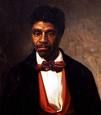





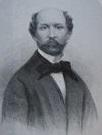














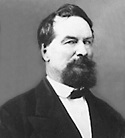


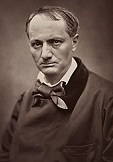




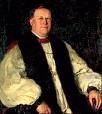



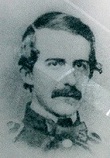




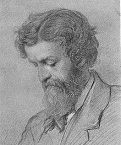


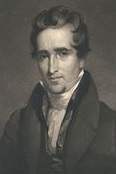
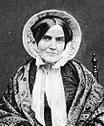

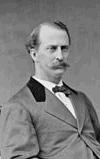




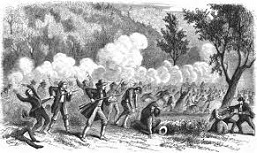
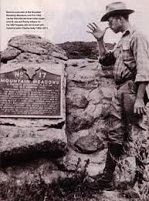
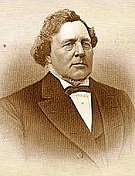
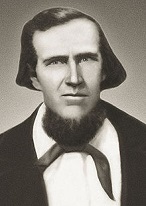
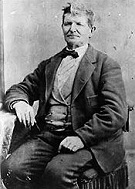
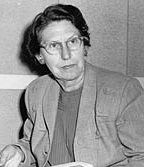
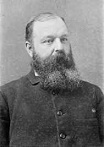
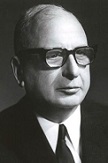
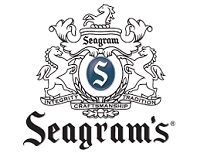

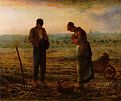
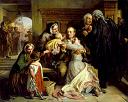

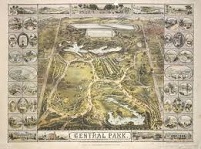
1857 A worldwide influenza epidemic begins (ends 1859). On Feb. 5 Mexico ratifies the 1857 Federal Constitution of the United Mexican States; on Oct. 25 Oaxaca gov. (since Jan. 10, 1856) Benito Juarez is appointed minister of the interior (until Nov. 3), followed by pres. of the Mexican Supreme Court (until Jan. 15, 1858). On Feb. 7 4.6K British under Maj. Gen. Sir James Outram defeat 5K Persians at the Battle of Khushab (Khooshab), becoming the largest battle of the war; on Mar. 24-26 the Battle of Mohammerah in Shatt al Arab is another V for the British over 13K Persians and Arabs under Khanlar Mirze; on Apr. 1 the Battle of Ahvaz is another V for the British over the Persians; meanwhile on Mar. 4 Persia and Great Britain sign the Peace of Paris, and on Apr. 4 after news reaches them, the Anglo-Persian War (begun Nov. 1, 1856) ends; Persia withdraws from Herat and surrenders its claims, with the shah recognizing the independence of Afghanistan; the British pull out of S Persia. On Feb. 23 the Am. Inst. of Architects (AIA) (originally New York Society of Architects) is founded in New York City by 13 architects incl. Richard M. Upjohn (pres. #1), Charles Babcock, Henry W. Cleaveland, Henry Dudley, Leopold Eidlitz, Edward Gardiner, Richard Morris Hunt et al., who invite 16 more to join them, changing their name in their constitution on Mar. 10 and growing to 300+ chapters ant 95K members by 2008; in the mid-1960s they move their HQ to Washington, D.C.; in 1973 their Am. Center for Architecture is completed. The worst guy they could have made president just now, a loose cannon on deck, not to mention his vice-president? On Mar. 4 (Wed.) Cove Gap, Penn.-born 65-y.-o. confirmed bachelor and elder statesman (Dickinson College grad.) James Bachelor, er, James Buchanan (1791-1868), AKA "Old Buck", "Old Fogey", "Old Public Functionary", "Ten-Cent Jimmie" (for his 1856 claim that 10 cents a day is enough for a working man to live on), "the Sage of Wheatland" (his estate near Mercersburg, Penn.) becomes the 15th U.S. pres. (until Mar. 4, 1861) (first bachelor pres. until ?) (last U.S. secy. of state to become pres. until ?) (2nd and last Doughface pres.) in the 20th U.S. Pres. Inauguration in the East Portico of the U.S. Capitol (first to be photographed) Lexington, Ky.-born John Cabell Breckinridge (1821-75) becomes the 14th U.S. vice-pres. (until Mar. 4, 1861) (youngest until ?); the inaugural parade is delayed because outgoing pres. Pierce is late; Pierce's long inaugural address refers to "the Territorial Question" (slavery spreading to the Am. West), supporting the let-voters-decide 1854 Kansas-Nebraska Act without mentioning the rampant voter fraud, ending with the soundbyte: "We have been carried in safety through a perilous crisis. Wise counsels, like those which gave us the Constitution, prevailed to uphold it. Let the period be remembered as an admonition, and not as an encouragement, in any section of the Union, to make experiments where experiments are fraught with such fearful hazard. Let it be impressed upon all hearts that, beautiful as our fabric is, no earthly power or wisdom could ever reunite its broken fragments. Standing, as I do, almost within view of the green slopes of Monticello, and, as it were, within reach of the tomb of Washington, with all the cherished memories of the past gathering around me like so many eloquent voices of exhortation from heaven, I can express no better hope for my country than that the kind Providence which smiled upon our fathers may enable their children to preserve the blessings they have inherited; Buchanan uses his charming niece Harriet Lane (1830-1903) as White House hostess (First Lady?); Buchanan chats at the inauguration with U.S. chief justice (since 1836) Roger Brooke Taney (1777-1864), and urges the public to accept the upcoming (Mar. 6) Dred Scott decision, "whatever this may be" (the outcome had been leaked to him). On Mar. 4 former U.S. secy. of war Jefferson Davis becomes Dem. U.S. Sen. from Miss. (until Jan. 21, 1861). On Mar. 4 after the pro-slavery Kan. legislature calls for election of delegates to a constitutional convention just before Buchanan's inauguration, but the governor vetoes the measure, causing the legislature to override his veto, the gov. resigns, and Pres. Buchanan replaces him with Penn.-born Miss. politician and Polk treasury sec. (1845-9) Robert John Walker (1801-69), who arrives in May and tries to organize free-state delegates for the constitutional convention in Lecompton. The pro-slavery powers pull their final rabbit out of their black hat, and it's dressed in a black robe, with a white lining? Talk about bad timing? On Mar. 6 (two days after Pres. Buchanan's inauguration) the U.S. Supreme Court led by Roman Catholic chief justice (1836-64) Roger Brooke Taney (1777-1864) (pr. TAH-nee) rules 7-2 in Dred Scott v. Sandford (their worst decision?) (dissent by John McLean and Benjamin R. Curtis) that blacks "had for more than a century been regarded as... so far inferior, that they had no rights which the white man was bound to respect", and therefore are not human beings but only one-fourth human, and property of their white masters, and cannot become citizens, even if taken by their masters into free states (incl. any of them new free or popular sovereignty states that them !*?!* nigger-loving abolitionists are trying to railroad in?); the defunct Missouri Compromise is nullified ex post facto, and popular sovereignty is ruled defunct, since Congress does not have the power to ban slavery in the territories; the decision "seemed a mortal blow to the newly created Republican Party" (Encyclopedia Britannica), putting it in a war with the court; speaking of blow, after the decision, Dred Scott and his family are sold to Peter Blow, the son of Scott's first owner (Joe Blow?), who gives them their freedom papers on May 26; all but one of the justices who join Marylander Taney are Southerners; - Roger B. Taney's portrait looks like one of those orangutan judges in the movie "Planet of the Apes", and Dred Scott's portrait looks like Levar Burton in "Roots"? In Mar. the Utah (Mormon) War (Campaign) (Expedition) (Rebellion) (Buchanan's Blunder) begins in Utah Territory when Pres. Buchanan sends the U.S. Army to replace gov. Brigham Young, causing the Mormon Nauvoo Legion to resist, blocking the entrance to Salt Lake Valley and engaging in slash and burn warfare, sending 10 men to cross Little Mountain and meet with Brig. Gen. Albert Sidney Johnston's Army; on Oct. 7 (night) Mormon frontiersman William Adams "Wild Bill" Hickman (1815-83) burns Ft. Bridger to keep it from falling into army hands, along with numerous army supply trains, which doesn't stop them from wintering near it and establishing it as their post, while more troops establish Camp Floyd in Cedar Valley near modern-day Fairfield S of Salt Lake City, which serves as a Pony Express stop in 1860-1; the Utah War ends in July 1858 with few casualties after Pres. James Buchanan grants full amnesty on the condition that they accept federal authority and replace Brigham Young as gov.; the U.S. Congress rejects the Mormon claim to Ft. Bridger, along with Jim Bridger's; in 1861-5 the federal troops are withdrawn from Utah Territory to fight in the U.S. Civil War; meanwhile in Oct. 1862 the Calif. Volunteer Cavalry-Infantry establishes Fort Douglas 3 mi. E of Salt Lake City. In Mar. Reform Rabbi Samuel Adler (1809-91) of Alzey, Germany emigrates to the U.S. to lead Temple Emanu-El in New York City (until 1874); his son Dr. Felix Adler (1851-1933) comes with him, going on to uphold the Jewish tradition of lotsa lotsa education and end up as a history prof. at Cornell U. in 1874. The English go too far with their WASP superiority thing and get what's coming to them in India? On May 10 after the 250K Hindu and Muslim Sepoy (Urdu for soldier) (Indian native) soldiers of Oudh and Bengal in N India go ape at the prospecting of putting the slimy new pig-fat and cow-fat covered cartridges for the new British Enfield rifles into their mouths, the 1857 Indian (Sepoy) Rebellion, against 45K British soldiers begins in Meerut, led by Nana Sahib (1824-?), spreading to Delhi, ending the Mogul (Mughal) Dynasty (founded 1526); on May 10 Col. John Finnis, cmdr. of the 11th Native Regiment of the British Indian Army attempts to lecture his troops on the parade ground not to mutiny, and they fire a volley at him, killing him; on May 21 the Brits blow away rebellious sepoys after tying them to cannons, insuring that the revolt will be particularly fanatical?; Hodson's Horse (Corps of Guides, Punjab Irregular Force), a regiment of irregulars is formed by British Maj. William Stephen Raikes Hodson (1821-58), who is KIA in Lucknow after introducing the khaki uniform and capturing Bahadur Shah II, emperor/king of Delhi; British gov.-gen. (since 1856) Charles Canning, 1st earl Canning issues a proclamation declaring the lands of the province of Oudh forfeited, causing Lord Ellenborough to send him a secret letter demanding his resignation, but he stands his ground and stays in office. On May 22 the 31st Punjabis infantry of the British Army, composed of Muslims, Sikhs, Dogras (mostly Hindus), Hill Rajputs, and Gurkhas is formed in Ferozepur; called Van Cortlandt's Levy until 1903, it becomes part of the Pakistan Army in 1947 as the 14th Battalion of the Punjab Regiment. On May 30 the Siege of Lucknow sees the British sieged by the rebels of Oudh led by Begum Hazrat Mahal and Birjis Qadra, holding out while two relief attempts arrive, then evacuating on Nov. 27. In May the Neuchatel Revolt (begun 1856) ends after Napoleon III intervenes, getting the Prussian king to relinquish his rights in return for a monetary payment, which he later repudiates. On June 10 the 30th Punjabis infantry of the British Indian Army, composed of Muslims, Sikhs, and Dogras (mostly Hindus) is raised in Ludhiana as the 22th Regiment of the Punjab Infantry; in 1947 it becomes the 13th Battalion of the Punjab Regiment in Pakistan. On June 16 the Great New York City Police Riot of 1857 sees the New York City Metropolitan Police order Muncipal Police Capt. George Washington Walling to arrest mayor Fernando Wood in city hall, causing Wood's Muncipal Police to chuck Walling into the street, causing 50 Metropolitan Police to march in with nightsticks, and lose to the Metropolians, with 52 injured, after which the Nat. Guard 7th Regiment surrounds City Hall and arrests Wood, who is released on bail and returns to iffice, er, office; the feud rages through the summer, allowing gangs to take over the city, while criminals arrested by one police force are summarily released by judges loyal to the other force; Walling becomes police suptd. in 1874-85. On June 24 Tunisian Jew Batto Sfez is executed for blasphemy against Islam. On June 27 British explorers Sir Richard Francis Burton (1821-90) and John Hanning Speke (1827-64) begin to search for the source of the White Nile, setting out from the E coast of Africa, going on to obtain help from Omani Arabs and suffer from tropical diseases. On June 30 Gulab Singh (b. 1792) dies, and his son Rambir Singh (1830-85) becomes tyrant prince (maharaja) of Sikh Kashmir (until 1885). In late June the Siege of Lucknow begins (ends Nov. 18); meanwhile the rebels are successively defeated by the Brits under 5' "muscular Christian" Sir Henry Havelock (1795-1857) at Fatehpur (July 14) Aong (July 15), Pandoobridge (July 15), and Cawnpore (Kanpur) (July 16); too bad, on July 15 at Cawnpore as the British approach, 180 women and children put in a harem are massacred by two Muslim butchers and thrown into a well, causing an outcry and stiffening British resolve; to bad, when the local Brits learn of the extent of the massacre they descend into horrible acts of brutality, showing that white superiority is skin deep; the mad-as-hell Brits under Sir Henry Havelock go on to crush Sepoy rebels at Unao (July 29), Busherutgunge (July 29, Aug. 5), Boorhya (Aug. 12), and Bithur (Aug. 16). On July 4-5 taking advantage of the police anarchy, the Dead Rabbits Riot in the Bowery in Lower Manhattan, N.Y. between the Irish Dead Rabbits gang and the Protestant nativist Bowery Boys kills eight and injures 30-100. On Aug. 24 the Ohio Life Insurance and Trust Co. fails; after a decade of prosperity fueled by Calif. gold, the reduction in demand for U.S. grain caused by the end of the Crimean War combined with overspeculation in U.S. railroads, and the Dem. Tariff of 1857 of Mar. 3 (which sets rates at their lowest level since 1816), the Panic of 1857 hits the U.S. and Europe; the depression that follows (ends 1859) intensifies sectional differences as the South prospers with cotton while blocking tariff protection and free public lands wanted by the North; the South also gets an idea that King Cotton is Dick Almighty and that their slave labor system is superior to the up-and-down Northern free labor system; the panic makes the East ripe for the Colo. Gold Rush. On Aug. 6 after rich New England paper merchant Cyrus West Field (1819-92) obtains funding from the U.S. and Britain to exploit his 1854 50-year charter to use the coasts of Newfoundland as a terminal for transoceanic cables, and forms (with Peter Cooper) the New York, Newfoundland and London Telegraph Co. and the Atlantic Telegraph Co. (1856), the British man-of-war Agamemnon and the U.S. frigate Niagara set sail from Valentia Bay on the Irish coast carrying cable for the first transatlantic telegraph cable, laying it out as they go (1 ton per mi.) using ocean bottom charts prepared by U.S. oceanographer Matthew F. Maury, but 335 mi. out to sea the Niagara's section breaks, and $500K worth of cable plummets to the ocean floor, causing the attempt to be called off; they try it again next June. On Aug. 25 after leaving Salt Lake City to visit LDS communities in S Utah and warn them of approaching federal troops, telling them to "touch fire to their homes, and hide themselves in the mountains, and to defend their country to the very last extremity", whipping up fear and paranoia, LDS apostle (since Apr. 26, 1839) (Joseph Smith Jr.'s first cousin) George A. (Albert) Smith (1817-75), accompanied by several Native Am. chiefs and new Mormon missionary and pres. of the Santa Clara Indian Mission Jacob Hamblin (1819-86) (later becoming known as "Apostle to the Lamanites" and "the Buckskin Apostle" for his fair dealings with them) directs the Fancher-Baker party to Mountain Meadows N of Santa Clara on the Spanish Trail to find water and pasture, leading to their massacre, after which Hamblin tries to pin all the blame on John D. Lee. On Aug. 29 an Ill. man is shot with a "slungshot" just before midnight, and the man accused of doing it is defended by Abraham Lincoln next year, using the Old Farmer's Almanac to prove that there was not enough moonlight that night to see well enough to do the shooting, getting him acquitted. America's first 9/11 is cause not by Muslims, but Mormons? On Sept. 7-11 the Mountain Meadows Massacre sees the Baker-Fancher Party of 120+ Ark. settlers headed for Calif. incl. men, women, and children massacred in S Utah by the Mormon Utah Territorial Militia dressed as Paiutes; 17 children ages six and younger are spared; a Mormon coverup follows, stifling nat. publicity until 1872 when Mormon bishop Philip Klingensmith, a former private in the militia confesses, causing a scapegoat to be cut loose to beat the heat on the others, resulting in the 1874-6 trial of former Mormon militiaman John Doyle Lee (b. 1812), who is executed by firing squad on Mar. 23, 1877 at the site of the massacre after speaking his last words: "I do not believe everything that is now being taught and practiced by Brigham Young. I do not care who hears it. It is my last word... I have been sacrificed in a cowardly, dastardly manner", leaving Mormonism Unveiled; or, The Life and Confessions of the Late Mormon Bishop John D. Lee (Written by Himself) (1877); Cedar Springs, Mich.-born non-religious historian Charles Kelly (1889-1971) edits Lee's journals, claiming to smell a rat, posing for a photo in which he thumbs his nose at the Mormon memorial to the massacre; in 1950 Bunkerville, Nev.-born Mormon historian Juanita Pulsipher Brooks (nee Juanita Leone Leavitt) (1898-1989) pub. The Mountain Meadows Massacre, which proves that the Mormon militia did it, and that militiaman John D. Lee was a scapegoat, charging Brigham Young with running a coverup after provoking it with incendiary rhetoric, making him "an accessory after the fact"; the book is acclaimed by historians, keeping the LDS Church from taking disciplinary action against her, but members and officials shun her for breaking their code of silence; on June 30, 2011 U.S. interior secy. Ken Salazar designates the Meadow Mountains Massacre site as a nat. historic landmark. On Sept. 25 the Brits in sieged (since late June) Lucknow greet the First Relief of Lucknow by reinforcements under Sir Henry Havelock, who find 650 of the original 1.7K defenders, and join the garrison but are unable to break the siege, until the Second Relief of Lucknow led by Sir Colin Campbell arrives in Oct., and relieves them on Nov. 18, withdrawing to Cawnpore, where on Nov. 19-Dec. 6 the Second Battle of Cawnpore is fought against rebel leader Tantya Tope (pr. TOH-pay) (Ram Chandra Pandurang) (1814-59); Gen. Sir James Outram, 1st Baronet (1803-63), hero of Khushnab in Persia further distinguishes himself by taking the Chattar Manzil (Umbrella Palace) in Lucknow, finishing the Sepoys off, and becomes a British hero; meanwhile on June 8-Sept. 21 Brits, led by British military hero brig. gen. John Nicholson (b. 1822), "the Hero of Delhi" seige Delhi; on Sept. 23 Nicholson (by now "the Hero of Delhi") dies of wounds received after covering for the incompetence of his superior Maj. Gen. Sir Archdale Wilson (1803-74) with the soundbyte: "Thank God I have yet the strength to shoot him if necessary"; Nana Sahib disappears, either dying of malaria in Sept. or fleeing to Nepal; after it's all over, a bill is introduced in Parliament to take the govt. of India away from the East India Co. and put it under the crown, but it fails; lucky for the Chinese, British troops intended to fight them in Canton are diverted to India; the song The Campbells Are Coming is inspired by the bravery of the Scotch Highlanders under Glasgow-born Sir Colin Campbell coming to the rescue of the British at Lucknow; the scare caused by the Sepoy Mutiny causes the British to rush to build a strategic rail network in India so they can prevent a repeat. On Oct. 19 Tomas Martinez Guerrero (1820-73) is appointed pres. of Nicaragua (until Nov. 15, 1857) by the Central Am. countries after they drive out pesky William Walker; 35 years of conservative rule of Nicaragua begins - what are all those fresh dirt mounds? On Oct. 27 the state of Aguascalientes (Sp. "hot waters") in C Mexico midway between Mexico City, Guadalajara, and Monterrey is created after being separated from Zacatecas, becoming Mexico's largest nat. producer of grapes and wines. On Nov. 24 Sir Henry Havelock (b. 1795) dies of dysentery contracted in the heat of the battle after his son (a lt.) Sir Henry Marshman Havelock-Allan, 1st Baronet (1830-97) distinguishes himself on July 16 in Cawnpore. On Dec. 21 Kansas delegates vote in the Lecompton Convention (Constitution) whether to accept a new "constitution with slavery" or a "constitution with no slavery", providing that either way the 200 slaves already in the state "in no measure be interfered with"; 6,226 vote for slavery, 569 for no slavery; pro-slavery Gov. Robert J. Walker counters with an alternate election in the legislature to be held in Jan. On Dec 22 the Alpine Club is founded in London, England, becoming the world's first mountaineering club; in 1975 it merges with the Ladies' Alpine Club. On Dec. 23 the 33rd Punjabis (Allahabad levy) infantry regiment of the British Indian Army is raised; initially manned with low-caste Hindus, in 1890 it is remanned with Punjabi Muslims; after Pakistani independence in 1947, it becomes the 15th Battalion of the Punjab Regiment. On Dec. 31 Queen Victoria designates Ottawa as the capital of the province of Canada, effective in 1858; Sir George-Etienne Cartier, 1st Baronet (1814-73) becomes PM of United Canada (until 1862), becoming known as "the Father of Confederation". Jose Maria Linares Lizarazu (1810-61), head of the Partido Generador (Generator Party) leads a pro-civilian military coup, becoming the first civilian pres. of Bolivia (until 1861), going on to prove himself a man of the people with liberal reforms, then after facing revolts, turning into a dictator in 1858, causing his popularity to tank. The British fleet aided by the French takes Canton. The Allied Army of Central Am., led by Costa Rican pres. Juan Rafael Mora defeats William Walker and restores the Cornelius Vanderbilt puppet conservative govt., which keeps the coffee beans coming until 1893 - eggsactly? Ft. Bridger (held since 1853) in Wyoming is abandoned by the Mormons as U.S. troops approach; Jim Bridger leases it to the U.S. govt., and it is garrisoned until 1890. U.S. Sen. Sam Houston runs for gov. of Tex. as an independent and loses. Andrew Johnson is elected to the U.S. Senate (until 1862). Giuseppe Garibaldi forms the monarchist-unionist Italian Nat. Assoc. for unification of Italy, supporting the policies of the Count of Cavour. The Nat. Educational Assoc. (NEA) (originally Nat. Teachers Assoc.) is founded in the U.S. for school teachers, going on to grow into a monster with over 3M members, adopting union tactics in the 1960s - to insure a failed educational system? Queen Victoria bestows the title "Prince Consort" on Albert - one soul divided into two bodies? Edward Miner Gallaudet (1837-1917) founds the Columbia Institution for the Dead and Dumb and the Blind in Washington, D.C. on 2 acres of land donated by Amos Kendall, becoming pres. #1 (until 1910); in 1864 Pres. Lincoln signs a bill authorizing it to grant college degrees; it eventually becomes Gallaudet U.. Leo Tolstoy resigns from the army and travels abroad, coming back profoundly disillusioned by Western materialism and commercialism, returning to his estates in Yasnaya Polyana and having his serfs make up his samovar for him? Austrian emperor Franz Josef, who considers himself a soldier, begins sleeping in an austere iron bed until his death in 1916. Gold is discovered in the Selkirk Mts. of SE British Columbia, Canada. During the Utah War U.S. Lt. Joseph Christmas Ives (1828-68) navigates the Colorado River to assess its navigability for the U.S. Army, starting in Baja Calif., and reaches the end of Black Canyon (near Las Vegas, Nev.) in his 54-ft. iron-hulled steamboat The Explorer, then becomes the first Euro to explore the floor of the Grand Canyon, which he calls "the Gates of Hell", his sketches portraying it as a dark and foreboding place, returning next year; too bad, he switches to the Confed. side in the U.S. Civil War, becoming an aide to Jefferson Davis. Pedophiles split the Brahma, Vishnu, Siva worshipers in India? Keshub Chunder Sen (1838-84) of Bengal becomes the 3rd leader of the Brahmo Samaj Hindu religious sect in India, and attempts to abolish child marriage, causing the sect in 1865 to split into the Adi ("original") Samaj and the Bharatvarshiya Brahmo Samaj, under his leadership; too bad, in 1878 he marries off his 13-y.-o. daughter to a rich Hindu maharajah, causing another split into the Sadharan ("universal") Brahmo Samaj and the Nava Bidhana ("new dispensation") under his leadership; meanwhile in 1860 the Brahman leader Dayananda Sarasvati (1824-83) founds the Arya Samaj sect, which also opposes child marriage. King Mindon Min of Burma builds the walled city of Mandalay on the Irrawaddy River (410 mi. N of Rangoon) (modern pop. 900K/2.5M), and transfers his court there to fend off the pesky Brits (until 1885). King Victor Emmanuel II of Piedmont-Sardinia and Napoleon III of France order the construction of a jointly-funded 8-mi.-long tunnel under Mont Cenis, becoming the first rock tunnel. Ft. Walla Walla is established in SE Washington State, and a settlement develops around it which is incorporated as a town in 1859 and chartered as a city in 1862. The North German (Nord-Deutscher) Lloyd Transatlantic Steamship Co. is founded, beginning service between Bremen and London with six 500-ton steamers, extending to New York in June 1858, eventually reaching South Am. The Great Castration sees Pope Pius IX decide that stone penises might incite lust inside the Vatican, and hack off the genitalia of every male statue in Vatican City with a chisel and mallet; later, plaster fig leaves are used to patch the damage to these hundreds of priceless sculptures. After visiting the Holy Land in 1850, aspiring writer Samuel Langhorne Clemens (b. 1835) begins a 2-year career as a Mississippi River boat pilot, picking up his pen name Mark Twain. English-style universities are founded in Madras, Bombay and Calcutta - not Delhi - they're having a little problem with sepoyge there? The Divorce and Matrimonial Causes Act is passed in Britain, denying a husband the right to the earnings of a wife he deserts; too bad, a man can divorce a woman for adultery, but not vice-versa, and can take the kids. Future archbishop of Canterbury (1896) Frederick Temple (1821-1902) becomes headmaster of Rugby School in England (until 1869). Pratt's Club in a basement in Park Place off St. James's St. in London is founded by the duke of Beufort's steward William Nathaniel Pratt (-1860), who lived there since 1841; its distinguished members become eminences grisees. Hans von Bulow marries Cosima Liszt (1837-1930), who leaves him in 1868 for Richard Wagner while preggers, taking two of their four daughters (Isolde and Eva) with her, but he doesn't care, since he idolizes Wagner? The Savage Club in London is founded for bohemian artists, actors, etc., who call themselves Brother Savages. The Science Museum in South Kensington, London is founded. The English Philological Society commissions the Oxford English Dictionary, which takes 71 years (1928); in 1879 Sir James Augustus Henry Murray (1837-1915) becomes ed. in chief, getting out vol. #1 in 1884. The Dallas Morning News begins pub. the Texas Almanac. The periodicals Harper's Weekly: A Journal of Civilization (Jan. 3) is founded in New York City; The Atlantic Monthly (Nov. 1) is founded in Boston, Mass., moving out of Boston in 2005. by James Russell Lowell (1819-91), making Boston physician wit Oliver Wendell Holmes Sr. (1809-94) a celeb with his 12-part series The Autocrat of the Breakfast Table in 1858, which is followed in 1859 by The Professor at the Breakfast Table, and in 1872 by The Poet at the Breakfast Table. Adolphus Busch (1839-1913) leaves the Rhineland and settles in St. Louis, Mo. The town of Abilene, Kan. (modern-day pop. 6.8K) is founded as a stage coach stop in new Dickinson County, and named in 1860 after a passage in the Bible (Luke 3:1) meaning "city of the plains"; in 1867 the Kansas Pacific Railway reaches it, and on Sept. 5 after Joseph G. McCoy builds stockyards for 2K heads of cattle, and the railroad puts in a switch enabled cattle cars to be loaded, the first 20 carloads are sent to Chicago, Ill., causing the Chisholm Trail to end there, making Abilene the Wild West's first cowtown, with 35K heads shipped in 1867, and 440K by 1871. Chicago, Ill. becomes the transportation hub of the West, with thousands of miles of track going through it; exports of grain through Chicago grow from 100 bushels in 1837 to 2M bushels in 1847 to 18M this year. This is the last year in which Spanish dollars (pieces of eight) and silver fippenny (five-penny) bits are legal tender in the U.S.; the U.S. Mint discontinues half cents and large cents. The Z-grill, an experimental security impression is first used by the U.S. Post Office; by 2000 only two stamps with the Z-grill remain. The Hollenberg Pony Express relay station on Cotonwood Creek, 2 mi. N of Hanover, Kan. is built by Gerat H. Hollenberg, later becoming the last Pony Express station to survive to modern times. The Museum of Ornamental Art (changes to Victoria and Albert Museum in 1899) in South Kensington, London opens in June. Bethlehem Steel Corp. (originally the Bethlehem Iron Co.) is founded in Bethlehem, Penn. (until 2003), rising to #2 in the U.S. after U.S. Steel - the Prince of Peace and weapons of war? The Tswana people become the first in Africa to have a complete Bible trans. for a formerly unwritten tongue. Emily Blackwell (1826-1910) (sister of Elizabeth Blackwell), who earned her medical degree in 1854 works with her sisters and Maria Elizabeth Zakrzewska (1829-1902) to found the New York Infirmary for Indigent Women and Children. Joseph E. Seagram and Sons starts as a distillery founded in Waterloo, Ont., Canada; in 1869 Canadian businessman Joseph Emm Seagram (1841-1919) becomes a partner, rising to sole owner in 1883; in 1924 Canadian Jewish businessman Samuel Bronfman (1889-1971) and his brothers found Distillers Corp. Ltd. in Montreal, Quebec, Canada, which booms during the 1920s because of Prohibition in the U.S. by shipping liquor to Saint Pierre and Miquelon off Newfoundland for transfer to U.S. bootleggers from N.Y., N.J. et al.; in 1928 Distillers Corp. acquires Seagram, surviving the end of Prohibition in 1933 by selling aged whiskeys and paying the U.S. govt. $1.5M to settle delinquent excise taxes, with Bronfman introducing quality whiskies incl. Chivas Regal and Royal Salute, creating Crown Royal in 1939 after mixing 600 samples to commemorate a visit to Canada by George VI and Queen Elizabeth; in 1982 it acquires a 32.2% share in Conoco, which calls in DuPont to rescue it, causing Seagram to end up with a 24.3% share of DuPont, growing to the largest single shareholder in 1995 with four seats; in 1986 it launches an ad campaign for its Golden wine coolers starring Bruce Willis, causing it to rise from #5 to #1 among distillers by 1988; in 1987 it takes over French cognac maker Martell & Cie for $1.2B; too bad, after rising to the largest owner of alcoholic beverages in the world, on Apr. 6, 1995 DuPont announces a buyback of its shares for $9B despite accounting for 70% of Seagram's earnings, after which Seagram begins a downhill slide despite acquiring MCA, owner of theme parks and Universal Pictures, along with PolyGram and Deutsche Grammophone; in 2000 the entertainment div. is sold to Vivendi, and the beverage div. (250 drink brands) to Pernod Ricard and Diageo; in 2002 Coca-Cola acquires its line of mixers. St. Pauli Girl brewery is founded by Luder (Lüder) Rutenberg next to St. Paul's Friary in Bremen, Germany; U.S. distribution begins in 1965, going nationwide in 1975, becoming the #2-selling German beer in the U.S. Sports: On Jan. 22 the 9-inning game is introduced to Am. baseball, followed by called strikes next year. On Apr. 27 (Sun.) the first horserace is run at the Hippodrome de Longchamp (Longchamp Racecourse) in Bois de Boulogne, Paris, France on the Seine River in front of a large crowd incl. Emperor Napoleon III and his wife Eugenie; until 1930 the horseracing fans prefer to sail down the river in steamboats to the Pont de Suresnes before embarking to go to the track; only the aristocracy can watch from the Royal Enclosure, the mere upper class having to watch from their barouche carriages on the lawn; the several interlaced tracks feature a famous hill; in 1920 it first hosts the 1.5 mi. Prix de l'Arc de Triomphe Thoroughbred horserace, most prestigious in Europe. Paul Morphy (1837-1884) dominates the Am. Chess Congress in New York City, and is proclaimed world chess champ in a banquet in Paris on Apr. 4, 1859, and is again proclaimed world chess champ by John Van Buren, son of pres. Martin Van Buren on May 29, 1859 in New York City, then quits after a 2-year career with a record of 42-8-9; "Morphy, I think everyone agrees, was probably the greatest of them all" (Bobby Fischer). Architecture: A competition is held to design 778-acre city-owned Central Park in Manhattan, N.Y., and the winner is Frederick Law Olmsted (1822-1903), who becomes known as the "Father of U.S. Landscape Architecture"; it opens to the public next winter; in 1873 it is expanded to 843 acres; in 1962 it is designated a nat. historic landmark; in Apr. 2017 it is placed on the UNESCO World Heritage site list. Inventions: Joseph C. Gayetty (Coyetty) (b. 1827?) of the U.S. invents gay, er, Toilet Paper, selling it in packs of 500 for 50 cents, with aloe added as a lubricant, billed as a treatment for hemorrhoids - the ultimate white-black interface, use after coyettus? Elisha Graves Otis (1811-61) installs the first safety passenger elevator in the U.S. Science: German-born Australian botanist-physician Baron Sir Ferdinand Jacob Heinrich von Mueller (1825-96) first scientifically describes Macadamia nuts, naming after his Scottish-born friend John Macadam (1827-65), secy. of his Royal Botanic Gardens in Melbourne. British archeologist Sir Charles Thomas Newton (1816-94) discovers the remains of the Mausoleum of Halicarnassus (350 B.C.E.). French scientist Louis Pasteur (1822-95) proposes the Germ Theory of Disease, claiming that anthrax is caused by a bacillus. Mizar A and Mizar B, one of the two groups in the Big Dipper along with Alcor A and B become the first binary stars to be photographed through a telescope. Nonfiction: Delia Bacon (1811-59), The Philosophy of the Plays of Shakespeare Unfolded; the first comprehensive theory that Shakespeare wasn't the real author of the plays; claims that they were written by a group incl. the usual suspects Sir Francis Bacon, Sir Walter Raleigh, Edmund Spenser, the 17th Earl of Oxford, and Thomas Sackville, 1st Earl of Dorset and Baron Buckhurst (1536-1608), who in 1561 wrote the play "Gorboduc", the first English drama written in blank verse, which was performed for Elizabeth I. Albert Barnes (1798-1870), The Church and Slavery; calls slavery evil and immoral, saying that it has to be dealt with from the pulpit "as other sins and wrongs are". Thomas Hart Benton (1782-1858), An Abridgment of the Debates of Congress from 1789 to 1856 (15 vols.) Henry Thomas Buckle (1821-62), The History of Civilization in England (2 vols.) (June 1857, May 1861); first history utilizing climate, soil, food, and other scientific data to explain events, attempting to illustrate the principles of scientific history, based on scientific and mental laws, incl. that progress depends on scepticism, making him a star, "the Father of Scientific History"; followed by vol. 2 in May 1861; too bad, after leaving England for the Holy Land for his health, he contracts typhoid fever in Nazareth, and dies on May 29, 1862 in Damascus before he can finish all 14 vols. Sir John Charles Bucknill (1817-97), Unsoundness of Mind in Relation to Criminal Acts. John Elliott Cairnes (1823-75), The Character and Logical Method of Political Economy; an addendum to John Stuart Mill's "Essays on Some Unsettled Questions in Political Economy" (1844). A.M. Collins, The Great Western Cookbook, or Table Receipts, Adapted to Western Housewifery; new styles brought in by Am. immigrants, incl. yummy mock turtle soup, gumbo, calf's head, codfish pie, and gooseberry cheese. Andrew Jackson Davis (1826-1910), The Magic Staff: An Autobiography. Lord Dufferin (1826-1902), Letters from High Latitudes, Being Some Account of a Voyage in the Schooner Yacht "Foam" to Iceland, Jan Mayen, and Spitzbergen; a comic treatment of his 1856 trip around the North Atlantic; big hit. Ludwig Feuerbach (1804-72), Theogonie. George Fitzhugh (1806-81), Cannibals All!, or Slaves Without Masters. Edmond de Goncourt (1822-96) and Jules de Goncourt (1830-70), Portraits Intimes du XVIIIe Siecle (2 vols.) (1857-8). Philip Henry Gosse (1810-88), Omphalos: An Attempt to Untie the Geological Knot; just as Adam must have had a navel even though he had no mother, so when God created the Big U, he would have created it with a perfectly recursive past?; "The argument is not that fossils were put into rocks to make the world seem older, to confuse geologists or to test people's faith; merely that if the world was created by divine fiat, it could only be created as a going concern, with a created (not faked) past." (Eric Korn); The Westminster Review calls his book "too monstrous for belief", and it is a flop - yet if the Big U is a galactic computer, he would be right? Asa Gray (1810-88), First Lessons in Botany and Vegetable Physiology; the first botany textbook? Ch'oe Han-gi (1803-75), Descriptions of the Nations of the World (Chigu chonyo); introduces Koreans to the West and suggests that Korea open its doors to cultural interchange. Hinton Rowan Helper (1829-1909), The Impending Crisis in the South: How to Meet It; claims that the institution of slavery is economically unsound and contributes to the moral and intellectual degeneration of slaveholders; sells 100K copies the first year, and in 1860 the Repubs. distribute millions of copies of a digested pamphlet version, while Southern state legislators forbid its sale or possession, and men are hanged or mobbed for owning a copy; more influential than "Uncle Tom's Cabin" in hastening the U.S. Civil War? - having the darkies do the labor doesn't free whities for intellectual pursuits? James Holman (1786-1857), Holman's Narratives of His Travels (autobio.). Allan Kardec (1804-69), The Spiritist Codification (Pentateuch) (AKA The Five Fundamental Works of Spiritism) (1857-68); founds Spiritism. Henry George Liddell (1811-98), A History of Rome from the Earliest Times to the Establishment of the Empire. David Livingstone (1813-73), Missionary Travels and Researches in South Africa; bestseller, making him famous. Benedict Morel (1809-73), Traite des Degenerescences (Traité des Dégénérescences); promotes the Theory of Degeneration to characterize mental illnesses, which rules for the rest of the cent. Rev. Richard Williams Morgan, Britons of Cambria. Ernest Renan (1823-92), Etudes d'Histoire Religieuse. Music: Franz Liszt (1811-86), Eine Faust-Symphonie (Weimar). James Lord Pierpoint (1822-93), One-Horse Open Sleigh (Jingle Bells) (Sept. 16); by the organist at the Unitarian Church in Savannah, Ga.; intended to be sung at Thanksgiving not Christmas; "Dashing through the snow/ In a one-horse open sleigh/ O'er the hills we go/ Laughing all the way./ Bells on bobtail ring/ Making spirits bright/ Oh what sport to ride and sing/ A sleighing song tonight./ Jingle bells, jingle bells/ Jingle all the way!/ O what joy it is to ride/ In a one-horse open sleigh." Giuseppe Verdi (1813-1901), Simon Boccanegra (Mar. 12) (La Fenice, Venice); libretto by Francesco Maria Piave; based on the play "Simon Bocanegra" by Antonio Garcia Gutierrez, about the first Doge of Genoa; Aroldo (opera) (Aug. 16) (Teatro Nuovo, Rimini); libretto by Francesco Maria Piave; a rewrite of 1850's "Stiffelio" to please censors, which makes it a bore? Art: Henry Gritten (1818-73), A View of Hobart. Jean-Louis Ernest Meissonier (1815-91), Young Man of the Time of the Regency; The Painter; The Musician; The Shoeing Smith; A Reading at Diderot's; exhibited in the Salon. Jean Francois Millet (1814-75), The Gleaners; a big V for the Barbizon School?; The Angelus (1857-9). Emily Osborn, Nameless and Friendless. Pellegrino Rossi (1787-1848), Melanges d'Economie Politique, d'Histoire et de Philosophie (2 vols.) (posth.). Abraham Solomon (1823-62), Waiting for the Verdict. Plays: Alexandre Dumas fils (1824-95), La Question d'Argent (The Silver Question) (comedy); a hit, getting him out of debt. Watts Phillips (1825-74), The Dead Heart: A Story of the French Revolution; a big hit, getting him accused of stealing from Charles Dickens, until it is revealed that the latter attended a reading of the play this year in Brighton. Poetry: Charles Pierre Baudelaire (1821-67), Les Fleurs du Mal (The Flowers of Evil) (debut); his masterpiece?; poems about decadence and eroticism, incl. La Danse Macabre (The Dance of Death) ("From the Seine's cold quays to the Ganges‘ burning shores,/ The human troupe skips and swoons with delight, sees not/ In a hole in the ceiling the Angel's trumpet/ Gaping ominously like a black blunderbuss"), Le Cygne (The Swan) ("If rape or arson, poison or the knife/ Has woven no pleasing patterns in the stuff/ Of this drab canvas we accept as life/ It is because we are not bold enough"; "The Sun was covered with a crape. Like him,/ Moon of my life! swathe yourself with darkness;/ Sleep or smoke as you will; be silent, be somber,/ And plunge your whole being into Ennui's abyss"); gets him and his publisher convicted of obscenity, and fined 300 francs, making it more popular, selling out within a year; a 2nd. ed. minus the six censored poems is pub. in Feb. 1861; he goes on to coin the term "modernity" for the fleeting experience of life in an urban metropolis, and influence poets Paul Verlaine, Arthur Rimbaud, and Stephane Mallarme. Giosue Carducci (1835-1907), Rime (Rhymes) (debut). Francisco Acuna de Figueroa (1790-1862), Mosaico Poetico. Emanuel von Geibel (1815-84), Neue Gedichte. Leigh Hunt (1784-1859), Poetical Works (2 vols.) (Boston). Denis Florence McCarthy (1817-82), The Bell-Founder and Other Poems. Jan Neruda (1834-91), Cemetery (Churchyard) Flowers (debut). Novels: Edmond About (1828-85), Germaine. Bjornstjerne Bjornson (1832-1910), Synnove Solbakken; romanticizes the Viking-farmer past of Norway, starting a movement, in which he becomes the main man, speaker, agitator, and editor rolled into one? George Burrow (1803-81), The Romany Rye; sequel to "Lavengro". Edward George Bulwer-Lytton (1803-73), The Haunted and the Haunters (The House and the Brain). Alexandre Dumas pere (1802-70), Les Compagnons de Jehu. Johann von Eichendorff (1788-1857), Geschichte der Poetischen Literatur Deutschlands. George Eliot (1819-80), Scenes of Clerical Life (short stories); the first pub. under her alias; her first pub. fictional work; set in her hometown of Nuneaton, which she calls Milby. Octave Feuillet (1821-90), Le Petite Comtesse. Gustave Flaubert (1821-80), Madame Bovary (Apr.) (first novel); the first French realist novel, pub. in book form after appearing in serial form in La Revue de Paris (ed. Leon Laurent-Pichat and Maxime Du Camp) in Oct. 1-15, 1856, and the govt. attempting to stop its pub. for obscenity in Jan.-Feb., but losing in court on Feb. 7; took 13 years to write as he search for "le mot juste" (the precise word); every passage is from the point of view of a character?; Emma and her boring hubby Charles, and her secret lovers Rodolphe and Leon, who help her escape her empty provincial life while luring her into living beyond her means; after bankrupting Charles she commits suicide and is buried in a coffin lined with oak, mahogany, and lead; "Language is a cracked kettle on which we beat out tunes for bears to dance to, while all the time we long to move the stars to pity." Ivan Goncharov (1812-91), Oblomov; his masterpiece; took 10 years to write; about a lazy provincial landed proprietor (a superfluous man), who takes 50 pages to move from his bed to a chair, causing the term "Oblomovism" to enter the Russian language to denote habitual laziness. Thomas Hughes (1822-96), Tom Brown's Schooldays; originally pub. under the alias "by an Old Boy of Rugby", about life at Rugby School in 1834-42 during the days of headmaster Thomas Arnold (1795-1842); bully Flashman is finally expelled; followed by "Tom Brown at Oxford" (1861). Charles Kingsley (1819-75), Two Years Ago (2 vols.); a review by Rev. T.C. Sandars popularizes the term "Muscular Christianity", which Kingsley calls "painful, if not offensive". Charles James Lever (1806-72), The Fortunes of Glencore. Fitz Hugh Ludlow (1836-70), The Hasheesh Eater; bestseller; "Drugs are able to bring humans into the neighborhood of divine experience and can thus carry us up from our personal fate and the everyday circumstances of our life into a higher form of reality. It is, however, necessary to understand precisely what is meant by the use of drugs. We do not mean the purely physical craving... That of which we speak is something much higher, namely the knowledge of the possibility of the soul to enter into a lighter being, and to catch a glimpse of deeper insights and more magnificent visions of the beauty, truth, and the divine than we are normally able to spy through the cracks in our prison cell. But there are not many drugs which have the power of stilling such craving. The entire catalog, at least to the extent that research has thus far written it, may include only opium, hashish, and in rarer cases alcohol, which has enlightening effects only upon very particular characters." Herman Melville (1819-91), The Confidence Man: His Masquerade; the shape-shifting Devil tries to snare victims with confidence money, always asking first; a satire of the 1857 panic, which itself causes his sales to be paltry, causing him to quit the novel-writing biz. Wilhelm Raabe (1831-1910), Die Chronik der Sperlingsgasse; turns a bookseller's apprentice and U. of Berlin student into a star. Jules Sandeau (1811-83), La Maison de Penarvan. Adalbert Stifter (1805-68), Der Nachsommer; Bildingsroman, filled with "beetles and buttercups" (Friedrich Hebbel); named as one of the top two German novels of the cent. by Friedrich Nietzsche. William Makepeace Thackeray (1811-63), The Virginians (3 vols.) (Nov. 1857-Oct. 1859); sequel to "The History of Henry Esmond" (1852); vol. 2 chap. 4 is written by John Pendleton Kennedy (1795-1870); Beatrix Esmond, now Baroness Bernstein has twin nephews who fight on opposite sides of the Am. Rev; features appearances by Gen. George Washington and Gen. James Wolfe; "To endure is greater than to dare; to tire out hostile fortune; to be daunted by no difficulty; to keep heart when all have lost it; to go through intrigue spotless; to forgo even ambition when the end is gained - who can say this is not greatness?" Anthony Trollope (1815-82), Barchester Towers; #2 in the Barsetshire Chronicles; The Three Clerks; life in an English sponging house, owned by a bailiff, who tries to squeeze all the cash out of a debtor before the judge sends him to a debtor's prison. Births: Am. illustrator-cartoonist Frederick Burr Opper (d. 1937) on Jan. 2 in Madison, Ohio; creator of Happy Hooligan, and Alphonse and Gaston. Am. educator (pres. of Bryn Mawr College, 1894-1922) Martha Carey Thomas (d. 1935) on Jan. 2 in Baltimore, Md.; educated at Cornell U., and U. of Zurich. Swedish physicist Knut Johan Angstrom (Ångström) (d. 1910) on Jan. 12; son of Anders Jonas Angstrom (1814-74); educated at the U. of Uppsale. Belgian Gen. Leon (Léon) Alphonse Ernest Bruno de Witte de Haelen (d. 1933) on Jan. 12 in Ixelles. Austrian composer Wilhelm Kienzl (d. 1941) on Jan. 17 in Waizenkirchen. Russian neurologist ("Father of Objective Psychology") Vladimir Mikhailovich Bekhterev (Bechterev) (d. 1927) on Jan. 20 in Sorali. Yugoslavia Repub. founder and PM #1 (1918-20) Stojan Protic (d. 1923) on Jan. 28 in Krusevac. Am. Beaux-Arts architect Ernest Flagg (d. 1947) on Feb. 6 in Brooklyn, N.Y.; educated at the Ecole des Beaux-Arts, Paris. Dutch Orientialist scholar (Muslim convert) Christiaan Snouck Hurgronje (d. 1936) on Feb. 8 in Oosterhout; educated at Leiden U. Kiwi statesman-historian-poet William Pember Reeves (d. 1932) on Feb. 10 in Lyttleton. German "Paraphrases About the Finding of a Glove" Symbolist sculptor-painter-etcher Max Klinger (d. 1920) on Feb. 18 in Leipzig. English gen. (Boy Scouts and Girl Guides founder) Sir Robert Stephenson Smyth Baden-Powell, 1st Baron Baden-Powell (d. 1941) on Feb. 22 in {addomgtpm. London; has nine siblings; sent to India at age 20 as an army officer, where he practices his scouting skills, training small patrol units and awarding badges for special skills; created baron in 1929. German physicist (discoverer of radio waves) Henrich Rudolf Hertz (d. 1894) on Feb. 22 in Hamburg; educated at the U. of Berlin. Am. novelist Margaret Deland (d. 1945) on Feb. 23. English (Welsh) feminist suffragist ("the Welsh Boudicca") Sybil Margaret Thomas (nee Haig), Viscountess Rhondda (d. 1941) on Feb. 25 in Brighton. French "Every day, in every way, I'm getting better and better" psychologist-psychotherapist Emile Coue (Coué) (d. 1926) on Feb. 26 in Troyes; inventor of autosuggestion. Am. "Friday the Thirteenth" novelist-businessman (copper baron) Thomas William Lawson (d. 1925) on Feb. 26 in Charlestown, Mass. Austrian psychiatrist Julius Wagner-Jauregg (Julius Wagner Ritter von Jauregg) (d. 1940) on Mar. 7 in Wels, Upper Austria; educated at the U. of Vienna. Am. Mormon politician-historian Brigham Henry "B.H." Roberts (d. 1933) on Mar. 13 in Warrington, Lancashire, England; emigrates to the U.S. in 1866. English historian Sir Charles Harding Firth (d. 1936) on Mar. 16 in Ecclesall, Sheffield; educated at Clifton College, and Balliol College, Oxford U. British field marshal Herbert Charles Onslow Plumer, 1st Viscount Plumer (d. 1932) on Mar. 13 in Torquay. U.S. Lt. Gen. Hunter Liggett (d. 1935) on Mar. 21 in Reading, Penn. French pres. (1931-2) Paul Doumer (d. 1932) on Mar. 22 in Aurillac. Am. "Boston Cooking-School Cook Book" chef Fannie Merritt Farmer (d. 1915) on Mar. 23 in Boston, Mass. French "How Natives Think" anthropologist Lucien Levy-Bruhl (Lévy-Brühl) (d. 1939) on Apr. 10 in Paris. Am. "The Pilgrim's Progress" Indianist composer-conductor Edgar Stillman Kelley (d. 1944) on Apr. 14 in Sparta, Wisc. Am. "Scopes Monkey Trial" lawyer (agnostic) Clarence Seward Darrow (d. 1938) on Apr. 18 in Kinsman, Ohio; educated at Allegheny College, and the U. of Mich.; practices law in Chicago from 1888-1927. Danish journalist-novelist (gay) Herman Joachim Bang (d. 1912) on Apr. 20 in Asserballe, Als, Schleswig. Italian "Pagliacci" opera composer Ruggero (Ruggiero) Giacomo Maria Giuseppe Emmanuele Raffaele Domenico Vincenzo Francesco Donato Leoncavallo (d. 1919) on Apr. 23 in Naples; acts as his own librettist. Swiss psychiatrist (coiner of the term "schizophrenia") Paul Eugen Bleuler (d. 1939) on Apr. 30 in Zollikon (near Zurich). Dutch art dealer Theodorus "Theo" van Gogh (d. 1891) on May 1 in Groot-Zundert, Brabant; brother of Vincent van Gogh (1853-90); great-grandfather of Theo van Gogh (1957-2004). Am. baseball pitcher (Boston Red Stockings, 1879) (Worcester Worcesters, 1880-2) (Cincinnati Red Stockings, 1886) John Lee Richmond (d. 1929) on May 5 in Sheffield, Ohio; educated at Brown U.; pitcher of first perfect game (June 12, 1880). Am. "Reconstruction, Political and Economic, 1865-1877" historian William Archibald Dunning (d. 1922) on May 12 in Plainfield, N.J.; educated at Columbia U.; teacher of Harry Elmer Barnes (1889-1968). English physician-bacteriologist (polymath) (conqueror of malaria) Sir Ronald Ross (d. 1932) on May 13 in Almora, Uttarakhand, British India; educated at St. Bartholomew's Hospital Medical College. English "The Belle of Mayfair", "Sherlock Holmes" actor Charles Hallam Elton Brookfield (d. 2013) on May 19 in London. Am. impresario (#1 Shakespearean actor) Richard Mansfield (d. 1907) on May 24 in Berlin, Germany; British-born father, Russian-born mother; raised in Helgoland Island (North Sea); emigrates to the U.S. in 1882, becoming known for producing George Bernard Shaw's plays and for playing Dr. Jekyll/Mr. Hyde; husband (1892-) of Beatrice Cameron (1868-1940); father of Richard Gibbs Mansfield (1898-1918). German chemist Julius Wilhelm Theodor Curtius (d. 1928) on May 27 in Duisburg; educated at Heidelberg U., and Leipzig U. Italian pope (1922-39) Pius XI (Ambrogio Damiano Achille Ratti) (d. 1939) on May 31 in Desio, Lombardy-Venetia. French flatulist Le Petomane (Pétomane) (Fr. "fartomaniac") (Joseph Pujol) (d. 1945) on June 1 in Marseille. English "Pomp and Circumstance" composer Sir Edward William Elgar, 1st Baronet (d. 1934) on June 2 in Worcester. Danish "The German Student" poet-novelist Karl Adolph Gjellerup (d. 1919) (AKA Epigonos) on June 2 in Roholte, Praesto. British Maj. Gen. (Christian-to-Muslim convert) Rudolf Anton Carl von Slatin (d. 1932) on June 7 in Ober-Sankt-Veit (near Vienna), Austria. Am. Folger Shakespeare Library founder Henry Clay Folger (d. 1930) on June 18 in New York City; first cousin 6x removed of Benjamin Franklin; nephew of Folgers Coffee founder J.A. Folger (1835-89); educated at Amherst College, and Columbia U. Scottish Hispanic scholar James Fitzmaurice-Kelly (d. 1923) on June 20 in Glasgow; prof. of Spanish language and lit. at the U. of Liverpool from 1909-16, and the U. of London from 1916-20. Am. Dr. Pepper pharmacist Charles Courtice Alderton (d. 1941) on June 21 in Brooklyn, N.Y.; English immigrant parents; educated at Framingham College, and U. of Tex. Am. "The Covered Wagon", "The Mississippi Bubble" Western novelist-conservationist Emerson Hough (d. 1923) (pr. like Huff) on June 28 in Newton, Iowa. German adm. Gustav Heinrich Ernst Friedrich von Ingenohl (d. 1933) on June 30 in Neuwied. Italian economist Maffeo Pantaleoni (d. 1924) on July 2 in Frascati. Am. etcher-illustrator-writer Joseph Pennell (d. 1926) on July 4 in Philadelphia, Penn.; friend of James Abbott McNeill Whistler. French psychologist Alfred Binet (d. 1911) on July 8 in Nice; collaborator of Theodore Simon (1872-1961). Am. appliance manufacturer Frederick Louis Maytag I (d. 1937) on July 14 in Cook County, Ill.; German immigrant parents; eldest of 10 children. French Gen. Paul Leblois (d. 1930) on July 17 in Strasbourg. Venezuelan dictator (1908-35) gen. Juan Vicente Gomez (d. 1935) on July 24 in San Antonio de Tachira. Danish "Man's Heaven" realist writer Henrik von Pontoppidan (d. 1943) on July 24 in Fredericia. Am. Repub. Calif. gov. #21 (1903-7) George Cooper Pardee (d. 1941) on July 25 in San Francisco, Calif.; educated at UCB, Cooper Medical College, and U. of Leipzig. English archeologist-orientalist Sir Ernest Alfred Thompson Wallis Budge (d. 1934) on July 27 in Bodmin, Cornwall; educated at Cambridge U.; knighted in 1920. Am. Volunteers of Am. founder (1896) Ballington Booth (d. 1940) on July 28 in Brighouse, Yorkshire, England; 2nd son of Salvation Army founders William Booth (1829-1912) and Catherine Booth (1829-90). Am. "The Theory of the Leisure Class" political economist-sociologist (co-founder of the Institutional Economics Movement) Thorstein (Torsten) Bunde Veblen (d. 1929) on July 30 in Cato, Wisc.; Norwegian immigrant parents; educated at Carleton College, Johns Hopkins U., Yale U. and Cornell U. Am. women's activist-freethinker (free love advocate) Ida C. Craddock (d. 1902) on Aug. 1 in Philadelphia, Penn.; claims to be married to an angel named Soph, who has great intercourse with her. Canadian lumber magnate and ice hockey promoter Joseph "Joe" Patrick (d. 1941) on Aug. 4 in South Durham, Quebec; Irish immigrant parents; father of Lester Patrick (1883-1960) and Frank Patrick (1885-1960). Am. paleontologist-geologist Henry Fairfield Osborn (d. 1935) on Aug. 8 in Fairfield, Conn.; educated at Princeton U.; father of Henry Fairfield Osborn Jr. (1887-1969). English Ethical Culture leader Stanton George Coit (d. 1944) on Aug. 11 in Columbus, Ohio; educated at Amherst College, Columbia U., and Humboldt U.; becomes British citizen in 1903. Am. jurist Edward Baldwin Whitney (d. 1911) on Aug. 16; educated at Yale U. and Columbia U.; son of William Dwight Whitney (1827-94); father of Hassler Whitney (1907-89). British diplomat Edgar Vincent, 1st Viscount D'Abernon (d. 1941) on Aug. 19; husband (1890-) of Helen Vincent, viscountess D'Abernon (1866-1954). Am. "Lincoln: The True Story of a Great Life" biographer Jesse William Weik (d. 1930) on Aug. 23 in Greencastle, Ind.; German immigrant father; educated at DePauw U.; father of Mary Hays Weik (1898-1979); collaborator of William Henry Herndon (1818-91). Am. telephone-automobile pioneer (inventor of the telephone exchange, preferring female voices) Charles Jasper Glidden (d. 1927) on Aug. 29 in Lowell, Mass. Am. physician-poet (Jewish) Solomon Solis-Cohen (d. 1948) on Sept. 1 in Philadelphia, Penn.; brother of Jacob da Silva Solis Cohen (1838-1927). Canadian-Am. businesswoman Martha Matilda Harper (d. 1950) on Sept. 10 in Oakville, Ont., Canada; emigrates to the U.S. in 1886. Am. milk chocolate king ("the Chocolate King") ("the Builder") Milton Snavely Hershey (d. 1945) on Sept. 13 in Derry Township, Penn.; leaves school after 4th grade. U.S. Repub. pres. #27 (1909-13) and chief justice #10 (1921-30) William Howard Taft (b. 1930) on Sept. 15 in Cincinnati, Ohio; his father Alphonso Taft (1810-91) becomes Pres. Grant's atty.-gen; educated at Yale U. (Skull & Bones), and the U. of Cincinnati; husband of Helen Herron Taft; father of Richard Alphonso Taft (1889-1953) and Helen Herron Taft Manning (1891-1987). Russian cosmonautics founder Konstantin Eduardovich Tsiolkovsky (d. 1935) on Sept. 17 in Ijevskoe, Ryasan Province. U.S. Supreme Court justice #68 (1916-22) John Hessin Clarke (d. 1945) on Sept. 18 in New Lisbon, Ohio; educated at Case Western Reserve U. Am. banker-philanthropist (Jewish) Henry Goldman (d. 1937) on Sept. 21 in Philadelphia, Penn.; son of Marcus Goldman (1821-1904); educated at Harvard U. German "Heimat" dramatist-novelist Hermann Sudermann (d. 1928) on Sept. 30 in Matzicken (near Hydekrug), Prussia (modern-day Macikai, Lithuania); Mennonite family. Am. celeb (murderer of "Dirty Little Coward" Robert Ford") Edward Capehart "Red" O'Kelley (d. 1904) on Oct. 1 in Harrisonville, Mo. English writer-mystic (Freemason) Arthur Edward Waite (d. 1942) on Oct. 2 in the U.S.; educated at St. Charles' College. U.S. Gen. Joseph Theodore Dickman (d. 1927) on Oct. 6 in Dayton, Ohio. Am. Vaudeville impresario Edward Franklin Albee II (d. 1930) on Oct. 8 in Machias, Maine. U.S. Supreme Court justice #63 (1911-6) Joseph Rucker Lamar (d. 1916) on Oct. 15 in Ruckersville, Ga.; cousin of Lucius Lamar II (1825-93). French Tourette Syndrome neurologist Georges Albert Edouard Brutus Gilles de la Tourette (d. 1904) on Oct. 30 in Saint-Gervais-les-Trois-Clochers (near Poitou). Swedish "The Story of San Michele" psychiatrist Axel Martin Fredrik Munthe (d. 1949) on Oct. 31 in Oskarshamm. Russian Gen. Mikhail Vasiliyevich Alekseyev (d. 1918) on Nov. 3 in Tver. Am. "The History of the Standard Oil Company" writer-journalist Ida Minerva Tarbell (d. 1944) on Nov. 5 in Erie County, Penn.; educated at Allegheny College; father is an independent oil producer in W Penn. who was put out of biz by John D. Rockefeller, causing her to spend her career trying to bring him down? French neurologist Joseph Jules Francois Felix Babinski (d. 1932) on Nov. 17 in Paris; of Polish heritage; student of Jean Martin Charcot. Norwegian "The Balcony", "The Tragedy of Love" dramatist-critic Gunnar Edvard Rode Heiberg (d. 1929) on Nov. 18 in Christiania (Oslo); carries on the Ibsen tradition. English "New Grub Street" novelist George Gissing (d. 1903) on Nov. 22 in Wakefield, Yorkshire. Am. economist-activist (lesbian?) Katharine Coman (d. 1915) on Nov. 23 in Newark, Ohio; lives with Katharine Lee Bates from 1890-1915; first U.S. female institutional economist. Swiss structural linguist Ferdinand de Saussure (d. 1913) on Nov. 26 in Geneva; educated at the U. of Leipzig. English neurophysiologist Sir Charles Scott Sherrington (d. 1952) on Nov. 27 in Islington, London; educated at Gonville and Caius College, Cambridge U.; student of Sir Michael Foster. Spanish king (1875-85) Alfonso XII (d. 1885) on Nov. 28; son of Isabella II (1830-1904) and gay Francis of Assisi de Bourbon (not his real father?); father of Alfonso XIII (1886-1941). German E. coli bacteriologist Theodor Escherich (d. 1911) on Nov. 29 in Ansbach, Bavaria. Austrian-Am. ophtalmologist Karl "Coca" Koller (d. 1944) on Dec. 3 in Schuttenhofen (Susice), Bohemia; emigrates to the U.S. in 1888. English"Lord Jim", "Heart of Darkness" novelist (in English) Joseph Conrad (Jozef Teodor Konrad Korzeniowski (d. 1924) on Dec. 3 in Berdichev, Ukraine; emigrates to Britain in 1878. Belgian Dollo's Law paleontologist Louis Antoine Marie Joseph Dollo (d. 1931) on Dec. 7 in Lille, France. Am. "Sally in Our Alley" entertainer Lydia Yeamans Titus (d. 1929) on Dec. 12 in the Tasman Sea between Sydney and Melbourne, Australia. Am. astronomer Edward Emerson Barnard (d. 1923) on Dec. 16 in Nashville, Tenn. Canadian ice hockey player-admin. (Mohawk) Thomas Daniel Green (d. 1935) on Dec. 21 in Alford (Brantford), Ont.; educated at McGill U. Am. stage actress Georgia (Georgie) Eva Cayvan (d. 1906) in Bath, Maine. Russian archeologist Semyon Semyonovich Abamelik-Lazarev (d. 1916) in Moscow; of Armenian descent. Russian mathematician Alexander Mikhailovich Liapunov (d. 1918). South African statesman William Philip Schreiner (d. 1919). French Gen. Louis Ernest de Maud'huy (d. 1921) in Metz. Am. ambassador (to Japan, 1924-5) Edgar Addison Bancroft (d. 1925) in Galesburg, Ill.; brother of Frederic Bancroft (1860-1945); relative of Aaron Bancroft (1755-1839); educated at Knox College, and Columbia U. Am. automobile inventor Elwood Haynes (d. 1925). Russian Marxist Socialist rev. leader (Jewish) Anna Kuliscioff (Kulisciov) (Anija Rosenstein) (d. 1925) in Moskaya, Crimea; emigrates to Italy in 1857; wife of Andrea Costa (1851-1910). Am. bowler David A. "Dave" Luby (d. 1925 in Newark, N.J. Am. poet-humorist Frank L. Stanton (d. 1927) in Charleston, S.C. Egyptian PM (1924) Said (Saad) Zaghlul (Zaghloul) Pasha (d. 1927) in Ibyana, Gharbia (Nile Delta). English "The Myth of the Jewish Menace in World Affairs" journalist-historian-activist (Jewish) (anti-Zionist) Lucien Wolf (d. 1930) in London; Bohemian Jewish immigrant father, Viennese Jewish immigrant mother. Am. sculptor Henry Kirke Bush-Brown (d. 1935) in Ogdensburg, N.Y.; grows up in Newburgh, N.Y.; educated at the Nat. Academy of Design. Deaths: English-born Canadian explorer David Thompson (b. 1770) on Feb. 10 in Montreal. Spanish poet Manuel Jose Quintana (b. 1772) on Mar. 11. British snubbed ambassador William Amherst, 1st Earl Amherst (b. 1773) on Mar. 13: "There are three easy ways of losing money: racing is the quickest, women the most pleasant, farming the most certain." English aviation pioneer Sir George Cayley (b. 1773) on Dec. 15. English scientist Sir Francis Beaufort (b. 1774) on Dec. 17 in Hove, Sussex. British princess Mary, duchess of Gloucester and Edinburgh (b. 1776) on Apr. 30 in Gloucester House, London; last surviving child of George III, and longest-lived (81). Argentine adm. William Brown (b. 1777) on May 3 in Montevideo. German sculptor Christian Daniel Rauch (b. 1777) on Dec. 3 in Berlin. French chemist Louis Jacques Thenard (b. 1777) on June 21 in Paris. British Adm. Sir William Henry Dillon (b. 1779) on Sept. 9. British Tory leader John Wilson Croker (b. 1780) on Aug. 10 in St. Albans Bank, Hampton. French lyric poet Pierre Jean de Beranger (b. 1780) on July 16 in Paris. German physician Hinrich Lichtenstein (b. 1780) on Sept. 2 (stroke); dies at sea en route from Korsor to Kiel. Russian-French writer Anne Sophie Swetchine (b. 1782): "The chains which cramp us most are those which weigh on us least." English consul Henry Veitch (b. 1782). English-born Am. Colgate Co. founder William Colgate (b. 1783) on Mar. 25 in New York City8. Canadian-born Am. Hudson's Bay Co. dir. John McLoughlin (b. 1784) on Sept. 3 in Oregon City, Ore. English acetylene chemist Edmund Davy (b. 1785) on Nov. 5. English "Blind Traveler" James Holman (b. 1786) on July 29 in London. Am. statesman William Learned Marcy (b. 1786) on July 4 in Ballston Spa, N.Y. Am. statesman-diplomat Louis McLane (b. 1786) on Oct. 7 in Baltimore, Md. English geologist Rev. William Daniel Conybeare (b. 1787) on Aug. 12 in Itchenstoke. German poet-novelist Joseph von Eichendorff (b. 1788) on Nov. 26 in Neisse, Upper Silesia. French mathematician Augustin-Louis Cauchy (b. 1789) on May 23 in Sceaux. Austrian composer Karl (Carl) Czerny (b. 1791) on July 15 in Vienna. English physician-physiologist Marshall Hall (b. 1790) on Aug. 11 in Brighton (throat infection caused by too much lecturing?). Kashmiri maharaja #1 (1845-57) Gulab Singh (b. 1792) on June 30. German Bohemian ship propeller inventor Joseph Ressel (b. 1793) on Oct. 9 in Ljubljana, Carniola. English Gen. Sir Henry Havelock (b. 1795) on Nov. 24 in Lucknow, India (dysentery). Am. black celeb Alexander Lucius Twilight (b. 1795) on June 19 in Brownington, Vt. British hydrotherapy promoter Capt. R.T. Claridge (b. 1797). French philosopher (founder of Positivism) Auguste Comte (b. 1798) on Sept. 5 in Paris; proponent of a new calendar with 13 identical months of 28 days, plus one extra Year Day. British writer Douglas Jerrold (b. 1803) on June 8. U.S. Sen. (D-Tex.) (1846-57) Thomas Jefferson Rusk (b. 1803) on July 29 in Nacogdoches, Tex. (suicide); namesake of Rusk, Tex. and Rusk County, Tex. Russian composer Mikhail Glinka (b. 1804) on Feb. 15 (Feb. 3 Old Style) in Berlin, Germany. Am. Mormon leader Parley Parker Pratt Sr. (b. 1807) on May 13 in Alma, Ark.; murdered by the estranged husband of his 12th wife, leaving 30 children that grow to 30K-50 descendants by 2011; namesake of Parley's Canyon. English-born Am. Egyptologist George Robbins Giddon (b. 1809) on Nov. 16 in Panama (yellow fever). French writer Alfred de Musset (b. 1810) on May 2 in Paris (heart failure). French novelist Joseph Marie Eugene Sue (b. 1804) on Aug. 3 in Annecy. Irish-born British gen. John Nicholson (b. 1822) on Sept. 23 in Delhi.








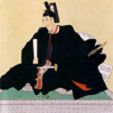

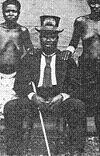
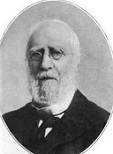
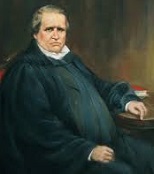










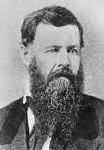

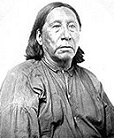




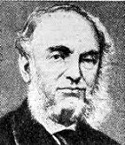






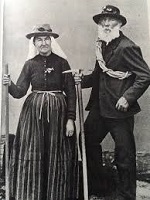
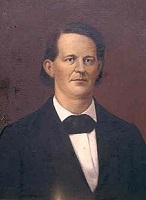



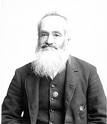


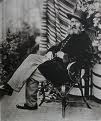


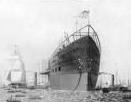
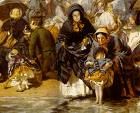




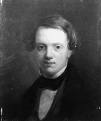

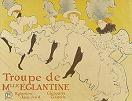
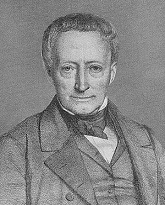
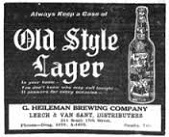
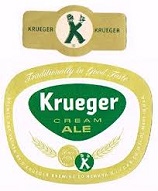
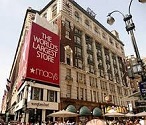
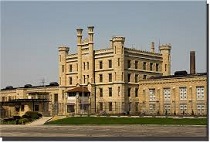
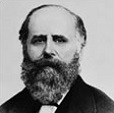
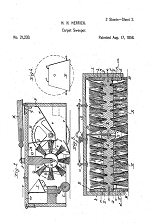
1858 Chinese immigrants begin coming to Canada; the first Chinese immigrant arrives in New York City; quick-on-the-draw Calif. passes a law banning entry of Chinese, and Mongolians too. On Jan. 4 Gov. Robert J. Walker has the Kansas Legislature vote the Lecompton Constitution up or down: 10,226 vote against it, 138 for it with slavery, 24 for it without slavery; Pres. Buchanan breaks with Walker and supports it, then Sen. Douglas breaks with Buchanan, dividing the Dem. Party; in Mar. the U.S. Senate accepts it, but the House balks, adding an amendment requiring a carefully supervised popular vote in Kansas first; on Aug. 2 Kansas voters reject Lecompton by 11,300 to 1,788, and Kansas becomes a free state. Ask your doctor if which anti-depression drug is right for you? On Jan. 12 after being nominated last Dec. 9 by Pres. James Buchanan, and vigorously opposed by anti-slavery forces, Rumney, N.H.-born "Old Yankee" strict constructionist (Doughface Dem.) Nathan Clifford (1803-881) is confirmed by the U.S. Senate by a slim 26-23 vote as U.S. Supreme Court justice #34 (until July 25, 1881) to replace Benjamin R. Curtis (1851-57), keeping the court at nine members; no more changes until 1860. The original Titanic? On Jan. 14 (eve.) Italian revolutionaries led by Count Felice Orsini (b. 1819) (leader of the Carbonari) attempt the life of Emperor Napoleon III by throwing three bombs at his carriage as he leaves the Rue Le Peletier opera house in Paris, which was showing Rossini's "William Tell", but the crowd around him absorb the explosion; Orsini's friend Pieri is arrested before the explosion, Gomez and Rudio after; after a brilliant but futile defense by Jules Favre (1809-80), Orsini is guillotined on Mar. 13, after writing a famous Letter to Napoleon III exhorting him to take up the cause of Italian freedom (he had been involved in the revolutionary cause as a young man, and the assassins thought he had betrayed them); too bad, after the whole affair makes Napoleon III more popular, and the British origin of the bombs causes a brief anti-British furor, he fixes their wagons instead, leading to severe repression and the Italian War; Favre becomes a star and is elected as a deputy for Paris. On Jan. 15 a conservative coup in Mexico causes pres. (since Dec. 11, 1855) Ignacio Comonfort to flee the country, and Benito Juarez (1806-75) becomes pres. #26 of Mexico (until July 18, 1872), but is also forced to flee Mexico City, and holes up in Vera Cruz, where he gains diplomatic recognition by the U.S., and initiates sweeping reforms, incl. disestablishment of the Roman Catholic Church and confiscation of church property except bldgs. On Jan. 17 the city of Canon (Cañon) City, Colo. in Fremont County on the Arkansas River in SC Colo. (modern-day pop. 16K), named for the nearby Royal Gorge of the Arkansas River is laid out for Pikes Peak Gold Rush miners by people who never live there, after which in late 1859 a new party jumps their claim, putting up the first bldg. in Feb. 1860 as a commercial center for mining in South Park and the Upper Arkansas River; a gringo journalist leaves the tilde out of the Spanish word for canyon and it takes decades to put it back in; it is incorporated on Apr. 3, 1872; in 1861 the town sends two cos. of volunteers to serve with the 2nd Colo. Infantry, fighting in N.M., Okla., and Mo. until 1865; in 1862 A.M. Cassaday strikes oil 6 mi. N of town, becoming the first commerical oil well W of the Mississippi River; after gold is discovered in Cripple Creek in 1891, several smelters are built; it goes on to become the home of nine state and four federal prisons, incl. the Colo. Territorial Correctional Faciity (1871), with a Welcome sign reading "Corrections Capitol of the World"; it also calls itself the climate capital of Colo. On Jan. 27 Tex. gov. #6 (1857-9) Hardin Richard Runnels commissions Capt. John Salmon "Rip" Ford (1815-97) as senior captain of the Texas Rangers, who leads the Antelope Hills Expedition into the Comancheria, winning the Battle of Antelope Hills (Little Robe Creek) on May 12 in modern-day Okla., then fights to a draw against Mexican rancher-bandito ("the Rio Grande Robin Hood") ("the Red Robber of the Rio Grande") Juan Nepomuceno Cortina Goseacochea (1824-94) in the Rio Grande Valley, after which on July 13, 1859 Cortina launches the Cortina Wars (1859-61) by shooting Brownsville, Tex. marshal Robert Shears in the arm for brutalizing a former employee, occuping the town on Sept. 28-30 with 40-80 men, going on to try unsuccessfully to reclaim for Mexico the territory between the Rio Grande and Nueces Rivers. On Jan. 31 the 692-ft.-long 118-ft.-wide 32K-ton SS Great Eastern (the biggest ship until the Lusitania), designed by Isambard Kingdom Brunel (b. 1806) is launched from the David Napier shipyards in London into the Thames River after two failed attempts last Nov. 3 and Nov. 19 (a man is killed in the first); on its trial run to Weymouth a steampipe bursts, killing five stokers, the news causing Brunel (known for smoking 40 cigars a day, sleeping as few as 4 hours a night, and suffering from kidney problems) to have a stroke and die a few days later on Sept. 15, 1859; it can carry 4K passengers, but its owner the Great Ship Co. (who bought it from the Eastern Steam Nav. Co.) can't book it up, and it gets into two accidents costing $650K in repairs, causing it to end up being chartered by the company that lays the underwater transatlantic cable in 1865. On Feb. 11 to July 16 14-y.-o. Bernadette Soubirous (1844-79) claims to have 18 visions of the Virgin Mary (or virgins of the Vision Mary?) in a niche above one of the caves of the Massabielle rocks near Lourdes, France (in the Hautes Pyrenees 12 mi. SW of Tarbes), launching the money-making racket of Our Lady of Lourdes, as herds of sick people flock to big sky country to await an appearance and get some holy water from the holy stream and get a cure - you think you have nowhere to turn, but you do? On Feb. 12 (Abraham Lincoln's 49th birthday) the 200+ black citizens of Springfield, Ill. meet to protest the Dred Scott decision. On Feb. 20 British PM Palmerston's coalition is defeated, and Conservative former PM (1852) Edward Smith-Stanley, 14th Earl of Derby (1799-1869) (AKA Lord Derby) becomes British PM, joining Disraeli to form their 2nd cabinet, which lasts a little more than a year (until June 11, 1859). In Feb. British explorers Sir Richard Burton and John Speke discover Lake Tanganyika; Speke follows native advice and discovers Lake Victoria (Nyanza) alone, identifying it as the long-sought source of denial, er, the Nile - without speaking to Richard? Why does everything I do sound like a leprechaun? On Mar. 17 the secret Fenian (Irish Repub.) Brotherhood (Fianna) is founded in New York City by James Stephens to free Ireland from English rule - Mickey Finn, Cuchulain, Fergus to the rescue? In Mar. after chartering the schooner Palestine, U.S. citizens William Parker and R.F. Ryan find guano on Johnston Atoll 860 mi. SW of the Big Island of Hawaii, claiming it for the U.S., which doesn't stop the Kingdom of Hawaii from claiming it under the name Kalama, with its smaller sister island named Cornwallis, after which on July 27 Kamehameha IV declares it annexation to Hawaii, which doesn't prevent the U.S. from mining guano until they mine it out by 1890; in 1892 HMS Champin surveys it as a possible site for a telegraph cable station, which the Hawaiian legation in London discusses on Jan. 16, 1893, one day before the Kingdom of Hawaii is overthrown by the U.S. On Apr. 14 after Calif. Bill 339 is introduced restricting immigration and residents of blacks in Calif and making it illegal to bring a slave into Calif. for the purpose of freeing him/her, the black community of San Francisco, Calif. holds a meeting in which Jeremiah Nagle, a landowner in the British colony of Vancouver Island and captain of the steamship Commodore which was making regular voyages between San Francisco and Victoria tells them about gold having been discovered in the Fraser River, and signs-up 35 blacks to go with him; by summer hundreds more follow. On May 5 Sir Colin Campbell defeats Indian rebel leader Bahadur Khan outside Bareilly, and the British declare peace in India; Campbell is created Baron Clyde; the British govt. finally takes over the rule of India from the British East India Co., giving it to a secy. of state who has to be a member of the cabinet and directly responsible to Parliament, with official title of viceroy of India, starting with Indian govt.-gen. (since Feb. 1856) Charles John "Clemency" Canning, 1st Earl Canning (1812-62) on Nov. 1 (until Mar. 21, 1962); a white English elite now rule India, considering themselves racially superior to those whom they rule, but they make the mistake of educating a native Indian elite to aid their admin., who later turn on them after reaching out to a whole new fan base. On May 11 "North Star State", "Gopher State", "Land of 10,000 Lakes" Minnesota (Minn.) is admitted as the 32nd U.S. state (free) (motto: "L'Etoile du Nord", "The North Star"), becoming the 2nd (last) state that has land on both sides of the Mississippi River after La.; there are now 17 free and 15 slave states. On May 23 a party from Auraria, Ga. led by William Greeneberry "Green" Russell (1818-77) arrives at the head of Cherry Creek in Colo. near the South Platte River at the W edge of the Great Plains on the 150-mi. Front Range of the Rocky Mts., and come up empty, going on to prospect on all the streams N to the Cache la Poudre River, returning in early July to the Platte River and camping in Little Dry Creek S of modern-day Denver, discovering gold and taking 20 oz. (several hundred dollars' worth), after which old trader John Cantrell returns to Kansas City with the good news backed up by samples, causing newspapers to start the Colo. (Pike's Peak) Gold Rush, during which 50K migrate within a year and 100K+ migrate by the time of the creation of Colo. Territory on Feb. 28, 1861, with the motto "Pike's Peak or Bust", although no gold is discovered within 50 mi. of it; meanwhile in Oct.-Nov. a party from Lawrence, Kan. that arrived near Pueblo on July 4 settles on the Platte River N of Denver, building 20-30 log cabins, which they call Montana City; on Oct. 29 a large number of prospectors that heard of the Russell discovery begin settling on both sides of Cherry Creek; on Nov. 1 the town of Auraria SE of the confluence of Cherry Creek and the South Plate River is founded three weeks before Denver by the Russell party; on Nov. 6 an election is held, and H.J. Graham is selected to travel to Washington, D.C. to talk Congress into organizing a new territory in vain, while A.J. Smith is sent to the Kan. Territorial legislature to do ditto, and they bite, establishing Arapahoe County in the W part of Kan. Territory to the crest of the Rocky Mts.; next Apr. a convention is held there to create the provisional State of Jefferson, which is never recognized by the U.S. govt.; on Nov. 22 Leavenworth, Kan. settler "General" William H. Larimer Jr. (1809-75) arrives, settling on a hill across Cherry Creek from Auraria, laying cottonwood logs along a 1 sq. mi. parcel of land to stake his claim, which he calls the mile-high (5,280 ft. elev.) city of Denver, Colo. (modern-day pop. 690K/2.8M), named after Winchester, Va.-born Kansas Territorial Gov. #5 (since Dec. 1857) James William "Jim" Denver (1817-92), opening the first store in Denver to service miners working in placer mines, founding the Denver Land Co. to sell tracts, calling Colo. "the most picturesque country in the world, with fine air, good water, and everything to make a man happy and live to a good old age" and trading tracts in Denver for grubstakes and gambling debts until the mines peter-out by 1860, causing tens of thousands to return home; the Denver streets are laid out parallel to the S bank of Cherry Creek near its confluence with the Platte River, ending up diagonal to the four cardinal directions, running from 13th St. N to 38th St., and E from Wawatta St. to Wazee St., Blake St., Market St., Larimer St., Lawrence St., Curtis St., Champa St., Stout St., California St., Walton St., Glenarm Pl., Tremont Pl., and Court Pl., ending at the intersection of W Colfax Ave. and Broadway, site of Civic Center Park and the Colo. State Capitol; on Apr. 6, 1860 Auraria is incorporated into Denver, becoming known as West Denver; Southern Arapaho chief Little Raven (Crow) (Hosa) (Oh-has-tee) (1810-89) welcomes the paleface settlers to the Denver gold camp, causing them to name Arapahoe St.; the Indian tribes are pushed S into the Arkansas River Valley; next year Larimer founds Mount Prospect (Prospect Hill) Cemetery in Denver on Arapaho land, which is converted to Cheesman Park in 1907; the real Denver visits Denver in 1875 and 1882 and receives little attention? On June 16 Abraham Lincoln, Repub. nominee for U.S. Senate from Ill. gives his House Divided Speech on the slavery issue in Springfield, Ill., uttering the immortal soundbyte: "A house divided against itself cannot stand" - you're working on my nerves asking me all these questions? On June 18 the Treaty of Tianjin (Tientsin) between France, U.K., Russia, and the U.S. ends the first part of the Second Opium War (1856-60), and allows cigarettes to be imported into China duty-free, causing tobacco addicts to replace opium addicts; by 1900 China is totally penetrated by foreign-owned tobacco co. On June 30 after working to improve Spain's railways,increase industry in Navarre and Catalonia, and promote a new aggressive imperial policy in Africa, Gen. Leopoldo O'Donnell becomes PM #48 of Spain (until July 10, 1866). On July 10 Abraham Lincoln gives an important speech in Chicago, Ill., and another on July 17 in Springfield, Ill. On July 29 the Harris Treaty (U.S.-Japan Treaty of Amity and Commerce), negotiated by U.S. envoy Townsend Harris finally opens the U.S. to trade with Japan, effective July 4, 1859; Britain also obtains entry for British trade in five Japanese ports (incl. Yokohama), with the establishment of diplomatic and consular reps. In July the U.S. and Britain make a 2nd attempt to lay an underwater transatlantic cable, but the cable breaks 3x and they give up again; on July 29 they make a third attempt, which succeeds on Aug. 5, when a telegraph message is sent from the Niagara in Newfoundland to the Agamemnon in Valentia Bay, Ireland; New York City holds a celebration on Sept. 1, only to find that the cable had stopped functioning; a Board of Inquiry in 1860 clears Field of wrongdoing and suggests a new attempt be made after a better cable is designed, and a 4th attempt is made in 1865. On July 4 Congress authorizes a new U.S. flag with 32 stars (design #14), which now incl. Minn. - with 10K lakes created by Babe the Blue Ox? On July 28 all 13 economists in Parliament vote to extend full civil rights to Jews, incl. the right to become skilled tradesmen and conduct business w/o taking Christian oaths; the Chuts begin immigrating to London from the Netherlands, engaging in cigar making et al.; Jewish Lord Lionel Nathan de Rothschild (1808-79) is finally allowed to take his seat in the British Parliament after being elected 5x, becoming its first-ever Jewish member, serving until 1874 for the city of London; they kept him out since 1847 by requiring him to swear "upon the true faith of a Christian" - have you had an unusual experience and need Sylvia Brown's help? On Aug. 5 a Land Law is passed in Egypt, intended to gives tate land (kharajiyya) to freeholders by the end of the cent.; too bad, large landowners suck up 44% of the land by 1913 and many peasants end up as sharecroppers. On Aug. 5 Julia Archibald Holmes becomes the first woman to ascend Pikes Peak in Colo., along with her husband and two other men; she wears bloomers, a short dress and mocassins, calling her outfit her "American costume". On Aug. 11 the 13,020 ft. (3,970m) Eiger (Ger. "ogre") Mt. in the Bernese Alps is first climbed by Swiss climbers Christian Almer (1826-98) and Peter Bohren, and Irish merchant Charles Barrington (1834-1901) (west face); the north face is climbed in 1938 by an Austrian-German expedition; since 1935 64+ climbers have died attempting the north face, earning it the nickname "Mordwand" (murder wall); Almer goes on to summit the Monch (1857), Gross Fiescherhorn (1862), Barre des Ecrins (1864), Aiguille Verte (Mont Blanc Massif) (1865), Grand Cornier (1865), Nesthorn (1865) et al.; in 1898 72-y.-o. Almer summits the Wetterhorn. On Aug. 16 a telegraph message from British Queen Victoria to U.S. Pres. Buchanan is transmitted over the new transatlantic cable - shut Lincoln the f--- up? On Aug. 21 the seven Lincoln-Douglas Debates in Ill. between beardless Abraham Lincoln (1809-65) and Stephen Arnold Douglas (1813-61) begin in Ottawa, followed by Freeport on Aug. 27, Jonesboro on Sept. 15, Charleston on Sept. 18, Galesburg on Oct. 7, Quincy on Oct. 13, and Alton on Oct. 15. On Aug. 26 the Yakima War ends with the Battle of Four Lakes near Spokane, and the loser Yakimas are removed to their own Yakima Rez. On Aug. 27 the Second Lincoln-Douglas Debate is held in Freeport, Ill.; Douglas disrupts the Dem. Party by his pro stand on the Dred Scott decision, which becomes known as the Freeport Doctrine, uttering the soundbyte that the signers of the Declaration of Independence "had no reference to negroes at all when they declared all men to be created equal"; Lincoln admits that there is "a physical difference between the white and black races" that would "forever forbid the two races living together on terms of social and political equality"; slavery, however, is monkey doo and should be contained so that "the public mind shall rest in the belief that it is in the course of ultimate extinction", and tries to prove that the Constitution doesn't protect slavery; as to popular sovereignty, "No man can logically say he don't care whether a wrong is voted up or down"; Douglas wins the debates, but the publicity plus a book with the text edited by him makes Lincoln a household name. On Sept. 2 a Lincoln-Douglas debate is held in Clinton, Ill., in which Stephen Douglas accuses Abraham Lincoln of being in favor of Negro equality, and he replies: "He's not in favor of it to the extent Douglas would have them believe, but that he did believe that the colored man had as much right to eat the bread earned by the sweat of his own face as Douglas himself, or any other living man, and that was the thing that really caused the general debate between Douglas and Lincoln in the state of Illinois" (Vespasian Warner); Lincoln allegedly utters the immortal soundbyte: "You can fool all the people some of the time and some of the people all the time, but you cannot fool all the people all the time"; there is no documentation until a Prohibition Party convention on Sept. 9, 1885?; the saying becomes one of the most popular advertising slogans in the U.S., esp. around his birthday Feb. 12, incl. Gimbels, Macy's, Old Crow Rye, R.M. Rose Distillery, Knickerbocker Beer, Harwood's Canadian Whiskey, Calvert Extra Whiskey, Steinway Pianos, Mazola Corn Oil, Puritan Malt Extract, Hydrox Ice Cream, Borden Eagle Brand Condensed Milk, Postum coffee substitute, Nucoa bread spead, Pillsbury's Best Flour et al. On Oct. 17 a group of gold prospectors from Fort St. Vrain 30 mi. to the E led by Capt. Thomas Aikens camp in Red Rocks on Boulder Creek in modern-day Settler's Park at the mouth of Boulder Canyon in Boulder Valley in Arapaho territory near the camp of Southern Arapaho chief Niwot (Left Hand) (1825-64) in Valmont Butte, who rides to their camp to warn them to leave, but allegedly changes his mind after being wined, dined, and liquored-up, then having a dream of a flood washing his people away but letting the whites survive, welcoming them after uttering Niwot's Curse of the Boulder Valley: "People seeing the beauty of this valley will want to stay, and their staying will be the undoing of the beauty"; he actually only let them build cabins to live in for the winter, and after gold is discovered Aikens reneges on his promise, forming the Boulder City Town Co.? On Oct. 28 R.H. Macy & Co. on 6th Ave. between 13th and 14th Sts. in New York City (far N of other dry goods stores) is founded by failed retail dry goods store owner Rowland Hussey Macy Sr. (1822-77), doing $11.08 sales the first day; the logo features a star based on a tattoo that Macy got as a teen sailor on the Nantucket whaling ship Emily Morgan; in 1902 it moves to Herald Square at 34th St. and Broadway even more N of the other dry goods stores, running a steam wagonette to transport customers, expanding to take over the entire block bounded by 7th Ave., Broadway, 34th St., and 35th St., becoming the world's largest store; on Nov. 24, 1927 the first Macy's Thanksgiving Day Parade is held; on Dec. 19, 1994 it merges with Federated Department Stores; in the 1920s it begins expanding throughout the New York City area, moving into other states in 1983; on Feb. 28, 2005 it buys May Department Stores Co. for $11B. On Oct. 30 William Hardaker sells 5 lbs. of tainted zebra-striped humbugs (peppermint-flavored hard candy) from his stall in Green Market, Bradford, England, poisoning multitudes with arsenic, leading to the passing of the 1868 Pharmacy Act. On Nov. 8 the 1858 U.S. nat. election sees the Buchanan admin. lose control of the U.S. House, giving the Repubs. control for the first time (116 vs. 83) as the Dems. become divided over the slavery issue and the Am. Party collapses (5); Lincoln loses the Ill. U.S. Senate election in the legislature to Douglas by 54-1 despite receiving more total votes to elect the state reps involved; meanwhile 19 former Whigs form the Opposition Party in the U.S. House (ends 1860), which ends up allying with the Repubs. against the Dems. - there must be something we can do? On Dec. 23 after refusing to support the victorious Western allies in the Crimean War, Serbian prince (since 1842) Aleksandar Karadordevic is overthrown by the winners and flees into exile, and Milos Obrenovic I returns as prince of Serbia (until Sept. 26, 1860). On Dec. 31 New York City mayor #73 (since Jan. 1 1855) (grand sachem of Tammy Hall) Fernando Woods is defeated for reelection by Daniel Fawcett Tiemann (1805-99) (nephew-in-law of Peter Cooper) by 3K votes despite the Dead Rabbits gang stuffing the ballot box using names from city cemeteries; in 1860 Wood is elected for a 2nd term (until 1862). In Dec. 1858 Highland, Colo. is founded by William Larimer Jr. in North Denver on high ground on the W side of the South Platte River Valley overlooking Auraria and Denver, with a bridge built on 15th St. across the Platte River to connect it to them, permanently isolating it from Denver's wildlife-filled river, railroad yards, and smog; in 1875 Owen Le Fevre et al. petitions Arapahoe County to establish a village govt., and in 1885 after annexing Potter Highland and Highland Park the city of Highlands is incorporated, with most of the pop. consisting of Repub. Protestants, incl. many Freemasons, who build the beautiful Highlands Masonic Temple at 36th Ave. and Federal Blvd.; Highland is annexed by Denver in 1896; the streets running N from Federal Blvd. are named after U.S. Civil War Union gens., incl. Grove, Hooker, Irving, Julian, King, Lowell, Meade; TLW lives at 23rd Ave. and Hoooker St. in Highland in 1982-2010. Russia and China sign the Treaty of Aigun (Aygun), negotiated by Nikolai Muravyov, an "unequal treaty" extending the Russian border to the Amur River, incl. Priamurye, Sakhalin Island and most of Primorsky and Khabarovsk, and granting Russia free access to the Pacific Ocean, getting Muravyov a promotion to Count Amursky ("of the Amur River"); to get new settlers he ends up importing Baikal Cossacks and Nerchinsk peasants. Prince William of Prussia is declared regent for insane King Frederick William IV. Alexander Karageorgevich is deposed by the Serbian Diet, and Milos Obrenovic (1780-1860), richest man in Serbia is declared king again (1st time 1815-39). Shogun (since 1853) Tokugawa Iyesada (b. ?) dies, and Tokugawa Iyemochi (Iemochi) (1847-66) becomes Tokugawa shogun #14 of Japan (until July 20, 1866), going on to become the shogun introduced at gunpoint to white-is-rice U.S. Commodore Matthew Perry. After dictator Manuel Montt of Chile names Antonio Varas de la Barra (1817-86) as his successor, many conservatives unite with liberals against him, causing him to imprison all their leaders, triggering a popular backlash and civil war (ends 1859). King (since 1818) Ghezo dies, and his son Badohou becomes Glele (-1889), king #10 of Dahomey (Benin) in W Africa (until 1889), making treaties with the French but snubbing the English because of their more stringent attitude toward their little down-home institution of slavery. King (since ?) Lobe a Bebe dies, and his son Ndumbe Lobe Bell (1839-97) becomes king of the Duala people of S Cameroon, watching the Germans take control of the region in 1884. The British govt. dissolves the East India Co. and separates Bombay, India (the former East India Co. region, which incl. Gujarat, Kathiawar, Aden, Sind, and various towns) as a presidency (until 1937); John Stuart Mill (1806-73), chief of the British examiner's office retires and moves to St. Veran (Véran) (near Avignon) in France (until 1865). After being offered a $10K bribe by paleface emissary Chief Wild Cat, Seminole Chief Billy Bowlegs and his 123 men surrender to Ft. Myers, Fla. and move on ships, embarking at Billy Creek (which flows into the Caloosahatchee River), landing in New Orleans, travelling to Ark. and ending up in Indian Territory in Okla., where he uses his cash to become a major Southern planter with 20+ slaves. The Kingdom of Rarotonga is founded on Rarotonga, most populous of the Cook Islands; in 1888 it becomes a protectorate of Britain, and in 1893 its name is changed to Cook Islands Federation. The Ottoman Empire passes the Ottoman Penal Code, decriminalizing homosexuality - after all, every pasha does it? John Brown returns from Kansas to the east, and at Chatham, Canada he and 11 white and 35 black associates adopt a Provisional Constitution and Ordinance for the People of the United States, with Brown as CIC; soon afterwards he moves to a farm near Harpers (no apostrophe) Ferry, Va. at the N terminus of the Blue Ridge Mts. David Livingstone resigns from the London Missionary Society, and is appointed British consul at Quelimane for the E African coast with authority to lead another expedition into E and C Africa, going up the Shire River (tributary of the Zambezi). British explorer John Hanning Speke (1827-64) discovers Lake Victoria in E Africa, identifying it as the long-sought source of denial, er, the Nile. On the orders of Pope Pius IX, papal police abduct 6-y.-o. Jewish boy Edgardo Mortara from his parents and raise him a Roman Catholic after claiming he was secretly baptized a Catholic by a 14-y.-o. maid, causing a firestorm of controversy and stinking up Pius IX's name; on Sept. 3, 2000 Pope John Paul II beatifies Pius IX, reigniting the controversy. Arabic begins replacing Turkish as the admin. language in Egypt. Gold is discovered in the Central Fraiser River and Cariboo Mountains. The Great French Wine Blight begins when the tiny pale yellow sap-sucking Grape phylloxera insect pest of the aphid family is accidentally introduced into France grapevines from the E U.S., and infects vines throughout S Europe before spreading worldwide, destroying the French wine industry until new vines combining the resistant Am. rootstock are grafted to Euro vines. The city of Carson City, Nev. on the E edge of the Carson Range of the Sierra Nevadas 30 mi. from modern-day Reno (alt. 4.8K ft.) is founded as a trading post, named for Kit Carson, experiencing a pop. surge from the 1859 Comstock Lode strike; in 1864 it becomes the capital of Nev., with the Virginia and Truckee Railroad connecting it with Virginia City, along with a log flume; in 1870-93 the Carson City Mint strikes gold and silver coins; by 1880 it becomes home to 1K+ Chinese immigrants (railroad workers), 20% of the pop.; too bad, after the Central Pacific Railroad builds a line through Donner Pass to the N, pop. begins to decrease. Ancient Corinth in Greece is destroyed by a 6.5 earthquake, and the city of New Corinth (Nea Korinthos) (modern-day pop. 38K/58K) is built 1.9 mi. to the SW on the Gulf of Corinth 48 mi. W of Athens; in 1928 a 6.3 earthquake destroys it, and it is rebuilt, and ditto after a great fire in 1933. The 27K-ton 692-ft. iron-hulled 5-funnel SS Great Eastern is launched, becoming the world's largest steamship (until 1901), designed to go round-trip from England to Australia around the Cape of Good Hope without refueling; it proves a financial failure, lays the transatlantic cable, and is scrapped in 1888. Am. Catholic priest Isaac Thomas Hecker (1819-88) (of German parentage, raised a Methodist) founds the Paulist Fathers (Missionary Society of St. Paul the Apostle), becoming the first religious order of priests created in North Am.; they use the intials "CSP" after their names; their motto "Allons au peuple" (Let's go to the people), along with attempts at social works and intermingling of priests with the people pisses-off conservative Catholics, ending in a papal letter in 1899. The Mutter (Mütter) Museum in Philadelphia, Penn. starts out as a collection of medical specimens and oddities donated by Dr. Thomas Bent Mutter, becoming part of the College of Physicians. Former Ohio schoolteacher James A. Garfield (b. 1831) marries Lucretia "Crete" Rudolph (1832-1918); they have 5 sons and 2 daughters. Ex-pres. Millard Fillmore fills the void in his life caused by the untimely (1853) death of his first wife Abigail (b. 1798) by marrying 15-years-younger Mrs. Caroline Carmichael McIntosh (1813-81); they have no children - but fork hay like billy goats? Charles Dickens begins touring and giving public readings of his works. After finishing a tour of Germany, France and England (1857), Anton Rubinstein (1829-94) becomes court pianist and conductor in St. Petersburg. Mormon missionary William Hamblin shoots the bottom off a tobacco pipe from 25 yds. without breaking the bowl at freshwater Pipe Spring, Ariz., giving it its name; it becomes a U.S. monument in 1923. The Gen. Medical Council begins meeting in London, regulating doctors and ensuring good medical practices. The Suez Canal Co.is formed. William Mahone (1826-85) of Southampton County, Va. builds the Norfolk & Petersburg Railroad through the Great Dismal Swamp near Norfolk, Va., then when the U.S. Civil War breaks out becomes a Confed. gen., known as "Little Billy" for his stature, and after the war returns as pres. of Norfolk & Western. Chicago's first paid fire dept. is formed (reorganized in 1871 after the cow episode?). After the original museum (founded 1835 near the Ezbekeyah Garden) is moved to Cairo Citadel, and in 1855 gives all its artifacts to Archbuke Maximilian of Austria, the new Egyptian Museum (Museum of Egyptian Antiquities) s founded in Boulaq, Egypt on the Nile River by Boulogne-sur-Mer-born French archeologist-Egyptologist Francois Auguste Ferdinand Mariette (1821-81); in 1878 it is damaged in a flood, and in 1891 is moved to the Giza District of Cairo before moving in 1902 to Tahrir Square; next year Mariette founds the Supreme Council of Antiquities (SCA) in the Egyptian Ministry of Culture, which requires all foreign archeologists in Egypt to report their finds before pub. and oversees the recovery of stolen or illegally exported antiquities. The Cooper Union for the Advancement of Science and Art is presented to New York City by industrialist Peter Cooper (1791-1883) for educating working class men and women in business. German-born conductor-pianist Sir Charles Halle (Hallé) (1819-65) establishes the Halle (Hallé) Concerts in textile town Manchester, England - I'm just a redneck woman I ain't no high class broad? The Wiener Singakademie (Vienna Singing Academy) is founded, becoming known for great choir singing. Paris-born English artist George du Maurier (1834-96) begins drawing caricatures for Punch satirizing the middle and upper classes. Charles Frederick Worth (1826-95) of England founds Worth & Bobergh at 7 Rue de la Paix, becoming the first haute couture fashion house in Paris, turning tailoring from a trade to an art and gaining rich customers such as Empress Eugenie, Cora Pearl, Austrian princess Pauline de Metternich and Sara Bernhardt, becoming known as "the Father of Haute Couture"; his Visite style dress of 1885, made with white silk with braid and bead trimming becomes his biggest hit, and his silk satin presentation dress of 1895 is a big hit among debutantes. G. Heileman Brewing Co. is founded in La Cross, Wisc. by Wurttemberg, Germany-born Johann Gottlieb Heileman (1824-78), who eschews nat. distribution, allowing rival Anheuser-Busch to fill the gap; in 1902 it introduces Heileman's Old Style Beer; in 1959-80 it acquires 13 breweries (incl. Blatz, Black Label, Olympia, Rainier, Schmidt's, and Wiedemann) and becomes the 3rd largest brewery in the U.S. behind Anheuser-Busch and Miller before losing control to Alan Bond of Australia in 1987, who finances the acquisition with junk bonds, causing it to be sold in 1994 to equity firm Hicks and Muse, who in 1996 sells it to Stroh Brewery, which in 1998 is acquired by Pabst Brewing Co. Gottfried Krueger Brewery Co. is founded in Newark, N.J. by Gottfried Kueger (1837-1926) and his uncle John Laible (-1875), reaching 182K barrels/year in 1900, and merging with Hupfel Brewery and Peter Hauck Brewery in 1908 to form the United States Brewing Co.; on Jan. 24, 1935 Krueger Brewery introduces the first beer in cans, reaching 1M barrels/year in 1953; it closes in 1961. Swiss immigrant master baker Casper Gloor begins baking hand-twisted Tell City brand pretzels in Tell City, Ind., becoming known for their super-hard crunch. Sports: The Nat. Assoc. of Base Ball Players is formed, becoming the first prof. assoc. of baseball players in the U.S.; the Harwood Co. begins manufacturing horsehide baseballs. The term "hat trick" is coined after a cricket bowler takes three consecutive wickets, impressing the spectators so much that they present him with a hat. Architecture: English architect Sir Charles Barry (1795-1860) designs the 3rd Covent Garden Opera House in London. Joliet (Ill. State) Penitentiary in Joliet, Ill. opens, later made famous by the 1980 film "The Blues Brothers"; it closes in 2002. The South Foreland Lighthouse on the White Cliffs of Dover, England is lit by electricity. The rebuilding of the Ringstrasse in Vienna begins (ends 1865). Inventions: On Feb. 2 Edwin Holmes of Boston, Mass. patents the first practical electric burglar alarm after improving the first patent issued to Augustus Russell Pope on June 21, 1853. On June 11 Lucius A. Bigelow of England patents (1,327) an improvement on James Humes' sweeping machine; on Aug. 17 Hiram H. Herrick of East Boston, Mass. patents the first carpet sweeper (#21,233); on Sept. 21 and Nov. 23 Alfred Vincent Newton of England patents (2,122 and 2,660) more improvements; too bad, they're all hard to use and inefficient, and are commercial flops. On Nov. 30 Am. tinsmith John Landis Mason (1832-1902) of Philly receives U.S. patent #22,186 for an airtight watertight screw-top glass fruit Mason Jar, useful for storing sweetmeats; its use for preserves causes white sugar to replace maple sugar and molasses for home cooking, and causes white sugar usage to double in the U.S. by 1915; he also invents the screw-top salt shaker to make sure that hypertension and diabetes go hand-in-hand?; too bad, his patent expires in 1879, and competitors steal it, and he ends up dying in poverty in a New York City tenement house in 1902. The eraser-top pencil is patented by Hyman Lipman of Philadelphia, Penn. - pencil in lip jokes here? Baltimore, Md. mechanic Charles Moncky invents the monkey wrench - just in time to celebrate Darwin? The can opener is patented by Ezra J. Warner of Waterbury, Conn.; it is shaped like a bent bayonet, and is so dangerous that it is operated only by clerks at grocery stores; the first safe can opener is patented in 1870 by William Lyman of West Meriden, Conn. William Thomson (later Lord Kelvin) invents the Mirror Galvanometer. Conn.-born abolitionist mathematician Elizur Wright (1804-85) reforms life insurance by getting a law passed in Mass. requiring insurance cos. to hold reserve funds based on a formula he discovered, becoming known as "the Father of Life Insurance and Insurance Regulation". Science: Stanislao Cannizzaro (1826-1910) of the U. of Genoa first explains the difference between an atom, molecule, and compound, permitting reliable atomic weights to be determined. David Tucker pub. the case of Leonard Trask (1805-61), who has an advanced case of ankylosing spondylitis (fusing spine), causing his head to touch his chest. After young unknown English naturalist Alfred Russel [one l] Wallace (1823-1913) sends shy, always-sick old man Charles Darwin (1809-82) a letter claiming discovery of the Theory of Evolution by Natural Selection, Darwin finally quits stalling, and on July 1 they pub. independent papers and reveal the theory at a scientific meeting, with Darwin given precedence. German chemist Friedrich August Kekule (Kekulé) von Stradonitz (1829-96) and Scottish chemist Archibald Scott Couper (1831-92) independently pub. the theory of chemical bonds, suggesting that carbon is tetravalent, and that carbon-carbon bonds are the key structural feature of organic compounds, becoming the key insight that gets modern organic chemistry cooking? German mathematician August Ferdinand Mobius (Möbius) (1790-1868) and German mathematician Johann Benedict Listing (1808-82) independently discover the Mobius (Möbius) Band (Strip); he doesn't pub. it until 1865 - after exhausting all the military possibilities? The first orchid is hybridized - by 2004 even actor Alec Baldwin could do it? Microscopic examination of chalk leads to the discovery that it is composed of seashells - she sells them by the seashore jokes here? The first relatively complete dinosaur skeleton, Hadrosaurus foulkii is found in Haddonfield, N.J. by fossil hobbyist William Parker Foulke, and excavated by U.S. vertebrate paleontologist Joseph Leidy (1823-91). Scottish physicist Balfour Stewart (1828-87) pub. the fact that radiation takes place throughout the interior of a radiating body, and that there is a microbalance between radiation and absorption throughout. Nonfiction: Pierre-Jean de Beranger (1780-1857), Ma Biographie (autobio.) (posth.). Sir John Charles Bucknill (1817-97), Manual of Psychological Medicine: Containing History, Nosology, Description, Statistics, Diagnosis, Pathology, and Treatment of Insanity, with an Appendix of Cases. Henry Charles Carey (1793-1879), The Principles of Social Science (3 vols.) (1858-9); claims the existence of a natural system of laws that increases prosperity of the whole community esp. the working classes as long as the govt. adopts the Colbert system that protects manufactures and builds farm roads, rejecting Malthusianism and the law of diminishing returns from land along with the Ricardian theory of rent. Thomas Carlyle (1795-1881), History of Friedrich II of Prussia, Called Frederick the Great (6 vols.); about Frederick II the Great (1712-86), based on trips to Germany in 1852 and 1858, calling the work his "Thirteen Years War"; portrays Freddy the Great as a genius who can bring victory out of chaos in every battle, getting adopted by German military academies but receiving a mixed reception at home, causing him to get depressed; a coincidence that his neglected wife becomes an invalid this year?; "Infinitely the wittiest book that was ever written" (Ralph Waldo Enerson); "The figures of most historians seem like dolls stuffed with bran, whose whole substance runs out through any hole that criticism may tear in them; but Carlyle's are so real in comparison, that, if you prick them, they bleed" (James Russell Lowell); "Happy the people whose annals are blank in history-books." Thomas Reade Rootes Cobb (1823-62), An Inquiry into the Law of Negro Slavery in the United States of America; by a secessionist slave holder reporter for the Supreme Court of Ga. in 1849-57; "This inquiry into the physical, mental, and moral development of the negro race seems to point them clearly, as peculiarly fitted for a laborious class. The physical frame is capable of great and long-continued exertion. Their mental capacity renders them incapable of successful self-development, and yet adapts them for the direction of the wiser race. Their moral character renders them happy, peaceful, contented and cheerful in a status that would break the spirit and destroy the energies of the Caucasian or the native American." Moncure D. Conway (1832-1907), Tracts for To-day. Dinah Craik (1826-87), A Woman's Thoughts about Women. Victor Cousin (1792-1867), Du Vrai, du Beau et du Bien. Eugene Fromentin (1820-76), Une Annee dans le Sahel. Theophile Gautier (1811-72), Histoire de l'Art Dramatique en France (6 vols.) (1858-9). Archibald Geikie (1835-1924), The Story of a Boulder; or, Gleanings from the Note-Book of a Geologist. Ivan Goncharov (1812-91), The Frigate Pallas (Pallada) (2 vols.); his Far East travels from 1852-5 as secy. of Adm. Yvfimy Putyatin (1803-83). Asa Gray (1810-88), How Plants Grow. Henry Gray (1827-60), Gray's Anatomy: Descriptive and Surgical; wows readers with its 700 pages and 363 medical illustrations. Henry William Herbert (1807-58), The Horse and Horsemanship in the United States and British Provinces of North America (pub. under alias Frank Forester). Oliver Wendell Holmes Sr. (1809-84), The Autocrat of the Breakfast Table; first pub. in "Atlantic Monthly"; "every man his own Boswell" - all he needs is his Johnson? Thomas Henry Huxley (1825-95), The Theory of the Vertebrate Skulls. LDS Church, History of Joseph Smith; "a narrative of the prophet Joseph Smith"; a compilation of the works of scribes written in 1839-56 revised by Brigham Young; in 1902-12 a 7-vol. definitive ed. edited by Warrington, Lancashire, England-born Brigham Henry "B.H." Roberts (1857-1933) is pub. under the title "History of the Church of Jesus Christ of Latter-day Saints"; Roberts dies of diabetes on Sept. 27, 1933 in Salt Lake City, Utah, leaving Studies of the Book of Mormon (pub. in 1985), questioning whether Joseph Smith Jr. really was divinely inspired to write the Book of Mormon, or plagiarized it from Ethan Smith's 1823 "View of the Hebrews", and merely had a good imagination, freaking-out the church because he was an insider not outsider, and seems to have lost his faith. Lola Montez (1818-61), The Arts of Beauty - the Bimbo-to-Diva Bible? John Muir (1810-82), Original Sanskrit Texts (5 vols.) (1858-70); claims that caste did not exist in the Vedic age. Sir William Muir (1819-1905), A Life of Mahomet and History of Islam to the Era of the Hegira (4 vols.) (1858-61); 2nd ed. 1878; 3rd ed. 1894; by a Scottish Orientalist with a knowledge of Arabic; "It is incumbent upon us to consider this question from a Christian point of view, and to ask whether the supernatural influence, which... acted upon the soul of the Arabian prophet may not have proceeded from the Evil One... Our belief in the power of the Evil One must lead us to consider this as at least one of the possible causes of the fall of Mahomet... into the meshes of deception... May we conceive that a diabolical influence and inspiration was permitted to enslave the heart of him who had deliberately yielded to the compromise with evil"; Islam brings three "Radical Evils": "First: Polygamy, Divorce, and Slavery strike at the root of public morals, poison domestic life, and disorganise society; while the Veil removes the female sex from its just position and influence in the world. Second: freedom of thought and private judgment are crushed and annihilated. Toleration is unknown, and the possibility of free and liberal institutions foreclosed. Third: a barrier has been interposed against the reception of Christianity"; "The sword of Muhammad and the Qur'an are the most fatal enemies of civilization, liberty and truth which the world has ever known - an unmitigated cultural disaster parading as God's will"; first uses the phrase "Satanic verses". Josiah Quincy III (1772-1864), Memoir of the Life of John Quincy Adams. Philip Schaff (1819-93), History of the Christian Church (8 vols.) (1858-90). Emily Anne Eliza Shirreff, Intellectual Education and Its Influence on the Character and Happiness of Women. Anton Heinrich Springer, History of Fine Arts in the 19th Century; "The activities of King Ludwig [I of Bavaria] made Munich the most artistically saturated and beautiful city in Germany." David Friedrich Strauss (1808-74), Ulrich von Hutten (3 vols.) (1858-60) (6th ed. 1895). BishopWilliam Stubbs (1825-1901), Registrum Sacrum Anglicanum: An Attempt to Exhibit the Course of Episcopal Succession in England, from the Records and Chronicles of the Church; a calendar of English bishops from St. Augustine. Eugene Emmanuel Viollet-le-Duc (1814-79), Dictionnaire Raisonne du Mobilier Francais (1858-75). Music: Peter von Cornelius (1784-1867), Der Barbier von Bagdad (opera) (Weimar). Jacques Fromental Halevy (1799-1862), La Magicienne (opera). Jacques Offenbach (1819-80), Orpheus in the Underworld (Orphee aux Enfers) (operetta) (Oct. 21) (Theatre des Bouffes Parisiens, Paris) (228 perf.); his first full-length operetta, after a French law limiting anything but grand opera to one act and three singers is changed in 1858; incl. his big hit The Can-Can (Cancan) (Infernal Gallop), which accompanies the music hall dance called the Can-Can, in which dancing girls repeatedly raise their long skirts to reveal petticoats and black stockings, sans panties - ooh lala how shocking? Bedrich Smetana (1824-84), Richard III, Op. 11 (symphonic poem); Wallenstein's Camp, Op. 14 (symphonic poem); Hakon Jarl, Op. 16 (symphonic poem); his Swedish Period. Art: Gustave Courbet (1819-77), The Bathers. Edgar Degas (1834-1917), The Bellini Family (1858-9). William Powell Frith (1819-1909), Derby Day. Franz von Lenbach (1836-1904), A Peasant Seeking Shelter from Bad Weather. Adolf von Menzel (1815-1905), Bon Soir, Messieurs; Frederick the Great and his circle in Lissa. Frederick Sandys (1829-1904), Mary Magdalene (1858-60). Moritz von Schwind (1804-71), The Seven Ravens (aquarelle cycle). Plays: Dion Boucicault (1820-90), The Octoroon; the beautiful daughter of a black slave woman and white plantation owner. Alexandre Dumas fils (1824-95), Le Fils Naturel. Emanuel von Geibel (1815-84), Brunhild (tragedy). Tom Taylor (1817-80), Our American Cousin (Laura Keene's Theatre, New York) (Oct. 15); the role of Asa Trenchard, a Yank who goes to England to claim the family estate is created by Joseph Jefferson (1829-1905); the play Abe Lincoln is watching when assassinated. Poetry: Dimitrie Bolintineanu (1819-72), Romanian Melodies. Robert Williams Buchanan (1841-1901), Poems and Love Lyrics (debut). William Johnson Cory (1823-92), Ionica; by the top schoolmaster at Eaton school for boys; dedicated to "pretty-faced" Charles Wood, Lord Halifax; touts the joys of man-boy love (pederasty); founds the Uranian School of Poetry. Robert Hamerling (1830-89), Venus im Exil. Henry Wadsworth Longfellow (1807-82), The Courtship of Miles Standish; about John and Priscilla Alden, to both of whom he is related; sells 10K copies the first day. William Morris (1834-96), The Defence of Guinevere; initially a flop, it becomes a classic. Novels: Edmond About (1828-85), Les Echasses (Échasses) de Maitre Pierre. Bjornstjerne Bjornson (1832-1910), Arne. Wilhelm Busch (1832-1908), Max und Moritz. George Eliot (1819-80), The Sad Fortunes of the Rev. Amos Barton. Frederic William Farrar (1831-1903), Eric, or Little by Little. Octave Feuillet (1821-90), Le Roman d'un Jeune Homme Pauvre. Theophile Gautier (1811-72), Le Roman de La Momie Karl Gutzkow (1811-78), Der Zauberer von Rom (1858-61). Margaret Oliphant (1828-97), The Laird of Norlaw. Leopold von Sacher-Masoch (1836-95), A Galician Story. Robert Smith Surtees (1803-64), Ask Mamma. Anthony Trollope (1815-82), Doctor Thorne; #3 in the Barsetshire Chronicles. Births: Austrian-Hungarian actor Josef Kainz (d. 1910) on Jan. 2 in Wieselburg, Hungary. Am. Tay-Sachs Disease neurologist (Jewish) Bernard "Bernie" Sachs (d. 1944) on Jan. 2 in Baltimore, Md.; educated at Harvard U.; collaborator of Warren Tay (1843-1927). Lithuanian Zionist founder and Hebrew revivalist (Jewish) Elieser (Eliezer) Ben-Yehuda (Ben-Yahuda) (Eliezer Yitzhak Perlman) (d. 1922) on Jan. 7 in Luzhky, Vilna; AKA Maskil (Heb. "enlightened one"); revives Hebrew as a living language and the nat. language of Israel. Belgian "Le Sphinx", "Les Tenebres" Symbolist poet Iwan Gilkin (d. 1924) on Jan. 7 in Brussels. German illustrator-photographer Rudolf Heinrich Zille (d. 1929) on Jan. 10 in Radeburg (near Dresden). Am. dept. store tycoon Harry Gordon Selfridge (d. 1947) on Jan. 11 in Ripon, Wisc. Am. Jewish activist Hannah Greenebaum Solomon (d. 1942) on Jan. 14 in Chicago, Ill. Italian painter Giovanni Segantini (d. 1899) on Jan. 15 in Arco, Trentino; known for his paintings of the Alps; likes to use model(1873-1935). French "Bernard Palissy" dramatist Eugene Brieux (d. 1932) on Jan. 19 in Paris. English Socialist economist-activist Martha Beatrice Webb (nee Potter), Lady Passfield (d. 1943) on Jan. 22 in Gloucester; daughter of Great Western Railway chmn. Richard Potter (1817-92); paternal granddaughter of Radical MP Richard Potter (1778-1842); wife (1892-) of Sidney Webb (1859-1947); cousin of Charles Booth (1840-1916); aunt of Sir Stafford Cripps (1889-1952); co-founder of the London School of Economics; coiner of the term "collective bargaining". Am. sculptor Herbert Samuel Adams (d. 1945) on Jan. 28 in West Concord, Vt.; educated at MIT; student of Antonin Mercie. Dutch paleoanthropologist-geologist (Java Man discoverer) Marie Eugene Francois Thomas Dubois (d. 1940) on Jan. 28 in Eijsden. Am. "Top of the Hill", "East River Idyll" landscape painter (leader of the Tonal School and Old Lyme Art Colony) Henry Ward Ranger (d. 1916) on Jan. 29 in Syracuse, N.Y. English journalist lt. col. Charles a (à) Court Repington (d. 1925) on Jan. 29 in Heytesbury, Wiltshire; educated at Eton College, and Sandhurst Military College. U.S. Supreme Court justice #65 (1912-22) Mahlon Pitney (d. 1924) on Feb. 5 in Morristown, N.J.; educated at Princeton U.; great-grandfather of Christopher Reeve (1952-2004). French explorer-officer Amedee-Francois (Amédée-François) Lamy (d. 1900) on Feb. 7 in Mougines. English suffragist Lady Frances Balfour (nee Campbell) (d. 1931) on Feb. 11 in Kensington, London. Scottish geologist-explorer Joseph Thomson (d. 1895) on Feb. 14 in Penpont, Dumfriesshire. Am. astronomer William Henry Pickering (d. 1938) on Feb. 15 in Boston, Mass.; brother of astronomer Edward Charles Pickering (1846-1919); educated at MIT. Am. sculptor Gaetano Trentanove (d. 1937) on Feb. 21 in Florence, Italy. German "The Philosophy of Money" philosopher-sociologist (Jewish) Georg Simmel (d. 1918) on Mar. 1 in Berlin; baptized Protestant in childhood. Am. atty. (Jewish) Samuel Untermeyer (Untermyer) (d. 1940) on Mar. 6 in Lynchburg, Va.; educated at Columbia U. English "The King's English", "Modern English Usage" lexicographer Henry Watson Fowler (d. 1933) on Mar. 10 in Tonbridge, Kent; educated at Rugby School, and Balliol College, Oxford U.; brother of Francis George Fowler (1871-1918). Am. newspaper publisher (Jewish) Adolph Simon Ochs (d. 1935) on Mar. 12 in Cincinnati, Ohio; German Jewish immigrant parents; grows up in Knoxville, Tenn.; great-grandfather of Arthur Ochs Sulzberger Jr. (1951-). French Neo-Impressionist Pointillist anarchist painter Maximilien Luce (d. 1941) on Mar. 13 in Paris; disciple of Georges Seurat. German automotive engineer (diesel engine inventor) Rudolf Christian Karl Diesel (d. 1913) on Mar. 18 in Paris; parents are from Augsburg, Bavaria; lives in Paris and London until age 12. Chinese reformer-scholar Kang Youwei (K'ang Yu-wei) (d. 1927) on Mar. 19 in Nanhai, Guangdong. German geographer Hans Heinrich Josef Meyer (d. 1929) on Mar. 22. German pacifist politician Ludwig Quidde (d. 1941) on Mar. 23 in Bremen. Am. "Mr. Pickwick", "Casey at the Bat" comic actor William DeWolf Hopper (d. 1935) on Mar. 30 in New York City. French Symbolist poet-novelist-critic Remy de Gourmont (d. 1915) on Apr. 4 in Bazoches-en-Houlme, Orne, Normandy. Am. "Lorna Doone" actor-dir.-mgr. Frank Keenan (d. 1929) on Apr. 8 in Dubuque, Iowa; educated at Boston College; grandfather of Keenan Wynn (1916-86). French "The Rules of Sociological Method" sociologist (Jewish) Emile Durkheim (David Émile Durkheim) (d. 1917) on Apr. 15 in Epinal, Lorraine; educated at Ecole Normale Superieure; one of the founders of modern social science with Karl Marx and Max Weber. English composer Frank Osmond Carr (d. 1916) on Apr. 23 in Bradford, Yorkshire; educated at New College, Oxford U., Downing College, Cambridge U., and Trinity College, Cambridge U. German #1 physicist Max Karl Ernst Ludwig Planck (d. 1947) on Apr. 23 in Kiel, Holstein; son of a law prof. at the U. of Kiel; father of Erwin Planck (1893-1945); starts out studying music but switches to physics after being told there are no new discoveries left to make in it. English "The March of the Women" composer-suffragist (lesbian) Dame Ethel Mary Smyth (d. 1944) on Apr. 23 in London; created dame in 1922; falls in love at age 71 with Virginia Woolf, who calls it "like being caught by a giant crab". Am. celeb Mary Scott Lord Dimmick Harrison (d. 1948) on Apr. 30 in Honesdale, Penn.; daughter of Russell Farnham Lord; wife (1881-2) of Walter Erskine Dimmick (1856-82); 2nd wife (1896-) of U.S. pres. Benjamin Harrison (too late to be First Lady). Am. Mormon fundamentalist leader (polygamist) John Whitaker Taylor (d. 1916) on May 15 in Provo, Utah; father of Samuel Woolley Taylor (1907-97). Canadian baseball left fielder-pitcher James Edward "Tip" O'Neill (d. 1915) on May 25 in Sprinfield, Ont. British Gen. Sir Horace Lockwood "Smith Doreen" "Smithereens" Smith-Dorrien (d. 1930) on May 26 in Haresfoot, Berkhamsted. English Socialist (Fabian) social psychologist (co-founder of the London School of Economics) Graham Wallas (d. 1932) on May 31 in Monkwearmouth, Sunderland; educated at Corpus Christi College, Oxford U. Canadian "Beyond the Hills of Dream" Confederation poet William Wilfred Campbell (d. 1919) on June 1 in Newmarket, Canada West, Ont.; educated at the U. of Toronto, and Wycliffe College;resigns from the Episcopal priesthood after losing his faith. English explorer-botanist and colonial admin. Sir Henry Hamilton "Harry" Johnston (d. 1927) on June 12 in Kennington Park, South London; educated at King's College, London; knighted in 1896. English painter (Quaker) Henry Scott Tuke (d. 1929) on June 12 in York; known for impressionist photos of nude boys and young men. Am. newspaper pub. William Dickson Boyce (d. 1929) on June 16 in Plum Township, Allegheny County, Penn.; founder of the Boys Scouts of Am. Swedish king (1907-50) (gay?) Gustaf (Gustav) (Gustavus) (Oscar Gustav Adolf) V (d. 1950) on June 16 in Drottningholm, Lovon Island; eldest son of Oscar II (1829-1907) and Sophia of Nassau (1836-1913) (half-sister of Grand Duke Adolphe I of Luxembourg); father of Gustaf VI (1882-1973). German biologist (X chromosome discoverer) Hermann Paul August Otto Henking (d. 1942) on June 16 in Jerxheim. Scottish mathematician Andrew Russell Forsyth (d. 1942) on June 18 in Glasgow; educated at Liverpool College, and Trinity College, Cambridge U. English "The Importance of Being Earnest" actor-mgr. Sir George Alexander (George Alexander Gibb Samson) (d. 1918) on June 19 in Reading, Berkshire; knighted in 1911; great-great-uncle of Hugh Laurie (1959-). Am. "The Marrow of Tradition" novelist-educator-lawyer (black) Charles Waddell Chesnutt (d. 1932) on June 20 in Cleveland, Ohio; son of freed slaves from Fayetteville, N.C.; passes for white, although the One Drop Theory forever labels him as black, causing him become active in the NAACP. British viceroy of India (1910-16) Charles Hardinge, 1st Baron Hardinge of Penshurst (d. 1944) on June 20; educated at Harrow School, and Trinity College, Cambridge U.; created baron in 1910. English "The Theory of Good and Evil" Ideal Utilitarian philosopher-theologian-historian Hastings Rashdall (d. 1924) on June 24 in London; educated at New College, Oxford U. Am. "Kismet" stage actor Otis Skinner (d. 1942) on June 28 in Cambridge, Mass.; Universalist minister father; brother of Charles Montgomery Skinner (1852-1907); father of Cornelia Otis Skinner (1901-79). Am. Panama Canal chief engineer George Washington Goethals (d. 1928) (pr. GO-tuhls) on June 29 in Brooklyn, N.Y.; great-great-grandfather of Angela Goethals (1977-). Am. child social worker Julia Clifford Lathrop (d. 1932) on June 29 in Rockford, Ill; daughter of William Lathrop (1825-1907); educated at Vassar College - 18 and life to go? French journalist Gaston Calmette (d. 1914) on June 30 in Montepellier. Am. invertebrate paleontologist Charles Schuchert (d. 1942) on July 3 in Chincinnati, Ohio; educated at Yale U., NYU, and Harvard U.; coiner of the term "paleobiology". Cuban pres. #2 (1909-13) gen. ("the Shark") Jose Miguel Gomez y Gomez (d. 1921) on July 6 in Sancti Spiritus, Santa Clara. Am. anthropologist ("Founder of Modern Anthropology") Franz Uri Boas (d. 1942) on July 9 in Minden, Westphalia, Germany; emigrates to the U.S. in 1886; first prof. of anthropology at Columbia U. (1899-1937). English suffragist Emmeline Pankhurst (nee Goulden) (d. 1928) on July 1t in Moss Side, Manchester, Lancashire; mother of Christabel Pankhurst (1880-1958) and Sylvia Pankhurst (1882-1960). German diplomat heinrich Leonhard von Tschirschky und Bogendorff (Bögendorff) (d. 1916) on July 15 in Dresden. Serbian Gen. Petar Bojovic (d. 1945) on July 16 in Misevici, Nova Varos. Belgian violinist-composer-conductor ("King of the Violin") Eugene-Auguste Ysaye (d. 1931) on July 16 in Liege. Am. Avon Products Inc. founder David Hall McConnell Sr. (d. 1937) on July 18 in Oswego, N.Y. Norwegian surgeon Axel Hermansen Cappelen (d. 1919) on July 20 in Selje; educated at the Royal Frederick U. German painter Lovis (Franz Heinrich Louis) Corinth (d. 1925) on July 21 in Tapiau (Gvardeys), Prussia. Am. "My Wild Irish Rose", "When Irish Eyes Are Smiling" songwriter John Chancellor "Chauncey" Olcott (Alcott) (d. 1932) on July 21 in Buffalo, N.Y.; Irish immigrant mother from Killeagh, County Cork. Am. "Philip Dru: Administrator" diplomat-politician-novelist "Colonel" Edward Mandell House (Huis) (d. 1938) on July 26 in Houston, Tex.; educated at Cornell U.; enters Texas politics, backing Gov. Jim Hogg and his Bourbon Dems., with the slogan "We are opposed to Communism in any and all forms and pledge ourselves to the just and equitable protection of capital and labor"; takes the col. title after being on the staff of Tex. Gov. Culberson. Am. publisher Lorrin Andrews Thurston (d. 1931) on July 31 in Honolulu, Hawaii; educated at Columbia U. Bulgarian Gen. Georgi Stoyanov Todorov (d. 1934) on ? in Bolgrad, Ukraine. Dutch beriberi physician Christiaan Eijkman (d. 1930) on Aug. 11 in Nijkerk; educated at the U. of Amsterdam. English "The Railway Children" children's writer (Socialist) Edith (E.) Nesbit (nee Bland) (d. 1924) on Aug. 15 in Kensington, London. Am. Mormon fundamentalist leader Matthias Foss Cowley (d. 1940) on Aug. 24 in Salt Lake City, Utah. Italian Peano Axioms mathematician Giuseppe Peano (d. 1932) on Aug. 27 in Spinetta, Piedmont. French archeologist-historian (Jewish) Salomon Reinach (d. 1932) on Aug. 29 in St. Germain-en-Laye; brother of Joseph Reinach (1856-1921) and Theodore Reinach (1860-1928). Austrian Welsbach burner chemist-inventor Baron Carl (Karl) Auer Freiherr von Welsbach (d. 1929) on Sept. 1 in Vienna. Am. anthropologist-educator Frederick Starr (AKA Ofuda Hakushi) (d. 1933) on Sept. 2 in Auburn, N.Y.; educated at the U. of Rochester, and Lafayette College. Am. educator-scholar Felix Emanuel Schelling (d. 1945) on Sept. 3 in New Albany, Ind.; educated at the U. of Penn. Australian "At Dawn and Dusk" poet Victor James William Patrick Daley (d. 1905) (AKA Creeve Roe = Gael. "Red Branch") on Sept. 5 in Navan, County Armagh, Ireland; emigrates to Australia in 1878; first Australian writer to earn a living from writing alone. Belgian "The Caress" Symbolist painter Fernand Edmond Jean Marie Khnopff (d. 1921) on Sept. 12 in Grembergen (near Dendermonde). British Conservative PM (1922-3) (first of colonial origin) Andrew Bonar Law (d. 1923) (Bonar rhymes with honor) on Sept. 16 in Rexton, New Brunswick, Canada; of Scots-Irish descent; at age 16 begins working in his uncle's ironworks in Glasgow, going on to amass a fortune then enter politics with the ultra-conservative Unionist Party. U.S. Repub. atty. gen. #47 (1909-13) George Woodward Wickersham (d. 1936) on Sept. 19 in Pittsburgh, Penn.; educated at the U. of Penn. English actor-comedian-dir.-producer-mgr. Sir Charles Henry Hawtrey (d. 1923) on Sept. 21; educated at Rugby School, Eton College, and Pembroke College, Oxford U.; mentor of Noel Coward; knighted in 1922; not the father of Charles Hawtrey (1914-88). English classicist painter Arthur Hacker (d. 1919) on Sept. 25 in St. Pancras, Middlesex; educated at the Royal Academy. Am. naturalist writer-ed.-photographer and Methodist minister George Wharton James (d. 1923) on Sept. 27 in Lincolnshire, England; emigrates to the U.S. in 1881. Italian actress Eleonora Duse (d. 1924) on Oct. 3 in Vigevano, Lombardy; born in the 3rd class carriage of a train. Am. physicist-inventor Michael (Mihailo) Idvorsky Pupin (d. 1935) on Oct. 9 in Idvor, Banat, Serbia; Macedonian parents; emigrates to the U.S. in 1874; educated at Columbia U.; inventor of loading coils for long-distance telephone transmission. Am. Impressionist painter Maurice Brazil Prendergast (d. 1924) on Oct. 10 in Canada; member of The Eight. Am. heavyweight boxing champ #1 (1882-92) (teetotaler) ("the Great John L.") ("the Boston Strongboy") John Lawrence Sullivan (d. 1918) on Oct. 12 in Roxbury (Boston), Mass.; Irish immigrant parents. Am. modernizer adm. William Sowden Sims (d. 1936) on Oct. 15 in Port Hope, Ont., Canada. English "In Town" dramatist-dir. James Tolman Tanner (d. 1915) on Oct. 17; collaborator of George Edwards (1855-1915). English mountaineer William Penhall (d. 1882) on Oct. 27 in Hastings, Sussex; educated at Trinity College, Cambridge U. U.S. Repub. pres. #26 (1901-9) and vice-pres. #25 (1901) (Freemason) (teetotaler who drinks a gal. of coffee a day) ('the Great Trustbuster/Regulator") Theodore "Teddy" "T.R." Roosevelt Jr. (d. 1919) (pr. like rose-a-velt) on Oct. 27 [Scorpio] in Manhattan, N.Y. at 28 E. 20th St., Gramercy; son of plate glass importer "Greatheart" Theodore "Thee" Roosevelt Sr. (1831-77) and his beautiful wife Mittie Bulloch (1834-84) (of Savannah, Ga.), who calls her son "Teedie"; suffers from severe asthma from age 10; nephew of Confed. adm. James Dunwoody Bulloch (1823-1901); 5th cousin of FDR; educated at Harvard U.; joins the Repub. Party in 1880, but ends up considering himself above party politics as leader of the U.S.; father of Theodore Roosevelt Jr. (1887-1944) and Quentin Roosevelt (1897-1918). Canadian geologist Joseph Burr Tyrrell (d. 1957) on Nov. 1 in Weston, Canada West. English actor-mgr. Sir Francis Robert "Frank" "F.R." Benson (d. 1939) on Nov. 4 in Tunbridge Wells; educated at New College, Oxford U.; knighted in 1916; brother of W.A.S. Benson and Godfrey Benson (1864-1945); producer of the first Greek play at Oxford ("Agamemnon"). Am. New York City Public Library Beaux-Arts architect John Merven Carrere (Carrère) (d. 1911) on Nov. 9 in Rio de Janeiro, Brazil; Am. father, Brazilian mother of Scottish descent; goes into partnership in New York City in 1884 with Thomas Hastings (1860-1929). English developmental biologist John Beard (d. 1924) on Nov. 11 in Heaten Norris (near Manchester); educated at Owens College. Italian castrato (last) Alessandro Moreschi (d. 1922) on Nov. 11 in Monte Compatri; only castrato to make sound recordings. Swedish "Gosta Berling", ""The Wonderful Adventures of Nils" novelist (lesbian) Selma Ottilia Lovisa Lagerlof (Lagerlöf) (d. 1940) on Nov. 20 in Marbacka Manor, Varmland. Australian actress-singer ("Sweet Nell") Eleanor Towzey "Nellie" Stewart (d. 1931) on Nov. 20 in Sydney, N.S.W.; known for her roles in Gilbert and Sullivan operas and her long relationship with mgr. George Musgrove (1854-16). German gunsmith Carl Wilhelm Freund Walther (d. 1915) on Nov. 22 in Zella-Mehlis, Saxe-Coburg and Gotha; son of August Theodor Albert Walther and Rosalie Wilhelmine Amalie Pistor. Am. jelly-jam manufacturer (Mennonite) Jerome Monroe Smucker (d. 1948) on Dec. 5 in Wayne, Ohio; of Swiss descent, originally Schmucker, then Smoker, then Smucker to avoid connections with tobacco. Dutch Javanese Symbolist painter Johannes Theodorus "Jan" Toorop (d. 1928) on Dec. 20 in Poerworedjo, Java; emigrates to the Netherlands in 1872. Italian "La Boheme", "Tosca", "Madama Butterfly", "Turandot" opera composer Giacomo Antonio Domenico Michele Secondo Maria Puccini (d. 1924) on Dec. 22 in Lucca, Tuscany. Turkish Syriac Orthodox Christian bishop Flavien-Michel (Flavianos Michael) Malke (Malké) (Ya'Qub Melki) (d. 1915 in Kalaat Mara (near Mardin), Turkey. French "La Vice Supreme" Martinist novelist-philosopher Josephin Peladan (d. 1918). Am. "Diana of the Tides" painter John Elliott (d. 1925) in Lincolnshire, England; son-in-law of Julia Ward Howe (1819-1910); student of Carolus Duran and Jose Villegas; husband of Maud Howe (1854-1948) (daughter of Julia Ward Howe). English impresario Robert Newman (d. 1926). Am. educator-scholar Felix Emmanuel Schelling (d. 1945) on Sept. 3 in New Albany, Ind.; educated at the U. of Penn. Russian actress (Jewish) Sara Adler (Levitsky) (Levitskaya) (d. 1953) in Odessa, Ukraine; wife of Jacob Adler (1855-1926); mother of Luther Adler (1903-84) and Stella Adler (1901-92). Am. Boston socialite and bird conservationist Harriet Hemenway (d. 1960); comes from a family of abolitionists; wife of Augustus Hemenway (1853-1901). Am. "Buffalo Hunt" Western artist Richard Lorenz (d. ?); emigrates to Milwaukee, Wisc. in ?. Deaths: Bohemian gen. Josef Radetzky von Radetz (b. 1766) on Jan. 5. English railway pioneer Edward Pease (b. 1767) on July 31. British Socialist industrialist and reformer Robert Owen (b. 1771) on Nov. 17. Scottish botanist Robert Brown (b. 1773) on June 10 in Soho Square, London. French writer-publisher Louis-Gabriel Michaud (b. 1773) on Aug. 3. English musician William Horsley (b. 1774) on June 12 in London. Austrian composer-publisher Anton Diabelli (b. 1781) on Apr. 7 in Vienna. Am. statesman Thomas Hart Benton (b. 1782) on Apr. 10 in Washington, D.C. Italian sculptor Pompeo Marchesi (b. 1783) on Feb. 6 in Milan. Scottish phrenology leader George Combe (b. 1788) on Aug. 14 in Moor Park, Farnham, Surrey, England. Am. diplomat-soldier James Gadsden (b. 1788). English physician Richard Bright (b. 1789) on Dec. 16 in London. Scottish-born British soldier-historian James Grant Duff (b. 1789) on Sept. 23 in Fife. Swedish poet-writer Adolf Ivar Arwidsson (b. 1791) on June 21 in Viipuri (pneumonia). Am. navy commodore Matthew Calbraith Perry (b. 1794) on Mar. 4 in New York City (cirrhosis of the liver). U.S. atty. gen. #13 (1833-8) Benjamin Franklin Butler (b. 1795) on Nov. 8 in Paris, France. Japanese artist Ando Hiroshige (b. 1797) on Oct. 12. Swedish chemist Carl Gustav Mosander (b. 1797) on Oct. 15 in Lovo. English scientist Henry Piddington (b. 1797). Am. locksmith Linus Yale Sr. (b. 1797) on Aug. 8 in Newport, N.Y. English-born Am. rancher Robert Livermore (b. 1799) on Feb. 14 in Alameda County, Calif.; namesake of Livermore, Calif. German physiologist Johannes Muller (b. 1801). Russian painter Alexander Ivanov (b. 1806). English-born Am. writer Henry William Herbert (b. 1807) on May 17 in New York City (suicide). English brain babe Harriet Taylor Mill (b. 1807) on Nov. 3 in Avignon, France. German economist Hermann Heinrich Gossen (b. 1810) on Feb. 13 in Cologne. French-born English chef Alexis Soyer (b. 1810) on Aug. 5 in London. English physician John Snow (b. 1813) on June 16; never marries. Italian rev. leader Felice Orsini (b. 1819) on Mar. 13 in Paris (guillotined). English archeologist-geologist William Kennett Loftus (b. 1820) on Nov. 27; dies at sea en route fom India to Britain. Swiss-born French actress Elisa Rachel Felix (b. 1821) on Jan. 3 in Toulon. British cavalry cmdr. Maj. William Stephen Raikes Hodson (b. 1821) on Mar. 11 in Lucknow, British India (KIA).




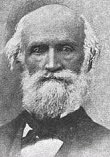






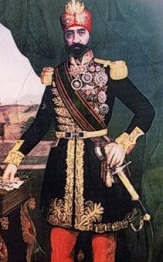










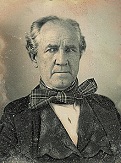
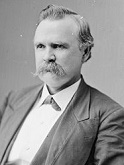

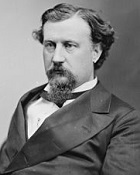





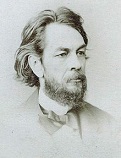


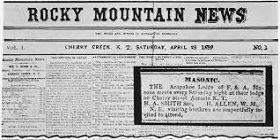











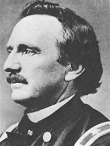
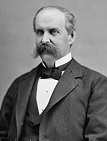
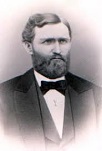
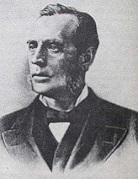









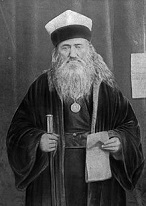


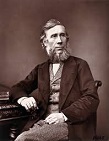

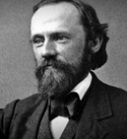


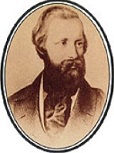
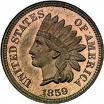

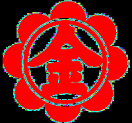

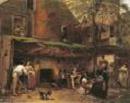

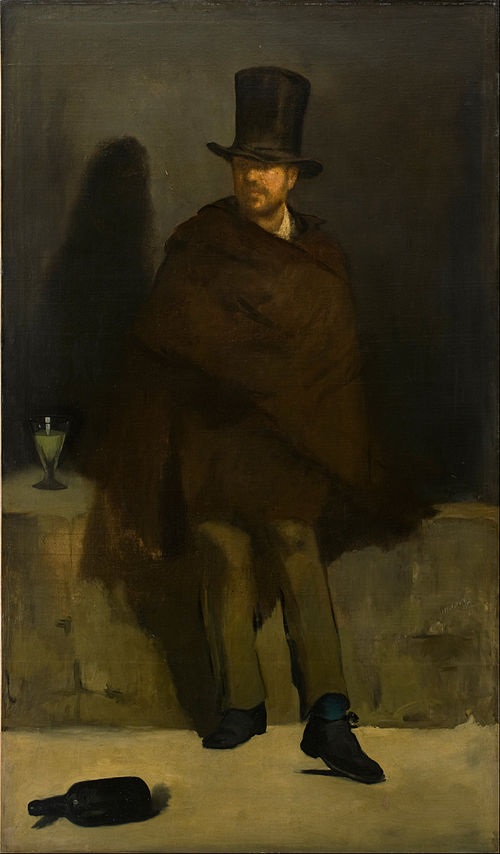
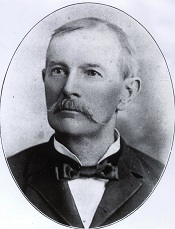
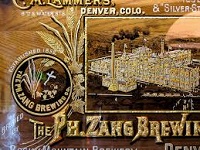

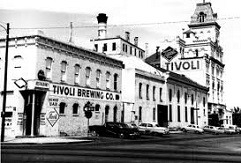
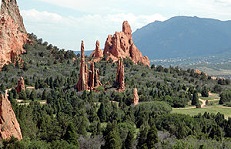
1859 On Jan. 15 gold is discovered in Gold Hill above Left Hand Canyon, and on Mar. 7 it becomes the first mining district and permanent mining camp in Colo., causing the Boulder City Town Co. to be organized on Feb. 10 by A.A. Brookfield and 56 shareholders, who plat the the town of Boulder, Colo. 25 mi. NW of Denver on the Front Range of the Rockies near the Flatirons into 4,044 lots at $1K each, becoming the only city in the U.S. to derive its water supply from a glacier, the Arapaho Glacier; in 1872 after the pop. dwindles, telluium is discovered in Gold Hill, causing the pop. to return to the 1K level. On Jan. 24 Wallachia votes to unite with Moldavia, with Moldavian-born Col. Alexander John Cuza (Alexandru Ioan Cuza) (1820-73) as prince (until Feb. 5, 1862); poet-journalist Dimitrie Bolintineanu (1819-72), who fled in 1849 after writing pro-rev. articles in his journal Poporul Suveran returns and is appointed minister of public instruction. On Feb. 11 the Atchison, Topeka and Santa Fe Railway (originally Atchison and Topeka Railroad until 1863) is chartered, with Col. Cyrus Kurtz Holliday (1826-1900) named as chmn. and pres. on Sept. 17, resigning as pres. in Dec. 1863 and remaining on the board until Mar. 29 , 1900; it reaches the Kan.-Colo. line in 1873, and Pueblo, Colo. in 1876; it never reaches Santa Fe, N.M., which ends up being served by a branch line from Lamy, N.M.; on Dec. 31, 1996 it merges with the Burlington Northern Railroad to form the Burlington Northern and Santa Fe Railway. On Feb. 14 (Valentine's Day) "Beaver State" Oregon (Ore.) is admitted as the 33rd U.S. state (free), bringing the total to 18 free and 15 slave states until the start of the U.S. Civil War in 1861. On Feb. 17 Northern and Southern leaders socialize together for the last time before the start of the U.S. Civil War at the Napier Ball in the Willard Hotel in Washington, D.C. to say goodbye to British ambassador Francis, Lord Napier. On Feb. 18 French troops occupy Saigon in an alleged attempt to end 30 years of persecution of Vietnamese Catholics. On Mar. 7 the U.S. Supreme (Taney) Court rules unanimously in Ableman v. Booth that state courts cannot interfere with federal laws or issue rulings on federal law contradicting decisions of the federal courts, and reaffirms the constitutionality of the U.S. Fugitive Slave Act, ruling that U.S. marshals may not be interfered with by state officials when doing their duty; the Wisc. legislature responds with states' rights resolutions harking back to the Va. and Ky. Resolutions of Jefferson and Madison of 1798 - states' rights aren't only for Southerners? In spring South Golden Rd. from Denver, Colo. W through the bed of modern-day Sloan Lake to Golden, Colo. is founded for gold prospectors headed to the Rockies; in 1861-3 Sloan Lake mysteriopusly appears on dry land owned by homesteader Thomas F. Sloan, causing South Golden Rd. to be moved to 15th St., which later becomes Colfax Ave. On Apr. 23 Ohio-born William Newton Byers (1831-1903), who arrived in Denver, Colo. from Omaha, Neb. (which he co-founded) with printing equipment from the defunct Bellevue Gazette pub. the first issue of the Rocky Mountain News (first newspaper in the territory) out of a room above Dick Wooten's Saloon on the banks of Cherry Creek; it comes out 20 min. ahead of the rival Cherry Creek Pioneer and is delivered by oxcart; in Aug. 1860 it goes from weekly to daily; in July 1870 it goes from an evening to a morning newspaper; in 1926 it is acquired by the E.W. Scripps Co., competing with the evening The Denver Post, and almost going bankrupt when new editor Jack Foster changes it from a broadsheet to tabloid format; Foster's wife Frances Foster founds Molly Mayfield, the first advice column in the U.S. in 2001 it merges with The Denver Post to form the Denver Newspaper Agency; on Jan. 23, 2007 it is redesigned into a smaller mag.-style format with more color; it pub. its last issue on Feb. 27, 2009. On Apr. 25 after receiving a concession from France in 1855, French diplomat and politician Count Ferdinand de Lesseps (1805-94) begins work on the Suez Canal (finished 1869), starting with the building of an artificial Mediterranean harbor at all-new Port Said, and a canal from the Nile to the Ismuth of Suez to provide fresh water for 20K fellaheen (peasant) laborers working for three piasters (6 cents) a day; the plan is to work from N to S, ending up at Lake Timsah, then the Great and Little Bitter Lakes, which are reconnected with the Red Sea and flooded with seawater. On May 6 Ga. prospector John H. Gregory (1820-64) discovers the first gold lode in Black Hawk, Colo. in the mountains W of Denver in Gilpin County N of Idaho Springs, becoming known as the Gregory Lode in Gregory Gulch; in the next 2 mo. more veins are discovered, causing 10K prospectors to flock in by next year, founding Mountain City, which later becomes Central City, Colo., "the richest square mile on Earth"; Chinese workers are hired to work the placer deposits in Gregory Gulch but forbidden to work in the hard rock mines, most returning to China; in 1863 an unsuccessful attempt is made to form a hard rock miners' union; by 1900 the town is down to 3,114 pop., and a few hundred by the 1950s; the nearby town of Black Hawk becomes known as "the City of Mills" after Montgomery, N.Y.-born future U.S. Sen. (R-Colo.) (1879-85) Nathaniel Peter Hill (1832-1900) builds the first successful ore smelter there in 1868, and the Colo. Central Railroad extends its line there in 1872; both towns are revived with the introduction of casino gambling in 1991, with dinky Black Hawk outgrowing dinky Central City because the 8.4-mi. parkway from I-70 (from Denver) to Central City passes through it, after which in 2004 a highway going straight to Central City is built, but fails to change gamblers' habits. On May 22 mean devil Ferdinand II (b. 1810) dies, and is succeeded by his eldest son Francis II (1836-94) as 5th and last Bourbon king of the Two Sicilies (until Mar. 20, 1861); meanwhile the emancipation of N Italy puts the handwriting on the wall for him. On June 4 the French and Sardinians defeat the unmodernized Austrians at the Battle of Magenta in Lombardy after using troop trains from France into N Italy (the first large-scale use of railways in military operations), opening the way to Milan; purplish-red magenta is discovered about the same time, and named after the town; on June 24 the Battle of Solferino (bloodiest battle since Waterloo in 1815) along the Chiese River near the town of Solferino in Mantua Province, Lombardy, N Italy near the border of Venetia s mi. S of Lake Garda sees 6K KIA and 30K wounded out of 300K in a single day as the French and Sardinians under French marshal Louis-Achille Baraguey d'Hilliers, 1st Comte Baraguey d'Hilliers (1795-1878) (son of Napoleonic field marshal Louis Baraguey d'Hilliers, who saw his daddy captured in 1812 then lost his left hand in Russia in 1813) drive the Austrians from large parts of N Italy (incl. Virgil's birthplace Mantua and Stradivarius-town Cremona in Lombardy), only to see the Austrians withdraw to four fortresses guarding the entrance to Venetia, while revolts in Modena, Parma and Tuscany send their leaders into exile, threatening to create a strong united Italy, which France doesn't want, causing Napoleon to sue Austria for peace, giving Venetia to Austria and Lombardy to Sardinia; after Britain announces their support, the opposition of France and the other continental powers to a united Italy is tabled, and on July 11 the Peace (Treaty) of Villafranca creates the Italian Federation under the honorary presidency of the pope; Sardinia signs a treaty of alliance with France and finally annexes all she desires (Lombardy), but the price of the aid furnished by Napoleon III is the cession of Nice and Savoy to France; meanwhile Cavour coaxes Parma, Modena and Tuscany (incl. Florence) to unite with Sardinia as a first step towards a unified Italy, while S Italians chafe under same-old-same-old Francis II, and Great Liberator Garibaldi waits in the wings?; Swiss businessman Jean Henri Dunant (1818-1910) sees the carnage at Solferino, where the French only have one physician for every 1K soldiers, spurring him to pub. "A Memory of Solferino" in 1862, leading to the creation of the Internat. Committee of the Red Cross on Feb. 17, 1863 and the 1864 Geneva Convention. On June 6 Queensland is separated from New South Wales, with Brisbane as the capital; in the 20th cent. the queen's decree to create Queensland is "lost". On June 11 a failed election causes the resignation of Benjamin Disraeli and British PM (since Feb. 20, 1858) Edward Smith Stanley, 14th Earl of Derby, and on June 12 after switching parties from Whig to Liberal, former British PM (1855-8) Henry John Temple, 3rd Viscount Palmerston (1784-1865) becomes British PM again, forming a new cabinet, which Gladstone joins as a Liberal, ending the separate org. of the Peelites, and giving it stability; it remains in power until Oct. 18, 1865, contenting the working classes while dropping all efforts at parliamentary reform. On June 12 a failed election causes the resignation of Lord Derby and Disraeli, causing Lord Palmerston (Liberal) On June 15 the U.S.-British Pig War begins when Am. farmer Lyman Cutlar shoots a pig owned by the Hudson's Bay Co., after which both countries send in troops to dispute possession of the San Juan Islands, with 500 U.S. troops under Capt. George E. Pickett (later of Pickett's Charge fame) and 400 British royal marines and three ships with 62 total guns, after which U.S. Lt. Gen. Winfield Scott is dispatched to negotiate a stand, which lasts for 12 years while an arbitration commission appointed by German kaiser Wilhelm I meets, finally ruling in favor of the U.S. and establishing the 49th parallel as the U.S.-Canadian border on Oct. 21, 1872, with the U.S. given the San Juan Islands and the boundary line going through Haro Strait. On June 16 the town of Golden, Colo. is founded along Clear Creek at the base of the Front Range of the Rocky Mountains 12 W of Denver, named after Ga.-born prospector Thomas L. "Tom" Golden, whose partner George Andrew Jackson of Mo. made a major strike on Chicago Creek near modern-day Idaho Springs on Jan. 7; it becomes the capital of the provisional Territory of Jefferson in 1860-1, and of the official Territory of Colo. in 1862-7, when it is moved to Denver; Ill.-born William Austin Hamilton Loveland (1826-94) builds Golden's first storefront, helping establish it as the territorial capital by offering his bldgs. to the legislate and senate, building the town's first brick storefront in 1863 for his Loveland Block, which becomes the oldest commercial brick bldg. in Colo. to survive to modern times; in 1864 after purchasing the right-of-way in the canyon W of Golden, he co-founds the Colo. Central Railroad (Colo., Clear Creek and Pacific Railway), connecting it to the transcontinental railroad in Wyo., which fails to stop the rival Denver Pacific Railway from completing a line from Denver to Cheyenne, Wyo., finishing its own line in 1877, after which in 1866 the town of Loveland, Colo. in Larimer County is founded along its route. On June 17 a "sundowner" (hot dry air from the Santa Ynez Mts.) rushes through Goleta, Calif., raising the temp to 133F, killing most plants and animals, becoming the highest temp recorded in the U.S. until 1913. On June 30 French acrobat-funambulist Charles Blondin (Jean Francois Gravelet) (1824-97) crosses Niagara Falls on a 1.1K-ft. 160 ft. high tightrope in front of up to 5K spectators, going on to repeat his performance this year and next, pushing a wheelbarrow while blindfolded, carrying his mgr. Harry Colcord on his back, and other cool stunts - shout when you hear the water? On July 4 Congress authorizes a new U.S. flag with 33 stars (design #15), which now incl. funky wet wooded Oregon. On July 8 Capt. N.C. Brooks of the Hawaiian bark Gambia discovers Midway Island 1,150 mi. WNW of Hawaii; he originally calls it Middlebrook Island; it is annexed by the U.S. on Aug. 28, 1967 and named Brooks Island. On July 8 Oscar I (b. 1799) dies, and his poet-painter son Charles XV (1826-72) becomes king of Sweden and Norway (until 1872), and 3rd of the Bernadotte monarchs, going on to reform the laws and govt., get a law passed giving unmarried women freedom, advocate pan-Scandinavianism, and become one of Sweden's most popular kings. On July 13 after taking his own advice and going west to Calif., stopping in Colo. to see the Pike's Peak Gold Rush, New-York Tribune ed. Horace Greeley (1811-72) stops in Salt Lake City, Utah for a 2-hour Interview with Brigham Young, which is printed in his paper in Q&A form on Aug. 20; Greeley: "What is the position of your church with respect to slavery?"; Young: "We consider it of divine institution, and not to be abolished until the curse pronounced on Ham shall have been removed from his descendants." On July 21 after large numbers of young Tuscans join the Franco-Piedmontese army and call for absorption of Tuscany into the kingdom of Italy, causing him to flee to Bologna on Apr. 27, Grand Duke Leopold II abdicates in favor of his son Ferdinand IV of Tuscany (1835-1908), who never reigns, but on Mar. 26, 1860 formally protests from safe Dresden. On Aug. 13 Colorado Springs, Colo. (originally Colorado City) on the Colo. Front Range at the confluence of Fountain and Camp Creeks is formally organized, serving as the capital of Colo. Territory from Nov. 5, 1861 to Aug. 14, 1862, when the capital is moved 70 mi. N to Denver; in Aug. surveyors M.S. Beach and Rufus Cable discover Garden of the Gods rock formation near Colorado Springs, with Beach suggesting that it would make a great place for a beer garden, and Cable replying "Beer garden! Why, it is a fit place for the gods to assemble"; it becomes a U.S. nat. park in 1909, and is designated a nat. natural landmark in 1971. On Aug. 25 Muslim rebel leader imam Shamil (1797-1871) is hosted with his family by Russian tsar Alexander II in St. Petersburg, then exiled in Kaluga (near Moscow), moving in Dec. 1868 to Kiev, where he is housed in a mansion until he is allowed to make a hajj to Mecca in 1869, and dies in Medina on Feb. 4, 1871 after visiting Sultan Abdulaziz in Istanbul. On Aug. 27-30 after financial backers pull the plug on their Penn. Rock Oil Co., persistent Greenville, N.Y.-born "Colonel" Edwin Laurentine Drake (1819-80) and Hanover, N.H.-born "Father of the American Oil Industry" George Henry Bissell (1821-84) (inventor of the idea of drilling for oil) strike oil in a 65-ft. well in Titusville, Penn. (eight barrels), starting the "golden flood of petroleum", the U.S. petroleum boom; after this paraffin oil begins to replace the use of sperm whale oil; despite the success of others, Old Man Drake dies broke, living on a $1.5K pension voted him by the state of Penn. in 1872, calling him a "crazy man". On Sept. 1-2 the Solar (Super) Storm of 1859 (Carrington Event) sees a solar storm induce a geomagnetic solar storm in the Earth's magnetsphere, creating auroras that can be seen from Cuba to Hawaii, so bright that people in the NE U.S. can read their newspapers by its light, and creating an EMP that interferes with telegraphs, but doesn't shut them down; it is all recorded by London, England-born amateur astronomer Richard Christopher Carrington (1826-75), proving the existence of solar flares; in 1863 his observations of sunspots reveal the differential rotation of the Sun. On Sept. 7 the new 316-ft. Victorian Gothic Big Ben (Great) Clock Tower at the N end of Westminster Palace in London becomes operational, with four clock faces each 180 ft. above ground, becoming the world's largest 4-faced chiming clock; the tower leans 8.66" to the NW; the hour hand is 9-ft. long and the minute hand 14-ft.; the clock tower and dials are designed by Augustus Welby Northmore Pugin (1812-52); the 21-ft.-diam. iron framework has 576 pieces of opal glass; at the base of each clock face is the gilded Latin inscription "DOMINE SALVAM FAC REGINAM NOSTRAM VICTORIAM PRIMAM" (O Lord, keep safe our Queen Victoria the First); it runs eight days between winds; each penny added or subtracted to its pendulum changes it by 0.4 sec per year; the clock becomes known for accuracy and reliability, running accurately until New Year's Eve, 1962, when heavy snow causes it to chime the New Year 10 min. late; its first major breakdown happens in 1976 (until ?); in 2012 it is renamed Elizabeth Tower in honor of Elizabeth II's Diamond Jubilee. On Sept. 13 the Terry-Broderick Duel in San Francisco, Calif. ("the last notable American duel") sees Ky.-born pro-slavery Dem. Calif. Judge David Smith Terry (1823-89) shoot anti-slavery Calif. Dem. Sen. David Colbreth Broderick (b. 1820), who dies on Sept. 16, helping to swing popular opinion towards the Union, and causing Calif. gold to go to their side during the U.S. Civil War. On Sept. 23 Muhammad III as Sadiq (1813-82), son of Husayn Bey becomes the last independent ruler of Tunisia (until Oct. 28, 1881), a weak ruler under the sway of the Mamluks who ends up giving away the store to pay for his corruption and extravagance while becoming hated by his subjects. On Sept. 30 Abraham Lincoln gives a speech at the Wisc. State Fair, which contains the old Persian proverb "This too shall pass". In the fall Clotilde, the last slave ship to enter the U.S. arrives in Mobile Bay, Ala., and is burned to avoid federal authorities; 24-y.-o. lucky-unlucky passenger Cudjo Lewis (1835-1935) becomes the last full-blooded black African slave to come to the U.S. Happy Halloween, Crackers? A Bible fanatic waves a magic wand at what he would like to change, and poof! becomes the spark himself? On Oct. 16 (Sun.) (night) abolitionist Moses wannabe (not Madonna?) John Brown (b. 1800) leads 22 young (all under the age of 30, three under the age of 21) (five colored) on a raid of the federal arsenal at Harpers Ferry, (West) Va. at the confluence of the Shenandoah and Potomac Rivers, in a crazy plot to capture arms and give them to imaginary slaves that will flock to them and begin the big insurrection; they first take the rifle factory, then capture Col. Washington (George Washington's great-grand-nephew), along with a sword given to the latter by Frederick II the Great, freeing and arming Washington's docile slaves; next they take the Maryland Bridge, guarded by Patrick Higgins, who fires an alarm shot; they then screw up and kill baggage master and free negro Shepherd Heyward when he refuses to halt (it was too dark to tell his color); then they take the arsenal itself, but soon the Jefferson Guard (the Charlestown militia) cut off their retreat and kill many of them; Brown sends emissaries to offer a truce, but they are captured and killed and mutilated; the next morning Col. Robert E. Lee and J.E.B. Stuart lead U.S. Marines to surround the arsenal, where only five raiders remain alive in the brick engine house; after Stuart parleys with Brown, who refuses unconditional surrender, he leaves and waves his hat, and a 15-min. assault results in two Marines dead and Brown captured; Culpeper County, Va.-born "huge mulatto" Dangerfield F. Newby (b. 1820) is KIA, and his body mutilated by a white crowd and later dined on by hogs, causing Hog Alley to be named; Brown is tried on Oct. 31 on three counts, conspiracy with negroes, treason against the Commonwealth of Va. (third person in the U.S. charged with treason after Benedict Arnold and Thomas Dorr) and murder, then hanged in Charlestown on Dec. 2 despite an Oct. 30 essay by Henry David Thoreau titled A Plea for Captain John Brown, his last prophetic words predicting the U.S. Civil War less than two years later written from his cell being "I John Brown am now quite certain that the crimes of this guilty land will never be purged away but with Blood. I had as now think vainly flattered myself that without very much bloodshed it might be done"; his son Owen and six others escape, but those captured with him suffer his fate; the Am. South overracts, alarmed at the specter of armed black insurrections aided by Northern whites under every tree; new U.S. rep. (R-Ohio) (1859-69) James Mitchell Ashley (1824-96) accompanies John Brown's widow to the execution; white-haired 65-y.-o. Va. planter and War of 1812 vet Edmund Ruffin (1794-1865) is parading with the teenage cadets at the Va. Military Inst. when Brown is hanged, later firing the first shot on Ft. Sumter; volunteer John Wilkes Booth is also present at the hanging in the uniform of a Va. regiment; Emerson calls his Messianic hanging "as glorious as the cross", knowing that now God is behind a bloody end to the horrible crime of racial slavery; the Doughfaces (Northerners with Southern sympathies) begin to split, torn between the desire to support popular sovereignty to protect against federal power and the desire to call on the federal govt. to protect slavery in the territories until it prepares a constitution and applies for statehood. On Oct. 23 the Argentine Confederation under Justo Jose Urquiza defeats Buenos Aires under gen. Bartolome (Bartolomé) Mitre Martinez (1821-1906) at the Battle of Cepeda, forcing it to join. On Oct. 29 after moving from Omaha, Neb. to Central City to prospect for gold, Chillicothe, Ohio-born Dem. Neb. Rep. (since 1857) Robert Williamson Steele (1820-1901) is nominated as provisional gov. of the proposed Territory of Jefferson, opening the first session of the provisional territorial legislature on Nov. 7, getting into a pissing contest with officials of Kansas Territory, who refuse to recognize it; on Nov. 6, 1860 Repub. candidate Abraham Lincoln wins the U.S. pres. election, making Steele a pariah; on Jan. 26, 1861 the Territory of Colo. is proclaimed by the U.S. Congress, and signed into law on Jan. 28 by Pres. Buchanan, and on June 6 Steele issues a proclamation disbanding the Territory of Jefferson and calling for loyalty to the U.S. In Nov. Champion, N.Y.-born George Eliphaz Spencer (1836-93) founds the town of Breckenridge, Colo. just W of the Continental Divide in Summit County (modern-day pop. 4.5K), named after U.S. vice pres. #14 John C. Breckinridge of Ky. in hopes of flattering the federal govt. into putting a post office there, which becomes the first between the Continental Divide and Salt Lake City, Utah; too bad, Breckinridge sides with the Confeds., causing the citizens to change the name; Spencer joins the Union Army on Oct. 16, 1862, rising to brig. gen. then becoming a Repub. U.S. Sen. in Ala. in 1868-79; skis (from the Nordic word for sticks) are first used in the state when 10 men in a snowbound mining camp along the Blue River near Breckenridge build their own skis to travel down the valley, where they begin the town of Eldorado West; Breckenridge Ski Resort opens on Dec. 16, 1961. In Nov. Polish immigrant Frederick Z. Salomon (1830-), trader Joseph Doyle, dry goods merchant John Good (1835-1918), and Charles Tascher found Rocky Mountain Brewery in Auraria (near Denver), Colo., becoming the first brewery in Colo.; in 1871 it is acquired by Bavaria, Germany-born brewmaster Philip Zang (1826-99), who renames it Zang's Brewery (Philip Zang Brewing Co.), reaching 65K barrels/year and becoming one of 33 Denver millionaires in 1889, then retiring in favor of his son Adolph J. Zang (1856-1916); in 1882 Good opens the Tivoli Brewing Co. in Auraria, becoming the oldest brewery in Colo. and 2nd oldest in the U.S. (after Yuengling Brewery in Penn.) after Prohibition before closing in Apr. 1969, reopening in Aug. 2015 after the area turns into Auraria Campus. On Dec. 10 Ateneo de Manila U. in the Philippines is founded by the Jesuits, and opened to all ethnic groups, breeding an intellectual elite known as the ilustrados who go on to promote Philippine nationalism. On Dec. 21 after he opposes secessions, saying that the day of secession "will be written... in the blood of humanity", causing the Tex. legislature to make plans to dump him as U.S. sen., and he resigns on Mar. 4 and runs for gov. again, Rockbridge County, Va.-born Tenn. gov. #6 (1827-9) and U.S. Unionist Tex. sen. (since Feb. 21, 1846) Sam Houston (1793-1863) becomes Tex. gov. #7 (until Mar. 16, 1861), becoming the only foreign head of state to become a U.S. state gov., and first to be elected gov. of two U.S. states; a secessionist pleads publicly for a "Texan Brutus" to assassinate him; Houston's friend John Hemphill (1803-62), Tex. Supreme Court chief justice in 1841-58 is elected to replace him, ending up as one of the first 14 U.S. senators expelled by Congress in 1861 for seceding. Guayaquil-born European-educated politician Gabriel Garcia Moreno (1821-75) overthrows the govt. of Francisco Robles in Ecuador and seizes power after deciding that the Roman Catholic religion is the answer to class and race conflict, going on to be officially elected pres. in 1861, then rule as a dictator behind two puppet presidents until 1869, and finally rule openly until death, while centralizing the govt., reducing corruption, strengthening the economy, and giving policy planning over to the Roman Catholic clergy - all my friends say I partied too much until you walked in? Russian troops conquer the Muslim mountain tribes of Chechnya. and capture NE Caucasus Chechen chieftain Imam Shamil (Shamyl) (1797-1871), causing many Chechens to flee to Armenia. Lt. gen. (later field marshal) Count Albrecht Theodor Emil von Roon (1803-79) is appointed war minister of Prussia (until 1872), followed by minister of marine in 1861, going on to reform the Prussian army; Bismarck becomes Prussian ambassador to Russia at St. Petersburg; on Aug. 14 the Nat. Liberals found the German Nat. Assoc. (until 1867) to unite Germany under Prussia under the "small German" banner. After Chilean dictator Manuel Montt defeats the rebels, led by Gen. Cruz, he stops the revolt by withdrawing hated minister Antonio Varas as his proposed successor in favor of more moderate Jose Joaquin Perez Mascayano (1801-89). Todd County, Ky.-born anti-Prohibitionist Roger Quarles Mills (1832-1911) (known for his tall big-chested physique and debating skills) becomes a Dem. member of the Tex. House of Reps, going on to become a Confed. officer in the U.S. Civil War, a U.S. rep. in 1873, and a U.S. sen. in 1892-9, rising to chmn. of the House Ways and Means Committee, backing free trade, sponsoring the Mill Tariff Bill of 1888, which passes the House, but is amended and killed by the Repub.-controlled Senate, becoming the main issue in the 1888 U.S. pres. campaign, allowing Repub. Benjamin Harrison to win the electoral vote based on the swing states of N.Y. and Ind. despite losing the popular vote; in 1893 Mills backs Pres. Cleveland in repealing the Sherman Silver-Purchase Act, turning Dems. against him, and he loses reelection in 1898. The Jews of Frankfurt, Germany build a new synagogue (finished 1860), which becomes the center of Reform Judaism until the Nazis destroy it on Kristallnacht on Nov. 9-10, 1938. The town of Georgetown on Clear Creek 45 mi. W of Denver is founded on small gold strikes, followed by major silver strikes, incl. the Pelican Mine (in Silver Plume) in 1868 and the Dives Mine in 1869. Blue-eyed Christian teetotaler John Wesley Iliff Sr. (1831-78) comes to Denver, Colo. from Ohio Wesleyan U. in Delaware, Ohio, opening a gen. store on Blake St. and trading supplies for livestock from new immigrants, then fattening them on the open range and using the profits to buy land in NE Colo., creating the largest ranch in Colo. history, raising as many as 35K head a year to sell to Union Pacific construction crews, becoming a millionaire known as "the Cattle King of the Plains" and leaving his fortune to found Iliff School of Theology in 1892, basis of the U. of Denver; on June 20, 1859 Polish-born Freemason Fred Z. Salomon (1830-) becomes the first Jewish merchant in Denver - get out of Denver, baby, go? Julesburg, Colo. AKA Overland City (originally Lodgepole Creek) on the South Platte River in NE Colo. (modern-day pop. 1.2K) is founded as a Pony Express station and trading post by Jules Beni (-1861), an outlaw who likes to rob stagecoaches, causing the town to become known as "the wickedest city on the plains"; after Beni is suspected by authorities, he is replaced by Carlyle, Ill.-born gunman Joseph Alfred "Jack" Slade (1831-64), who gets in a gunfight with him, is shot several times and survives, then ambushes Beni, ties him to a fence post, shoots off his fingers, puts the gun in his mouth and pulls the trigger, then cuts off his ears, keeping them as souvenirs, going on to kill 26 people; on July 31, 1861 writer Mark Twain and his brother Orion stop in Julesburg for an hour, with Twain calling it "the strangest, strangest, quaintest, funniest frontier town that our untraveled eyes had ever stared at and been astonished with." David Livingstone discovers Lake Nyasa (Malawi) in SE Africa, then explores the Ruvuma River and discovers Lake Chilwa, discovering how Arab and Portuguese slave traders had hurt the natives. The Raynolds Expedition (ends 1860), led by U.S. Army topographical engineer Capt. William Franklin Raynolds (1820-94) explores and maps territory between Fort Pierre, S.D. and the headwaters of the Yellowstone River. Vladivostok (Russ. "rule of the East") (modern pop. 500K) is founded by Count Nikolay Nikolayevich Muravyov-Amursky (1809-81) on the Golden Horn Bay on the Pacific Ocean on land belonging to China. Gold is discovered in California Gulch near the headwaters of the Arkansas River at 10,152 ft. alt. in the Rocky Mts. of Colo., causing the town of Oro (sp. "gold") City to spring up, reaching 5K pop. next year; too bad, the gold runs out and the town is abandoned, but in 1874 silver is discovered there, causing people to return, founding the city of Leadville, Colo. (modern-day pop. 2.6K), which is incorporated on Feb. 18, 1878, becoming the highest incorporated city in the U.S., with a pop. in 1980 of 15K-50K working 30 mines and 30 smelters, producing $136M of silver in 1879-88, peaking at $11.5M in 1881, competing with Roaring Fork Valley in Aspen; in 1883 Irish wit Oscar Wilde gives a lecture at the Tabor Opera House, describing Leadville in his 1906 book "Impressions of America" as "the richest city in the world... [with] the reputation of being the roughest, and every man carries a revolver", describing a sign in a Leadville saloon that read "Please do not shoot the pianist. He is doing his best"; in 1891 gold is discovered in Leadville, and after the silver boom ends in 1893, a new boom in gold, lead, zinc, and copper begins in 1901, eventually producing 2.9M oz. of gold, 240M oz. of silver, 1M tons of lead, 785K tons of zinc, and 53K tons of copper. The Keetoowah (Kituwa) Society (named after the lost Cherokee mother town of Kituhwa in N.C.) is formed in Okla. by transplanted Cherokees to preserve their cultural traditions - how did Wayne Churchill get in? The gold vs. silver wars start just before the U.S. Civil War? The Comstock Silver Lode is discovered in Six-Mile Canyon (Eagle Valley) on the E slope of Mt. Davidson in the Va. Range in W Nevada; to the W the city of Virginia City (named after a miner nicknamed Virginia?) is founded near Reno (modern-day pop. 800); San Francisco robber baron William Sharon (1821-85) (Repub. U.S. Sen. from Nev.) and his Bank Ring gain control of the Comstock, becoming known as "King of the Comstock". South Dakota (S.D.) is settled with the founding of Vermillion, Clay County, S.D.. The ugly but useful butthole of the Colo. Front Range? Commerce City, Colo. in Kansas Territory starts out as a trading post-hotel-ranch on Henderson Island in the South Plate River S of Denver, founded by Kan. Territory pro-slavery politician, Leavenworth Journal ed., and Bleeding Kansas col. John D. "Colonel Jack" Henderson, becoming the first permanent settlement in the South Plate River Valley between Fort St. Vrain in Neb. Territory and Cherry Creek in Kan. Territory; on Jan. 29, 1861 the E side of Kansas Territory becomes the state of Kansas, and on Feb. 28 the W side becomes part of Colo. Territory, which on Nov. 1 creates Arapahoe County, which stretches from modern-day Sheridan Blvd. 160 mi. E to the Kansas border, and from modern-day County Line Rd. 30 mi. N to Parallel 40 deg. North (168th Ave.), wich Denver as the county seat until 1902; in 1876 after Colo. becomes a state on Aug. 1, Riverside Cemetery (the metro Denver area's oldest cemetery) is founded in Commerce City, followed in 1892 by Rose Hill Cemetery, founded by the United Hebrew Cemetery Assoc.; the town of Derby is founded in 1889 along with Irondale, followed by Adams City in 1903; on Apr. 15, 1901 the Colo. legislature splits Arapahoe County into Adams County, a new consolidated City and County of Denver, and South Arapahoe County, which is renamed Arapahoe County on Apr. 11, 1903, with Littleton as the county seat; on Nov. 8, 1904 Brighton, Colo. (incorporated on Sept. 1887 and named for Brighton Beach, N.Y.) becomes the county seat of Adams County; in Dec. 1942 Rocky Mountain Arsenal is founded to the E of Commerce City (closed in 1992); on July 27, 1949 after Amendment 2 legalizing pari-mutuel betting on horses and greyhounds is approved in 1948, Mile High Kennel Club is founded in Commerce City for greyhound racing; on Dec. 18, 1952 Commerce City is incorporated as Commerce Town, changed in 1962 to Commerce City; in 1989 53 sq. mi. of Adams County is transferred to the City and County of Denver for the new Denver Internat. Airport (DIA); on Nov. 15, 2001 the NW corner is transferred to the City and County of Broomfield. The Valtellina passes to Italy. Nicaragua passes a law providing for alienation of Indian communal lands to coffee planters - the Grinch stole Christmas? The seaside resort town of Eastbourne on the S coast of England right E of Beachy Head (highest chalk sea cliff in Britain) and 19 mi. E of Brighton (modern-day pop. 103K) is created from four separate hamlets under the direction of the Duke of Devonshire, becoming known for its string of large beachfront Victorian hotels, its pier, a Napoleonic fort, and military museum. The city of Kuala Lumpur ("muddy confluence") in Malaysia (modern-day pop. 1.7M/7.2M) is founded as a tin-mining settlement, going on to become Malaysia's cultural, financial, and economic center, home of the Maylasian king, and home of the Malaysian Parliament. The city of Logan, Utah on the Logan River on the W slopes of the Bear River Mts. and the E edge of Cache Valley in N Utah 47 mi. N of modern-day Ogden and 82 mi. N of Salt Lake City (modern-day pop. 48K) is founded by Mormon settlers sent by Brigham Young to build a new fort, named for fur trapper Ephraim Logan; it is incorporated on Jan. 17, 1866; on Aug. 6, 1877 Brigham Young College is founded there (until 1926), followed on Mar. 8, 1888 by Utah State U. (of Agriculture and Applied Science) (originally Agricultural College of Utah until 1957). A gold discovery leads to the founding of Bodie, Calif.; by the 1880s it grows to 10K residents but later becomes a ghost town; it has 65 saloons. U.S. brig. gen. Edward Fitzgerald "Ned" Beale (1822-93), his crew, and 25 camels imported from Tunis remove 50 ft. of earth from the top of Fremont Pass N of Los Angeles, Calif. to create Beale's Cut, a toll road for stagecoaches, which later becomes a favorite spot to shoot Westerns; later in the decade he runs a unit near Flagstaff mounted on camels. The U.S. Mint begins issuing the Indian Head Penny (until 1909); copper-nickel "white" coins to 1864, and bronze afterwards. The Corcoran Gallery of Art in Washington, D.C. is founded. Poor peasant farmer Kawate Bunjiro (1814-83) founds the syncretic pantheistic Japanese Shinto splinter religion of Konkokyo (Konko), worshipping the neuterless god Tenchi Kane No Kami (Golden Kami of Heaven and Earth) by making the world a happier place, reading 450K members by modern times. New York atty. Chester A. Arthur marries Ellen Lewis "Nell" Herndon (1837-80); they have 2 sons and 1 daughter. Westminster, London, England-born evangelist John Nelson Darby (1800-82) (co-founder of the Plymouth Brethren and founder of the Exclusive Brethren) tours the U.S., spreading his Dispensationalist Doctrine, which claims that Jehovah deliberately divided time into periods or ages, each of which is administered in a different way, also Pre-Tribulation Rapture Theology and the Scofield Reference Bible. Scottish top golfer Allan Robertson (b. 1815), first golfer to score below 80 on the Old Course in St. Andrews dies of jaundice, causing the Royal and Ancient Golf Club of Scotland to raise funds for his widow - erin go bragh? French Socialist Jean Baptiste Andre Godin (1817-88) founds a Fourierist phalanx in Guise, France, becoming the first (only?) successful attempt. Adelina Patti makes her New York debut in Donizetti's "Lucia di Lammermoor". Charles Dickens begin editing the weekly mag. All the Year Round (pub. until 1893). John Morley, 1st Viscount Morley of Blackburn (1838-1923) becomes ed. of the weekly Literary Gazette in London (until 1867). After finding that many of his female patients were experiencing problems caused by having abortions, Boston, Mass.-born physician Horatio Robinson Storer (1830-1922) presents a report to the Am. Medical Assoc. (AMA) meeting in Louisville, Ky., persuading them to form a Committee on Criminal Abortion, after which the AMA begins lobbying states to strengthen laws against abortions, convincing most of them to do it by 1880; in 1869 Storer founds the Gynaecological Society of Boston, the first medical org. devotely solely to gynecology. Australian rancher Thomas Austin releases 24 rabbits with the soundbyte: "The introduction of a few rabbits could do little harm and might provide a touch of home, in addition to a spot of hunting; too bad, within 35 years rabbits overrun the whole continent, causing 2,023 mi. (3,256km) of rabbit fences to be erected in Australia. A man finds a 5-carat diamond near the Vaal River in South Africa, and sells it to a priest from the Berlin Mission Society for £5. The city of Casper, Wyo. in EC Wyo. at the foot of Casper Mountain and the N end of the Laramie Mountain Range (modern-day pop. 59K) starts out as a ferry on the Emigrant Trail built in 1847 during the first Mormon wagon train to Utah by Brigham Young, growing into several ferries over the North Platte River for settlers along the Oregon, Calif., and Mormon trails, followed by a bridge and trading post built this year by Louis Guinard, after which Ft. Caspar (originally Platte Bridge Station) is founded under the command of Lt. Col. William O. Collins, and named after his son 2nd. Lt. Caspar Collins, who is KIA by Indians in July 1865; in 1857 the troops abandon the fort in favor of Ft. Fetterman downstream on the North Platte River on the Bozeman Trail, allowing developers to found a town as a stopping point for the Wyo. Central Railway; a typo causes the name change during registration; after development of the Salt Creek Oil Field, Caspar becomes known as "Oil City"; residents later incl. Dick, Lynne, and Liz Cheney. Mass. Inst. of Technology (MIT) is founded, becoming one of the first institutions to require science students to duplicate famous lab experiments; it is coed from the beginning. French lexicographer Pierre Athanase Larousse (1817-75) founds the journal L'Ecole Normale. The Am. Dental Assoc. (ADA) is founded in Niagara, N.Y., going on to move to Chicago, Ill. and become the largest and oldest nat. dental assoc. in the U.S. to survive to modern times. The Origin of Species year is also a big year for Bible believers? Ukrainian-born Karaite scholar Abraham Firkovich (1786-1874) sells a vast collection of 2,412 items culled from the Crimean cliff dwellings of Chufut-Kale, where old Bible scrolls are never destroyed but stored in genizahs (hiding places), incl. 975 mss. and scrolls, 45 of them Bible mss. dating before the 10th cent. C.E., and especially the 916 C.E. Petersburg Codex of the Latter Prophets and the 1008 C.E. Leningrad Codex (basis for most modern critical eds. of the Hebrew Bible) to Russian tsar Alexander II for 125K rubles, and he houses them in the Imperal Library in St. Petersburg. After proposing to the Societe de Biologie that physical differences between human races could be explained by different species having different origins, with the fact that they can interbreed and produce fertile offspring not proving they are of the same species but rather hybrids, after which Pierre Rayer, pres. of the society proposes that he drop further discussion of the topic because Charles Darwin's work is about to come out, French anthropologist-anatomist Pierre Paul Broca (1824-80) founds the Societe d'Anthropologie ( Société d’Anthropologie ) de Paris to supersede the Paris Ethnological Society (founded 1839) and take over its debates on the "appropriate relations between the black and white races". to supersede the Paris Ethnological Society (founded 1839) and take over its debates on the "appropriate relations between the black and white races". The first chain store, the A&P (Great Atlantic and Pacific Tea Co.) is founded in New York City by George Huntington, Hartford Gilman, and George Gilman. English tobacconist Philip Morris (1835-73) begins making custom hand-made cigarettes on Old Bond Street in London, producing Philip Morris Cambridge and Philip Morris Oxford Blues in 1870; in 1902 Philip Morris Inc. Ltd. is founded in New York City. Sports: Baseball becomes popular in New York and Boston, and the Nat. Baseball Club of Washington, D.C. is founded; the first recorded game is played in San Francisco; umpires no longer sit in a padded rocking chair behind the catcher. Architecture: Construction of the Houses of Parliament in London is completed. The Royal Albert (Brunel) (Saltash) Bridge at Saltash, Cornwall over the Tamar River, designed by Isambard Kingdom Brunel is opened on May 2 by Prince Albert; Brunel is so ill from overwork that he has to be carried over it on a platform truck. The Gothic Roman Catholic St. Mary's Cathedral in Aberdeen, Scotland is built. The Victoria Bridge for railway traffic is constructed in Montreal by Irish workers, who also build the Irish Stone, a memorial to 600 Irish who died of "ship's fever" (starvation and disease) in 1847-8 and were found buried in mass graves there. Inventions: On Jan. 4 Augustus C. Carey of Lynn, Mass. receives U.S. Patent #22,488 for a "fan carpet sweeper" that uses a fan held close to the carpet in place of the usual revolving brush to save on carpet wear, blowing dust into a container. On Feb. 16 a French commission of scientists and musicians ditches Scheibler's Pitch of 1834 (440 Hz) (AKA Concert Pitch) for the French Pitch (diapason normal) of 435 Hz, which is adopted by the Vienna Congress in 1887 and called the Internat. Pitch; for theoretical calculations 512 Hz (two to the 9th power) continues to be used. On Nov. 1 the Baudelot Refrigerator is patented in the U.S. (#25992) by Jean Louis Baudelot of Harancourt, France, using circulating ice water to cool wort for brewing of lager beer. After 10 years of trial-and-error, widowed (since 1848) Martha J. Coston (1829-1904) of Baltimore, Md. improves on her dead hubby's flawed designs and patents the Pyrotechnic Night Signal System (U.S. Patent #23,536), the first workable red-white-blue naval flares on Apr. 5, which the U.S. Navy buys and uses in the U.S. Civil War. French artillery officer Victor Mayer Amedee (Amédée) Mannheim (1831-1906) invents the first modern Slide Rule with a cursor - the nerdmaker? English chemist R.L.G. Plante (Planté) (1834-89) invents the first practical Lead-Acid Storage Battery. The Steamroller is invented to go with the power jaw stone crusher invented last year - by Mannheim? Science: Alexandre Edmond Becquerel (1820-91) improves upon George Stokes' 1852 experiments with fluorescent tubes. Heidelberg U. profs. Robert Wilhelm Eberhard Bunsen (1811-99) (1855 inventor of the Bunsen Burner) and Gustav Robert Kirchhoff (1824-87) team up and begin experimenting with spectrum analysis after Kirchhoff's Three Laws of Spectroscopy is announced, that if a body absorbs light of a certain wavelength, it emits the same wavelength (thus the dark Fraunhaufer lines in the solar spectrum are caused by elements in the Sun absorbing various wavelengths, and if one can find elements on Earth that give bright emission lines at these same wavelengths, the composition of the Sun can be deduced without having to visit it and vaporize first). German mathematician Georg Friedrich Bernhard Riemann (1826-66) makes his famous mathematical conjecture known as the Riemann Hypothesis at the Berlin Academy of Science in Aug., which is tied with the nature of prime numbers and makes John Nash and a zillion other math geeks spin their wheels all their lives trying to get a $1M prize: "All nontrivial zeroes of the Riemann Zeta Function have real parts equal to 1/2." German physician Albert Niemann (1834-61) of the U. of Gottingen improves the coca purification process and names the alkaloid cocaine, the active agent in the leaves of the coca plant, first isolated in 1855; its molecular formula C17H21NO4 is pub. in 1863 by colleague Wilhelm C. Lossen (1838-1906). Irish physicist John Tyndall (1820-93) discovers that gases incl. water vapor, CO2, and coal gas (methane) can absorb infrared radiation, and suggests that they could be used to bring climate change, AKA the Greenhouse Effect, going further in a lecture on Feb. 7, 1861, claiming that changes in CO2 and H20 in the atmosphere explain all climate changes so far identified by geological research; too bad, in 1856 Am. scientist Eunice Foote already pub. it; Tyndall really measured opacity not absorption? Nonfiction: Elizabeth Carey Agassiz (1822-1907), A First Lesson in Natural History. Pedro Alarcon, Diary of a Witness of the War in Africa. Vissarion Belinski (1810-48), Collected Works (12 vols.) (1859-62) (posth.). George Boole (1815-64), Treatise on Differential Equations. Paul Broca (1824-80), On the Phenomenon of Hybridity in the Genus Homo; divideshumans into the independent racial groups Australian, Caucasian (white), Mongolian, Malayan, Ethopian (black), and American, each regarded as its own species and connected to a geographic location, taking that as disproving the monogenetic argument of common ancestry for all Homo sapiens, with physical characters not being changed by new environments, pointing to the modern Jews as having the same appearance as those portrayed in Egyptian paintings from 2,500 B.C.E., with the soundbyte: "There was even, no necessity to insist upon the difficulty, or greater geographical impossibility of the dispersion of so many races proceeding from a common origin, nor to remark that before the remote and the almost recent migrations of Europeans, each natural group of human races occupied upon our planet a region characterized by a special fauna; that no American animal was found either in Australia nor in the ancient continent, and where men of a new type were discovered, there were only found animals belonging to species, then to general, and sometimes to zoological orders, without analogues in other regions of the globe"; he adds that Darwin's monogenism attitude justifies the extinction of native pop. by colonization, with the soundbyte: "The difference of origin by no means implicates the subordination of races. It, on the contrary, implicates the idea that each race of men has originated in a determined region, as it were, as the crown of the fauna of that region; and if it were permitted to guess at the intention of nature, we might be led to suppose that she has assigned a distinct inheritance to each race, because, despite of all that has been said of the cosmopolitism of man, the inviolability of the domain of certain races is determined by their climate"; in 1866 he finally accepts monogenism. but refuses to accept evolution as the entire explanation of the origins of different species, claiming that there has to be a parallel process in operation. George Sewall Boutwell (1818-1905, Educational Topics and Institutions. Pierre Briquet (1796-1881), Traite Clinique et Therapeutique de L'Hysterie; observations of 430 hysterical patients over a 10-year period; turns French neurologist Jean Martin Charcot (1825-93) onto the subject, causing him to examine patients at the Saltpetriere Hospital in Paris in the 1870s-1880s. Sir John Charles Bucknill (1817-97), Psychology of Shakespeare. Moncure D. Conway (1832-1907), The Natural History of the Devil. The Book That Shook the World? Big year for Bible skeptics, secularists, atheistic scientists, anybody against the ancien regime, as Jehovah, the Source of Life Breathed Into Mud is challenged by Godless Evolution, Mud Coming to Life by Itself After It Bubbles Long Enough? The biggest V for the Devil since Eden? The new 95 Theses, but Darwin is smart enough not to publish it on Halloween? Charles Darwin (1809-82), On the Origin of Species By Means of Natural Selection, Or, The Preservation of Favoured Races in the Struggle for Life (Nov. 24) (Thur.); the 1st ed. sells out in 1 day; the 1872 6th ed. shortens the title to "The Origin of Species"; the decider, which causes evolutionary "survival of the fittest" theory to triumph among the intelligentsia; English Anglican minister and Cambridge U. prof. of modern history Charles Kingsley (1819-75), who received an advance copy on Nov. 18 writes that he had "long since, from watching the crossing of domesticated animals and plants, learnt to disbelieve the dogma of the permanence of the species", which Darwin adds to the next ed. of his book in a modified form: "He had gradually learned to see that it is just as noble a conception of the Deity to believe that He created a few original forms capable of self-development into other and needful forms, as to believe that He required a fresh act of creation to supply the voids caused by the action of His laws"; Darwin pub. it after spending eight years dissecting barnacles in his basement, then inexplicably switching to the Galapagos finch?; catches on first in Germany among atheists?; "If it could be demonstrated that any complex organ existed, which could not possibly have been formed by numerous, successive, slight modifications, my theory would absolutely break down"; Louis Agassiz of the U.S. opposes Darwin, preferring a theory of "Epochs of Creation", based on the absence of missing links between layers of well-formed fossil ecosystems; the phrase "I'll be a monkey's uncle" is coined by Darwin skeptics; "There is a grandeur in this view of life that, whilst this planet has gone cycling on according to the fixed law of gravity, from so simple a beginning endless forms most beautiful and most wonderful have been, and are being, evolved"; what was that about "my theory would absolutely break down" if anything is found that can't be explained by "numerous, successive, slight modifications"?; in practice Darwinism becomes a religion which denies that there is intelligent design in Nature, and therefore tries to deconstruct any evidence of it they find as they go along, yet clings to the notion of common descent, almost as if there was some original, er, accident, and ends up turning into a narrow naturalistic dogma by the end of the 20th cent., taking over U.S. and other Western educational systems with a chilling priesthood? George Eliot (1819-80), The Lifted Veil. Michael Faraday (1791-1867), Experimental Researches in Chemistry and Physics. Karl Gegenbaur (1826-1903), Elements of Comparative Anatomy; teacher of Ernest Haeckel in Germany marshals evidence for God's use of a common toolkit, er, Darwinian evolution via homology (structural similarities) among various animals, founding the field of evolutionary morphology. Edmond de Goncourt (1822-96) and Jules de Goncourt (1830-70), L'Art du XVIIIe Siecle (3 vols.) (1859-75). Horace Greeley (1811-72), The Overland Journey to California. Samuel D. Gross (1805-84), System of Surgery (2 vols.). Leigh Hunt (1784-1859), Autobiography. John William Kaye (1814-76), Christianit in India: A Historical Narrative. Ferdinand Lassalle (1825-64), The Italian War and the Mission of Prussia. U.S. Army Capt. Randolph Barnes Marcy (1812-87), The Prairie Traveler: A Handbook for Overland Expeditions, with Maps, Illustrations, and Itineraries of the Principal Routes between the Mississippi and the Pacific; by an Army officer who accompanied U.S. Brig. Gen. Albert Sidney Johnston on his expedition against the Mormons in Utah in 1857; pub. by the War Dept., giving advice for Am. pioneers on stopping points, mileage, gathering of provisions, and ways to handle Indians and bears on the way to Utah, Ore., and Calif., becoming a bestseller for the rest of the cent.; "Perhaps the single most important work on the conduct of frontier expeditions published under the aegis of the War Department." (Andrew J. Birtle) Karl Marx (1818-83), Critique of Political Economy. John Stuart Mill (1806-73) and Harriet Taylor Mill (1807-58), Discussions and Dissertations (4 vols.) (1859-75); incl. Enfrenchisement of Women, Essay on Liberty; "Eccentricity has always abounded when and where strength of character has abounded; the amount of eccentricity in a society has generally been proportional to the amount of genius, mental vigor, and moral courage which it contained." Florence Nightingale (1820-1910), Notes on Nursing; for housewives - look I know you're pissed at me for not helping out? Laurence Oliphant (1829-88), Narrative of the Earl of Elgin's Mission to China and Japan, 1857-8-9 (2 vols.). Robert Dale Owen (1801-77), Footprints on the Boundary of Another World; pro-spiritualism. Leopold von Ranke (1795-1886), History of England in the 16th and 17th Centuries (1859-68). Ernest Renan (1823-92), Essais de Morale et de Critique. George Augustus Sala (1828-95), Twice Round the Clock; Or the Hours of the Day and Night in London. John Gilmary Shea (1824-92), A Bibliographical Account of American Catholic Bibles, Testaments, and Other Portions of Scripture. Samuel Smiles (1812-1904), Self-Help; bestseller (25K copies); the first how-to-succeed manual?; self-pub. after being turned down by Routledge Pub. House in 1855; in 1875 George Routledge offers to pub. one of his books at a dinner, and is surprised to learn you know what; "Knowledge is of itself one of the highest enjoyments. The ignorant man passes through the world dead to all pleasures, save those of the senses... Every human being has a great mission to perform, noble faculties to cultivate, a vast destiny to accomplish. He should have the means of education, and of exerting freely all the powers of his godlike nature." H.J.S. Smith, Report on the Theory of Numbers (1859-65). Daniel Stern, Esquisses Morales et Politiques. John Taylor (1781-1864), The Great Pyramid: Why Was It Built and Who Built It?; launches the pseudoscience of Pyramidology. Pasquale Villari, Life of Savonarola. Music: Daniel Decatur Emmett (1815-1904), (I Wish I Was in) Dixie (Land); composed for Bryant's Minstrel Troupe, which debuts it on Apr. 4 at Mechanics' Hall in New York City; Dixie was a kind-hearted N.Y. slaveholder in the late 1700s?; becomes a giant hit in the South, adopted as their anthem despite Emmett being a Yankee, claiming the title comes from the French word "Dix" (ten) inscribed on the back of $10 bills issued before the war by the Citizens' Bank of La.; later Confederate Gen. Albert Pike changes the lyrics to: "Southrons, hear your country call you/ Up, lest worse than death befall you/ To arms, to arms, to arms, in Dixie(land)"/ "Advance the flag of Dixie", after which T.M. Cooley counters with a pro-Union set of lyrics, and Emmett to write the Union Army's fife and drum manual; Pres. Lincoln comments after the U.S. Civil War ends in 1865: "I have always thought that 'Dixie' was one of the best tunes I ever heard. I had heard our adversaries had attempted to appropriate it. I insisted yesterday that we had fairly captured it"; Dixie goes on to become a synonym for the Am. South; "I wish I was in de land ob cotton,/ Old times dar am not forgotten;/ Look away, look away, look away, Dixie land!"; Charles Gounod (1818-93), Faust (opera) (Mar. 19) (Theatre-Lyrique, Paris); his masterpiece; flops at first, then becomes one of the most popular operas of all time. Giuseppe Verdi (1813-1901), Un Ballo in Maschera (opera) (Feb. 17) (Teatro Apollo, Rome); libretto by Antonio Somma; the 1792 assassination of Gustav III of Sweden; contains so many comedic scenes that it rises to Shakespearean? Art: Jean-Baptiste-Camille Corot (1796-1875), Macbeth and the Witches. Jean-Leon Gerome (1824-1904), Caesar. George Inness (1825-94), Hackensack Meadows. Eastman Johnson (1824-1906), Negro Life at the South (Old Kentucky Home); a slave quarters in Washington, D.C., showing the lightest-skin woman getting the attentions of the handsomest buck, while the darkest one is tending her brood of young-uns; his masterpiece? Alphonse Legros (1837-1911), Angelus. Emanuel Leutze (1816-68), Portrait of Chief Justice Roger Brooke Taney; "In black, sitting in a shadowed red armchair, left hand resting upon a pad of paper in his lap, right hand hanging limply, almost lifelessly, beside the inner arm of the chair... There seems to be on his face, and in his deep-set eyes, an expression of profound sadness and disillusionment." (Antonin Scalia). Edouard Manet (1832-83), The Absinthe Drinker (first work); rejected by the Paris Salon, with only Eugene Delacroix voting yes. Abraham Solomon (1823-62), The Acquittal (Not Guilty). James Abbott McNeill Whistler (1834-1903), At the Piano. Plays: Alexandre Dumas fils (1824-95), Un Pere Prodigue. Heinrich Laube (1806-84), Montrose: Der Schwarze Markgraf (tragedy). Imre Madach (1823-64), The Civiliser. Poetry: Robert Williams Buchanan (1841-1901), Mary and Other Poems. Isaak da Costa (1798-1860), De Slag bij Nieuwpoort. Edward FitzGerald (1809-83) (tr.), The Rubaiyat of Omar Khayyam. Victor Hugo (1802-85), La Legende des siecles (La Légende des siècles) (The Legend of the Ages) (2 vols.) (Sept. 26); depicts the "wall of the centuries" and the long procession of humanity, becoming known as the only true French epic; followed by the 2nd series (2 vols.) on Feb. 26, 1877, and the 3rd series (1 vol.) on June 9, 1883; "This is history, eavesdropped upon at the door of legend." Christina Georgina Rossetti (1830-94), Goblin Market; illustrated by Laurence Housman. John Godfrey Saxe (1816-87), The Money-King and Other Poems; "Topers, of water; temperance-men, of gin; -/ I sing of Money! - no ignoble theme,/ But loftier far than poetasters dream,/ Whose fancies, soaring to their native moon,/ Rise like a bubble or a gay balloon." Alfred, Lord Tennyson (1809-92), Idylls of the King (1859-85); cycle of 12 narrative Arthurian poems dedicated to Prince Albert; incl. Enid (1859), Merlin and Vivien (1859), Lancelot and Elaine (1859), Guinevere (1859), The Holy Grail (1869), The Last Tournament (1871), Gareth and Lynette (1872), Balin and Balan (1885). Novels: Fernan Caballero (1797-1877), Cuentos y Poesias Populares Andaluces (1859-77). Louise Colet (1810-76), Lui: Roman Contemporain (autobio. novel). Dinah Craik (1826-87), A Life for a Life. Charles Dickens (1812-70), A Tale of Two Cities; 45 chapters about the French Rev. and the railroading and execution of innocents, incl. lookalikes Charles Darnay (Evremonde) (husband of Lucie) and Sydney Carton (who loves Lucie but can't have her, and saves him from the guillotine by taking his place); evil Marquis St. Evremonde, Ernest Defarge, and evil Madame Therese Defarge, who is killed by Miss Pross; Lucie's father Dr. Alexander Manette, who is rescued from 105 North Tower when the Bastille falls, and almost saves Darnay from the Rev. Tribunal until an old anti-Evremonde letter is dug up and used; Book 1: Recalled to Life; Book 2: The Golden Thread; Book 3: The Track of a Storm; "It was the best of times, it was the worst of times, it was the age of wisdom, it was the age of foolishness, it was the epoch of belief, it was the epoch of incredulity, it was the season of Light, it was the season of Darkness, it was the spring of hope, it was the winter of despair, we had everything before us, we had nothing before us, we were all going direct to Heaven, we were all going direct the other way - in short, the period was so far like the present period, that some of its noisiest authorities insisted on its being received, for good or for evil, in the superlative degree of comparison only" (opening); "It is a far, far better thing that I do than I have ever done" (Carlton); Jerry Cruncher the resurrection man; the Golden Arm sign. George Eliot (1819-80), Adam Bede (first novel); carpenter Adam Bede's darymaid babe Hetty Sorrel is seduced by a squire in Hayslope, gets pregnant, murders the baby, and is sentenced to transportation; Hetty's aunt Mrs. Poyster is based on Eliot's mother; creates a lit. sensation when the identity of author Marian Evans remains mysterious and only Charles Dickens guesses her gender? Elizabeth Gaskell (1810-65), My Lady Ludlow; Lois the Witch. Ivan Goncharov (1812-91), Oblomov; big hit about a lazy civil servant, a Hamlet who answers no to the question "To be or not to be?". George Meredith (1828-1909), The Ordeal of Richard Feverel; autobio. novel about a father who tries to give his son the perfect upbringing, until he marries a girl he doesn't like. Fritz Reuter (1810-74), Ut de Franzosentid. Joseph Roumanille (1818-91), Lis Oubreto en Prose. George Sand (1804-76), She and He (Elle et Lui); her 1833-5 love affair with Alfred de Musset; Jean de la Roche; Narcisse; L'Homme de Neige. Jules Sandeau (1811-83), Sacs et Parchemins. Anthony Trollope (1815-82), The Bertrams. Ivan Turgenev (1818-83), Home of the Gentry (A House of Gentlefolk) (A Nest of Gentlefolk) (Jan.); his biggest hit; nobleman Fyodor Ivanych Lavretsky goes to the univ. in Moscow, and falls for Varvara Pavlovna, marrying her then moving to Paris, where she hooks up with a salon visitor, causing him to abandon her and return to Russia, where she hooks up with his cousin Liza, and is about to marry her when Varvara shows up asking for money, causing Liza to run away to a convent. Births: English celeb Constance Mary Wilde (nee Lloyd) (d. 1898) on Jan. 2; wife (1884-) of Oscar Wilde (1854-1900); mother of Cyril Wilde (1885-1915) and Vyvyan Wilde (1886-1967). British philosopher (Jewish) Samuel Alexander (d. 1938) on Jan. 6 in Sydney, Australia; educated at Balliol College, Oxford U. Am. rear adm. Hugh Rodman (d. 1940) on Jan. 6 in Frankfort, Ky. Am. mountaineer-geographer and suffragist Fanny Bullock Workman (d. 1925) on Jan. 8 in Worcester, Mass.; born to a wealthy family descended from the Pilgrims. Am. women's suffrage movement leader Carrie Chapman Catt (d. 1947) on Jan. 9 in Ripon, Wisc.; educated at Iowa State U. Spanish rev. leader Francisco Ferrer (y) Guardia (Francesc Ferrer i Gudia) (d. 1909) on Jan. 10 in Alella. British viceroy of India (1899-1905) and foreign secy. (1919-24) George Nathaniel Curzon, 1st Marquess Curzon of Kedleston (d. 1925) on Jan. 11 in Kedleston, Derbyshire; of Norman ancestry; educated at Eton College, and Balliol College, Oxford U.; created marquess in 1921. French Gen. Alexis Roger Hely (Hély) d'Oissel (d. 1937) on Jan. 12 in Paris. French diplomat Maurice Paleologue (Paléologue) (d. 1944) on Jan. 13 in Paris. Am. historian William Roscoe Thayer (d. 1923) on Jan. 16 in Boston, Mass. Am. scholar-educator Frank Johnson Goodnow (d. 1`939) on Jan. 18 in Brooklyn, N.Y.; educated at Amherst College, and Columbia U. U.S. Rep. (R-Minn.) (1907-17) Charles August Lindbergh (Carl Mansson) (d. 1924) on Jan. 20 in Stockholm, Sweden; emigrates to the U.S. in 1959; grows up in Melrose, Minn.; educated at the U. of Mich; husband (1901-) of Evangeline Lodge Land (1871-1954); father of Charles Augustus Lindbergh (1902-74). Irish novelist-poet Katharine Tynan (Hinkson) (d. 1931) on Jan. 23 in Clondalkin, County Dublin. German emperor (last) (1888-1918) Wilhelm II (Friedrich Wilhelm Viktor Albrecht von Preussen) (d. 1941) on Jan. 27 in Berlin; eldest son of Frederick III (1831-88) and Princess Victoria (1840-1901), eldest daughter of Queen Victoria and Prince Albert of Britain; father of crown prince William (1882-1951); a breech baby, Erb's palsy gives him a withered left arm 6 in. shorter than his right arm, which he tries to conceal in photos with poses. British Lt. Gen. Sir James Moncrieff Grierson (d. 1914) on Jan. 27. Am. "Babes in Toyland" composer-conductor-cellist Victor August Herbert (d. 1924) on Feb. 1 in Dublin, Ireland; grandson of Samuel Lover (1797-1868); pupil of Bernhard Cossmann; husband of singer Therese Herbert-Forster; emigrates to the U.S. in 1886. English Socialist sexologist Henry Havelock Ellis (d. 1939) on Feb. 2 in Croydon; educated at St. Thomas' Hospital; impotent until he discovers urolagnia at age 60; still a virgin at age 32, in Nov. 1891 he marries lesbian writer Edith Mary Oldham Lees (1861-1916), and after their ha-ha honeymoon he goes back to his bachelor life in Paddington, agreeing to an open marriage - blame it on the head nurse? German aircraft designer Hugo Junkers (d. 1935) on Feb. 3 in Rheydt, Rhine Province. Am. astrologer Evangeline Smith Adams (d. 1933) on Feb. 8 in Jersey City, N.J. French Socialist PM #86 (1920) and pres. #12 (1920-24) Alexandre Millerand (d. 1943) on Feb. 10 in Paris. Am. bridge builder and Ferris Wheel inventor George Washington Gale Ferris Jr. (d. 1896) on Feb. 14 in Galesburg, Ill.; grows up in Carson City, Nev. Swedish physical chemist (pioneer in electrochemistry) Svante August Arrhenius (d. 1927) on Feb. 19 in Wijk (near Uppsala); educated at the U. of Uppsala; proponent of the Panspermia Theory (bacterial spores from space). British diplomat Cecil Arthur Spring-Rice (d. 1918) on Feb. 27 in London; educated at Eton College, and Balliol College, Oxford U. Russian "Adventures of Mottel" Yiddish writer-humorist (Jewish) Sholom (Sholem) Aleichem (Aleykhem) (Solomon J. Rabinovich) (d. 1916) on Mar. 2 (Feb. 18 Old Style) in Pereyaslav (near Kiev), Ukraine; inherits a fortune but loses it attempting to finance young Yiddish writers; leaves Russia in 1905 for New York City. Am. confectioner William Henry Luden (d. 1949) on Mar. 5 in Reading, Penn. British "Wind in the Willows" novelist Kenneth Grahame (d. 1932) on Mar. 8 in Edinburgh; becomes secy. of the Bank of England in 1898, and retires after the 1908 pub. of "The Wind in the Willows". German Roman Catholic cardinal-archbishop of Breslau (1914-45) Adolf Bertram (d. 1945) on Mar. 14 in Hildesheim, Hanover. German mathematician (Jewish) Adolf Hurwitz (d. 1919) on Mar. 26 in Hildesheim, Lower Saxony. Romanian PM (1918, 1920-1, 1926-7) Field Marshal Alexandru Averescu (d. 1938) on Apr. 3 (Mar. 22?) in Ozerne, Bessarabia. Am. composer Reginald De Koven (Henry Louis Reginald) (d. 1920) on Apr. 3 in Middletown, Conn. Am. football coach ("Father of Am. Football") Walter Chauncey Camp (d. 1925) on Apr. 7 in New Britain, Conn.; educated at Yale U. Am. physiologist (Jewish) Jacques Loeb (d. 1924) on Apr. 7 in Mayen, Rhineland-Palatinate, Germany; educated at the U. of Strasbourg and the U. of Munich; emigrates to the U.S. in 1891; considers animals as chemical machines; basis of the char. Max Gottlieb in Sinclair Lewis' "Arrowsmith". Austrian "Logical Investigations" philosopher-mathematician (Phenomenology founder) Edmund Gustav Albrecht Husserl (d. 1938) on Apr. 8 in Prossnitz, Moravia (Prostejov, Czech.); Jewish parents baptize him as a Lutheran in 1886, which doesn't save him from the Nazis. Am. maj. gen. Enoch Herbert Crowder (d. 1932) on Apr. 11 in Edinburg, Mo.; heads the WWI draft. Am. "Studies in Spiritual Harmony" New Thought leader Grace Mann Brown (d. 1925) on Apr. 16 in Pippin, Wisc. U.S. Supreme Court justice #63 (1910-37) Willis Van Devanter (d. 1941) on Apr. 17 in Marion, Ind.; educated at Cincinnati Law School. Italian archeologist Giacomo Boni (d. 1925) on Apr. 25 in Venice. Russian historian and political liberal grand duke Nicholas Mikhailovich (d. 1919) on Apr. 26 in Tsarskoye Selo, St. Petersburg; eldest son of Grand Duke Mikhail Nikolaevich; 1st cousin of Alexander III. Am. Theatrical Syndicate co-founder Abraham Lincoln "Abe" Erlanger (d. 1930) on May 4 in Buffalo, N.Y. German Lutheran theologian Georg Friedrich Eduard Wilhelm Wrede (b. 1906) on May 10 in Bucken, Hanover. Am. candymaker Emil Julius Brach (d. 1947) on May 11 in Schoenwald, Germany; emigrates to the U.S. in 1866. English missionary nurse (gay) Kate Marsden (d. 1931) on May 13 in Edmonton. French physicist Pierre Curie (d. 1906) on May 15 in Paris; husband (1894-) of Marie Curie (1867-1934); co-discoverer of radium and polonium, and discoverer of the piezoelectric effect. Scottish ophthalmologist, Spiritualist, and "Sherlock Holmes", "Professor Challenger" novelist Sir Arthur Ignatius Conan (Gael. "high") Doyle (d. 1930) on May 22 [Gemini] in Edinburgh; English Irish-descent father, Irish mother; educated at Stonyhurst College, and the U. of Edinburgh; tries to make his surname Conan Doyle instead of simply Doyle; his creation of the super-rational Sherlock Holmes combined with his own irrational belief in Spiritualism is proof that Geminis have a dual nature? French psychologist Pierre Marie Felix (Félix) Janet (d. 1947) on May 30 in Paris. Austrian philosopher (Jewish) (co-founder of Gestalt Psychology) Maria Christian Julius Leopold Freiherr von Ehrenfels (d. 1932) on June 2 in Rodaun (near Vienna). English "Red Pottage", "Prisoners" novelist Mary Cholmondeley (d. 1925) (pr. CHUM-lee) on June 8 in Hodnet, Shropshire. British Adm. Sir Frederic Doveton Sturdtee (d. 1925) on June 9. German mescaline pharmacologist Karl Wilhelm Arthur Heffter (d. 1925) on June 15 in Leipzig. Am. brewing biochemist (Jewish) Max Henius (d. 1935) on June 16 in Aalborg, Denmark; Polish Jewish immigrant parents; educated at the U. of Marburg; emigrates to the U.S. in 1881. French tire magnate Edouard Etienne Michelin (d. 1940) on June 23 in Clermont-Ferrand; brother of Andre Michelin (1853-1931). English "Tom Jones", "The Arcadians" theatrical mgr.-producer-playwright Robert Courtneidge (d. 1939) on June 29 in Glasgow, Scotland; father of Cicely Courtneidge (1893-1980); first producer to pay chorus members for rehearsals and to give his casts holidays with pay. Swedish #1 poet-novelist Carl Gustaf Verner von Heidenstam (d. 1940) on July 6 in Olshammar; ill health causes him to give up painting and travel in S Europe and the Orient from age 17-27 (the training of a poet?). German physicist Wilhelm Hallwachs (d. 1922) on July 9 in Darmstadt; student of Heinrich Hertz. Russian Doukhobor leader Peter Vasilevich "the Lordly" Verigin (d. 1924) on July 12 Slavyanka, Azerbaijan. English Socialist politician-writer Sidney James Webb, 1st Baron Passfield (d. 1947) on July 13 in London; husband (1892-) of Beatrice Webb (1858-1943); educated at the U. of London; created baron in 1929. English "Tom Jones" lyricist Charles Henry Taylor (d. 1907) on July 21 in Manchester. Am. "A Trip to Chinatown" dramatist Charles Hale Hoyt (d. 1900) on July 26 in Concord, N.H.; educated at Boston Latin School. German archeologist (Assyriologist) Hermann Volrath Hilprecht (d. 1925) on July 28 in Hohenerxleben (Stassfurt); educated at the U. of Leipzig. Norwegian Neo-Romantic (anti-realist) "Hunger", "Growth of the Soil" novelist Knut Hamsun (Knud Pedersen) (d. 1952) on Aug. 4 in Lom, Gudbrandsdal; fan of Strindberg and Dostoyevski; known for giant mustache and pince-nez glasses. French writer-critic Henry "Willy" Gauthier-Villars (d. 1931) on Aug. 8 in Villiers-sur-Orge, Essonne; husband (1893-1910) of Colette (1873-1954). Austrian Pick's Theorem mathematician (Jewish) Georg Alexander Pick (d. 1942) on Aug. 10 in Vienna: introduces Albert Einstein to tensor calculus in 1911, allowing him to develop his Gen. Theory of Relativity. Am. "America the Beautiful" songwriter-poet (lesbian?) Katharine Lee Bates (d. 1929) on Aug. 12 in Falmouth, Mass.; Congregationalist pastor father; educated at Wellesley College, where she joins Pi Gammu Mu and lives for 25 years in a Wellesley (Boston) marriage with Katharine Coman (1857-1915), founder of the economics dept. Am. geologist James Furman Kemp (d. 1926) on Aug. 14 in New York City; educated at Columbia U. Am. White Sox baseball team owner Charles Comiskey (d. 1931) on Aug. 15 in Chicago, Ill. Am. Monsanto founder John Francis Queeny (d. 1933) on Aug. 17 in Chicago, Ill. Am. tennis hall-of-fame player Clarence Munroe Clark (d. 1937) on Aug. 27 in Germantown, Penn.; brother of Joseph Sill Clark Sr. (1861-1956). French Socialist politician Auguste Marie Joseph Jean Leon Jaures (Léon Jaurès) (d. 1914) on Sept. 3 in Castres (Tarn). English mountaineer (Jewish) (inventor of the modern crampon) Oscar Johannes Ludwig Eckenstein (d. 1921) on Sept. 9; Jewish socialist immigrant father, English mother; friend of Aleister Crowley. Latvian pres. #1 Janis Cakste (d. 1927) on Sept. 14 in Lielsesava. Am. Dallas Morning News newspaper publisher George Bannerman Dealey (d. 1946) on Sept. 18 in Manchester, England; emigrates to the U.S. at age 11; father of Edward Musgrove Dealey (1892-1969). Bulgarian Gen. Radko Dimitriev (d. 1918) on Sept. 24 in Gradets. French artillery Capt. (Jewish) Alfred Dreyfus (d. 1935) on Oct. 9 in Mulhouse, Alsace. Am. politician Josiah Quincy (V) (d. 1919) on Oct. 15 in Quincy, Mass.; son of Josiah Quincy IV (1802-82); mayor of Boston (1895-9). French "elan vital" (vitalist) philosopher (Jewish) Henri-Louis Bergson (d. 1941) on Oct. 18 in Paris; Polish descent father named Bereksohn; English-Irish Jewish mother. Am. pragmatist educator-philosopher-psychologist John Dewey (d. 1952) on Oct. 20 in Burlington, Vt.; educated at the U. of Vt., and Johns Hopkins U. German conductor Karl Muck (d. 1940) on Oct. 22 in Darmstadt. Am. baseball hall-of-fame mgr. (Chicago Cubs) (1902-5) Frank Gibson Selee (d. 1909) on Oct. 26 in Amherst, N.H. Austrian PM (1911-16) Count Karl von Sturgkh (Stürgkh) (d. 1916) on Oct. 30 in Graz. Am. utilities tycoon Samuel Insull (d. 1938) on Nov. 11 in London, England; becomes Thomas Edison's personal secy. in 1880, rises to pres. of the Chicago Edison Co. in 1892, and builds it into the Commonwealth Edison Co. Russian WWI Gen. Alexander Vassilievich Samsonov (d. 1914) on Nov. 14 in Andreevka, Kherson Governate (Ukraine). French journalst Paul Desjardins (d. 1940) on Nov. 22 in Paris. English folklorist Cecil James Sharp (d. 1924) on Nov. 22 in Camberwell, Surrey; educated at Clare College, Cambridge U. Am. 5'8" outlaw celeb Billy the Kid (William Henry McCarty Jr.) (William Henry Bonney) (William "Kid" Antrim) (d. 1881) on Nov. 23 in Brooklyn, N.Y.; likes to wear a sugarloaf sombrero with a wide green band; kills man #1 of 21 (8?) on Aug. 17, 1877 at age 17. French pointillist ("stitch") painter (founder of Neo-Impressionism) Georges-Pierre Seurat (d. 1891) on Dec. 2 in Paris. English adm. John Rushworth Jellicoe, 1st Earl Jellicoe (d. 1935) on Dec. 5 in Southampton. Am. Shakespearean actor Edward Hugh Sothern (d. 1933) on Dec. 6 in New Orleans, La.; son of actor Edward Askew Sothern (1826-81); husband of Julia Marlowe (1866-1950). Russian-Polish physician (Esperanto inventor) (Jewish) Ludwig Lazarus (Leyzer) Zamenhof (d. 1917) on Dec. 15 in Bialystok. Italian Socialist economist ("Founder of the Pure Theory of a Socialist Economy") Enrico Barone (d. 1924) on Dec. 22 in Naples. English "The Shop Girl", "The Circus Girl" lyricist Adrian Ross (Arthur Reed Ropes) (d. 1933) on Dec. 23 in Lewisham, London; educated at King's College, Cambridge U. Japanese liberal politician ("Father of the Japanese Constitution") ("God of Constitutional Politics") Yukio Ozaki (d. 1954) on Dec. 24 in Matano, Kanagawa; educated at the U. of Tokyo, and Keio U. Am. Progressive Repub. Los Angeles, Calif. mayor #27 (1909), Calif. gov. #24 (1917-23), and U.S. Rep. (R-Calif. (1911-13) William Dennison Stephens (d. 1944) on Dec. 26 in Eaton, Ohio; Am. economist Frank William Taussig (d. 1940) on Dec. 28 in St. Louis, Mo.; educated at Harvard U. Mexican pres. #37 (1917-20) Venustiano Carranza Garza (d. 1920) on Dec. 29 in Cuatro Cienegas, Coahuila. German pianist-compoer-conductor (Brahms addict) August Max Fiedler (d. 1939) on Dec. 31 in Zittau, Saxony; educated at the Leipzig Conservatory. Am. John Brown raider Dangerfield Newby (b. 1820) in Harper's Ferry, Va. (KIA). Argentine Drago Doctrine politician Luis Maria Drago (d. 1921). Irish playwright-activist (co-founder with Arthur Griffith of Sinn Fein) Edward Martyn (d. 1923) in Ardrahan, County Galway; related to Ferenc Martyn (1899-1986). Am. penologist Thomas Mott Osborne (d. 1926) in Auburn, N.Y. English novelist-dramatist Jerome K. Jerome (d. 1927). Am. cereal chemist Thomas Burr Osborne (d. 1929) in New Haven, Conn.; educated at Yale U.; collaborator of Lafayette Benedict Mendel (1872-1935). Turkish activist-statesman Ahmed Riza Bey (d. 1930) in Constantinople. Am. writer Lawrence Fraser Abbott (d. 1933) in Brooklyn, N.Y.; son of Lyman Abbott (1835-1922); educated at Amherst College; secy. of Theodore Roosevelt in 1909-10. Am. Woolworth Bldg. Beaux Arts architect Cass Gilbert (d. 1934) in Zanesville, Ohio; educated at MIT. British artist Childe Hassam (d. 1935). Russian composer Mikhail Mikhailovich Ippolitov-Ivanov (d. 1935) in Gatchina (near St. Petersburg). English classical scholar-poet Alfred Edward Housman (d. 1936) in Fockburg; brother of Laurence Houseman (1865-59); educated at Oxford U.; prof. of Latin at Univ. College (London) (1892-1911), then at Cambridge U. (1911-36). Dutch poet Willem Kloos (d. 1938). British Labour politician George Lansbury (d. 1940). Greek demotic poet Kostes Palamas (d. 1943) in Patras; educated at the U. of Athens. Deaths: German naturalist-astronomer-explorer Alexander von Humboldt (b. 1769). French mathematician Joseph-Diaz Gergonne (b. 1771) on May 4 in Montpellier. Austrian statesman Klemens von Metternich (b. 1773) on June 11 in Vienna; last words: "I was a rock of order": "Italy is only a geographical expression"; "When Paris has a cold, all Europe sneezes"; "It is useless to close the gates against ideas - they overleap them"; "The men who make history have not time to write it"; "I came into the world either too early or too late; at present, I am good for nothing." English historian Henry Hallam (b. 1777) on Jan. 21 in London. German geographer Karl Ritter (b. 1779) on Sept. 28: "The Earth is a cosmic individual with a particular organization, an ens sui generis with a progressive development; the exploration of this individuality of the Earth is the task of geography." U.S. atty. gen. #8 (1814-7) Richard Rush (b. 1780) on July 30 in Philadelphia, Penn. English statesman Frederick Robinson, Viscount Goderich (b. 1782) on Jan. 28. English economist-reformer Thomas Attwood (b. 1783) on Mar. 9 in Malvern, Worcestershire. Am. "The Legend of Sleepy Hollow" writer Washington Irving (b. 1783) on Nov. 28 in Sunnyside, N.Y.: "History is but a kind of Newgate calendar, a register of the crimes and miseries that man has inflicted on his fellow-man"; "Little minds are tamed and subdued by misfortune, but great minds rise above them"; "Great minds have purposes, others have wishes." English poet Leigh Hunt (b. 1784) on Aug. 28 in Putney: "Write me as one that loves his fellow-men" ("Abou Ben Adhem"). German composer Louis Spohr (b. 1784) on Oct. 22 in Cassel; leaves 150 works, incl. 9 symphones, 16 violin concertos, and 36 string quartets . English laudanum-drinking writer Thomas de Quincey (b. 1785) on Dec. 8. Am. clockmaker Seth Thomas (b. 1785) on Jan. 29 in Thomaston (Plymouth Hollow), Conn. German "younger of the Brother's Grim" writer-folklorist Wilhelm Grimm (b. 1786) on Dec. 16 in Berlin; Jacob (b. 1785) dies in 1863. Algerian Senussi Order founder Muhammad ibn Ali as-Senussi (. 1787). Serbian leader Toma Vucic-Perisic (b. 1787) in Belgrade. Am. astronomer William Cranch Bond (b. 1789) on Jan. 29. Am. politician Amos Kendall (b. 1789). British official Sir James Stephen (b. 1789) on Sept. 14. Czech playwright Vaclav Kliment Klicpera (b. 1792) on Sept. 15 in Prague; wrote over 50 comedies and tragedies. German Biblical scholar Friedrich Bleek (b. 1793) on Feb. 27. Canadian sheriff John Francis Wentworth Winslow (b. 1793). Am. Bible scholar George Bush (b. 1796) on Sept. 19 in Rochester, N.Y. Am. inventor Walter Hunt (b. 1796) on June 8. Am. educational reformer Horace Mann (b. 1796) on Aug. 2 in Yellow Springs, Ohio: "Be ashamed to die until you have won some victory for humanity" (motto of Antioch College). Am. historian William Hickling Prescott (b. 1796) on Jan. 28 in Boston, Mass. Am. soldier-statesman Mirabeau Buonaparte Lamar (b. 1798). Am. dietary writer William Alexander Alcott (b. 1798) on Mar. 29 in Auburndale, Mass. Am. diplomat John Young Mason (b. 1799) on Oct. 3 in Paris, France. Swedish-Norwegian king (1844-59) Oscar I (b. 1799) on July 8 in Stockholm. English historian Thomas Babington Macaulay (b. 1800) on Dec. 28 (heart attack); buried in Poets' Corner in Westminster Abbey near the statue of Addison; leaves no heir, causing his peerage to become extinct: "No particular man is necessary to the state"; "It is, I believe, no exaggeration to say that all the historical information which has been collected from all the books written in the Sanskrit language is less valuable than what may be found in the most paltry abridgement used at preparatory schools in England." German publisher Karl Baedeker (b. 1801) on Oct. 4. German mathematician Peter Gustav Lejeune Dirichlet (b. 1805) on May 5 in Gottingen. French writer Alexis de Tocqueville (b. 1805) on Apr. 16 in Cannes: "America is a land of wonder, in which everything is in constant motion and every change seems an improvement." English engineer Isambard Kingdom Brunel (b. 1806) on Sept. 15 in London (stroke). Am. Seminole chief Billy Bowlegs (b. 1810) in Okla. Sicilian Bourbon king (1830-59) Ferdinand II (b. 1810) on May 22; dies of infection from 1856 bayonet assassination attempt? Am. Shakespearean scholar Delia Bacon (b. 1811) on Sept. 2. Polish poet Count Zygmunt Krasinski (b. 1812) on Feb. 23 in Paris. Scottish #1 golfer Allan Robertson (b. 1815) (jaundice). English writer William Delafield Arnold (b. 1828) on Apr. 9 in Gibraltar; dies on route to England from India; his brother Matthew Arnold pub. the poem "A Southern Knight" in his memory.